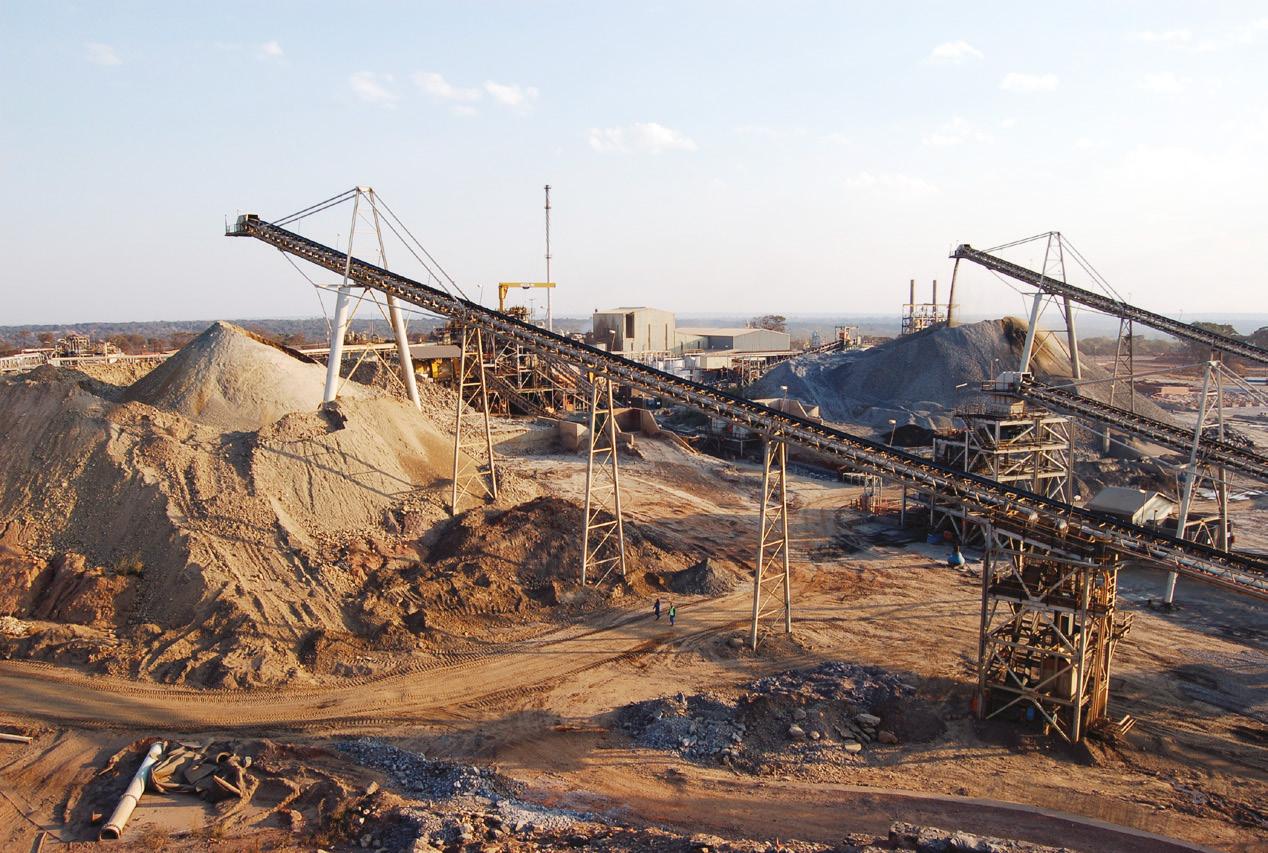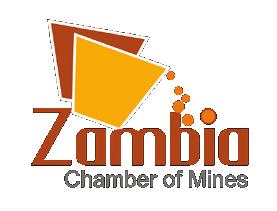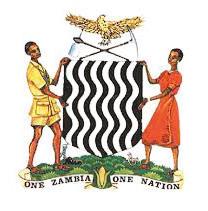
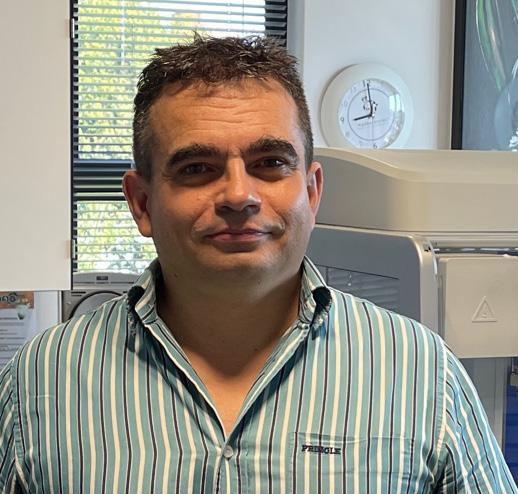




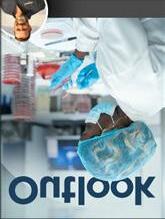
For over a decade, our portfolio of in-house magazines has been lovingly produced, printed, and distributed to our esteemed subscribers across the globe from our headquarters in the UK.


But now we are moving with the times, adopting a digital-first approach by producing online-only publications. A major factor in this decision is to minimise our environmental footprint, reducing the carbon emissions involved in the logistics of print magazine distribution and the resources required therein.
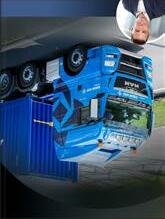


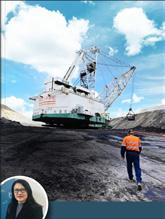
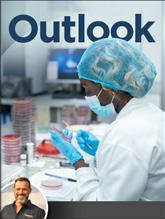

Going forward, we will provide print orders of any magazine in-line with the requests of our featured companies, subscribers, and conference & expo partners. Please get in touch for a print-on-demand quote or visit our website to find out more.

always planned that when our digital subscribers consistently accounted for 85% of our total magazine subscribers, we would cease printing our publications in-line with our environmental and sustainability goals.”
Outlook Publishing Ltd
Head of Editorial: Phoebe Harper phoebe.harper@outlookpublishing.com
Senior Editor: Marcus Kääpä marcus.kaapa@outlookpublishing.com
Editor: Jack Salter jack.salter@outlookpublishing.com
Junior Editor: Ed Budds ed.budds@outlookpublishing.com
Production Director: Stephen Giles steve.giles@outlookpublishing.com
Senior Designer: Devon Collins devon.collins@outlookpublishing.com
Designer: Matt Loudwell matt.loudwell@outlookpublishing.com
Digital Marketing Manager: Fox Tucker fox.tucker@outlookpublishing.com
BUSINESS
CEO: Ben Weaver ben.weaver@outlookpublishing.com
Managing Director: James Mitchell james.mitchell@outlookpublishing.com
Sales Director: Nick Norris nick.norris@outlookpublishing.com
Commercial Director: Joshua Mann joshua.mann@outlookpublishing.com
TRAINING & DEVELOPMENT MANAGERS
Vivek Valmiki vivek.valmiki@outlookpublishing.com
Marvin Iseghehi marvin.Iseghehi@outlookpublishing.com
BUSINESS DEVELOPMENT DIRECTOR
Thomas Arnold thomas.arnold@outlookpublishing.com
HEADS OF PROJECTS
Callam Waller callam.waller@outlookpublishing.com
Eddie Clinton eddie.clinton@outlookpublishing.com
Matt Cole-Wilkin matt.cole-wilkin@outlookpublishing.com
Ryan Gray ryan.gray@outlookpublishing.com
Sales & Partnerships Manager: Donovan Smith donovan.smith@outlookpublishing.com
Alfie Wilson alfie.wilson@outlookpublishing.com
Deane Anderton deane.anderton@outlookpublishing.com
Josh Hyland josh.hyland@outlookpublishing.com
Krisha Canlas krisha.canlas@outlookpublishing.com
Cameron Lawrence cameron.lawrence@outlookpublishing.com
Jordan Levey jordan.levey@outlookpublishing.com
Kyle Livingstone kyle.livingstone@outlookpublishing.com
Finance Director: Suzanne Welsh suzanne.welsh@outlookpublishing.com

Finance Assistant: Suzie Kittle suzie.kittle@outlookpublishing.com
Office Manager: Daniel George daniel.george@outlookpublishing.com
Africa Outlook East Wing, Ground Floor, 69-75 Thorpe Road, Norwich, Norfolk, NR1 1UA, United Kingdom. Sales: +44 (0) 1603 363
Editorial: +44 (0)
Tel: +44 (0) 1603 363 655 phoebe.harper@outlookpublishing.com www.africaoutlookmag.com
Like us on Facebook: facebook.com/africaoutlook
Follow us on Twitter: @africa_outlook
As we steadily approach our 100th issue, we in turn foreground a selection of companies celebrating milestones, anniversaries and landmark achievements, leveraging strong historical legacies in their respective industries.
One such example is inqaba biotec, the life sciences leader commemorating two decades as ‘Africa’s Genomics Company’.
“We have developed a reputation over the past 20 years as a company that delivers and keeps to our word. We don’t over-promise, and in general, we are seen as a genuine company,” shares co-Founder and Executive Director, Dr Oliver Preisig.
Another company in the healthcare sector that has evolved significantly from humble roots, is the Medical Aid Society of Malawi (MASM). Indeed, CEO Sydney Chikoti has witnessed MASM’s transformation from a small organisation to a household name and the country’s largest health insurance services provider.
For our cover feature, Zizwe Opencast Mining is the South African turnkey mining services provider spanning opencast mining, bulk materials handling, crushing and screening, as well as drilling and blasting. Born in 2003, it is the management team boasting over 150 years of combined experience in the mining sector that makes all the difference in guiding the enterprise forwards as a competitive and relevant company.
In the copperfields of Zambia, Moxico Resources PLC’s Zambian subsidiary, Mimbula Minerals Limited, continues work on the Mimbula Copper Project. With plans underway to commission heap leach operations at the Mimbula mine in the last quarter of 2022, Moxico will have achieved a major milestone, in completing the journey from start to full production in less than a year.
Elsewhere, discover fascinating corporate stories from myriad companies across Africa, such as beer brewing specialists Maluti Mountain Brewery, or the primary hub of Guinea’s shipping industry with the Port of Conakry.
We hope that you enjoy your read.
Head of Editorial, Outlook Publishing
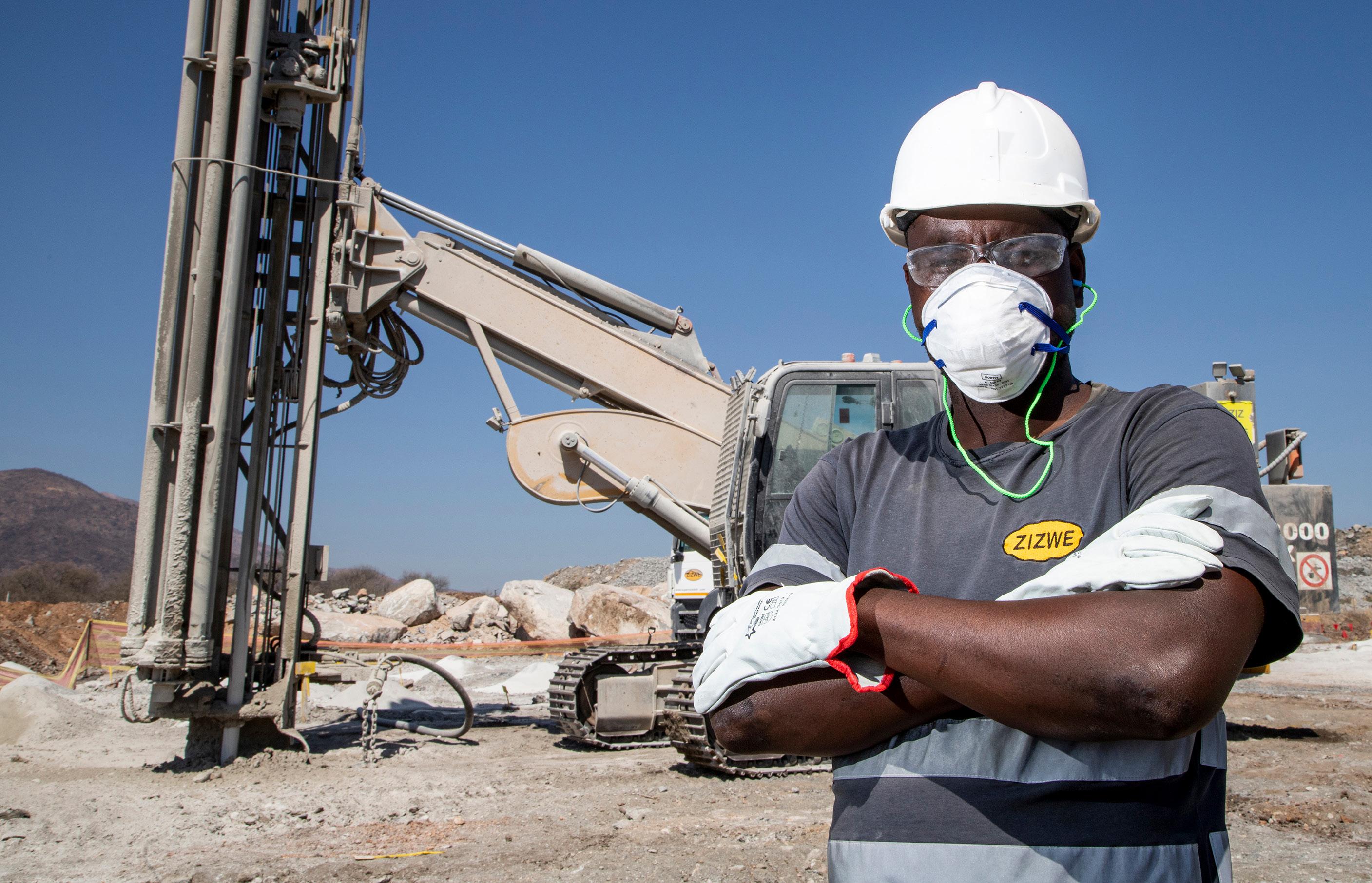


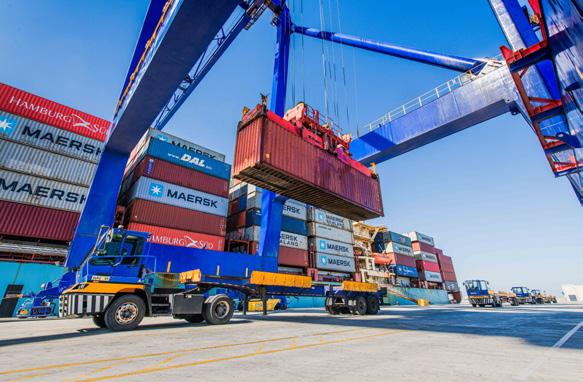
38 SHOWCASING LEADING COMPANIES
Tell us your story and we’ll tell the world
Opportunities in Commodities
The continued role of mining in South Africa’s socio-economic development
54 Moxico Resources PLC
Groundbreaking Success
The vast expansion of mining projects across Zambia
66 ChromTech Holdings
Value through the Pipeline
movement from mine to market
HEALTHCARE
72 inqaba biotec
Pioneering Genomics
Advancing life sciences research for 20 years
86 Medical Aid Society of Malawi
Comprehensive Cover Within Reach Affordable and accessible healthcare cover for all Malawians
University of Ghana Medical Centre Ltd.
Quaternary Care
World-class clinical health services, training and research
Healthbridge
Transforming Private Practice

Industry-altering medical solutions across the Rainbow Nation
108 Pernod Ricard Western Africa
The Spirit of Conviviality
A decade of evolution for Pernod Ricard Western Africa

116 FMCG Distribution
Distribution with a Difference
Fast-moving consumer goods delivered across Nigeria
124 Nile Breweries Limited
Cheers All Round Brilliant beer fresh from Uganda
130 Kelfoods
Protein Through Poultry Quality animal protein and feed for Malawi
136 Maluti Mountain Brewery
Brewing at its Peak
A transformational vision for Lesotho
140 Accra Brewery PLC
Creating a Future with More Cheers Beer as a force for good
SUPPLY CHAIN
146 Port of Conakry
The Hub of Guinean Growth
Bettering Conakry’s commercial expansion for the people
156 Linhas Aéreas de Moçambique
Comfort in the Skies
Attentive aviation across Africa
164 Universal Paper and Plastics
Hygiene Means Health
Tissue paper products helping to improve hygiene across Southern Africa
172 LC Packaging
Fourth Generation Family Business
Packaging with a purpose
180 ELDOWAS
The Key to Life
Water supply, sewerage and sanitation in Kenya
186 Lesedi
Championing Energy Integration
Leading energy solutions in South Africa and beyond
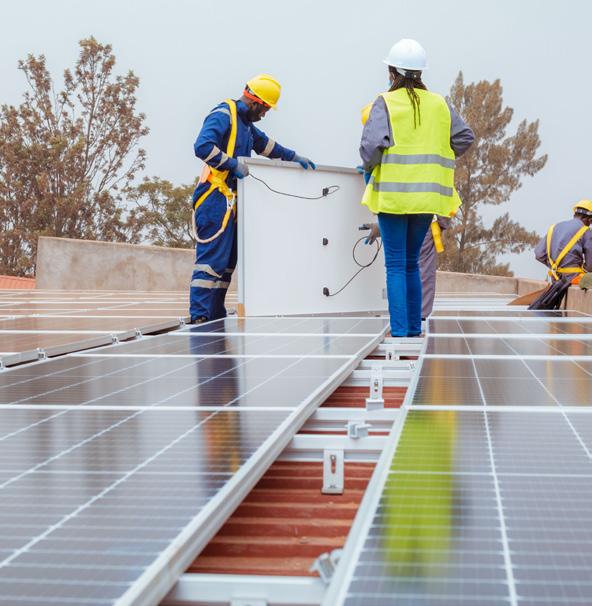
198 Davis & Shirtliff
The Power of Water and Energy
Improving lives through water and energy solutions
206 East African Power
Transformational Energy
Clean, reliable, affordable power
206
Meridian Africa
Growth from the Ground Up
Investing in African soil
CONSTRUCTION
Mobus Properties
Accommodating Accra and Abuja
Community centric housing development
SOUTH AFRICA’S CABINET has approved new-look coins, the fourth time the country will have changed the design of its physical currency, and the first time since 1989.
The fresh design will feature inscriptions in all the official languages of South Africa, which will be rotated annually over the next decade. The country has 11 official languages: Zulu, isiXhosa, Afrikaans, Sepedi, Setswana, English, Sesotho, Xitsonga, Siswati, Tshivenda and Ndebele.
The word ‘South Africa’ will be inscribed on one side of the coins and printed in all 11 official languages. The new coins will begin circulating next year.

AUDI HAS REVEALED its significantly improved RS Q e-tron E2 off-road racer prototype, ahead of its Morocco Rally debut.

The brand-new car, which wears reworked body panels for greater aerodynamic performance, is an evolution of the previous Audi RS revealed in July 2021, which scored four stage victories at the 2022 Dakar rally in January.
The E2 part of the title refers to the second generation of Audi’s iconic Quattro rally cars used in the 1980s.
EMIRATES HAS ANNOUNCED that it has cancelled all scheduled flight operations in and out of Nigeria, due to its inability to collect outstanding funds from the West African country.
Nigeria’s aviation ministry says it is “working hard” to release trapped funds to Emirates after the carrier suspended all flights to Nigeria effective from September.
The decision follows Emirates’ ruling last month to reduce flights to Nigeria’s commercial capital Lagos, as the airline said it could not access its funds, amounting to $85 million withheld in the country.

ZAMBIANS HAVE BEEN celebrating the clinching of the $1.3 billion bailout from the International Monetary Fund (IMF) after an excruciating seven-year wait.
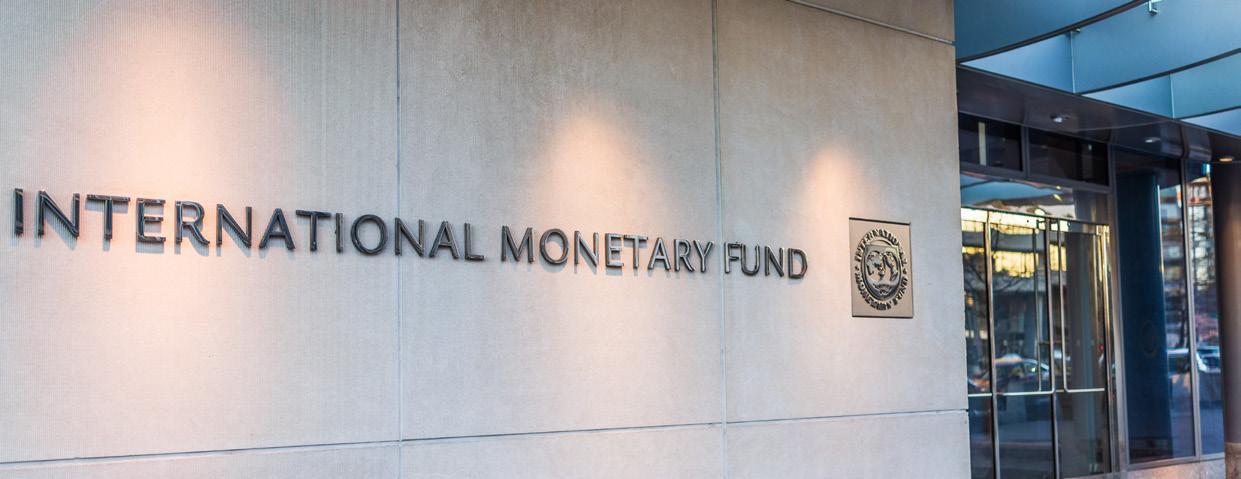
This sees Zambia become the first African country to default on its debt, estimated to be over $16 billion during the COVID-19 pandemic.
Most importantly, the move is seen as the first step towards economic recovery, that will in return unlock the country’s expenditure within the social sector.
Zambians are now expecting a trickle-down effect on the back of a massive employment drive that has seen thousands employed in the health and educational sectors.
THE FIRST SHIPMENT of grain from Ukraine to East Africa since the conflict with Russia began recently docked at the Red Sea port in Djibouti.
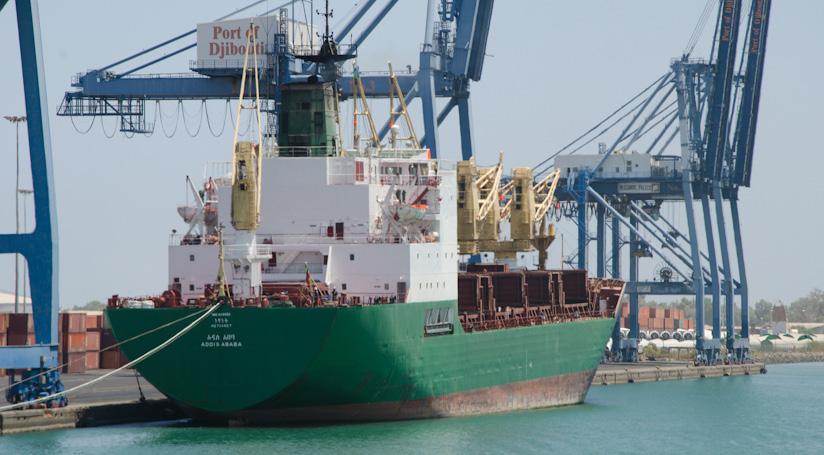
While this latest shipment offers some relief for Ethiopia, where some of the grain is due to be transported, it will not make its way to shops and markets due to concerns that there’s still not enough. The United Nations hopes the shipment will boost confidence within the private sector, by proving it is possible to safely ship grain from the Black Sea to Africa.
TRANSPORT AS EGYPT EXPANDS to a population of over 20 million, the Cairo metro has recruited the North African nation’s first ever female train drivers. This is a huge step forward in a country where few women have formal, full-time jobs.
Applications continue to flood in, as Egyptian women remain eager to become pioneers in a country where only 14.3 percent of women are in formal employment, according to 2020 figures.
Launched in 1987, the Cairo metro is the oldest in the Arab world, but Egypt has recently fallen behind other Arab countries in providing employment opportunities for women.
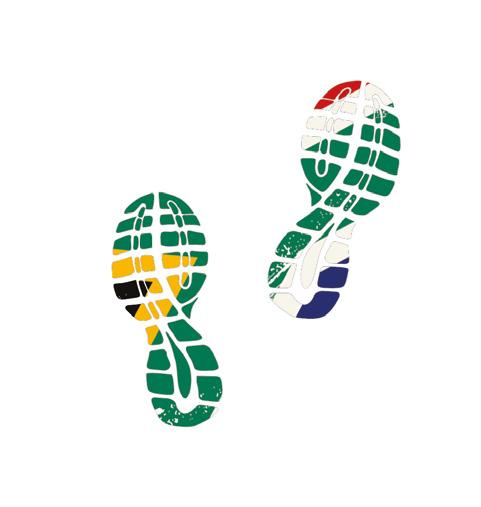
SPORTSWEAR AND
ATHLEISURE brand Puma has expanded its physical retail footprint with the addition of five new stores across South Africa. This includes a full-price and factory outlet as well as one of the company’s popular new pop-up stores.
The new full-price stores open in October 2022, in the Mall of the North in Polokwane and at the Somerset Mall in Somerset West. Meanwhile, the full-price store in Menlyn has been enlarged and reopens in September 2022, with an updated layout hosting a variety of product options in Motorsport, Sportstyle, Teamsport and Kids.
Sebastian Wanjala, Head of Agribusiness at AECF explores the emerging relevance of technology in agricultural production
 Written by: Sebastian Wanjala, Head of Agribusiness at AECF
Written by: Sebastian Wanjala, Head of Agribusiness at AECF
echnology is an important ingredient in agricultural production. Indeed, the agrarian revolution was founded on technology, precipitating a transformative process that led to unprecedented yield increases and prosperity.
Technology remains inseparable from agricultural production, processing, and consumer fulfilment processes. It is the basis on which agriculture


predicts and responds to changes in consumer needs and climate change.
For example, long term solutions to the current impact of climate change that affects Africa disproportionately, as well as other shocks such as the COVID-19 pandemic and the Ukraine conflict will likely find solace in technology. Numerous studies prove that the only way to grow productivity sustainably is by enhancing the use of technology as much as possible, across food systems. This is critical in different value chains – from preproduction (involving inputs such as seeds and fertiliser) to production (in keeping livestock and growing crops), harvest and, eventually, the consumer’s table.
Unfortunately, Africa lags behind the rest of the world in the use of agricultural technology. Yet, it is also the region that bears one of the largest hunger burdens, which is expected to worsen in coming years considered the projected rise in population.
Opportunities exist to turn the tide and deploy agricultural technology to boost food production significantly and sustainably. First, is by using primary production technology
in growing crops and processing produce, which mostly exists in the form of farm machinery combined with sustained use of improved crop varieties. In order to extract the most value from land, it is critical that all production activities are as precise as possible, which is where technology comes in. For instance, by applying appropriate technology, a farmer can predict yield potential and determine the specific amounts and exact types and blends of fertiliser to be applied in growing a given type of crop in any given piece of land, thus saving on cost of inputs, while increasing yields. Even beyond the farm after harvesting, during processing of the produce, technology helps enhance efficiency.
The second aspect is digital technology, whose most important contribution to food production is in enhancing efficiency across supply chains. For instance, tech-powered platforms can help match supply of produce with demand. Digital technology facilitates linking what a farmer in a particular area has produced and its quantity and quality, to possible markets, from which prices are determined.

Another way that technology can help enhance yields is by availing information to farmers and other actors in the various value chains to help boost their output. Information plays a key role in shaping how a market operates.
In recognition of this huge potential that agricultural technology has in boosting farmer yields, supporting livelihoods, and promoting rural prosperity, AECF, an Africa-focused development funder, has been pro viding catalytic funding to innovative solutions. These investments range from agro-processing facilities to fix supply chain inefficiency in rural areas and solar panels to power irrigation systems, to supporting seed compa
nies to enhance quality for fast-matur ing varieties that can be grown for two seasons in a year, thus providing better income from the same piece of land. Since 2009, we have invested over US$210 million in innovative solutions across the agricultural value chains. Technology’s key advantage lies in agility and adaptability to the needs of different levels of production, post-production storage, processing and marketing. For smallholder farmers, agricultural technology can help unlock financing (by reducing the risk of crop failure, selecting new and appropriate varieties), providing information and extension services, reducing post-harvest losses among other applications. For large-scale farmers, advanced hightech technologies, such as drones that use infra-red technologies to determine crop health, water stress or fertiliser requirements allows farmers to save valuable water resources and or quickly make essential farm management decisions that maximise yields and profit accurately and rapidly.
A major drawback to unlocking the potential of technology in the continent is cost, which impedes access, particularly for smallholder farmers. This is unlike large-scale farmers to whom technology is more accessible, and customisable, with scope to progressively evolve with their needs, the fragmented nature of smallholder farm holdings and the resultant dis-economies of scale limiting the use of efficiency-bringing technology. Improving technology access to smallholders who produce the bulk of food in the continent, could have significant impact for Africa’s food production.
The first step to unlocking smallholders’ access to agricultural technology is providing information. With typically limited and ineffective extension services, many smallholders
are not aware about the opportunities available to them and do not consider them. When information is provided on what is available across the value chain, they can decide how to resolve the challenges that they face. Clear examples include use of market-available vaccines that reduce livestock and poultry mortality.
Then there is the issue of cost of the technologies. Farmers must afford the technology to use it. Innovative ways of availing these solutions include bundling them with financial services to minimise the required upfront cost which limits many of them. Spreading the cost of acquiring technology over time lessens the burden. However, technology need not be expensive or complex. Certain technology, such as using cost effective hermetic bags for grain storage that can be used over extended seasons, have the potential to significantly reduce post-harvest handling. Another example is selecting appropriate solar-powered irrigation techniques along with no-cost soil and water management practices that significantly improve soil health and productivity. Commonly owned coldchain facilities for example increase access to markets for horticulture farmers.
Agricultural technology has potential to sustainably grow enough food to feed current and future populations. It just needs to be made more accessible to smallholder farmers.
Sebastian Wanjala is the Head of Agribusiness at AECF. He is an agricultural engineer, and most of his over 18-year career spent in advisory services, spanning the dairy, horticulture, and crop industries. Sebastian believes that a combination of innovation forms and market system approaches is the key to sustained economic growth.
With economic recovery in mind, an incentive for the biggest gold miners in Zimbabwe to produce above output targets has been extended
Writer: Jack SalterFor millions in Zimbabwe, gold mining is a major mainstay.
There are more than 4,000 recorded gold deposits in the Southern African country, however these have remained largely unexplored and have thereby limited growth in the gold industry.

Indeed, despite gold production improving to around 27 tonnes in 2021 according to official figures, Zimbabwe sits on an estimated 13 million tonnes of unexploited reserves, of which only a mere 580 tonnes have been exploited since 1980.
The discovery of new, richer deposits has also been limited by the lack of modern exploration techniques in Zimbabwe, further slowing industry development and growth in a country that sees the mining sector as one of the main drivers of its economy.
As gold exports are one of Zimbabwe’s major foreign currency earners, along with platinum and tobacco, an incentive for the country’s
biggest gold miners to exceed stateset production output targets has been extended.
Large producers that do so will receive 80 percent of the payment for the additional output in foreign currency, compared with the existing 60-40 split between foreign and local currency payments for gold produced in Zimbabwe, however those already operating at full capacity will be unable to benefit.
It comes as gold miners in the country maintain they can only make the investments required to revitalise Zimbabwe’s economy if they retain a greater share of their foreign currency earnings.
The latest extension to this gold miner initiative goes a step further in attempts to tame inflation by Zimbabwe, which began selling gold coins in July. By providing a store of value to the country’s plunging currency, the goal of such a novel strategy was to lower demand for the US dollar in a nation that suffers from
an acute shortage of dollars, and give the population a viable alternative.
Zimbabwe’s central bank sold 1,500 gold coins during the first week of their release to the market, a favourable uptake that has resulted in plans being formulated to release another 2,000 coins.
Two local lenders, meanwhile, have been identified by the Zimbabwe government to provide US$1 billion worth of funding over the next five years to help the country’s mining industry.
A five-fold increase has been outlined by state-owned Kuvimba Mining House, one of Zimbabwe’s largest mining firms, at its Shamva gold mine operation. By 2023, it is expected that the mine will be able to produce 400kg of gold per month.
With Zimbabwean gold output having climbed a further 47 percent in the first seven months of this year, a US$4 billion gold industry is being targeted next year by the government, accounting for a third of the country’s entire mining sector.
Incentivising the nation’s biggest gold miners to produce above state targets will contribute significantly to the achievement of this ambitious but achievable target.

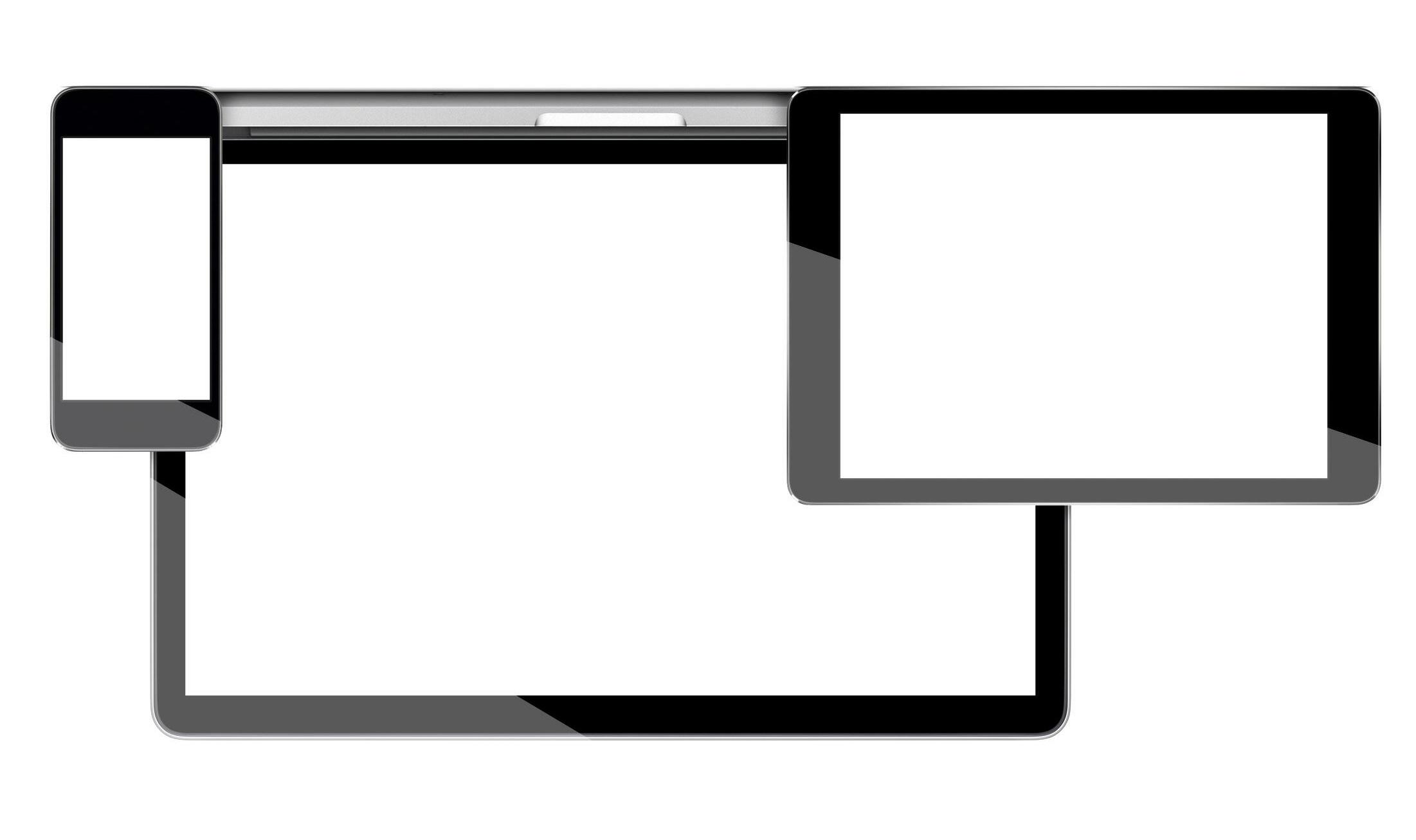
Building on the global success of our regional titles – Africa Outlook, APAC Outlook, EME Outlook, and North America Outlook – Outlook Publishing is proud to be launching a dedicated platform for the Mining & Resources sector.

As mining organisations worldwide confront unprecedented change, embracing technological innovations and incorporating critical environmental sustainability agendas, now more than ever is the time to showcase the strides being taken in this dynamic sector.
A multi-channel brand, Mining Outlook will bring you the positive developments driven by organisations across the global mining industry through our various platforms. Discover exclusive content distributed through our website, online magazine, social media channels, and dispatches delivered straight to your inbox with a bi-weekly newsletter.
Through this compelling new venture, we intend to foreground the movers and shakers of the industry. To participate as a featured company and join us in this exciting endeavour, contact one of our Project Managers today.
On the west coast of Central Africa, Gabon is where forest, ocean and equator meet.
Tropical forests cover a staggering 88 percent of the country, making it the second-most forested nation on Earth, and form part of the great Congo Basin rainforest.

Blessed with some of the planet’s most biodiverse fauna and flora, as well as important natural resources, Gabon not only plays a vital role in the preservation of Africa’s largest rainforest, second only in size to the Amazon rainforest, but it is also a key ecological player in the global fight against climate change.
Indeed, thanks to these vast forests, Gabon is one of very few countries in the world to absorb more carbon (over 100 million tonnes per year) than it emits, and last year became the first country in Africa to receive payments for reducing carbon emissions by protecting its forests.
With a robust, science-based approach to forest management,
Gabon is leading the way in maintaining its status as a High Forest, Low Deforestation (HFLD) country, and reducing its CO2 emissions even further despite historically low rates of deforestation and forest degradation. Gabon has also published its
second Nationally Determined Contribution,
committing to carbon neutrality up to 2050 and beyond, and has passed legislation to pave the way for the country to trade in carbon credits.
All things considered, Gabon was therefore the natural choice to host the 2022 edition of Africa Climate Week (ACW), held from 29th August – 2nd September in the country’s capital and largest city, Libreville.

The transition towards a green economy is a priority for Africa, despite the fact it contributes less than four percent of the world’s energy-related emissions.
Yet, in what can only be described as a climate injustice, the lives of African people are under serious threat as a result of climate change, with biodiversity loss, water shortages, reduced food production, and loss of life an increasingly devastating reality on the continent.

Taking the pulse of climate action in the region, key stakeholders gather in Gabon for Africa Climate Week 2022 to collaborate on a sustainable future
Writer: Jack Salter
Likewise, droughts induced by climate change coupled with the cost-of-living crisis have left millions of people in regions such as the Horn of Africa to contend with hunger and famine.
Despite Africa contributing the least to the climate emergency, ACW 2022 was an important moment for climate action that showcased the continent’s contributions to the global movement, and highlighted its immense potential for enacting change.
ACW 2022 provided a platform that engaged and empowered more than 1,000 key stakeholders, from governments and private sector leaders to financial institutions and civil society, to drive climate change action across countries, communities, and economies.


It was organised by UNFCCC, the United Nations entity tasked with supporting the global response to the threat of climate change, in collaboration with the UN Development Programme, UN Environment Programme, World Bank Group, as well as regional partners including the Africa Union, African Development Bank (AfDB), and UN Economic Commission for Africa (UNECA).
The event was kicked off by African ministers, who convened to explore and discuss the shared threats and opportunities associated with climate

change, such as resilience against climate risks, the transition to a lowemission economy, and partnerships to solve pressing challenges.
With the window to take decisive action closing, a key objective of ACW 2022 was to slow the fast-hitting effects of climate change, by quickly rolling out innovative solutions and forging strengthened partnerships.
the opportunity for stakeholders to work on innovative, concrete and sustainable solutions, giving all African nations the means to successfully combat climate change.
Regional Climate Weeks (RCWs) such as ACW are now recognised and strongly endorsed in the Glasgow Climate Pact, agreed at last year’s COP26 conference in Scotland, as a stage for governments and stakeholders to strengthen credible and durable responses to climate change.
ACW 2022 marked a crucial step on the road to COP27, coming just a couple of months before Africa hosts this November’s United Nations climate change conference in Egypt. The event was an important milestone, mobilising all actors on the continent around the climate agenda ahead of the so-called “Africa COP” in Sharm el-Sheikh. COP27 will significantly shape the future, and as one of the last major climate events before the conference, ACW 2022 provided
Regional collaboration has emerged as a driver of global progress, with the likes of ACW opening opportunities and acting as a catalyst to advance climate action, address social inequality, and invest in development that is good for both people and planet.
ACW 2022 is the third instalment of this year’s RCW series, following the Middle East and North Africa (MENA) and Latin America and the Caribbean (LAC) Climate Weeks in Dubai and the Dominican Republic respectively, and marked a return to in-person RCWs in the region following the COVID-19 pandemic. Bringing together a diverse range of public and private sector stakeholders, the primary aim of this year’s RCWs is simple: address climate change.
The Africa Climate Week 2022 is set to harness opportunities for climate action ahead of COP27In partnership with Microsoft, the Alliance for a Green Revolution in Africa (AGRA) has launched its new digital tool, the ‘AgriBot’. A catalyst for inclusive agricultural transformation, we find out more in a quickfire Q&A with Senior Programme Officer for Digital Systems and Solutions at AGRA, Nixon Gecheo
Writer: Phoebe Harper

Africa Outlook (AO): What originally drew you to working in the agricultural sector, particularly within Africa?
Nixon Gecheo, Senior Programme Officer, Digital Systems and Solutions, AGRA (NG): I am an ICT specialist by training. From my previous experience in the public sector, I witnessed first-hand the impact of technology across sectors. It is in the agriculture sector where technology has the most transformative impact. This drew me into the sector to help drive digital systems and solutions for Africa’s agriculture. I am passionate about developing and deploying evidencebased solutions that can help tackle challenges in Africa’s food systems.
AO: What role does technology have to play in advancing Africa’s agricultural future?
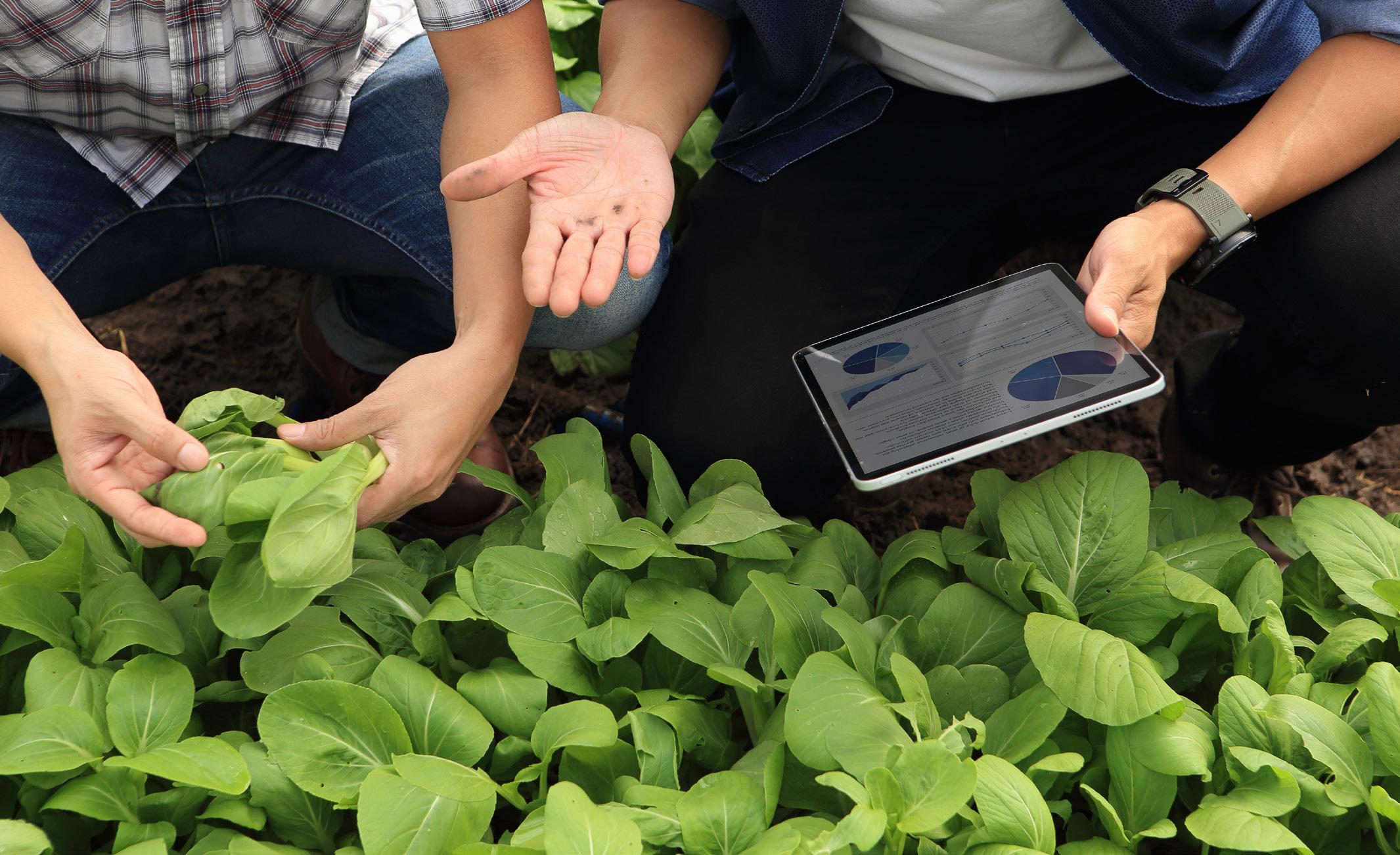

NG: Digital agriculture is transforming the sector in Africa through the application of innovative tools
and new business models. Many players in the value chains, including farmers, now have access to realtime data and computational power, enabling more effective selection and timing of product-to-market decisions, provision of credit, access to extension support and advisory on production and micro insurance, conveniently on their phones. Technology can help food systems become more agile and resilient, to safeguard the livelihoods that depend on it. Technology also facilitates the intensification of production sustainably without harming the environment. Digital technology holds significant potential for creating formal jobs that are accessible to the youth in Africa. Through entry points such as precision farming, mechanisation, service provision and e-commerce, technology can address the major challenge of youth employment and agripreneurial opportunity. Given that 70 percent of sub-Saharan African’s population is under 30 years of age, nowhere is the job creation challenge more acute.
AO: Could you tell us about AgriBot –what led to the platform’s inception and how will this technology impact smallholder farmers?
NG: The AgriBot was co-created by AGRA and Microsoft and is being rolled out by AGRA in Kiambu and Embu counties in Kenya as proof of concept. AgriBot is a digital solution that provides localised extension and advisory services at scale to smallholder farmers through inclusive omnichannel application experiences like Short Message Service (SMS) and WhatsApp for prioritised value chains. After registration, farmers input their personal details and location. They then begin receiving up-to-date information on weather forecasts and other information such as seed varieties to be planted, recommended farm inputs, and good agronomic practices (this includes land preparation, planting, and harvesting). Farmers also get early warning reports on pests such as fall armyworms and locusts. Through the AgriBot, smallholders can be trained by their elite peers, known as villagebased advisors, who are linked to the county governments.
AO: Since its launch, how has AgriBot been received by the farming community?
NG: The AgriBot is filling a huge gap in extension services in Kenya, which currently stands at 1:5,000 farmers, compared to the recommended 1:400. In one year since it was officially launched, AGRA’s AgriBot service has recorded 48,604 farmer registrations, 838 Village-Based Advisor (VBA) registrations and 97,597 interactions. The Bot has impacted the lives of VBAs and farmers by providing quick and reliable information to farmers and improving VBAs’ efficiency to deliver extension services through features such as farmer messaging and localised content (Agro dealer’s

list and seed varieties). Some of the most accessed features of the Bot are good agronomic practices, improved maize seed varieties, weather forecasting and free messaging where VBAs get to message their farmers through the Bot at no cost to them. The Bot has capabilities to expand beyond its current uses, which creates an opportunity for other partners and platforms to plug and play and promote different products and services. The services can be modified based on demand. The Bot is linked to PowerBI, which can display dashboards for content accessed and usage, and different partners can be enabled access and visibility as per need.
AO: Looking ahead, are there any further plans for new technological innovations from AGRA?
NG: We are also partnering with CropIn in digitising 10,626 entrepreneurial VBAs through the Smart Farm Plus solution to reach two million farmers in Ghana, Nigeria, Burkina Faso, Mali, Tanzania and Mozambique. Knowledge dissemination and advisory services to farmers via VBAs will be provided through the digital platform by the remotely placed agronomists. Advisory services will also be provided on sustainable farming practices, pest and disease outbreak, weather forecasts, and more. The partnership seeks to solve the challenges that the continent faces, including a severely weakened public sector extension system, inadequately trained personnel at a local level and lack of access to agriculture technologies. It is such challenges that informed AGRA’s decision to focus on the development of private sector extension as a critical enabler towards inclusive agricultural transformation.

We have also worked on the digitisation of rural financial
services by leveraging financial and agricultural technologies to improve all aspects of loan processing, decision and delivery and to provide value-added services for rural communities. AGRA has also supported digitally enabled farm mechanisation to address the constraints of equipment dealers, financial service providers, agricultural value chain actors, maintenance providers, equipment owners and operators, booking agents, technology providers and smallholder farmers. A digitally enabled mechanisation on the app connects farmers with tractor owners. Tractor agents assist with the bookings, while tractor owners need to buy the company’s GPS device to attach to their tractors to track movements and accept requests, similar to how the ride-hailing apps work. This creates work opportunities for youth as equipment operators, booking agents, and maintenance providers as proven through AGRA’s partnerships with TATA solutions, ETC Agro, John Deere and digital solutions such as Tro-tro Tractors, hello tractor and Rent-A-Tractor. Moving forward we feel that digital innovation is critical in advancing food security and poverty eradication in Africa. AGRA is integrating digital excellence in its new strategy 20222027 to accelerate the improvement of farmers’ livelihoods. Through the digital strategy, AGRA aims to promote digitisation as an enabler to connect agriculture ecosystems, as well as sustainable integration of governments, markets and villages operating in the relevant strategic value chain.

Ports in Eastern and Southern Africa are a natural focus for regional development, as hubs of growth and gateways to the continent’s landlocked hinterland
Writer: Jack Salter | Project Manager: Deane Anderton
Ports are a vital cog in Africa’s supply chain. Not only are they key exporters of commodities such as oil, coal, and precious metals, but they are also essential to robust and diverse economic growth through the import and export of manufactured goods and other products.
If Africa is to realise its growth ambitions, the continent needs to take advantage of the economic
potential of its ports and shipping sector.
In Eastern and Southern Africa, ports are the nodes of entry to coastal host countries such as Kenya, Tanzania, Mozambique and South Africa. The evolution and development of ports create numerous benefits for host cities and countries, creating significant employment opportunities for local workers, and increasing the demand for portrelated labour that is usually unskilled and from the

port’s immediate vicinity.
Ports are also of critical importance to the continent’s vast landlocked hinterland, and thus a natural focus for regional development.
As a whole, Africa has a total of 16 landlocked developing countries (LLDCs), according to the United Nations Conference on Trade and Development (UNCTAD), accounting for exactly half the number of LLDCs across the entire world.
Magna Tyres keeps companies on the move with the best OTR and Port Handling tyre solutions. We pride ourselves on being a customer-first company with an open culture. That means we value long-term relationships more than shortterm success and we are always on to help you. That means that collaborating with us is like being one of us. Magna
Port Handling tyres are especially developed to fit a broad range of port handling vehicles such as container handlers, reach stackers and straddle carriers. The large variety of tread patterns and tread depths in our Port Handling tyre range makes sure there’s always a Magna solution for your needs!
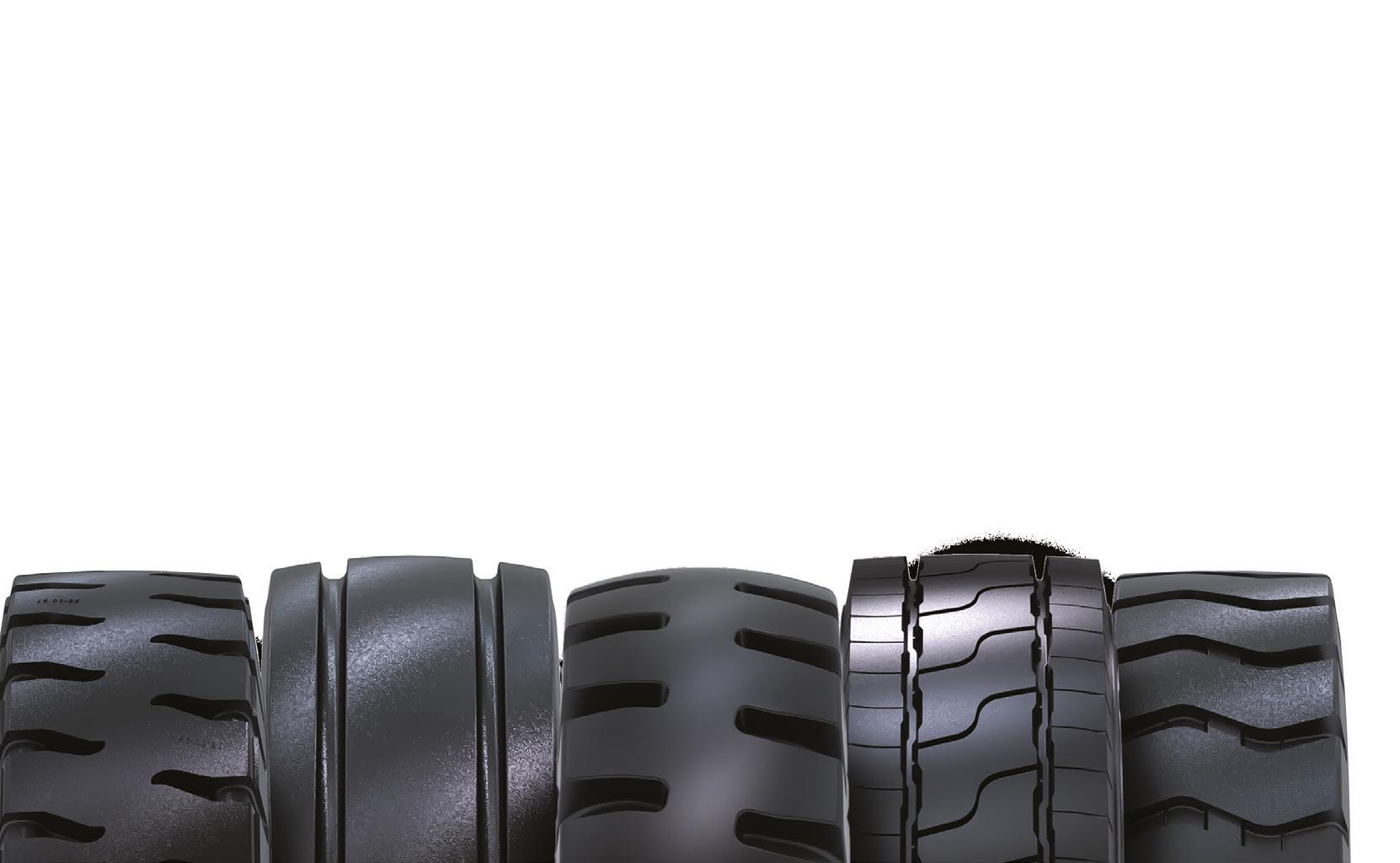
Why choose Magna Tyres? Our tyres are known for their

Visit our website:
outstanding performance in challenging conditions while maintaining a low degradation rate. This results in a very low cost of ownership and impressed customers throughout the world. That is what we mean when we say it’s not a tyre, it’s a Magna! We know downtime is costly and needs to be minimised as much as possible. That is why our sales offices

and warehouses throughout the world maintain a large local stock. This allows us to deliver quickly what you need, when you need it. Always. We keep you on the move, no matter what.
Find out more on magnatyres.com
Mextensive range of premium quality Off-The-Road (OTR), industrial, and truck tyres. For port and terminal machines that are expected to handle freights and goods every day, the company has tyres for handlers, forklifts, and straddle carriers that are especially designed for the most demanding conditions.
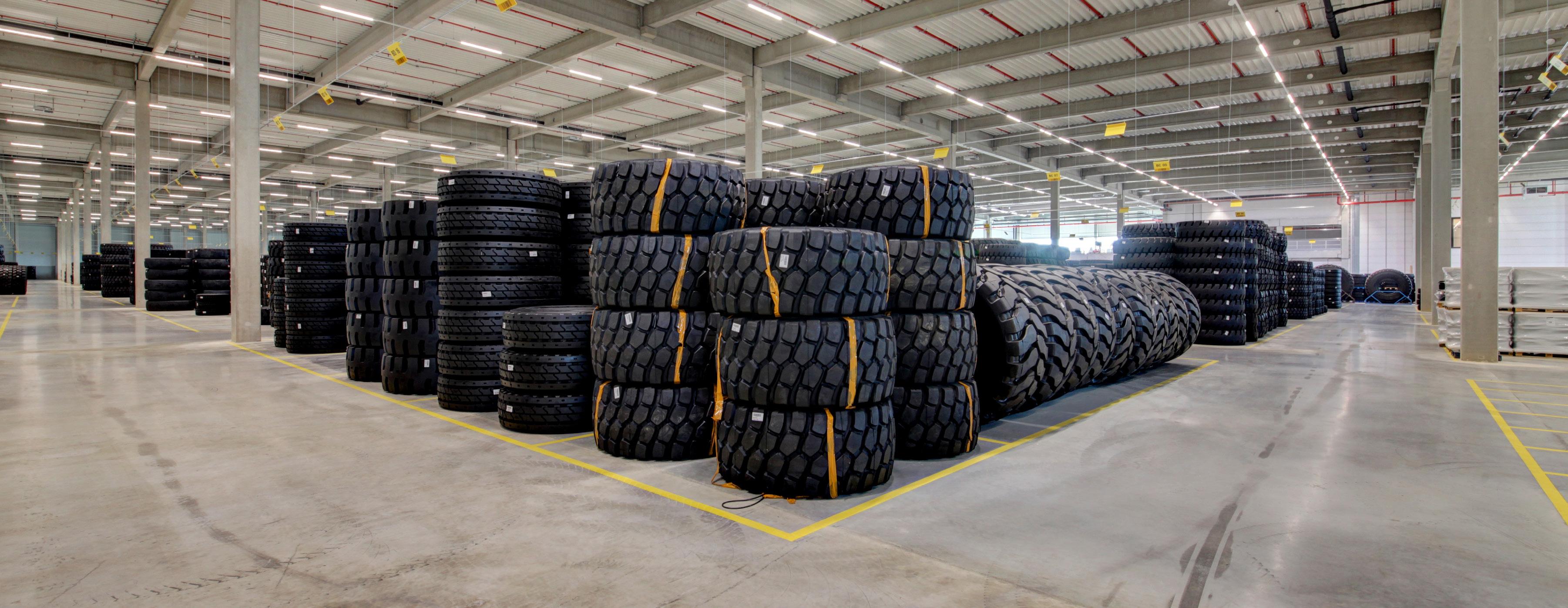
Please introduce me to Magna Tyres with an overview of your tyre solutions, and how they keep companies on the move.
stock. This was to shorten delivery times and improve direct availability. At this moment MagnaTyres SA has a warehouse in Durban as well as in JHB from which we can supply with 24 hrs bonded as well as released from bond stock, all in order to maximise the service level to our customers.
How are Magna Tyres’ port and terminal tyres especially designed for use in harbours and terminal handling environments?
Magna Tyres BV is a Dutch independent tyre manufacturer. We originate from a rubber compound producer which as of today supplies to all tier 1 tyre manufacturers as well as to Magna Tyres. This underlines the fact that Magna has access to a wide range of compounds which in most cases is responsible for 50 percent of the performance of a tyre. Magna Tyres South Africa opened in January 2019 as a next step in our growth path. In the years before the opening, Magna Tyres received several request to enlarge their services for the sub Saharan region. The biggest improvement on the service offering was opening a
Magna Tyres group has its R&D department fully in house. In this way we are fully in control of our technical continuous improvement programme on the technology and performance of our tyres.
Another advantage is that the lead times for product improvement are relatively short. From our long time partner customers in the port segment we receive valuable feedback on the performance on Magna Tyres. This involves the total life of the specific tyre, possible issues during daily operations and comparisons versus our main competitors. This all helps us to maintain our leading position.
What, for you, differentiates Magna Tyres from the competition as the largest Tier 2 supplier of Off-TheRoad (OTR) tyres?
There are some key differentiators which gives Magna Tyres a competitive edge in the market:
• Magna Tyres strives to keep close contact with its customers by having short response times to all sorts of questions from customers, including quotations.
• Magna is proud to have close, friendly contacts with its customers in order to be a long time partner in order to grow together.
• Magna Tyres has local sales offices around the world where we can store significant stock. This ensures short delivery times and prevents our customers from investing in keeping unnecessary safety stock.

• Magna Tyres has short internal communication lines which guarantees short response times to our customers’ questions.
Looking ahead, what are your key plans and priorities for the future?
Magna Tyres has a clear growth strategy in all segments where we are active. For ports specifically we will build on the strong references we have built so far. For the African continent specifically we have built up a strong relationship with Transnet in Durban port. Logically we’ll expand this to other ports operated by Transnet in South Africa.
Next to that we’ll try to win other important ports on the African continent by using supporting references. We can also use the positive experiences our customers have in the US, Asia and Europe.
Robert Jan Geurink, Managing Director South AfricaThese countries, which in Eastern and Southern Africa include the likes of Botswana, Burundi, Eswatini, Lesotho, Malawi, Rwanda, Zambia and Zimbabwe face special trade and development challenges, arising from their lack of territorial access to the sea and geographical remoteness from international markets.
LLDC exports and imports are required to transit through at least one neighbouring country, and often the mode of transport has to be changed frequently. This subsequently increases the cost of trade for LLDCs and prevents them from effectively integrating into the global trading system.
However, existing port facilities and operational practices at ports in Eastern and Southern Africa fall short of optimal capacity to serve the hinterland of landlocked African nations on top of their own country, resulting in extensive waiting times, high berth occupancies, congestion, and increased transport costs.
Against the backdrop of growing freight volumes in Eastern and Southern Africa and rising transit consignment to landlocked nations, many ports in the region have struggled to meet the challenge of current growth.
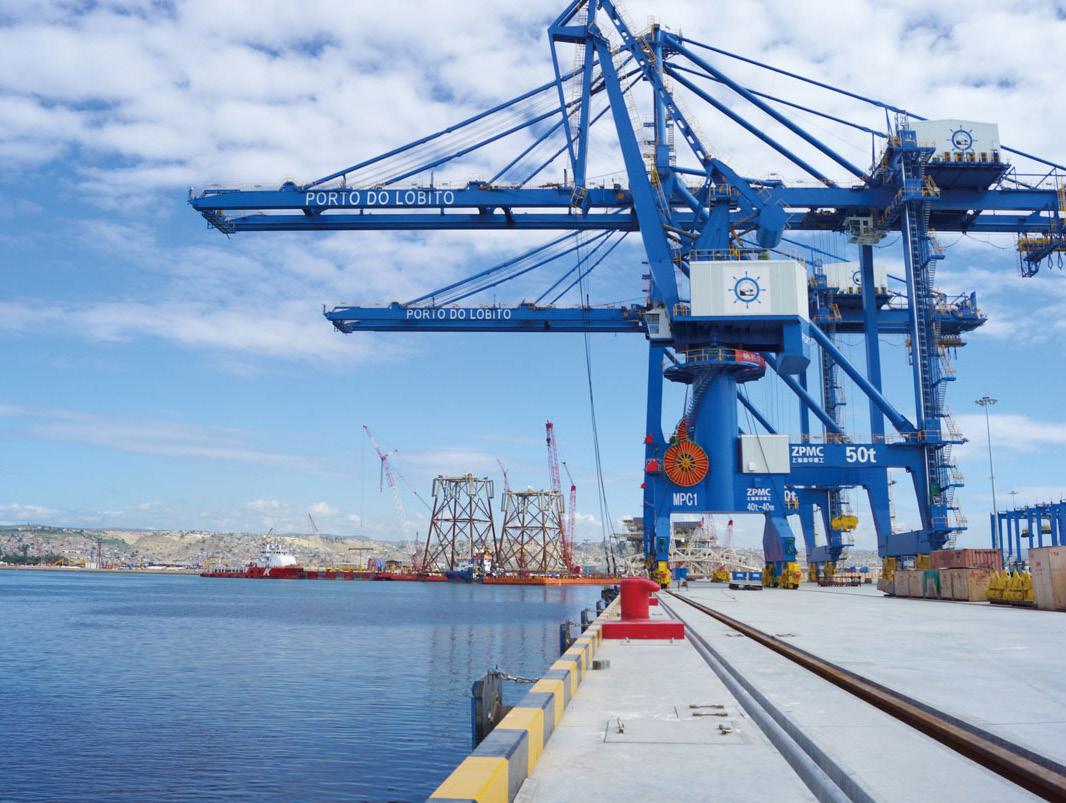
Inadequate infrastructure at African ports also compromises the competitiveness of continental market centres, given that approximately 80 percent of trade around the world is facilitated by ports with links to road and rail.
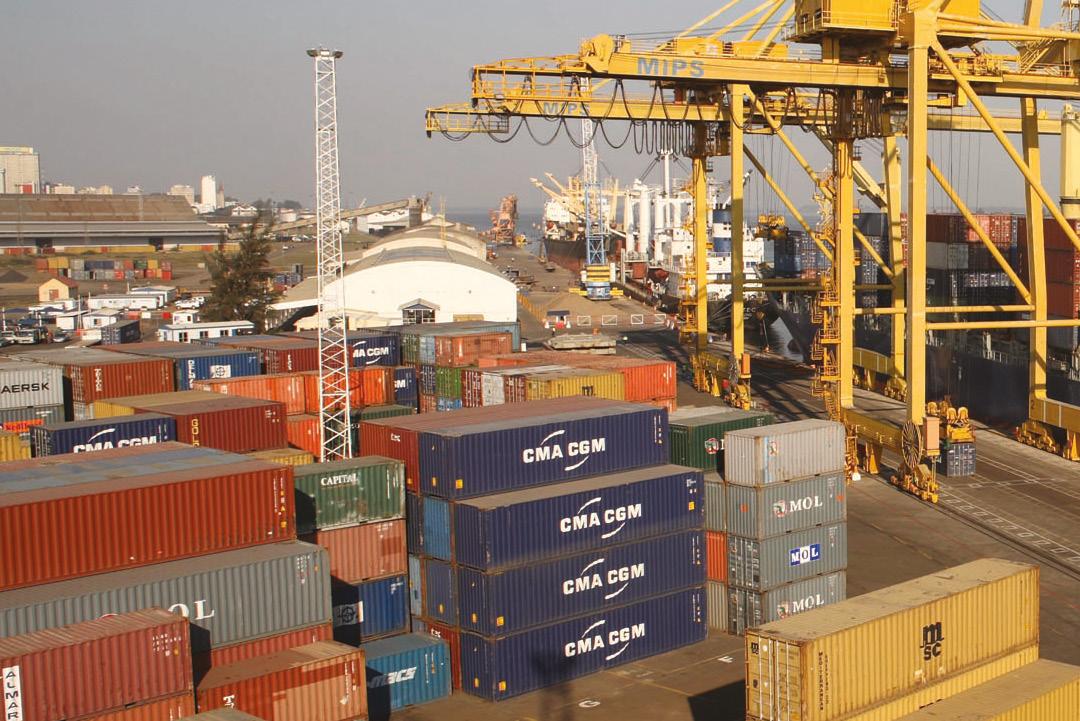
As such, countries in Eastern and Southern Africa have taken concrete steps to alleviate trade costs and improve transport network efficiency, including significant investment in regional corridors. Indeed, across the continent, there have been a number of
corridor-based initiatives to improve the hinterland flow of goods both by road and rail, and these tend to concentrate on higher-volume ports.
For landlocked countries, these economic corridors constitute new opportunities to participate in regional and global trade. They are generally defined by intermodal connectivity – the use of two or more different modes of transport to convey goods.
Intermodality is improving efficiency, along with cross-border trade enabled by trade facilitation measures, however current connectivity from ports in Eastern and Southern Africa to hinterland destinations still primarily depends on road networks that are of variable quality and coverage. Significant parts of the region’s rail network, aside from South Africa, are also in a poor state, with most lines singletracked and not electrified.
In order to integrate logistics and supply chain components, global production networks will increasingly drive the efficiency of ports, which in turn will come under growing pressure to respond to the needs of logistics providers, shipping lines, and multinational manufacturers. It means that port investment decisions previously dictated by supplyside factors will be increasingly driven by demand.
In Africa, there remains a strong case for ports to focus on investment, be it to develop port infrastructure ahead of demand or to improve the functionality and productivity of ‘hub’ ports of the future with the greatest volume potential, and make them increasingly attractive global trade destinations.
Changes to the global shipping routes serving Africa will be accelerated by increased trade volumes, as well as more productive and attractive ports.
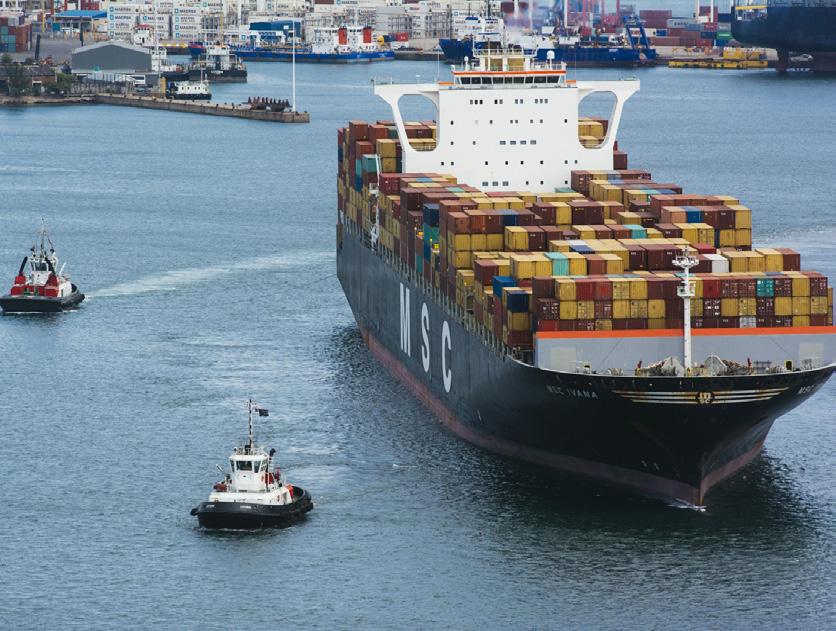
As in other parts of the world, this will result in greater integration with global shipping and trade routes, in part through larger vessel size allocations to lower transit times and reduce the unit cost of transport to and from Africa.
Greater supply chain integration is required, and for some time, the global port industry has been impacted by both horizontal and vertical integration among producers (port operators and port authorities), terminal operators, shipping lines, and land transport.
Vertical and horizontal integration trends are relevant in Eastern and Southern Africa’s port sector because of the potential for improved landside connectivity, effective transport solutions, attracting private operators in new business segments, and increased port efficiency.
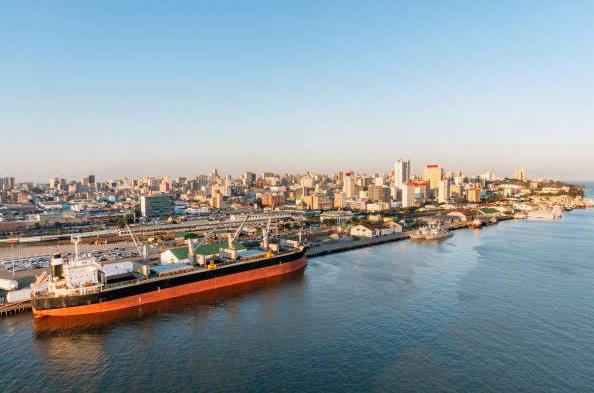
To improve integration, there is also a need to introduce modern management systems to operational and administrative procedures in a number of ports, which are still characterised by the use of paper in approval and information exchange processes. This, along with the added safety and security risks of customs inspections inside the operations area, obstructs the efficient flow of cargo and equipment, resulting in operational delays.
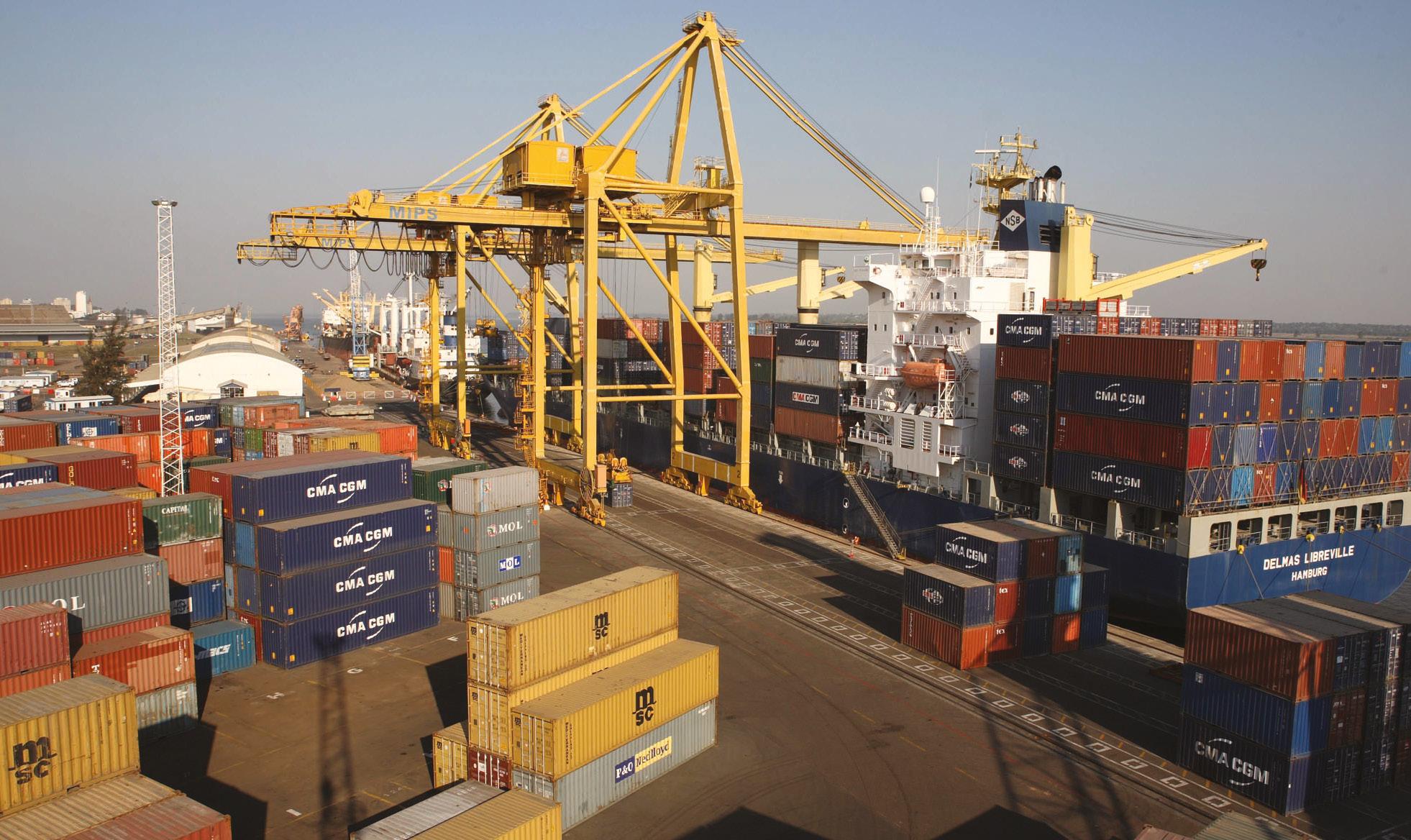
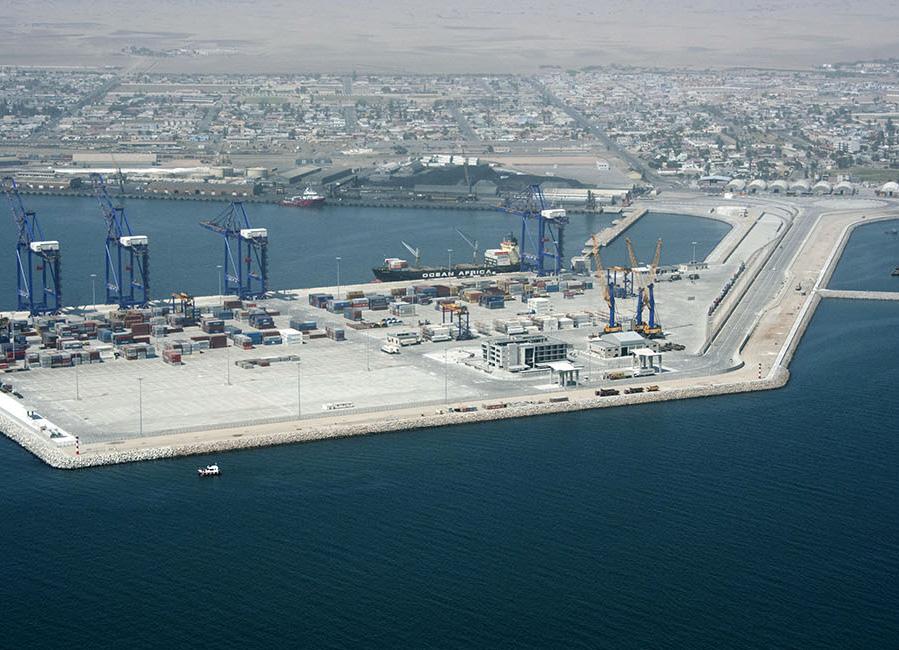
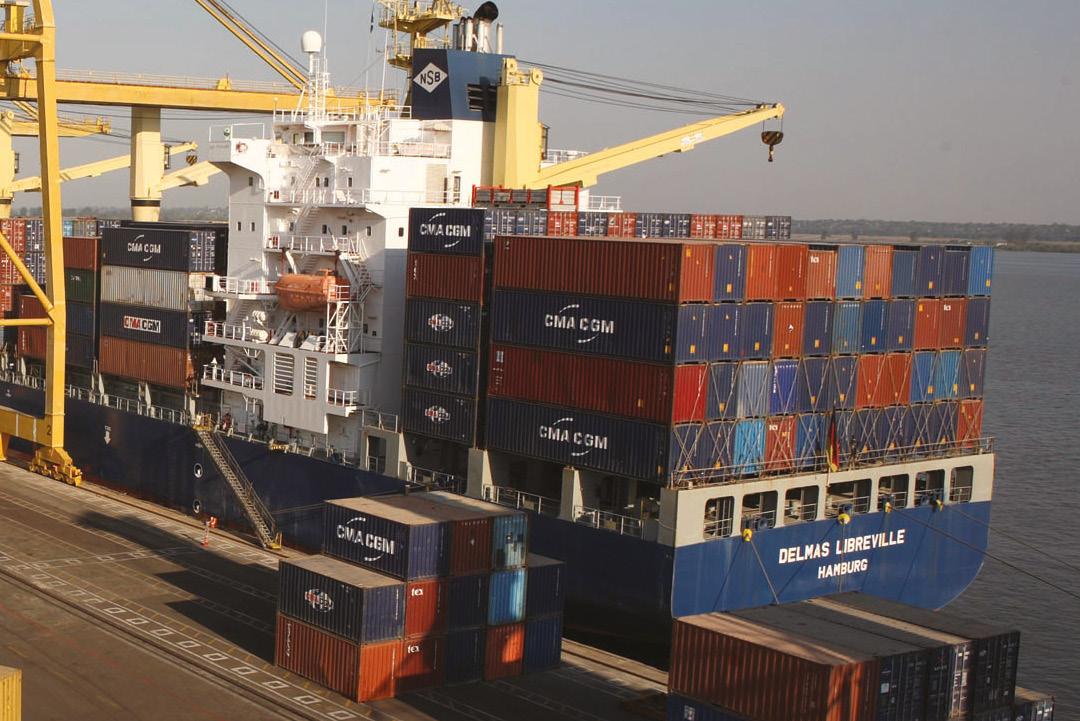

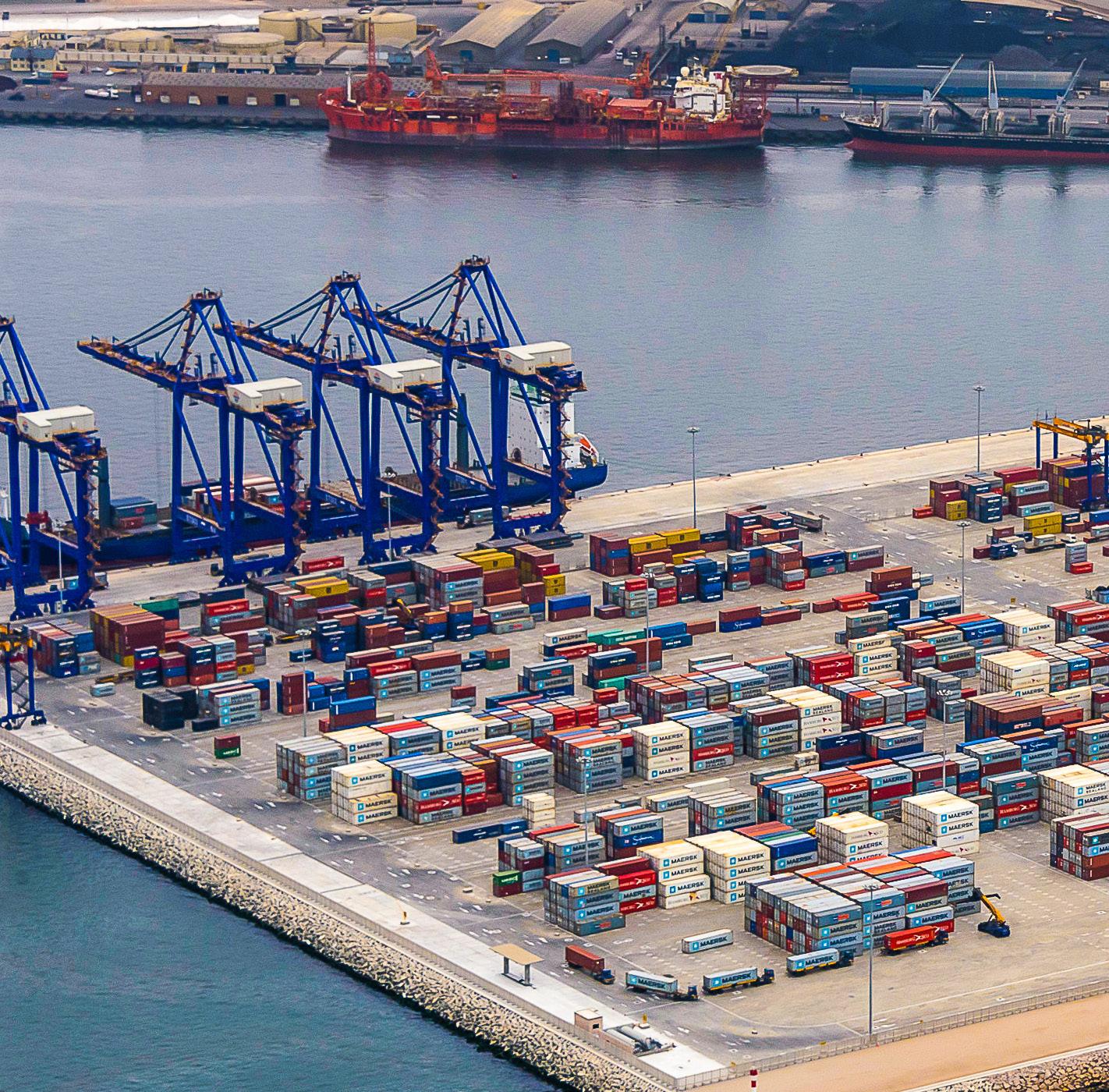
With a view to promoting regional cooperation and integration, we discover how PMAESA is strengthening relations among member ports with Secretary General, Col. Andre Ciseau
AO: Since inception, how has PMAESA developed and progressed in terms of its key objectives and the messages it tries to get across?
Andre CiseauSecretary General, Col., Port Management Association of Eastern and Southern Africa (PMAESA)
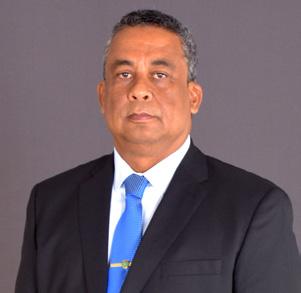
AC: Empirical evidence and studies have rightly pointed out that African ports will require huge infrastructure development and investment as the continent hosts the youngest and fastest growing populations. Maritime gateways, both existing and greenfield, will have to be prepared to handle an influx of cargo and services by 2030.
Africa Outlook (AO): Could you talk us through the origins of PMAESA, how it came about, and its initial vision?
Andre Ciseau (AC): The Port Management Association of Eastern and Southern African (PMAESA) was established in April 1973, under the auspices of the United Nations Economic Commission for Africa (UNECA), following a recommendation made at a meeting of the African Ministers in charge of transport, held in Tunisia in February 1971. The idea behind the formation of the regional Ports’ Association was to, inter-alia, build consensus amongst members.
The Association offers an appropriate framework for the exchange of information and ideas amongst members and to create an enabling environment whereby members can interface with one another in the port, transport and trade arenas to exchange benchmarks and best practices.
Additionally, oil and gas discoveries, mining, political change and the opening up of economies as well as increasing global interest in Africa’s growth potential are driving increased demand for infrastructure. In West Africa, Nigeria, with its growing economy and significant population, continues to spread its commercial interests. In the South, while growth in South Africa remains subdued, its infrastructure expansion plans, particularly in the power and transport sectors, are significant. Recent discoveries of natural resources in Mozambique, Namibia and Botswana will drive regional and corridor-type infrastructure developments.
Ports in the region can no longer operate in isolation or serve nationalistic tendencies. The silo mentality has seen the continent undergo disjointed infrastructure planning and investment. Ports are tightly integrated in the socio-economic aspirations of landlocked countries which they serve.
Sea ports are becoming parts of economic clusters supporting various related activities from adding value to export commodities by hosting Special Economic Zones (SEZs).
Intermodality is slowly but surely taking centre stage in the region. We are seeing more and more railway line project developments coming up in East African countries. This will alleviate pressure on road networks (which are costly to maintain) and reduce greenhouse gas emissions as rail can move more cargo per distance travelled.
We are seeing more membership interest from the private sector (both within and outside of the continent). We believe the private sector brings business acumen and technical expertise to the fragmented transport sector as national governments grapple with unprecedented global events such as the COVID-19 pandemic, trade wars and global economic downturns.
Private port operators are driving efficiencies in West African ports better than those at Eastern and Southern African ports, which are predominantly
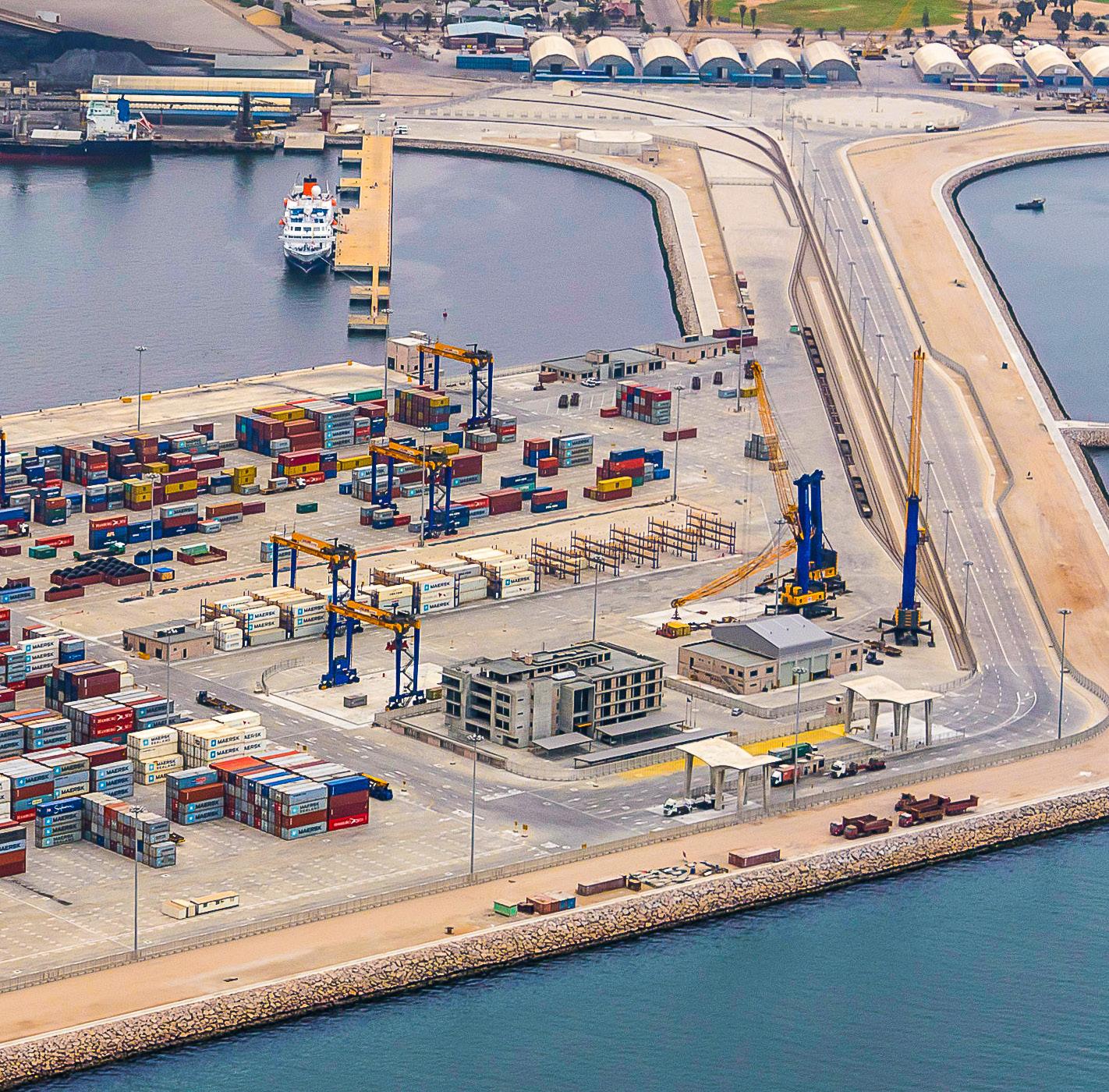 Namport, Walvis Bay
Namport, Walvis Bay
government owned and operated.
A number of global port logistics trends have emerged in recent decades, including the emergence of ‘hub’ ports, which facilitate dominant volumes of global trade in and out of a region. In Africa, the trend is gathering some momentum. However, this is challenged by lower cargo volumes relative to other parts of the world, poor port performance, hinterland dominance focused on certain ports, and global shipping routings that have not replicated the hub-and-spoke model more commonly found in other parts of the world.
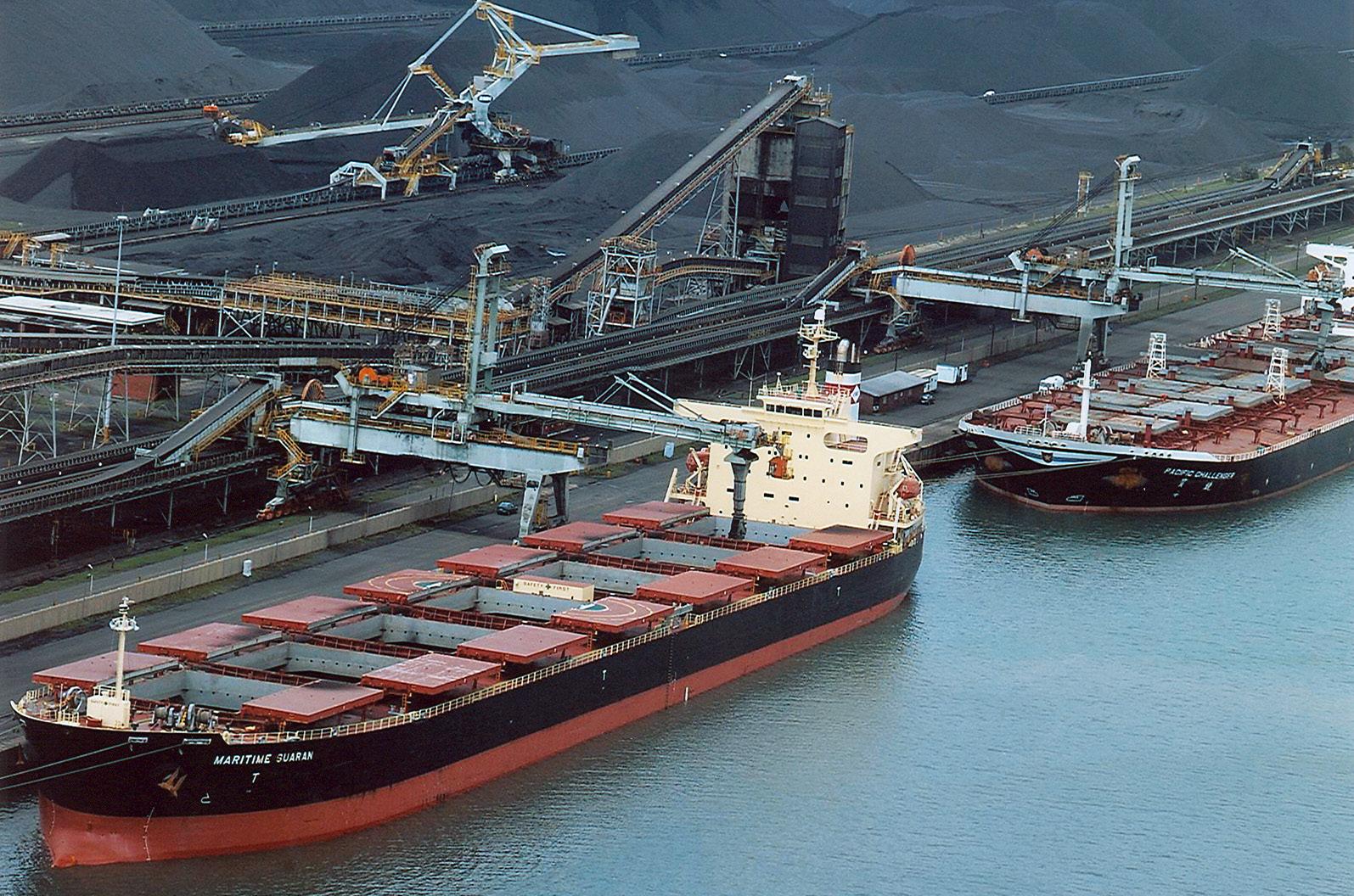
AO: What do you find most exciting about the port logistics industry across Eastern and Southern Africa?
AC: The young and skilled population is more exposed to global current affairs. I am sure this will sensitise them to be better regional citizens and think broadly about the region’s socio-economic gaps.
There is increasing competition between ports. However, each country has tended to protect their investment by channelling trade through their own ports, regardless of the economic consequences of
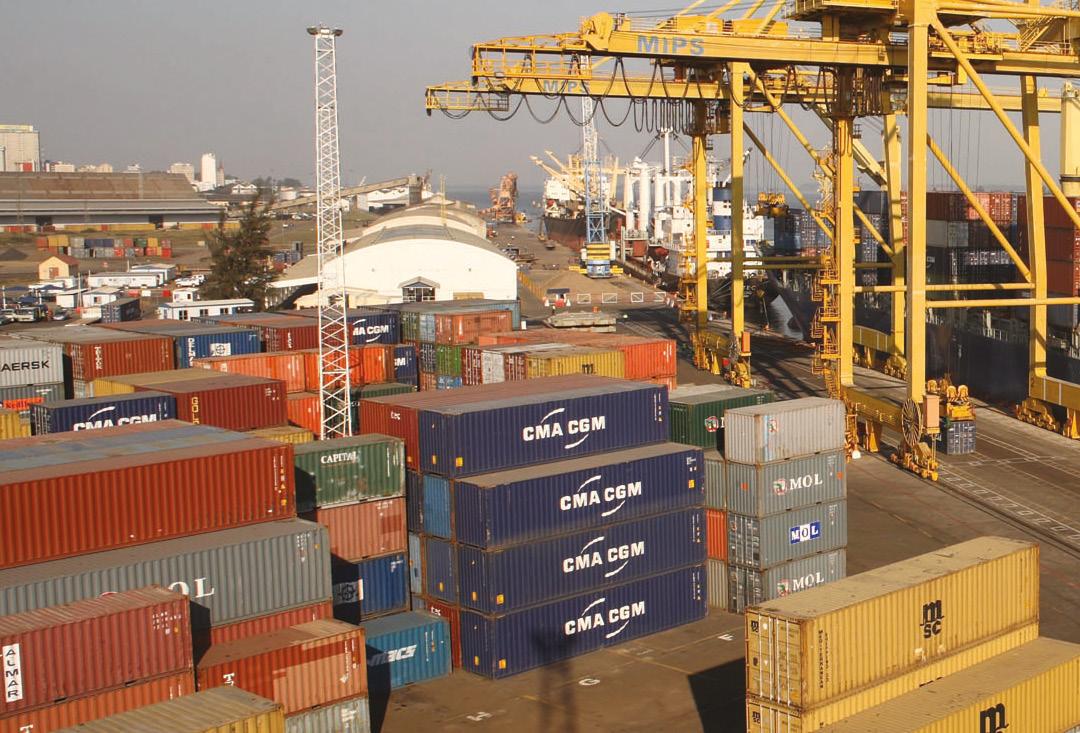
the price of imported goods and the cost of exports. Port management models are gradually shifting in the region. Port Authorities are building internal human resource capacities biased towards datadriven decision making which were previously skewed by political over-reach.
Uptake of ICT and digitalisation of port operations is currently a mega-trend according to UNCTAD. This was brought sharply into focus due to the COVID-19 pandemic.
AO: On the flip side, what are the biggest challenges it currently faces?
AC: Poor diversification of economies. Extractive and natural resource industries remain the main
– COL. ANDRE CISEAU, SECRETARY GENERAL, PMAESARichards Bay, Coal Terminal
economic drivers; this limits growth, job creation and the multiplier effects on infrastructure investments, sustainability and country competitiveness.
The inflated cost of logistics, power and bureaucratic red tape increases the cost of African products and the cost of doing business in Africa. Transport and logistics costs total between 35 and 42 percent of production, compared to eight percent in Asian countries.
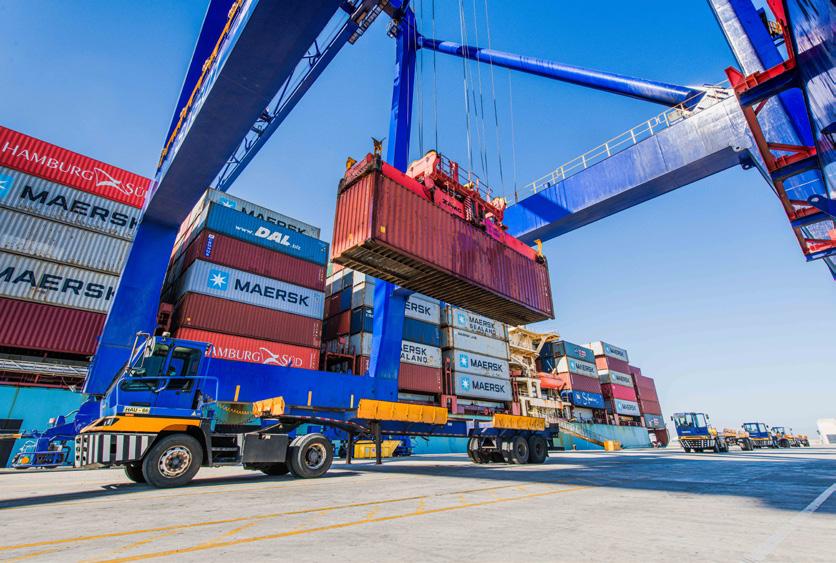
The region, for all its growth potential, trade liberalisation policies and skilled population is still largely import-centric. The EAC (East African Community) Trade and Investment Report (2020) reveals EAC exports globally stood at $6.2 billion in 2020 while imports at $35.6 billion, registering a negative balance of trade of $19.4 billion.
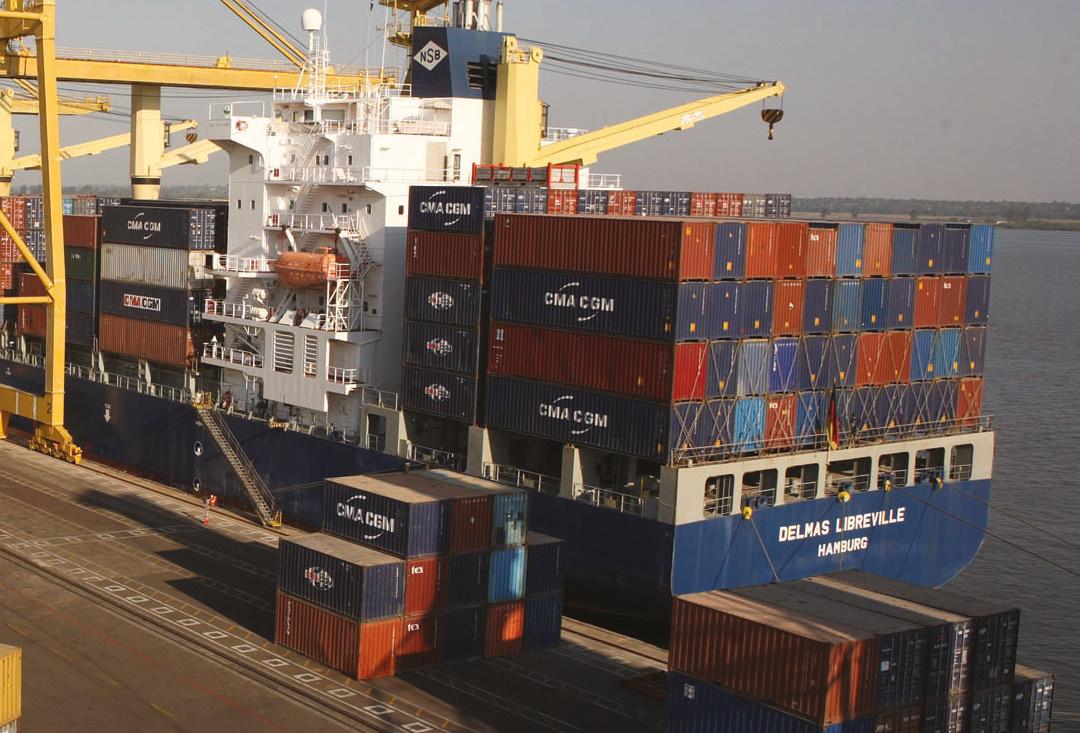
There is also low intra-African trade and consumer market fragmentation – intra-African trade is between six and eight percent, compared to Asia and Europe at 28 percent and 60 percent respectively.
AO: Has the association got any projects in the pipeline you wish to highlight?
AC: We are building human resource capacity,
which seeks to nurture and train professionals in African ports. In addition, we are looking to establish a regional maritime single window for the Western Indian Ocean region, to enhance maritime connectivity. The safety of navigation in inland waterways is also being enhanced, especially in the African Great Lakes Region (AGLR).
AO: How do you see the port logistics sector developing across the region within the next five years or so?


AC:
• Accelerated shift to intermodality as railway networks are fully developed.
• Enhanced uptake of ICT and digitalisation.
• More intra-Africa trade supported by the African Continental Free Trade Area (AfCFTA).
Tel: +254 238 1184 pmaesa@pmaesa.org www.pmaesa.org
 Namport Port of Walvis Bay
Namport Port of Walvis Bay
Zambia’s manufacturing sector has undergone a number of changes over the last half a century.

From private ownership to state-led import substitution and subsequent deindustrialisation, the contribution of manufacturing to Zambian gross domestic product (GDP) proliferated from 10 percent in 1971 to an impressive peak of 37 percent in 1992.
As manufacturing in Zambia prospered, however, the country’s economy as a whole was in sustained decline; in response, the Zambian government shifted towards liberalised trade and a privatised economy.
The intent of this shift was to drive, restore, and sustain growth in the country’s declining economy through the private sector, with the government to remain a mere facilitator of a conducive business environment. However, liberalisation and privatisation ultimately came at the expense of the thriving manufacturing industry, and stifled its steep
upward trajectory.
Indeed, following the withdrawal of government subsidies to parastatal companies, manufacturing’s contribution to Zambian GDP has continued to decline at a steady rate, contributing a modest 8.1 percent to GDP in 2019.
Owing to this downturn, policy measures have since been put in place by the Zambian government as part of “Vision 2030”, to revive the sector, support its diversification, and create jobs.
By the end of the decade, manufacturing as a priority sector is to be technology-based, exportfocused, dynamic and competitive according to Vision 2030, with effective entities that add value to locally abundant natural resources. Tech-based and export-focused manufacturing is at the heart of Vision 2030’s economic development plan, to transform Zambia into a prosperous middle-income country.
After decades of steady decline, there are ambitious aspirations to return the manufacturing sector in Zambia to its former glory
With less than eight years until 2030, however, growth targets are increasingly under threat.
Exacerbated by the COVID-19 pandemic, supply chains in the manufacturing sector have been adversely affected by recent border closures and changing consumption patterns, whilst other factors such as low capital outlay and a high-cost business environment have further constrained growth.

To effectively position manufacturing to meet aspirations for 2030, especially during these tough times, improved interaction and dialogue are
required between manufacturers and various policymaking bodies. Transformation goals need to be defined and agendas and strategies implemented through improved economic governance, to promote interaction and grow the manufacturing sector.
Likewise, increased interaction between academia and industry is needed to address the challenges associated with skills mismatches, the cost of doing business has to be reduced, and an export-oriented business environment has to be greatly enabled.
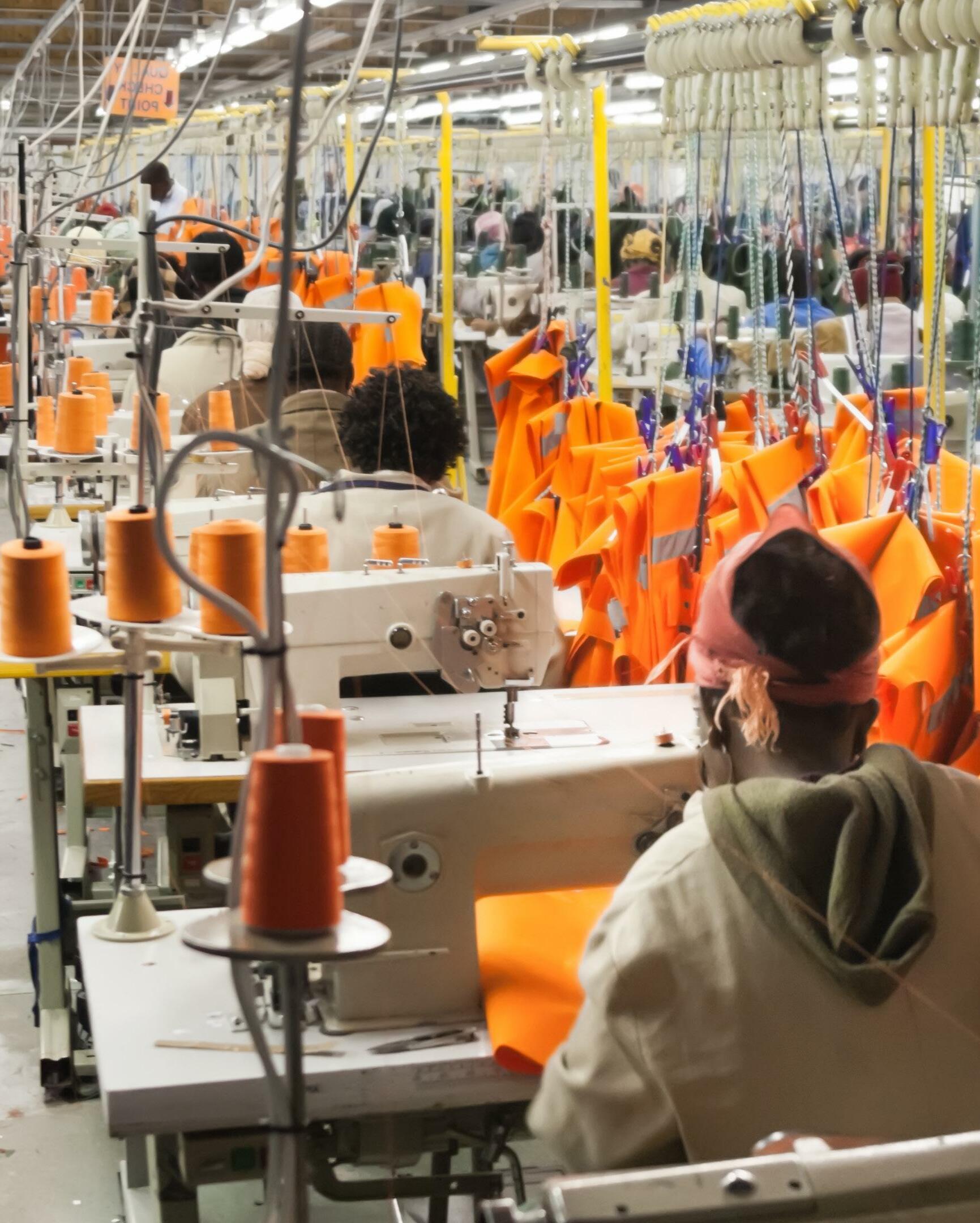
ZAM is facilitating and promoting the growth of an efficient, modern, and conducive manufacturing sector in Zambia. President, Ashu Sagar, highlights the need for dialogue and adding value for members
Africa Outlook (AO): Firstly, could you talk us through the origins of the association?
Ashu Sagar, President (AS): The Zambia Association of Manufacturers was established in 1985. It was a loose association at the time when there was hardly any regulation in terms of associations. It was registered officially with the Registrar of Societies in 1996 and the Secretariat was established in 2009 to run the affairs of the association.
The whole idea was to create an association that looks after the interests of manufacturers in Zambia, as in many regional countries, national manufacturing associations push the agenda for manufacturers.
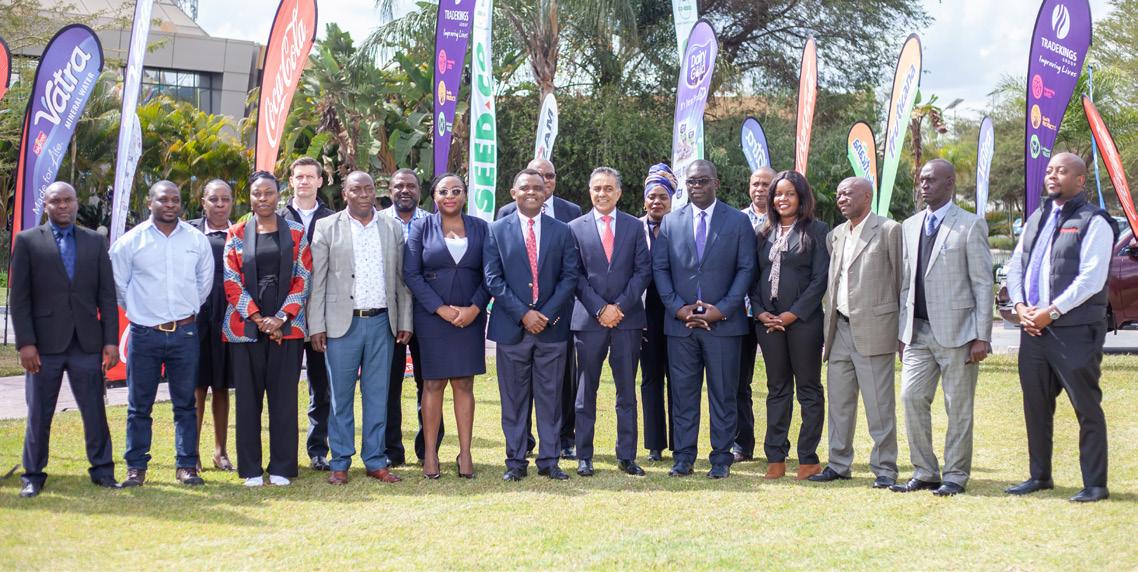
Because manufacturing is generally very capital intensive, you have to differentiate yourself from the normal business or commerce side of the economy. Our needs and wants are basically different to a general business, so that was the main vision in terms of making sure we were firm on lobbying with the government, looking after manufacturers’ interests to make sure the industry progresses in the country.
Around the mid-1980s to 1990s, the manufacturing sector started to taper off and was really in the doldrums. This was when ZAM started trying to steer government policy in the right direction, hence it was registered as a fullyfledged association in 1996.
AS: Progress wasn’t fast-paced until around the last six years. When you’re lobbying government and you find that some governments are not sensitive to private sector needs, you have to be very politically correct at times.
That was a problem I think we faced in the past, where we had to be very politically correct in what we were asking for and tried as much as possible to get our message across without ruffling any feathers, so to speak.
The rate of progress just depends on the environment you operate in; right now, there are two-way conversations with government discussing the way forward, and things are actually moving in the right direction.
AO: What do you find most exciting, and challenging, about the manufacturing sector in Zambia?

AS: Zambia has been a challenging environment. We think outside the box at times for solutions that you would not think of in a normal, stable economy.
There are definitely challenges that have been brought about by the mismanagement of the economy. In the past, you would find that policies were not right for generating investment and reinvestment into growing your business.
The sector has its challenges, but when you see that you’re beginning to score successes in your dialogue with the powers that be, you definitely feel that things are moving in the right direction.
Times are exciting when things start happening, when you start pushing a policy, and you start getting traction from government to see sense in what you’re proposing. For example, during the COVID-19 pandemic, we talked to government about suspending import duty under statutory instrument (SI) 110, and they listened.
These are some of the most trying times in living memory, with COVID-19, energy and fuel prices climbing, the cost of raw materials rising, shipping rates going up, and so on. Zambia is mostly an import-based economy when it comes to manufacturing, and shipping rates in the last 12 months have almost doubled in some cases, so it’s very hard to remain competitive when the dynamics of the external environment in other economies begin to affect you.
It has hindered the growth of some of our members, but they’re back on their feet. Most of our manufacturing companies are very young, but they’ve ridden the storm and come out with the ability to carry on, reinvest, and grow.
AO: How important is it to enable a conducive business environment for Zambian manufacturers?
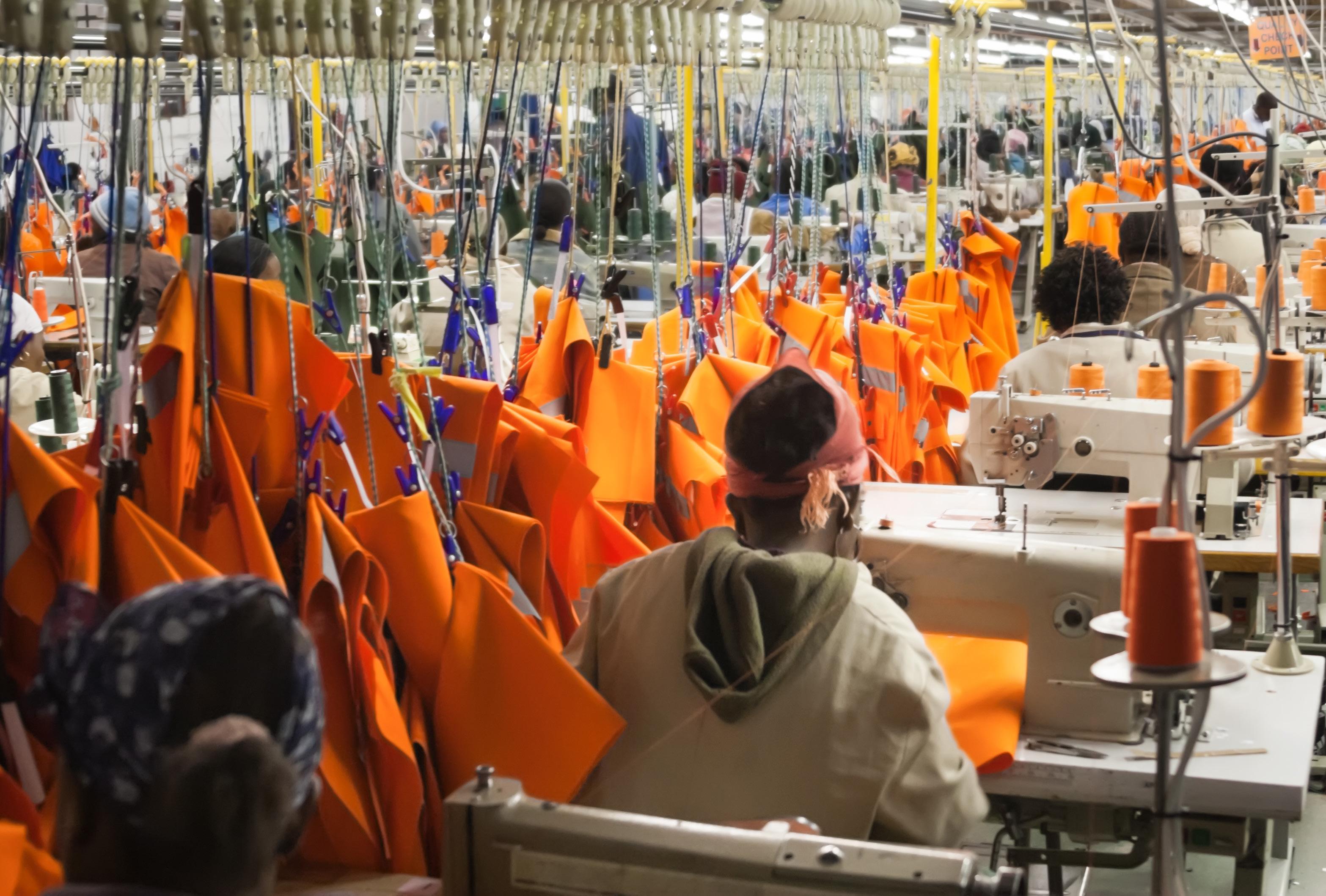
AS: For any manufacturing sector to grow in any country, not just Zambia, there needs to be an enabling environment. This comes mostly from what I would term as differential policy, which means giving manufacturing its own sector importance.
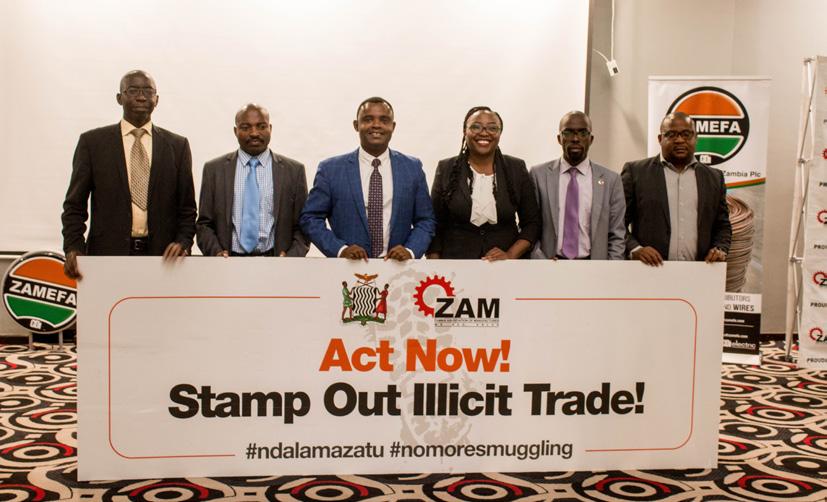


There is a need for policy that enables value creation because it is the base of any manufacturing industry. There’s so much that is part of the equation, so an enabling environment is key as it encourages companies to grow their businesses.
As a consequence, the government will also benefit from increased tax revenue that will be realised from the growth of business. Additionally, more people will get jobs and be able to support their families, thereby reducing the poverty level among citizens. Happily, at the moment, there is enough engagement and positive reception towards some of the things we’re suggesting.
AO: Has the association got any projects in the pipeline you wish to highlight?
AS: When we look at the association, we have continuous projects that add value and build capacity for our membership. It has a lot to do with enhancing the understanding of manufacturing.
We have MOUs in place with a number of institutions, which for example will allow companies to go green, and enhance their capacity to raise finances because they’ve gone green. We’re also going to start building our own premises in one of the main economic zones in Zambia.
AO: How do you see the association developing over the next five years?
AS: Growth for us is about membership numbers, and we have been growing over the last three years. We’ve seen our membership double, and an association like ours only grows by demonstrating value for a member.
We have demonstrated value because we are able to deliver on certain aspects of the needs of the manufacturing sector. In the next five years, we’re hoping for that growth to continue in terms of membership numbers. We’re hoping for wins in terms of lobbying government, and we’re hoping to have a policy change in the way we are able to invest and reinvest back into the country.
With our efforts, we want to create a foundation for job creation, wealth creation, and value creation in Zambia through the manufacturing sector.
AO: Finally, are you optimistic about the growth of an efficient and modern manufacturing sector in Zambia?
AS: A lot of our members are quite far ahead in terms of manufacturing technology. However,
there’s a lot that companies in Europe, for example, are doing much better and have new technologies in place. When the investment climate is right, this is where you see joint ventures between Zambian manufacturers and overseas companies with technological expertise.

What has been hindering us is this little dark cloud over Zambia, the idea that it isn’t an investment destination, but now we’re beginning to see that it is. Plus, local manufacturers are also beginning to see reason to reinvest, so efficient and modern manufacturing in Zambia will only grow.
It’s a dynamic environment at the moment, especially with the African Continental Free Trade Area (AfCFTA). We have to make sure our products are competing with the likes of South Africa and Kenya; their manufacturing sectors are ahead of ours and we must accept that, but it doesn’t mean we can’t do better. You can come back and show that what you’re doing is better than your competitors.
Tel: +260 211 253696
Fax: +260 211 253693 info@zam.co.zm www.zam.co.zm
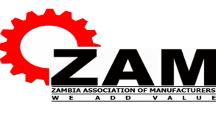
Kenya’s built environment is shaped by a host of architectural firms across the country, who envision the ideas that contractors and construction specialists bring to life.

The country’s construction industry is a thriving sector, and one of the few that actually witnessed an expansion during the course of 2020. According to a report by Business Wire, this expansion is only set to continue throughout 2022 to 2025 as Kenya’s infrastructure undergoes rapid growth and development.
Such projects in the built environment pertain to commercial, residential and infrastructural
developments in the public realm, as seen with the upcoming construction plans for the new Central Railway Station in Nairobi. Architects will continue to be at the backbone of this ongoing demand.
As with architecture across the globe, buildings are increasingly incorporating environmentallyfriendly techniques and resources. This flourishes in line with an aesthetic preference for modern, minimalistic structures that combine both design and functionality.
Modern trends in the African architectural space centre on a reverence for materials and styles that hearken to their national heritage, using a building
to celebrate its continental roots. Such native ecomaterials might include clay, or even coconut leaves used to clad a structure.
The world-renowned Pritzker Architecture Prize has acknowledged Africa as a destination that hosts some of the best architecture in the world, thanks to the combination of creativity, functionality and innovation. This is evidenced by the Burkinabe architect, Diébédo Francis Kéré, who in 2022 became the first African and Black architect to
win the prize. Kéré himself has worked on some landmark projects in Kenya, including the Startup Lions ICT Campus in Turkana – an iconic design inspired by the shape and structure of termite mounds.
Major Kenyan firms in the architectural space, such as S. K. Archplans, TRIAD Architects, and Beglin Woods, are consolidated through membership within the industry body uniting the field and advocating for global best practices.

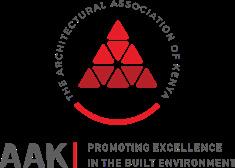
A brief overview of the industry body dedicated to advancing East Africa’s architectural landscape
Established in 1967, the Architectural Association of Kenya (AAK) is Kenya’s leading association for professionals in the built and natural environment, incorporating architects, quantity surveyors, town planners, engineers, landscape architects and environmental design consultants and construction project managers.
The association is registered under the Societies Act and brings together professionals from the private sector, public sector and academia. AAK also acts as a critical link between professionals and stakeholders in the construction industry, including policymakers, manufacturers, real estate developers and financial institutions.

Centred on the core values of transparency, service delivery, teamwork, professionalism and innovation, AAK endeavours to be the leading professional organisation in Kenya’s built and natural environment.
AAK works with an esteemed roster of partners, including the Africa Association for Quantity Surveyors (AAQS), the International Federation of Landscape Architects (IFLA), the International Project Management Association (IPMA), and the Africa Union of Architects (AUA) to name just a few.
The association has been recognised with awards of excellence for a host of iconic construction projects across Kenya, as seen with the Lamu Apartments, Enshapai Resort, The Hub Karen, and the Swahili Gem.
At present, AAK numbers over 5,000 members encompassing the private sector, academia, and government. With the new Kenyan government now in place, AAK is concerned with the #KenyaWeWant campaign, which identifies issues across the sector that will need to be prioritised by facilitating an open platform for dialogue across the industry. Key issues within this include climate justice, sustainable urban
• To co-ordinate the activities of professionals concerned with the built and natural environment in Kenya, promote professional integrity and to direct the members of the association in all matters of professional practice.
• To advance the science and art of planning and building by developing the standards of professional education, training and practice, and facilitate matters of mutual interest of the member professions.
• To create public awareness by marketing the services of member professions and providing professional opinions on matters pertaining to violation of the statutes provided for good maintenance of the built and natural environment.
• To establish and accredit continuing professional development programmes for the members of the association and encourage collaboration of professionals and societies engaged in the built and natural environment.
• To offer community services by participating in the enhancement of the built and natural environment, maintaining building information services, and monitoring quality assurance on materials.
• To liaise with the government and regulatory agencies on the matters affecting the registration and licensing of the professionals engaged in the built and natural environment.
• To foster national, regional and international co-operation in matters dealing with the professions related to the built and natural environment.
• To maintain and protect the heritage of the built and natural environment.
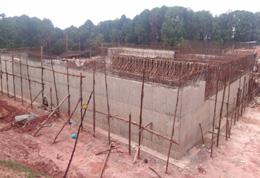


• To facilitate research and dissemination of information for the advancement of professional education, training, and practice.
• To publish documents and publications for the benefit of the members of the association and the general public in matters of the built and natural environment.
• To create revenue generating activities for the association.
Rokas is the leading independent distributor of construction chemicals in East Africa –selling over 9,000 product lines to builder’s merchants, civil engineering, groundwork, building and specialist contractors.



growth, improving the business environment, urban mobility, and reformed urban governance.
In its commitment to building an environmentally sustainable future for Kenya, AAK has recently launched the Safari Green Building Index. An initiative wholly owned and devised by the association, this is an industry-leading critical rating tool that has undergone rigorous reviews by a host of industry experts.
The Safari Green Building Index was developed by the Technical Committee of AAK’s Environmental Design Consultants (EDC) chapter. As a national rating system, the tool can be applied to any kind of building within Kenya’s different climatic zones, and beyond into other East African countries.
AAK also champions the environmental cause by hosting events, where industry players can network and discuss such topics, as seen with the CPD Event to be held on 29th September 2022. Hosted by the EDC chapter, this exclusive event is dedicated to the topic of working towards waste management efficiency throughout the built environment and identifying future opportunities for improvement.
AFRICA OUTLOOK is a digital and print product aimed at boardroom and hands-on decision-makers across a wide range of industries on the continent.
With content compiled by our experienced editorial team, complemented by an in-house design and production team ensuring delivery to the highest standards, we look to promote the latest in engaging news, industry trends and success stories from the length and breadth of Africa.

We reach an audience of 185,000 people across the continent, bridging the full range of industrial sectors: agriculture, construction, energy & utilities, finance, food & drink, healthcare, manufacturing, mining & resources, oil & gas, retail, shipping & logistics, technology and travel & tourism.



In joining the leading industry heavyweights already enjoying the exposure we can provide, you can benefit from FREE coverage across both digital and print platforms, a FREE marketing brochure, extensive social media saturation, enhanced B2B networking opportunities, and a readymade forum to attract new investment and to grow your business.
To get involved, please contact Outlook Publishing’s Managing Director, James Mitchell, who can provide further details on how to feature your company, for FREE, in one of our upcoming editions.


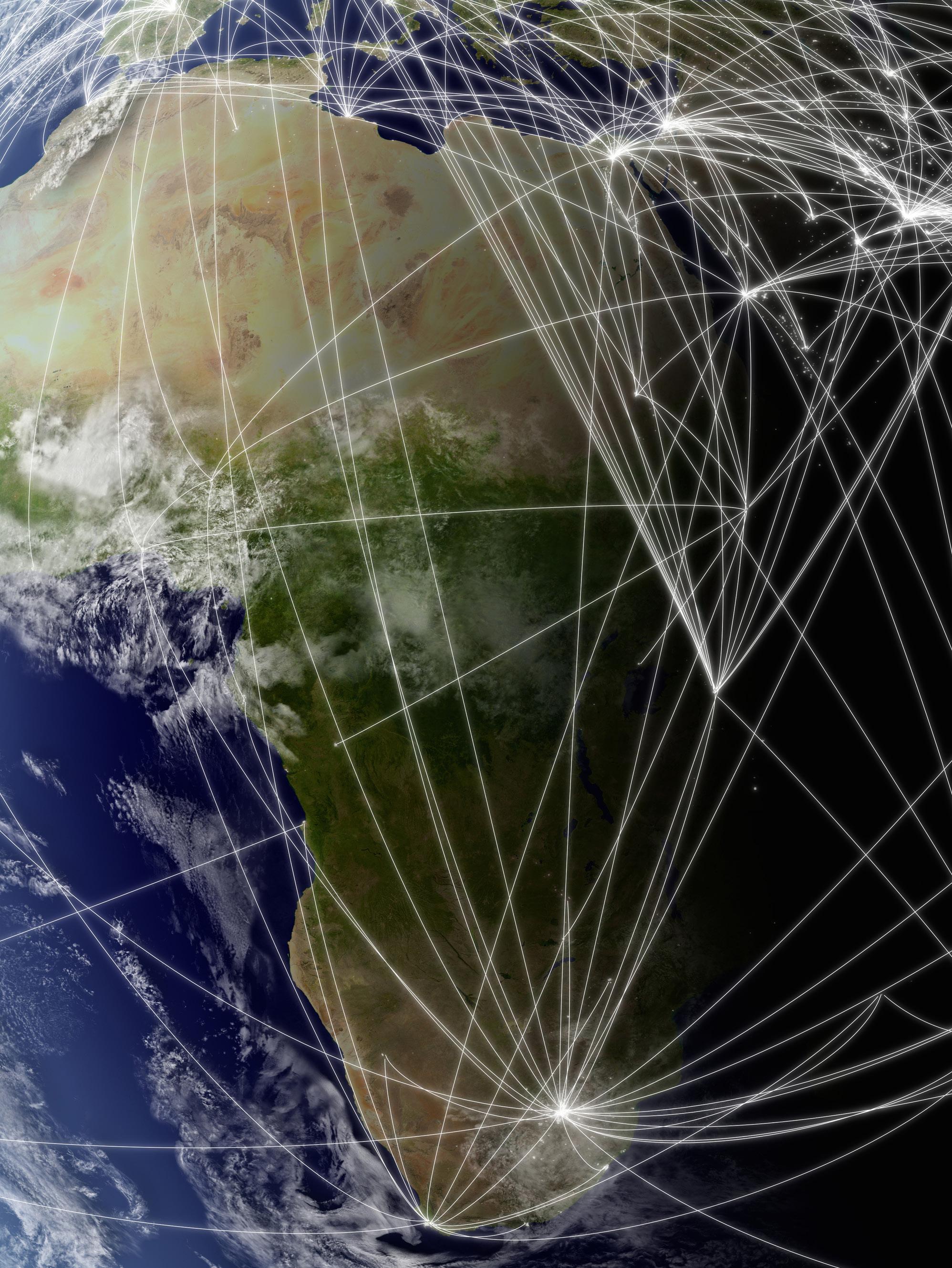



Bullish about prospects for one of South Africa’s most important industries, Kobie Pruis, CEO of Zizwe Opencast Mining, discusses mining services amid the surge for commodities

Writer: Jack Salter | Project Manager: Joshua Mann

Mining remains an integral economic pillar in South Africa.
In 2021, the sector contributed R480.9 billion to South African GDP, R78.1 billion in taxes, and employed close to half a million people, as the continent’s second-largest economy slowly recovers from its biggest contraction in a century.
Prospects for the mining industry had been blighted by decades of diminishing output and the reluc tance of investors to build new mines. However, record mining company profits and bolstered government rev enue has been generated by a surge in the demand and price of commodities.
“The South African mining industry is healthy, with promising commodity prices,” opens Kobie Pruis, CEO of Zizwe Opencast Mining (Zizwe).
“Demand for coal, for example, has increased as a result of the war in Ukraine, and coal prices are soaring which is resulting in big
opportunities in South Africa. In general, commodities are doing well, which makes mining very attractive in the country.”
Mining will play a significant role in accelerating South Africa’s recovery from the COVID-19 pandemic and its subsequent slump. Indeed, when the economic fortunes of South Africa dip, the mining industry typically takes centre stage. It is often the difficult times that truly shape us, and as those in the mining industry know, heat and pressure reveal something of true value.
Prices for most of South Africa’s exported metals, such as gold, platinum and iron ore, are now as great as they were at the height of the last commodity boom in 2011; with peak global metals prices comes job creation and economic growth, and these prices have helped to sustain the South African economy amid the decline of hospitality and tourism as a result of the pandemic.
The mining industry has been one of South Africa’s bedrock sectors for decades. In 2021, it reached a R1 trillion industry high. Not only is its economic contribution to GDP and employment vital, it is also the economic anchor for numerous local communities across the nation.
The importance of keeping mines fuelled and operational can therefore not be overemphasised.
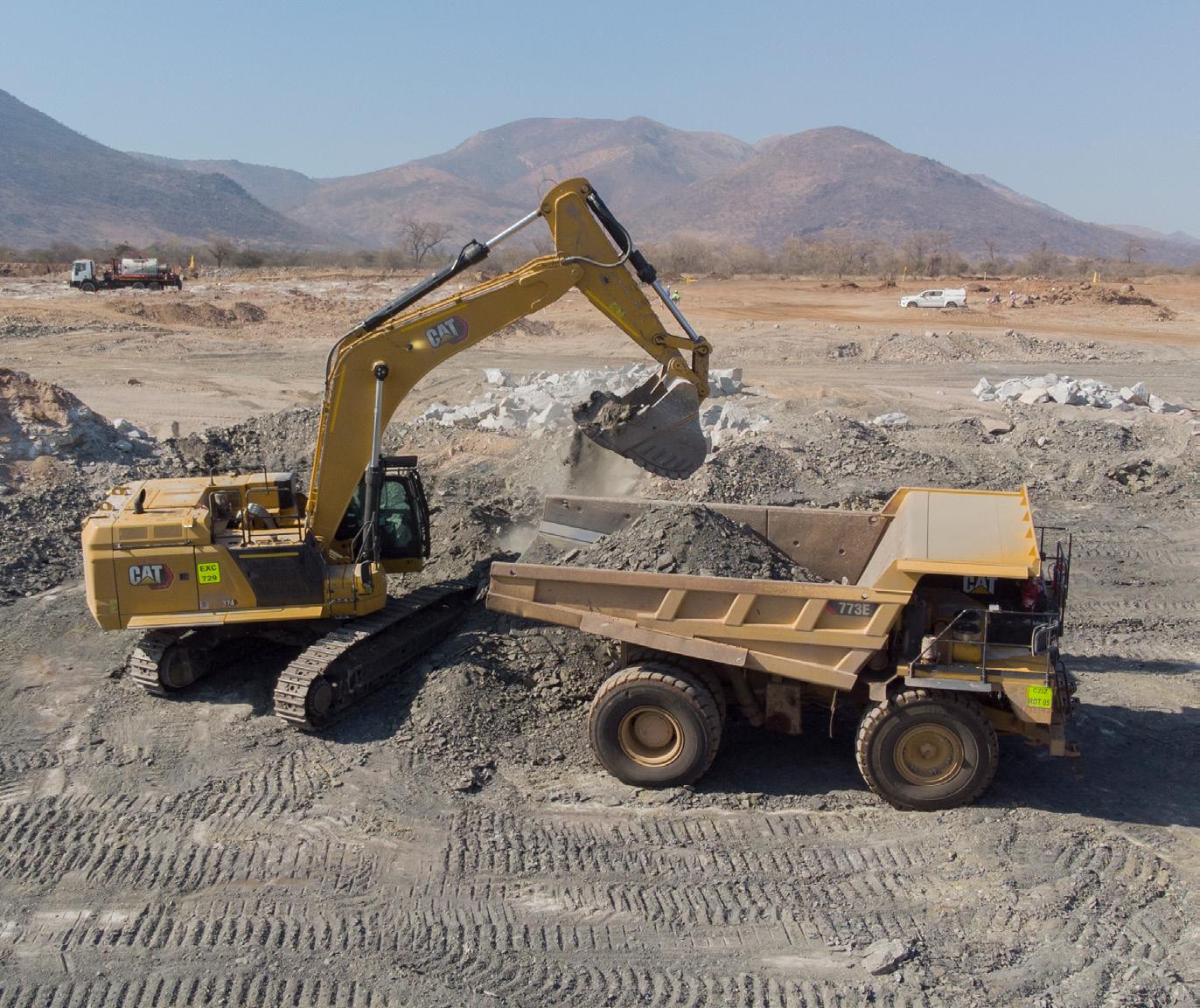
XFuels has been fuelling the success of Zizwe Opencast Mining, and related clients in the mining, agriculture, transport, construction, retail, and government industries since 2013.
“Our supply chain has been strategically structured to ensure that we optimally source from all major Refineries and Bulk Storage Terminals in the country,” explains Wynand Scheepers, Chief Operating Officer at XFuels. “This enables us to offer our clients a cost-effective all-inclusive solution throughout.”
As a Level 1 B-BBEE accredited fuel company, with extensive experience in the mining industry, XFuels offers its customers tailored solutions. Apart from benefiting from innovative equipment solutions, flexible payment plans and local content B-BBEE solutions – the company’s customers can also expect its Five-Star Guarantee. This includes, amongst others, guaranteed quality and compliance, uninterrupted fuel supply, a national footprint, excellent service, and unrivalled value.
Their fastidious partnerships with relevant suppliers and customers have enabled XFuels to build an incontestable reputation for being a reliable fuel supplier in South Africa. Their solutions span Wholesale Fuel Supply, Logistics, Retails Service Stations, and a very successful National On-Route Refuelling Solution. www.xfuels.co.za
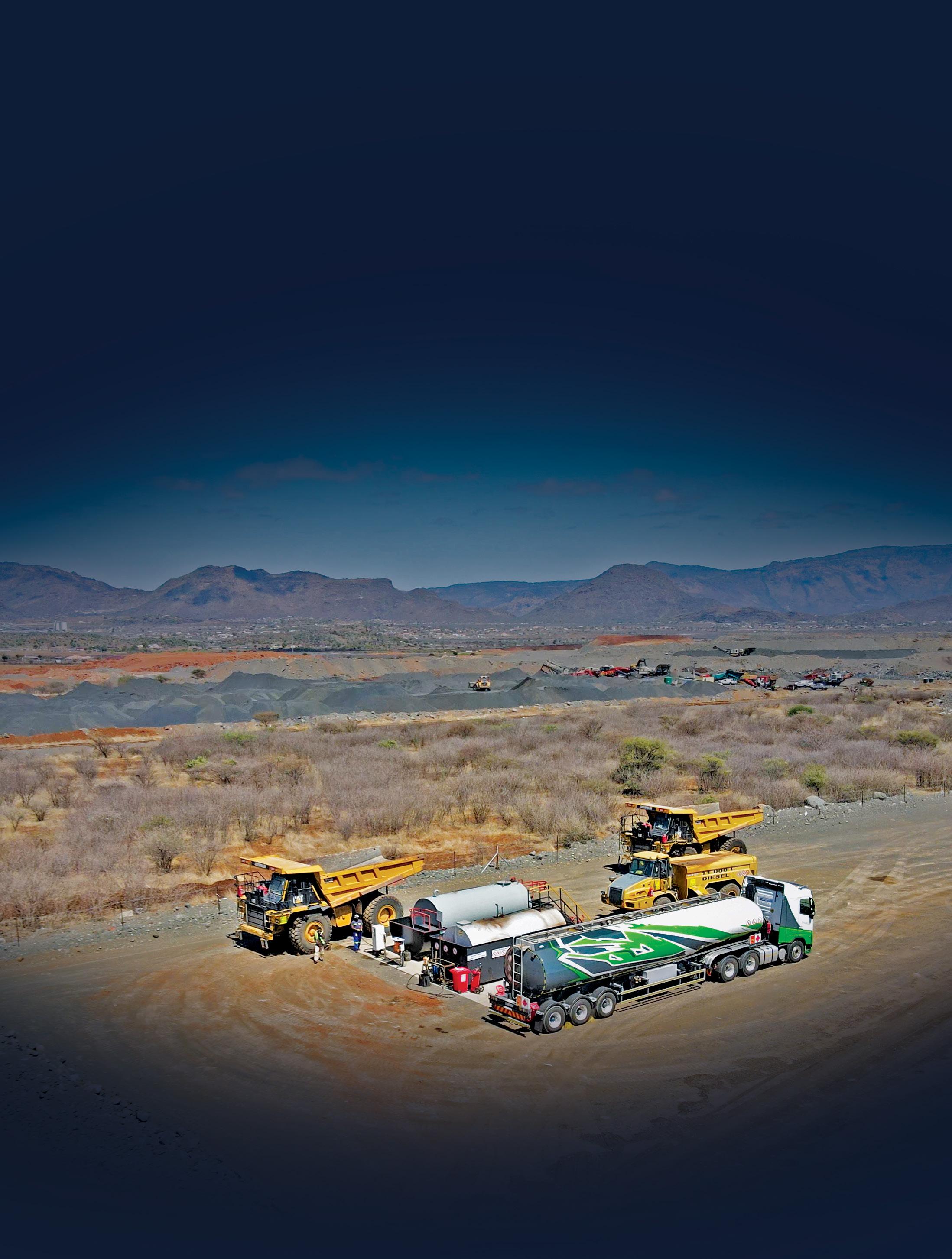
South Africa’s trade balance surplus has been increasing year on year, driven primarily by exporting minerals and precious metals, as well as the likes of transport equipment, chemical and agricultural products. High commodity prices, coupled with global demand, are good for the country’s economy, and the mining sector in particular.
Once the upward cycle in commodity prices comes to an end, however, South Africa needs to take advantage of new mining opportunities and support overall growth. Mining plays a dual socioeconomic role in South Africa, and grasping these opportunities can help pave the way to a more inclusive and equitable economy.
“Once government expedites mining licenses and funding for new projects, huge growth potential can be unlocked. I would like to see the barrier to entry of the mining industry lowered in South Africa, and
consequently make the market more accessible to its various role players,” affirms Pruis.
“It would be quite the intervention if government would expedite this movement in order to grow our economy. South Africa consists of various attractive investment opportunities, and we need to do our bit to capitalise on the traction that we are experiencing worldwide.”
Established in 2003, Zizwe, a South African mining services company, initially entered into a partnership with Fraser Alexander to offer bulk earthworks, bulk materials handling, and opencast mining services.
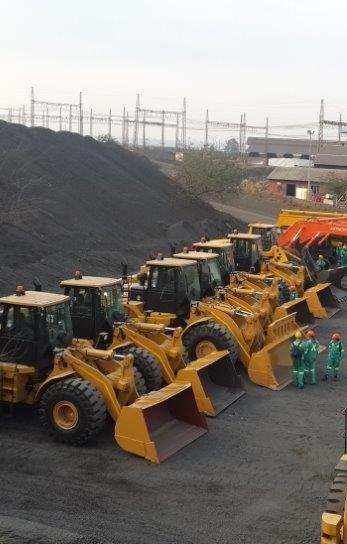

It was at Fraser Alexander where Pruis was first introduced to the mining sphere, having qualified as a civil engineer and worked for 14 years at Grinaker, a multi-disciplinary engineering and construction firm.
Sandton Plant Hire (Pty) Ltd is a South African company that was established in 1982. Under the guidance of its management team, the company has grown into an industry leader with operations not only in the plant hire industry, but also chrome smelters and open cast mining.
The company’s mission is to create and promote sustainable plant hire and mining solutions by focusing on efficiency, innovation and technology that meets the global commodities sector’s need for high production output.
Sandton Plant Hire (Pty) Ltd is committed to creating a sustainable future by not only promoting and supporting its financial performance, but also social and environmental issues.
The company attributes its success to its exceptional workforce talent and the support of the community. By working with the community, the company is able to cultivate a local talent pool that will enable it to satisfy its customer’s needs.
www.sandtonplant.co.za



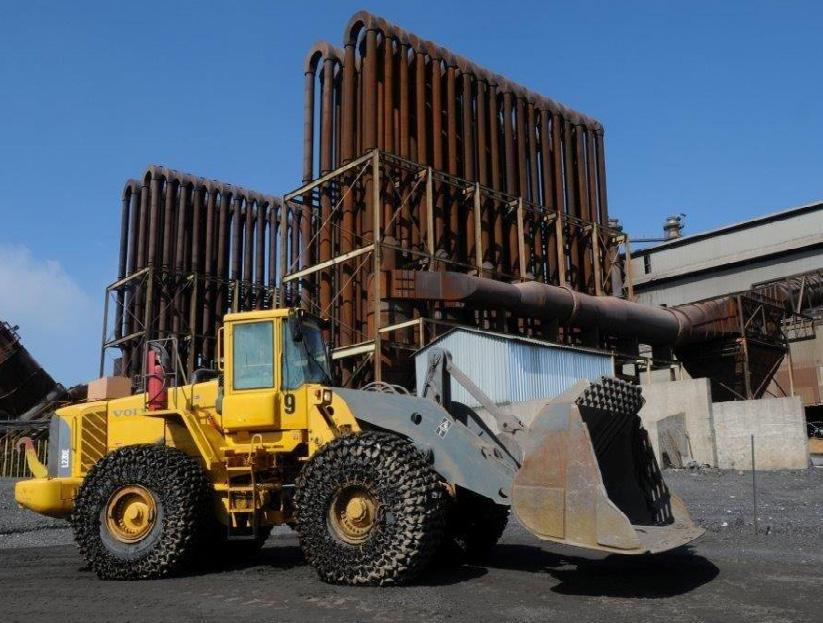
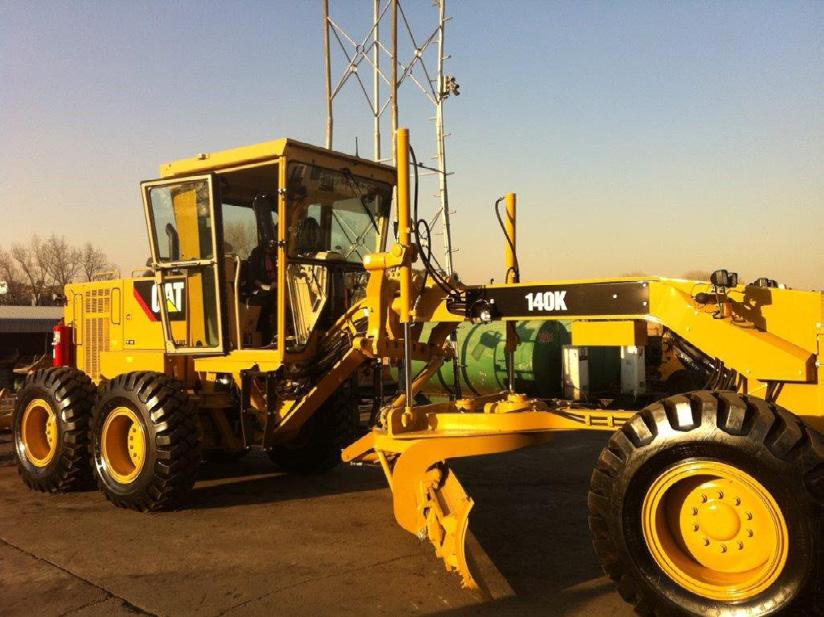
 – KOBIE PRUIS, CEO, ZIZWE OPENCAST MINING
– KOBIE PRUIS, CEO, ZIZWE OPENCAST MINING

Pruis soon realised the value that the mining industry presented, and pursued the opportunity to join Zizwe as part of a management team that currently prides itself on more than 150 years of combined experience in mining services.
“The founder, Howard Maimela, offered me shares in the company, and my job was to ensure an upward growth trend for the company; the rest is history,” he recalls.
In 2006, a strategic decision was taken to develop Zizwe into a major individual player as a mining services company. The business soon expanded beyond Steelpoort Valley in the province of Mpumalanga, and
acquired Fraser Alexander Bulk Mech in 2017 to increase its footprint in the coal market.
“Our service offering in chrome (60 percent), platinum (14 percent) and coal (26 percent) resources is executed in Limpopo, Mpumalanga, and the North-West provinces of South Africa, for major role players in the mining industry,” outlines Pruis, who cites large clients such as Anglo American, Glencore, Thungela Resources, Samancor, Seriti, Clover Alloys, Ntshovelo Mining Resources, and Wescoal.
On an operational level, Zizwe needs to stay up to date with new developments in the field. Today, the
company provides turnkey mining services across four divisions, namely opencast mining, bulk materials handling, crushing and screening, as well as drilling and blasting.
Zizwe’s turnkey opencast mining services and fit-for-purpose solutions comprise open pit mine design, planning, drilling and blasting, contract mining, mine closure, and the operational management of mining activities.
On most of its mining operations, Zizwe also carries out concurrent rehabilitation, with services including topsoil stripping and stockpiling, soil replacement, re-vegetation, land preparation and recreation, and more.
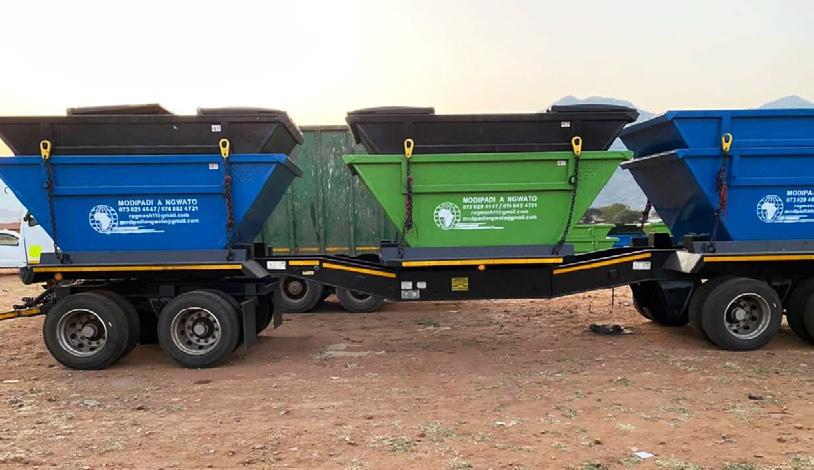
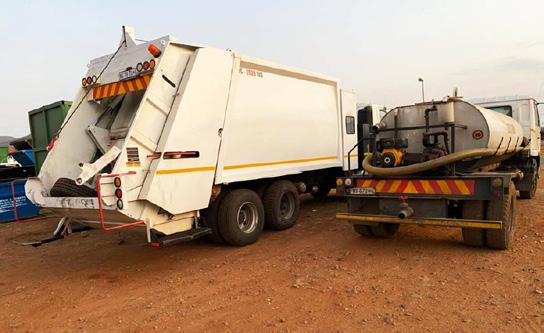

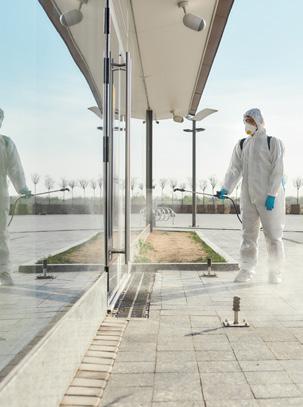
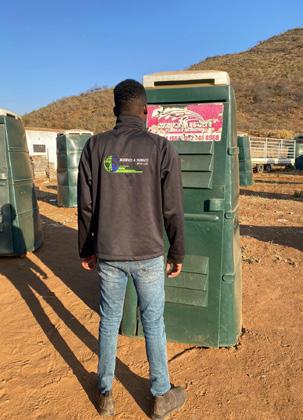




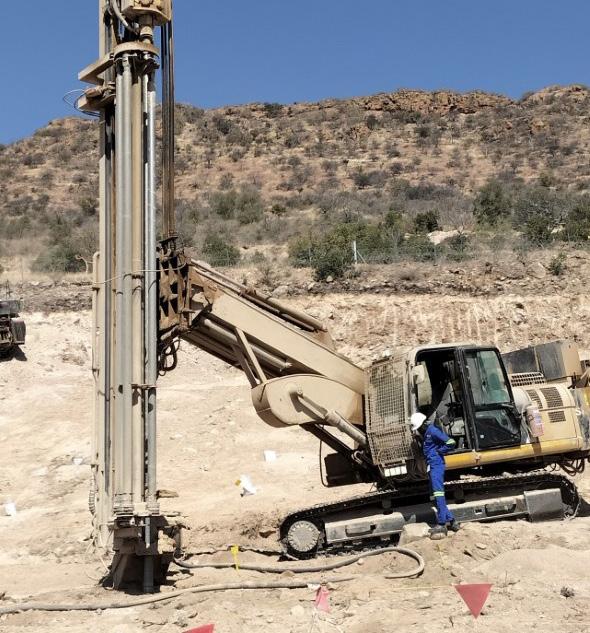
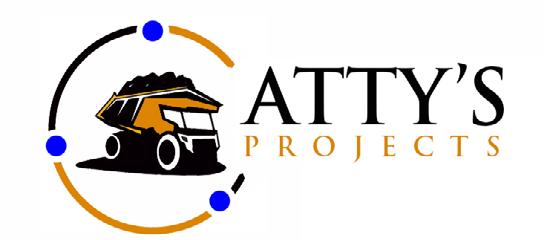

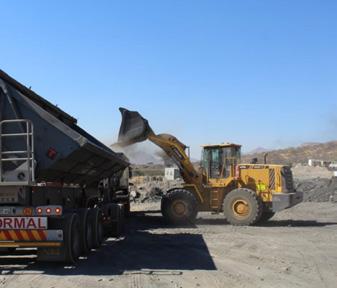
Bulk materials handling services offered by Zizwe, meanwhile, cover mining applications with materials handling and movement on current mining contracts, as well as cold applications such as the construction and maintenance of discard dumps/ ash storage facilities, and discard movement/handling.
Mobile, modular and static crushing and screening plants are also supplied, operated and maintained by Zizwe, whilst an extensive fleet of down-the-hole (DTH) and top hammer drill rigs provide a total DTH service solution.
Zizwe’s annual fleet replacement
programme is based on the expected life of these machines, calculated on the application in which the machine is working.
“For example, in a hard rock application, the machine will easily work for up to 15,000 hours with a residual of 20 percent, and in a softer application, it will work for up to 20,000 hours with the same residual and the same amount of money spent on repairs.”
Zizwe has established ways to incorporate corporate social responsibility (CSR) as an integrated
“OUR THREE-YEAR PLAN INCLUDES ACHIEVING TURNOVER OF R500 MILLION PER ANNUM, DRIVEN BY THESE NEW ENDEAVOURS”
– KOBIE PRUIS, CEO, ZIZWE OPENCAST MINING
Super Rock Drills designs, develops and manufactures water-well, blasthole, exploration, piling and post hole drilling rigs, as well as specialised units for specific projects.
A Super Rock rig is robust, reliable and simple to maintain. We aim to provide a quality rig at an affordable price, which is designed to make money for the end user and not cost him money to keep running.
Many a driller in Africa has worked with a “Super Rock” somewhere in his career.
You can comfortably invest your money with Super Rock Drills, knowing that you will receive a tried and tested product which will assist you in reaching stringent targets in a challenging industry.
Please contact Gé Jooste at ge@superrockdrills.co.za or sales@superrockdrills.co.za for any further assistance.
Genlou is a 100 percent female owned and managed company based in the Mpumalanga Province, eMalahleni, established in 2015.
We offer a wide range of services focused on plant hire and related projects in the mining sector. We currently have over 50 employees from the Nkangala district and plan to grow in the near future.

We have participated in Zizwe’s ESD programme and Zizwe has been an outstanding and supportive partner, having assisted in broadening our clientele and growing our assets.
We are ready to grow our business, take on more projects and uplift surrounding communities through employment opportunities.
zanele.masilela@genlou.co.za thandiwe.mabena@genlou.co.za
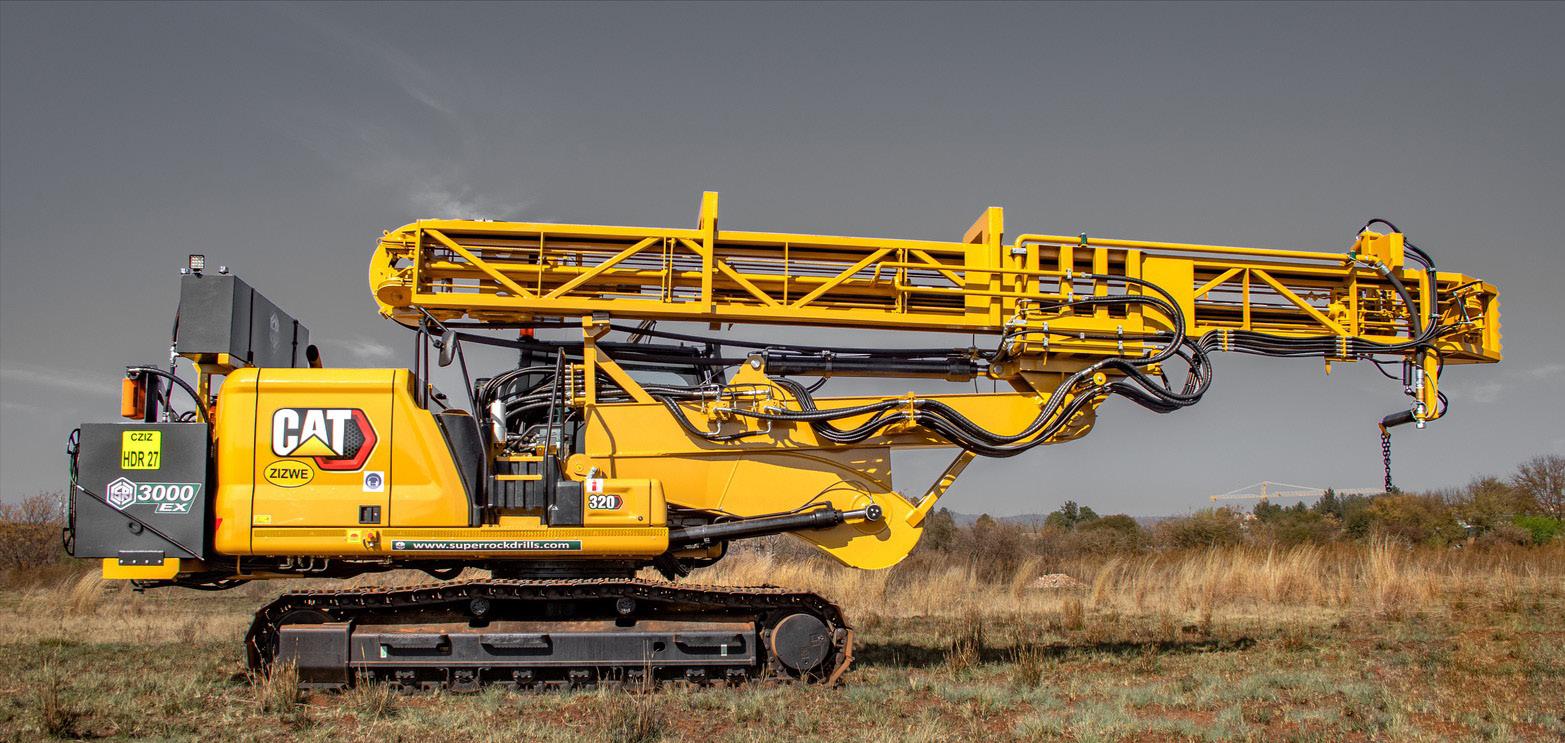



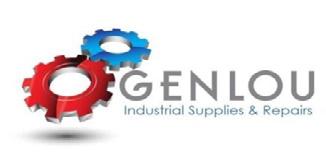
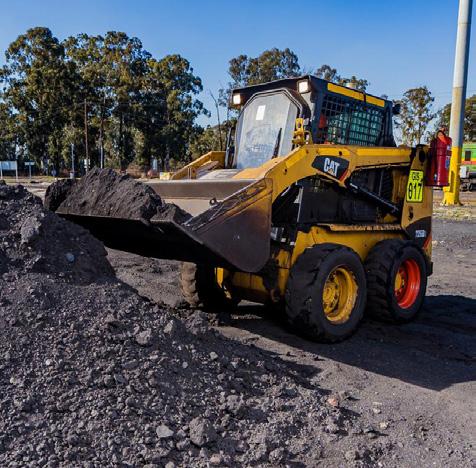
initiative into both its existing and preplanned mining projects, with all the company’s various clients.
“As a core contractor, our responsibilities will never be of the same magnitude when compared to the typical mining houses, however
our participation is visible and as a proudly Level 2 Broad-based Black Economic Empowerment (BBBEE) contributor, it can be measured and is accounted for,” Pruis adds.
A 51 percent black-owned company that has more than 1,700 full-time
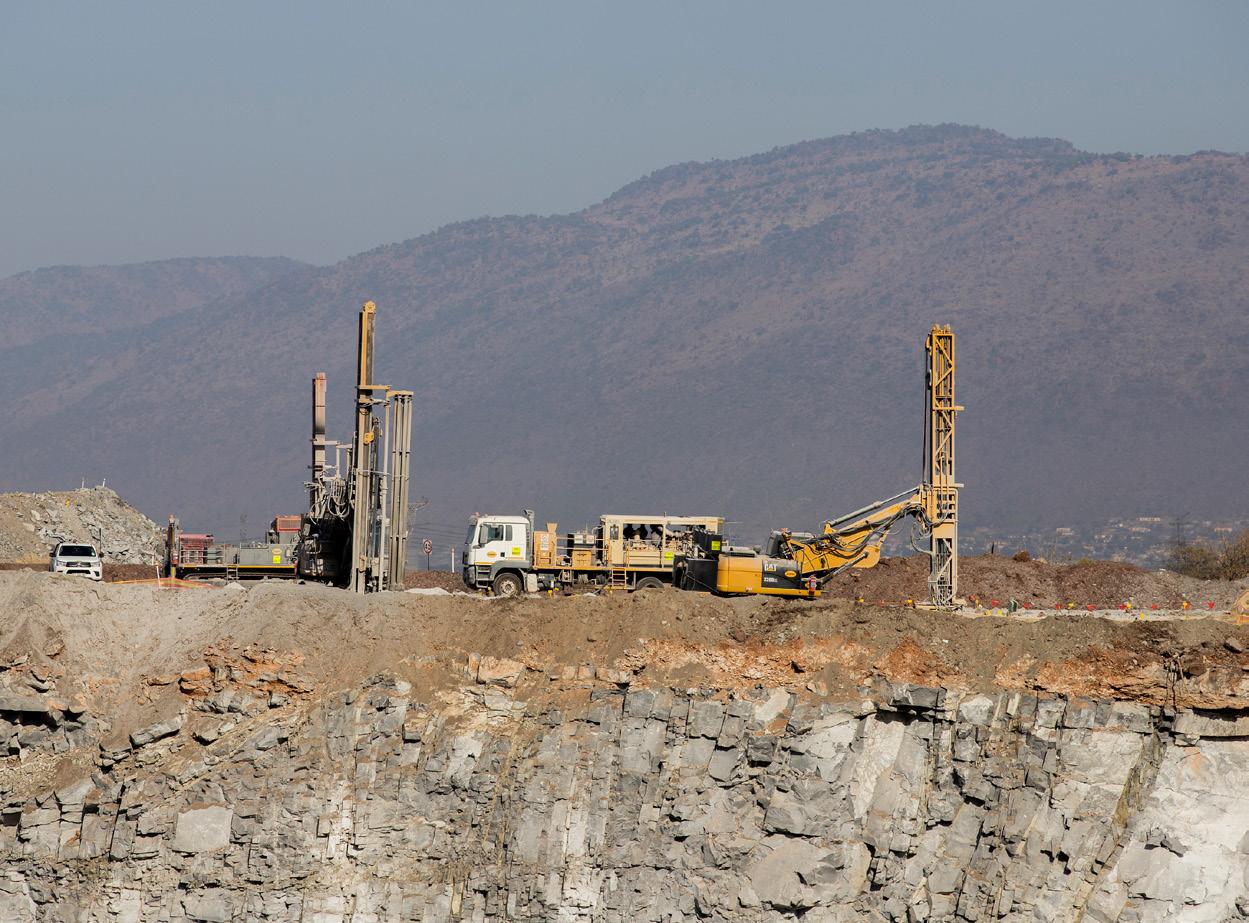
Mining was once the main driving force behind the history and development of the South African economy.
Large-scale and profitable mining here started in 1867 with the discovery of a diamond on the banks of the Orange River, the longest river in South Africa, and the subsequent discovery and exploitation of the Kimberley pipes in the following few years.
South Africa’s biggest city and capital of the Gauteng province, Johannesburg, even began as a 19th-century gold mining settlement. The Witwatersrand Gold Rush in 1886 led to the establishment of Johannesburg, and was part of the Mineral Revolution, which refers to the rapid industrialisation and economic changes that occurred in South Africa from the 1860s onwards.
Diamond and gold production are now well down from their peaks, though an estimated 100 metric tonnes of gold were still produced in South Africa in 2021, albeit a notable decrease from the 189 metric tonnes produced in 2010.
Today, South Africa remains a cornucopia of mineral riches, and is the world’s largest producer of chrome, manganese, platinum, vanadium, and vermiculite, as well as being the second-largest producer of ilmenite, palladium, rutile, and zirconium, and the third-largest exporter of coal.
Global Pump offers a wide variety of economical, dependable and highly efficient dewatering pumps and jobsite equipment. Exceptional design and superior components ensure that you receive the very best quality product for your investment.
As the largest user of our own products, we ensure that our equipment is designed to stand up to a variety of conditions in a multitude of applications.
Our commitment to quality and reliability includes rigorous testing prior to every shipment to ensure that your equipment will be in perfect working order when it arrives at your site.
employees, Zizwe is constantly looking for ways to give back to communities.
Zizwe values the communities in which it works by creating economic growth through joint ventures, procurement, employment, and small, medium and micro enterprise (SMME) development.
To promote the development of SMMEs, as well as broader job creation and growth in dynamic new industries, now is the time to facilitate investment along the mining value chain, accord ing to Cyril Ramaphosa, the President of South Africa.
Through partnerships with relevant “local/doorstep” stakeholders, Zizwe is able to develop SMMEs and communities in a number of aspects.
There is socio-economic devel opment, which includes education, health, basic needs, and community projects. Supplier development, meanwhile, involves identifying suitable local suppliers and SMMEs,
“We want you to expect the best products and service from Global Pump.” – Gino Mersino
Innovation at Enaex takes place at a number of levels and across different spaces in the research and development (R&D) structures of the company. Here is a brief look at some of the projects that are under way, both internationally and locally.


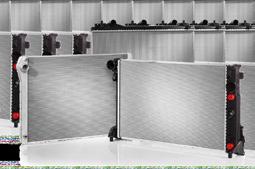




Enaex is a leader in the field of teleoperations, and in 2019, we introduced a solution that allows remote-controlled loading operations. Tele-operations improve safety, productivity and viability in extreme environments.
These days, it is possible to capture a vast amount of blast data – the trick is to know which data to capture, and how to analyse it to good effect. Enaex has developed a digital solution to improve blast efficiency (using specific energy for a specific rock type) by analysing blast data and continuously improving blast quality control, quality assurance and above all, safety.
The opening of the DaveyTronic® electronic detonator assembly plant at our Secunda Complex is a significant milestone for our business. It is the first such plant built outside of France and ensures a secure local supply of blasting equipment.



Hidrex is part of Enaex Africa’s newgeneration bulk explosives products. It is a low-density, low-energy and waterresistant product designed for specialised blasting in both dry and de-watered blast hole applications.

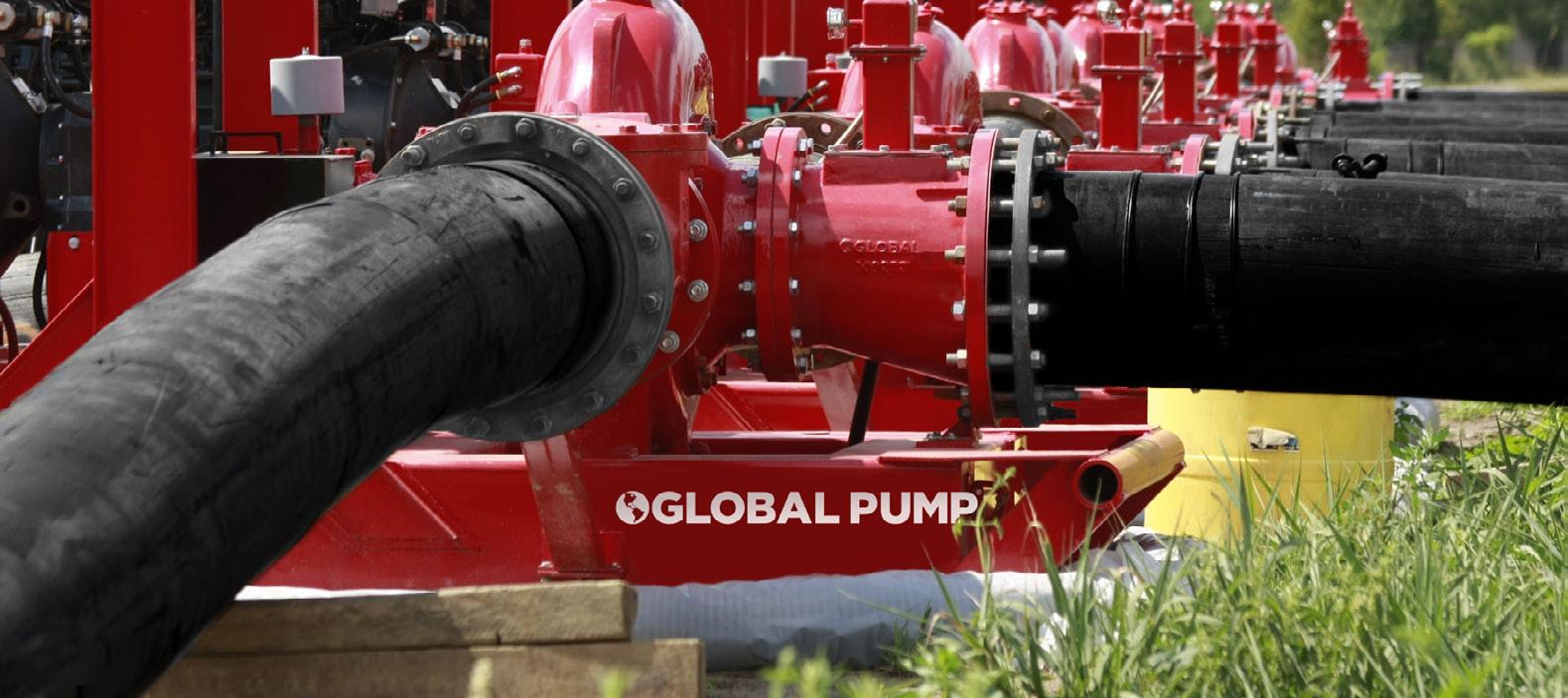
Hoëveld Radiators is located in Middelburg, which is central to all the major coal mining, earthmoving, and transport industries in Mpumalanga. Being based in Middelburg affords us the opportunity to render a 24-hour breakdown service, utilizing a qualied mechanic in our service vehicle, to all our locally based clients within a 2-hour radius.
Hoëveld Radiators is located in Middelburg, which is central to all the major coal mining, earthmoving, and transport industries in Mpumalanga. Being based in Middelburg affords us the opportunity to render a 24-hour breakdown service, utilizing a qualied mechanic in our service vehicle, to all our locally based clients within a 2-hour radius.


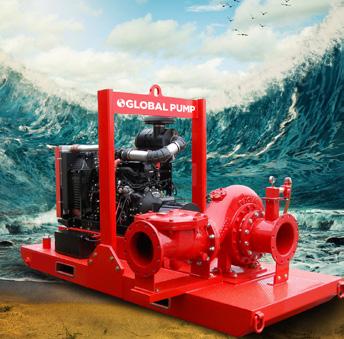

Hoëveld Radiators is located in Middelburg, which is central to all the major coal mining, earthmoving, and transport industries in Mpumalanga. Being based in Middelburg affords us the opportunity to render a 24-hour breakdown service, utilizing a qualied mechanic in our service vehicle, to all our locally based clients within a 2-hour radius.
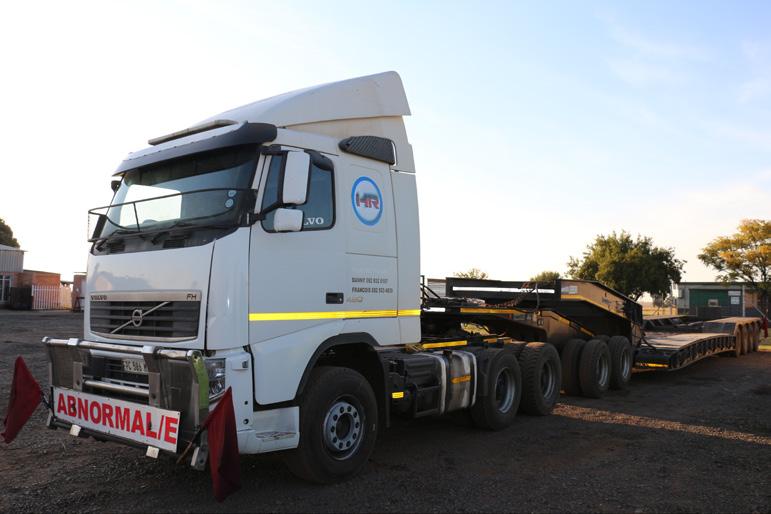
We supply and repair radiators, air valves, brake and clutch, trailers spares. We supply Low-bed and Heavy-duty transportation services, and we do trailer rebuilding as well as refurbishing heavy-duty machines. To learn more about our services feel free to visit the Services section of this website.
We supply and repair radiators, air valves, brake and clutch, trailers spares. We supply Low-bed and Heavy-duty transportation services, and we do trailer rebuilding as well as refurbishing heavy-duty machines. To learn more about our services feel free to visit the Services section of this website.
We supply and repair radiators, air valves, brake and clutch, trailers spares. We supply Low-bed and Heavy-duty transportation services, and we do trailer rebuilding as well as refurbishing heavy-duty machines. To learn more about our services feel free to visit the Services section of this website.
and providing them with mentorship and operational assistance for them to provide quality work on a sustainable basis.
“This takes cognisance of Zizwe’s various fit-for-purpose SMME devel opment models, i.e., “carve out” and set-aside projects, subcontracting, equipment transfer projects, and joint ventures, of which we have several to promote development in local com munities,” Pruis says.
“Our enterprise development strategy aims to establish transferra ble skills and sustainable enterprises to support the local economy, even beyond the life of mines with the rele vant local communities.”
Collaboration and mutual empowerment will always be part of the strategy at Zizwe, with the company now in the process of negotiating partnerships and acquisitions in Namibia, Zambia, Botswana and Mozambique to establish its international footprint and exploit commodities such as uranium, copper, and gold.
“Our three-year plan includes achieving a turnover of R500 million per annum, driven by these new endeavours. These countries pose a very attractive operational climate with decreased political risks,” shares Pruis.
The health and safety of its workforce, and the communities around the mines, are a priority for Zizwe.
The company has been OHSAS 18001 certified since 2013, reflecting its commitment to working safely, and has since embarked on certification for its Integrated SHEQ Management System, which includes ISO standards 45001, 9001, and 14001.
Working safely is one of Zizwe’s core values, along with care, client satisfaction, teamwork, and respect.
“We are committed to delivering our services safely, cost-effectively, professionally, and without harm to the environment,” Pruis tells us.
“As such, Zizwe invests in, develops, and retains its employees, and conducts business in a manner that will add value to all stakeholders. We aim to become the preferred supplier in the opencast mining, crushing and screening, and raw materials handling industry in Africa.”

Benefitting from the mining boom, whilst enabling more diversified, inclusive and environmentally sustainable growth, is a challenge for the likes of Zizwe.
Although the world is taking a turn towards clean energy, there is still a big demand for coal in South Africa. In pursuit of a green future, however, the company has nevertheless begun exploring how to convert to renewable energy and reposition itself to provide a sustainable future.
This will include the response to the Fourth Industrial Revolution (4IR), to reduce Zizwe’s carbon footprint and most important of all, to keep people at the very top of its list of priorities. 4IR is stepping into the light as the next phase of the digital revolution, accelerated by the COVID19 pandemic.
“We are focused on lowering our carbon footprint throughout the whole value chain. It is our belief that doing so will also result in the reduction of our clients’ carbon footprint.
“Zizwe is driven to promote cleaner energy in mining, with minimal environmental impact. Our OEM partners are running numerous renewable projects, and we are working closely with them to find a sustainable solution to this problem,” reveals Pruis, who concludes by emphasising the support of these OEMs to the company.
“Our selection of equipment is based on durability, part availability, and used or second-hand value; we therefore see OEMs as partners in the business.”
Tel: 013 244 1226 zizwe@zizwe.co.za www.zizwe.co.za



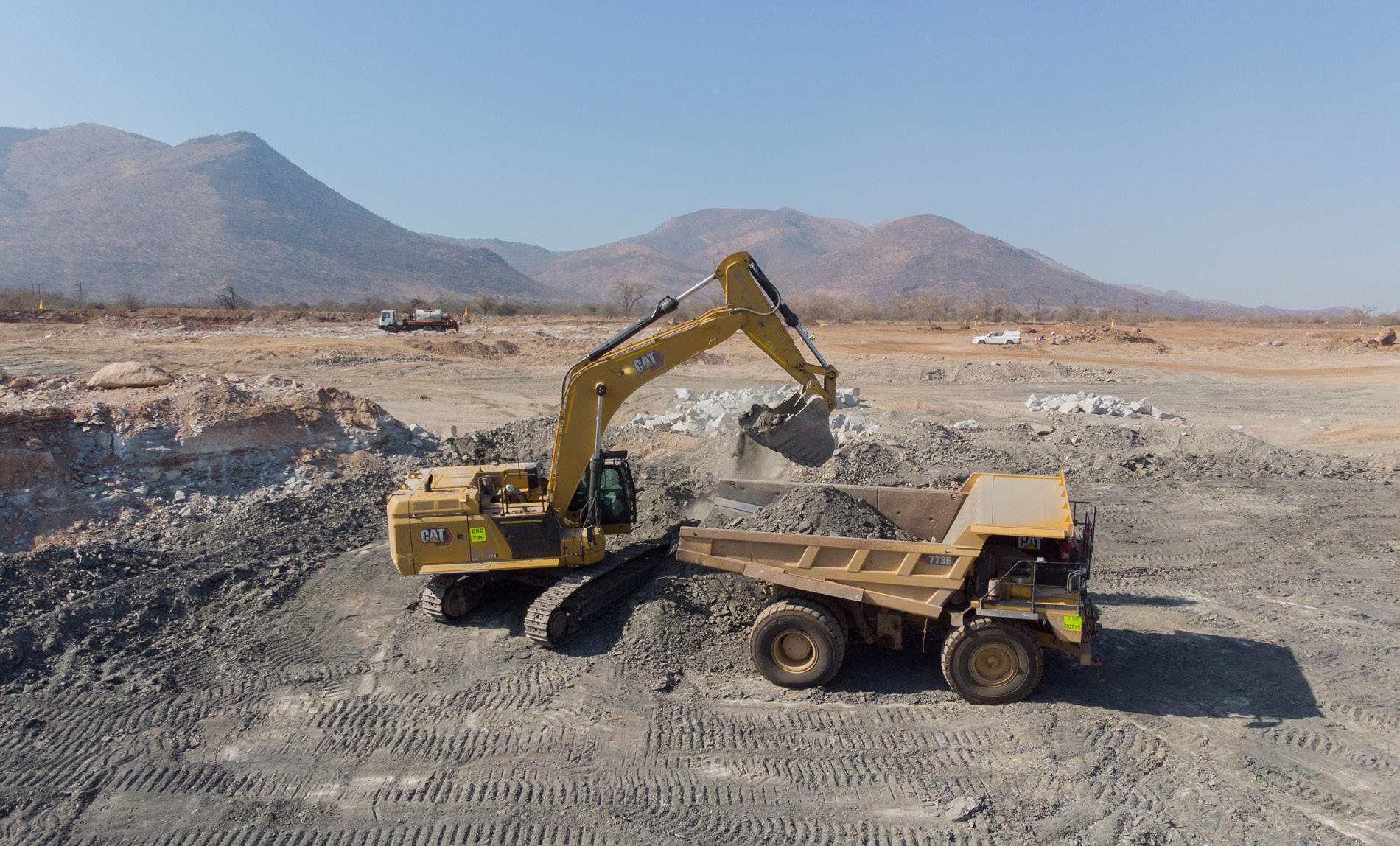
A true titan of the Zambian mining industry, Moxico Resources PLC leads the way in the procurement and production of mineral assets. We speak to Theo Silver, Managing Director of Mimbula Minerals Limited, the company’s Zambian subsidiary, that is developing and operating the Mimbula Copper Project
Writer: Ed Budds | Project Manager: Joshua MannZambia’s diverse mining landscape covers the production of a multitude of mineral raw materials, including copper, cobalt, gold, nickel, manganese, emeralds, beryllium, sulphur, zinc, coal, iron ore, steel, limestone, uranium and other platinum group metals.
Mining has long been a significant primary sector industry and a key contributor to the Zambian economy by providing export income, tax revenue and employment for its citizens. The geology and mineral

resource distribution stretches across all 10 provinces of the African nation.
Mineral resource exploitation was originally clustered around the centres of mining operations along the Copperbelt, such as the Konkola and Kitwe mining sites. However, in the last two decades, multiple mining and exploration projects have been approved by the Zambia Environmental Management Agency (ZEMA) and large commercial mines now stretch to the central, north-western and southern provinces.

Moxico is committed to aligning, integrating and delivering on positive Environmental, Social and Governance (ESG) outcomes across all of its mining operations. The company also operates transparently and responsibly whilst upholding good business practices with all its partners.
Likewise, Moxico strongly believes in fair opportunities, upholding ethical conduct and practising sustainability in all aspects of the company.
At all times, Moxico seeks to minimise the environmental impact of its operations, whilst being open and collaborative with local communities and its wider stakeholders.
Moxico continues to build on the excellent relations it has established with ZEMA as part of the government’s response to climate change and its impact on Zambia.
With a strong commitment to sustainable development, Moxico is focused on contributing to the socioeconomic welfare of the areas in which it operates.
Shared value is also held by Moxico within the communities where it operates, and the maintenance of a social license to operate will enable the positive impact and outcomes for the long term.
The Moxico board has an unwavering commitment to the maintenance of the highest standards of best practice corporate governance and accountability.
The leadership culture will remain focused on zero harm in all existing mines, ensuring inclusion and diversity and an entrepreneurial approach to innovative solutions.
“The African mining space is very exciting and there is real potential for Africa to become the main hub for numerous commodities,” opens Theo Silver, Managing Director of Mimbula Minerals Limited, the Zambian subsidiary of Moxico Resources PLC (Moxico) that is developing and operating the Mimbula Copper Project (MPC) in Chingola.
The sector is expected to see a significant boost after a more accommodating taxation regime was introduced earlier in 2022. This upwards trajectory will also be supported by the flow-on effect of the implementation of the Cooperation Framework signed between Zambia and the Democratic Republic of the Congo (DRC) in 2022 for the electric vehicle (EV) battery value chain that will require abundant battery metals and battery precursors.
Discussing his life in this everexpanding industry, Silver explains how, “I started my mining career back in 1997, in the gold mines of South Africa. Ever since then, I have been involved with gold, diamond, platinum, coal, nickel, chrome, and now copper mining. I have worked in large-scale opencast mining for the past 24 years.
“Having grown up in a home where my father was a miner, and then my brother, it seemed to be the logical way for me to go too. I love the fact that not one day is the same in the business of mining; there is no time for getting bored,” he adds.
Moxico is a private operating, development and exploration mining company incorporated in the UK. It has successfully partnered with active Zambian stakeholders to identify, secure and add value to mineral assets in Zambia, a number of which are located in the world-class Central African Copperbelt (CAC) and Zambia’s north-western province.
With a background in the mining industry, we design, manufacture and supply project specific solutions to cater for our customers’ Individual project needs.
We pride ourselves on delivering quality products with exceptional customer service. We are accustomed to the pitfalls of doing business on the African continent and shipping our goods across borders.
We see these challenges as opportunities to rise above our competitors and become reliable partners that have our customer needs at the forefront of our company mission.
‘Moxico’Mimbula Minerals –Lightcon Supply Contract
LIGHTCON ZAMBIA was a key electrical partner for Moxico Resources’ Zambian Mimbula Project. We manufactured and supplied various electrical equipment for the Phase 1 development, including:
• ACTOM 11KV – SB4 - MAIN MV Intake Substation Panels
• ACTOM 11KV – SB4 – Crushing and Screening MV Substation Panels
• MCC Control Boards for all Plants Including: Electrowinning, C&S, SX & EW, and Leaching Plant
• BEKA SCHREDER – LED Lighting for all plants
• STATIC Power – Battery Tripping Units
• O-Line Cable Trays and Accessories
• Containerised Control Rooms
• Various Distribution Boards and Electrical Feeders www.lcafrica.co.za www.ogambi.com - DRC

is an Electrical Engineering Company with registered offices in South-Africa,


the DRC. We operate in various Industries including,
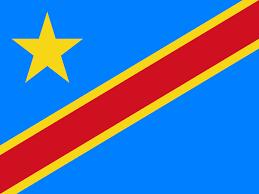

over
years
Electrical Engineering
expertise
have customers across the Africa continent
are familiar with
Environment as well as the logistical processes to
African Borders.
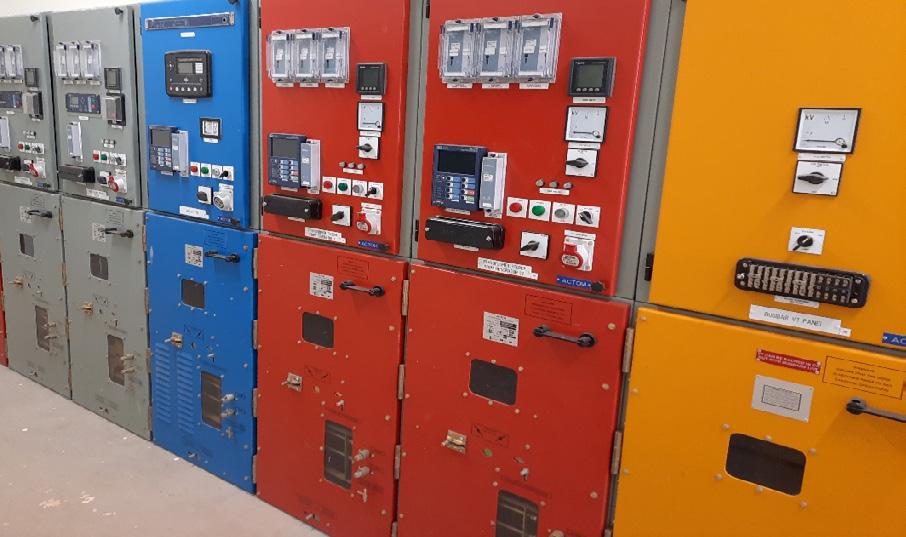
“At Moxico, we consider Zambia to be one of the best mining jurisdictions in all of Africa,” acclaims Silver.
The CAC is the largest and most prolific sediment-hosted copper province on Earth. It has historically produced 50 million tonnes of copper metal and contains a further 150 million tonnes in known resources. To this day, it remains one of the most prospective high-grade copper-producing regions anywhere in the world.
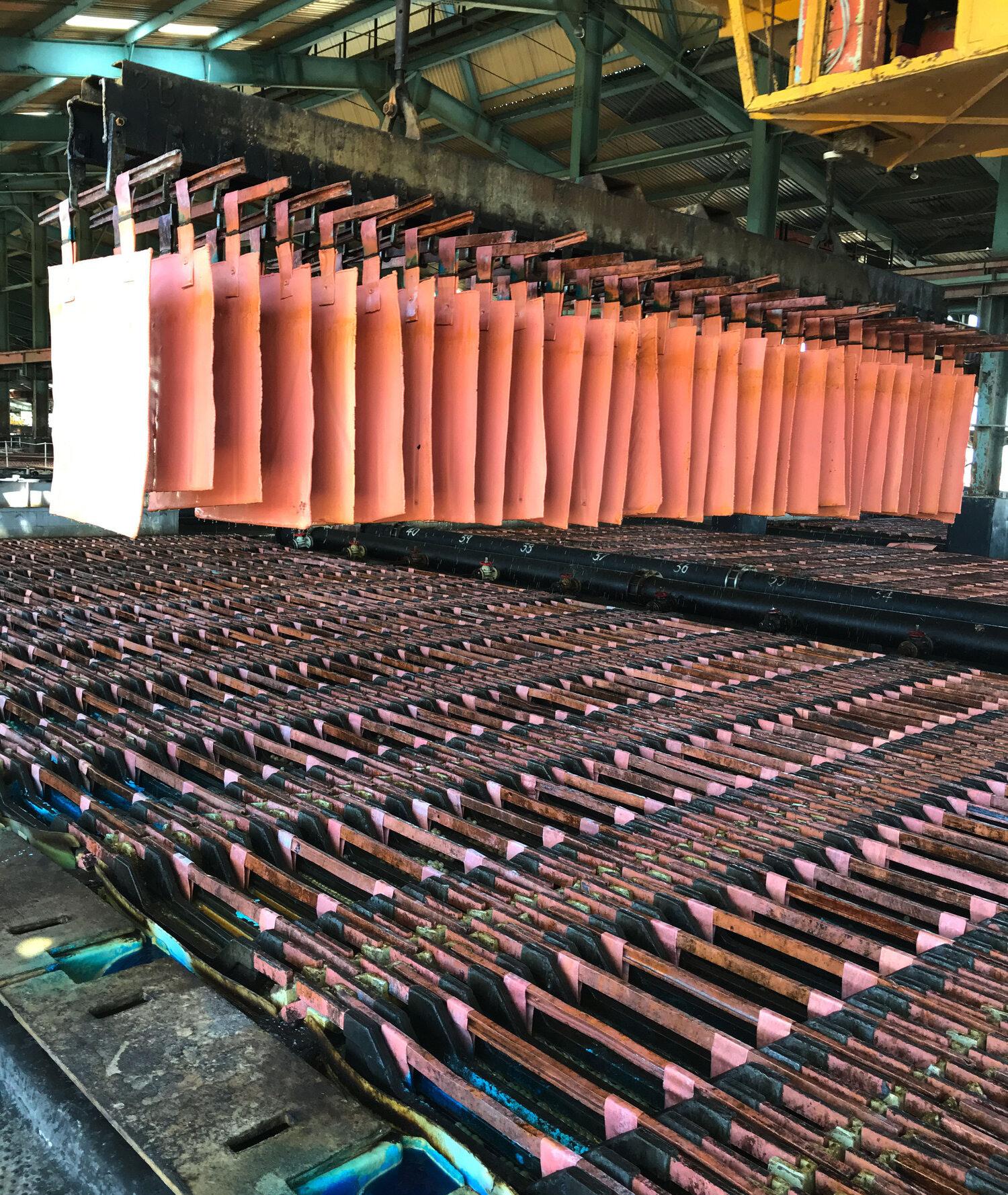
This is an indispensable asset for Moxico to possess, as the demand for copper is expected to soar in the coming years due to the global shift to a lower carbon economy, where the metal is crucial for its conductive properties.
Moxico’s flagship asset, the MCP, is expected to develop into one of the world-class mines in the CAC which include the Sentinel, Lumwana, Konkola, Kolwezi, KOV, Kinsevere, Tenke Fungurime, Mufulira, Mopani and Chambishi facilities. Together,
these efficient sites produce over 1.5 million tonnes of copper metal annually. Moxico’s 61 percent owned Kalengwa asset is also considered to have significant potential. The mine at Kalengwa was closed as a consequence of the fall in copper price in the 1980s but is now being developed as part of Moxico’s ongoing exploration programme.
“Our broad experience and knowledge of the copper market, balanced with our deep commitment to the communities in which we operate, ensures that we can deliver the best results for our stakeholders, employees, and local communities,” Silver declares proudly.
Moxico aims to establish itself as one of the lowest-cost copper producing companies in Zambia, possessing a unique approach to building mines where mostly everything is taken care of in-house, favourably positioning the company in the ultra-competitive mining industry.
Mimbula Minerals Limited and Shawonga Enterprises Limited, became business partners during mid 2021 through the supply of an important piece of equipment in Mimbula’s production process, the Telescopic Stacker. Mimbula and Shawonga’s Partnership will go a long way going forward as Shawonga will be providing aftermarket services to support the equipment.
Shawonga is a Zambian engineering company based in the city of Kitwe. Shawonga represents OEMs of world class capital mining equipment manufacturers, which include Breaker Technology Inc., Osborn Engineered Products and Telestack, all belonging to Astec Industries Group. Shawonga, in partnership with various OEMs, supplies mining equipment ranging from the design stage to a finished product. OEMs represented include Astec Industries (modular crushing plants, crushers, feeders, screens); MacLean Engineering (utility vehicles), Boundary Equipment (undercarriage parts for large drills and shovels, ladles, apron feeder pans); PMSA (Concrete mixers, block/brick making and floor polishing machines) and Ionic Mechatronics (anode preparation and cathode stripping machines). Others are Beka Lubrication (lubrication systems and solutions), Linburg Engineering (white metal lined bearings) and Gray Tools (engineering hand tools).
Shawonga is a leader in rock breakers in Zambia. Shawonga believes in excellent aftermarket support to ensure smooth running and increased lifespan of the equipment; and has invested heavily in aftermarket support in terms of highly trained and highly skilled technicians, good in-country parts stock holding, and a well-equipped workshop facility. Through its subsidiary, Zinpro Zambia Company Limited, Shawonga has been offering full house engineering services, from engineering designs to procurement and construction management. Zinpro specializes in turnkey project solutions and offers a wide range of engineering services.


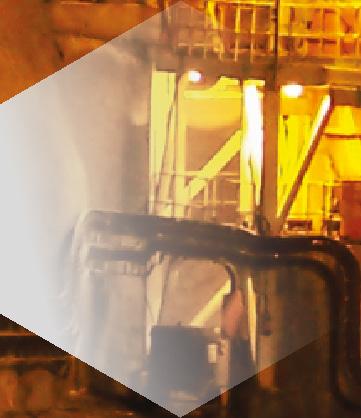
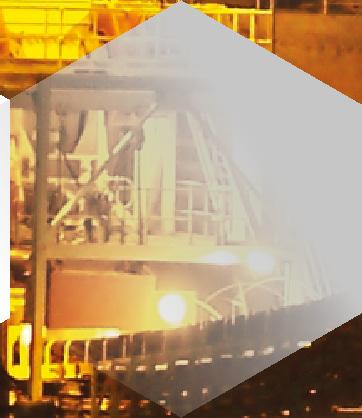


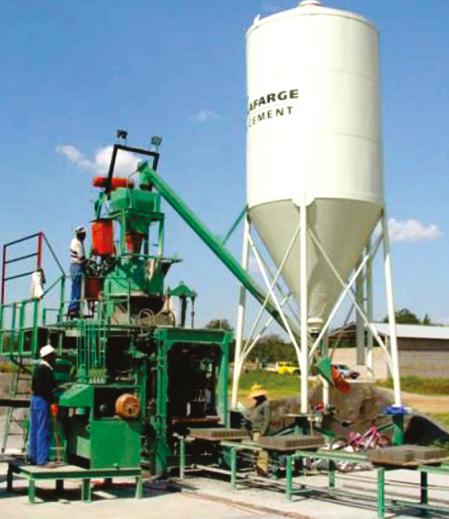
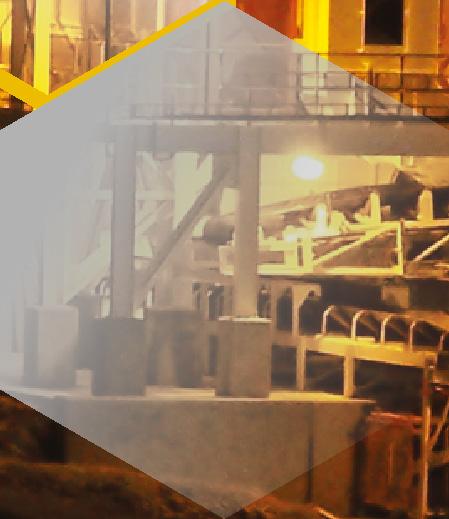
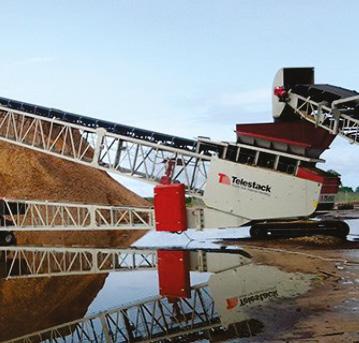
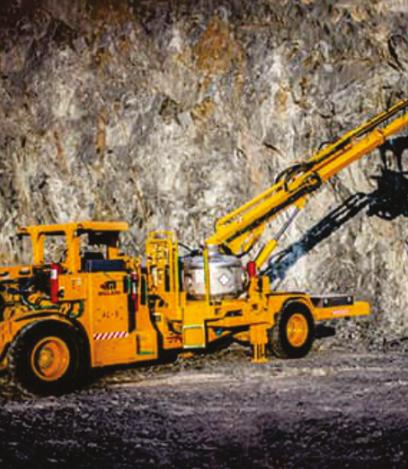





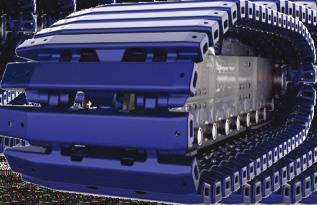





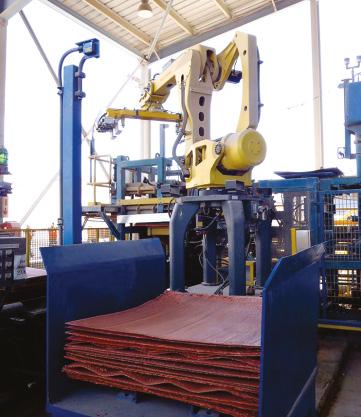
Moxico, through its 85 percent owned Mimbula Minerals Limited (the other 15 percent is held by Moxico’s Zambian partners), has successfully started up production and funded the low capital intensity MCP into a low-cost cathode copper producer. Mimbula Minerals Limited holds a large-scale mining licence which was granted in 2017 for 25 years.
Moxico is planning to commission heap leach operations at the Mimbula mine in the last quarter of 2022. This will represent a significant milestone for Moxico, as the company will have achieved the journey from start to full production in less than a year. Work also continues to advance the next phase of development for Mimbula which will see a significant increase in copper production.
The MCP consists of a copper rich oxide and sulphide deposit, located in the Zambian Copperbelt on the outskirts of the town of Chingola. It comprises three mining licences which Moxico owns through its Zambian subsidiaries: the Mimbula and Luano OB18 licences, in which Moxico holds an 85 percent ownership interest, with the remaining 15 percent owned by Moxico’s Zambian partners, and Zuka in which Moxico holds a 100 percent interest.
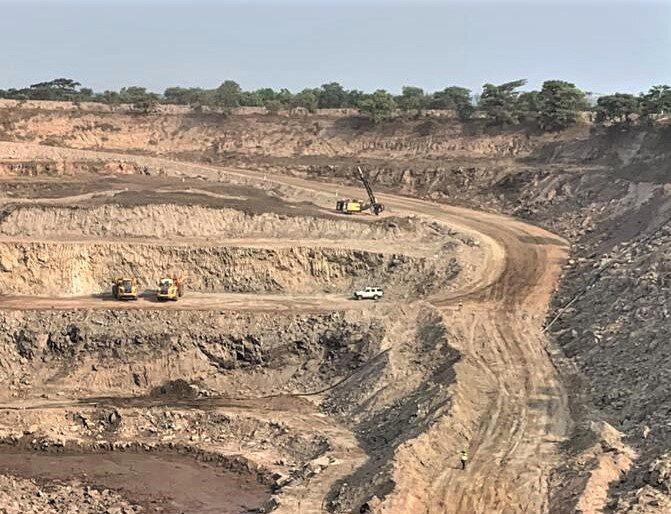

Environmental and social impact
assessment (ESIA) approval has been received and the required permits have also been obtained for the expansive project. The MCP reached a significant milestone in April 2020 as it produced the first copper cathode from the processing of surface material at the KCM plant. Moxico opened the existing Mimbula 2 Pit in October 2020, in order to begin to exploit the high-grade in-situ material.
The development of operations at Mimbula will deliver a considerable economic benefit to the local communities and Moxico plans to pursue its efforts to ensure such development proceeds with the interests of all stakeholders in mind.
“Further upside is provided by its leading land position with highly prospective copper and zinc exploration opportunities across Zambia,” Silver adds.
The JORC Code is fundamental to the way capital markets work in
Saftronics has been knocking electrons off atoms for over a half a century. With an install base of over 250 megawatts, Saftronics is one of the largest DC Power Rectifier manufacturers and suppliers in Southern Africa. To put that into perspective, that’s over 1.1 million Ampere’s of Direct Current.
The SX EW Rectifier and Transformer purchased by Mimbula Minerals Limited is our 131st Power Rectifier sold to date. The Mimbula Rectifier is designed for a maximum output of 37kA at 90Volts of Direct Current through 12-Pulse double Star winding and IPT’s configuration. Our Thyristor fired Rectifier includes Eddy Current reducing in-phase counter parallel circuitry. The Main Transformer adopts a multi-position OLTC for smooth operation and over all power factor improvement, all enclosed in a smaller OFWF Transformer Cooling arrangement, to reduce equipment footprint.
Complete power solutions available to suit your Electrowinning requirement, including Cell House furniture and shorting frames, auxiliary cooling stations and MV switchgear, we are able to provide and design a complete solution.
Visit our web page for a complete breakdown of what Saftronics can assist you with: www.saftronics.co.za
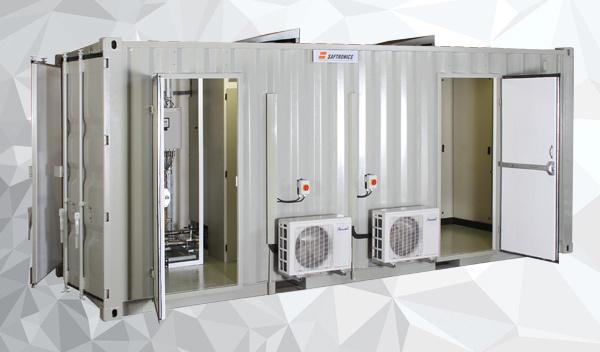

respect to reporting mineral projects. These reports help to provide investors with a level of confidence that appropriate consideration has been taken when assessing the viability of a project. A JORC resource report of this nature, based on the evaluation of the Mimbula deposit was completed in October 2020, showing 93.7 million tonnes at a copper grade of 0.97 percent.
The Kalengwa project, although located remotely in the north-western province, is viewed as a prized asset. Moxico first acquired an ownership interest in Kalengwa in 2018 and has since increased its ownership in the project to 63 percent, with
the remaining interest owned by Zambian partners. The Kalengwa project benefits from the support of local communities and the traditional leaders, and is an example of ensuring strong connection and engagement with local communities when retaining a social licence to operate.
Moxico currently has over 400 employees at its Kalengwa site as it undertakes extensive exploration to accelerate development of a new mine at Kalengwa and is preparing a plant to process the legacy tailings, stockpiles and dumps.
Elsewhere, Moxico continues to juggle a multitude of other ongoing projects.
We specialise in the conceptualisation, design, documentation and manufacture of non-metallic, corrosion resistant support structures, walkways, staircases, handrailing and cable trays.
We also utilise state of the art manufacturing processes in our own factory in South Africa with emphasis on the use of Computer Aided Design (CAD) and Finite Element Modeling/ Analysis (FEA).
Using CNC machines and highly skilled staff, we achieve quality and accurate solutions within short delivery times.
Resistance to aggressive alkaline and acidic work environments, fire retardancy and electrical insulation are some of the benefits of our materials and technology. Our satisfied customers range from Eskom, Mondi South Africa and Arcelor Mittal.
Moxico is confident these projects will deliver value as low-cost and capex light operations, ensuring safe and fair practices for all Moxico employees and contractors.
Additionally, the company has a prospective portfolio of scalable copper, cobalt and zinc projects located in Zambia.
“As we continue to move forward, we have a great team handling the current discovery works and doing an exceptional job with our explo ration programme, especially at the Kalengwa site,” Silver adds.
The company’s other assets are in the exploration phase with the inten tion of prioritising the most prolific higher up the development curve.
At the Samba North property, which is wholly owned by Moxico, the LargeScale Exploration Licence (LSEL) was renewed in late 2019. This particular licence extends south of the Mimbula



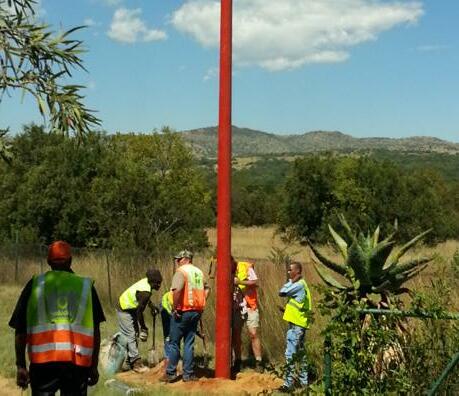

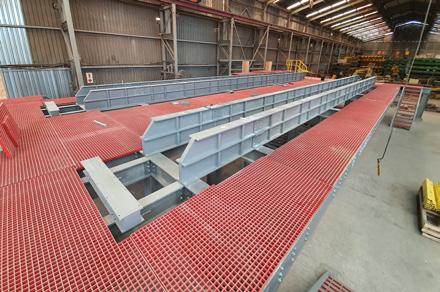

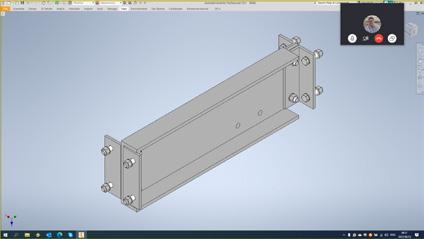



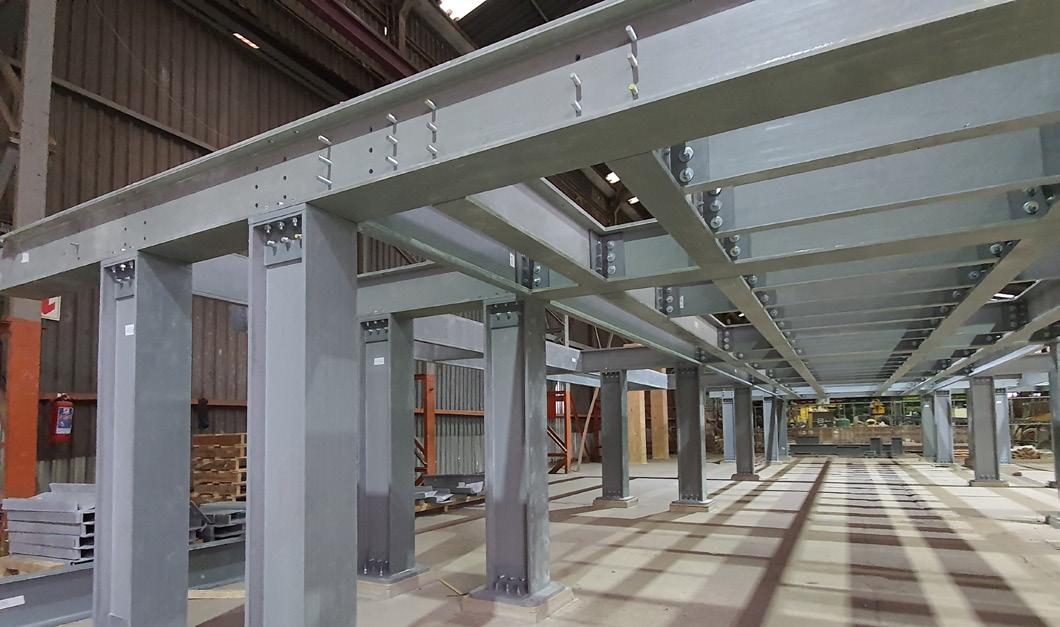










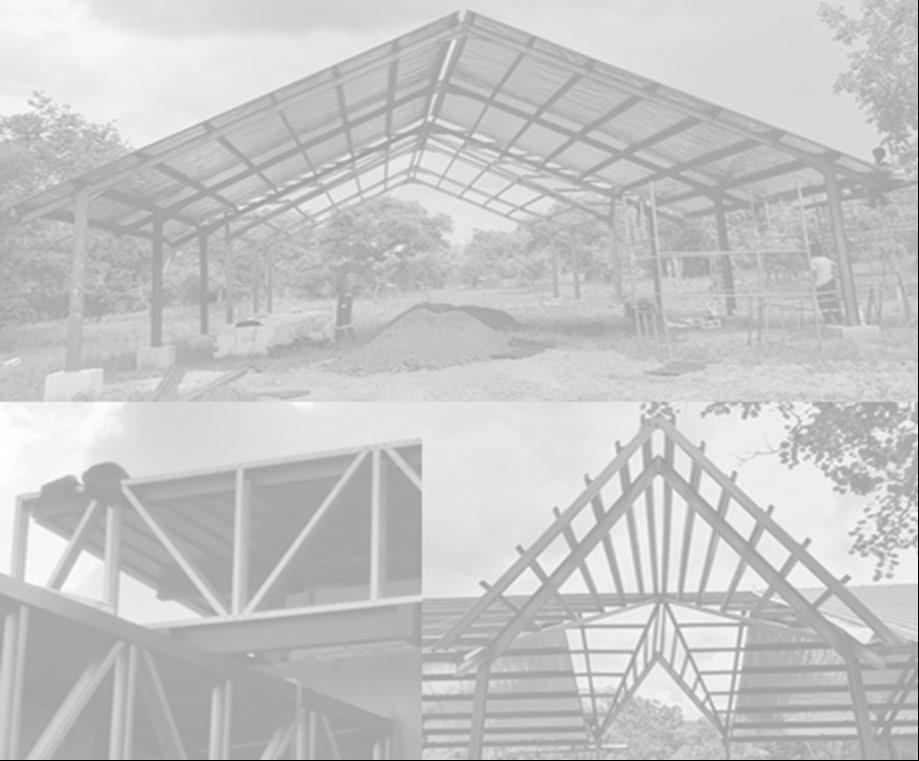










property, now covering a sprawling expanse of 10,154.58 hectares. The Environmental Project Brief (EPB) has been approved for this project, allowing Moxico to commence exploration, and to generate and then fulfil its high-quality drill targets for 2022.
The company foresees that Samba North will provide significant value to the already bountiful resource base and will supplement future expansions at Mimbula.
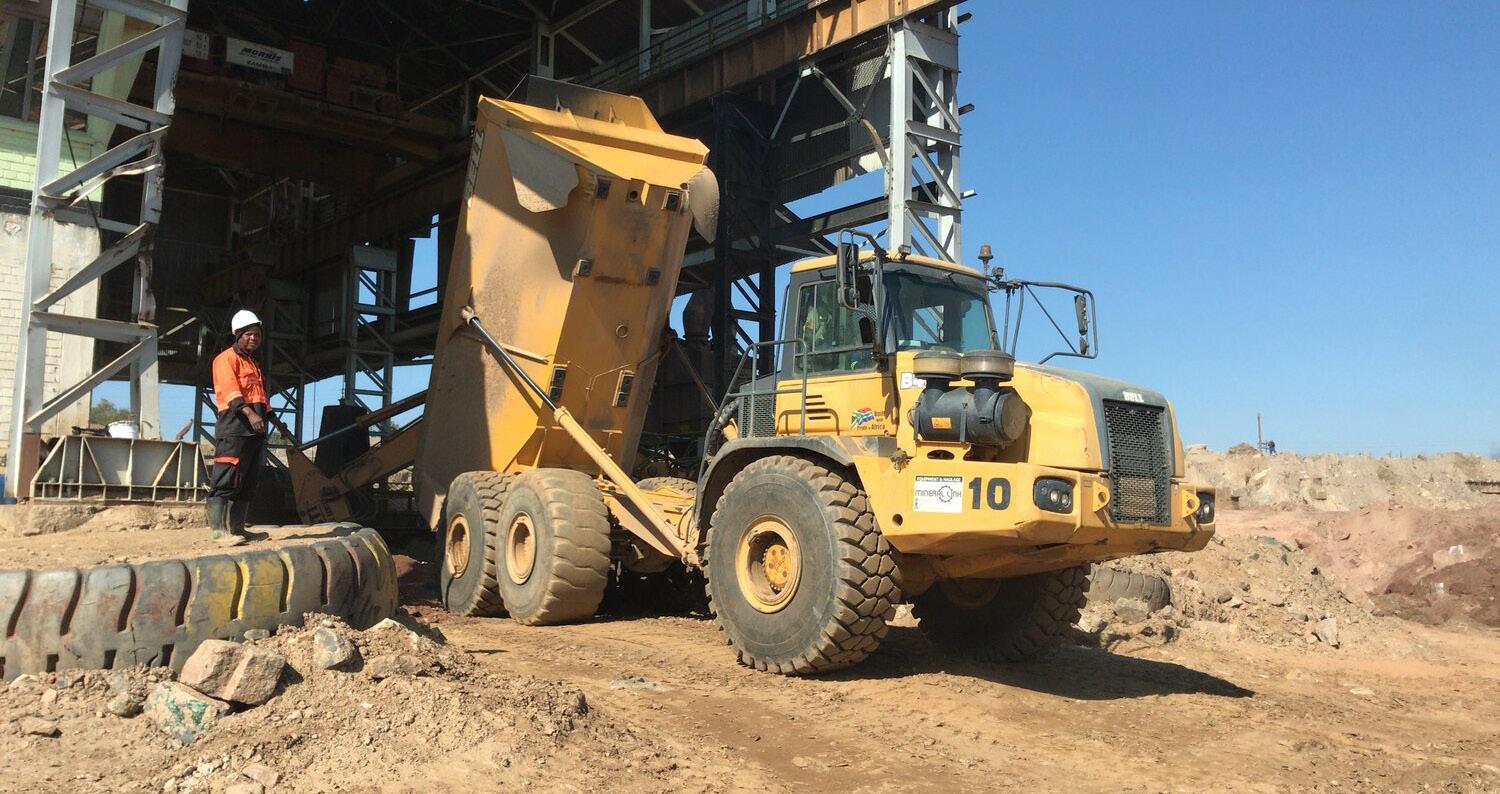
The Nchanga Nose site, which is 80 percent owned by Moxico, has an LSEL with an area covering 9,141.3 hectares. The property is underlain by basement rocks as well as the northern extension of the Lower Roan sequence that hosts the giant Nchanga deposit. Exploration drilling was completed in 2021, resulting in the discovery of several anomalies which has warranted further drilling in 2022. The licence will complement operations at Mimbula within the Chingola cluster of properties.
Regarding the Mufumbwe Cluster, the Kamikochi license, owned 80 percent by Moxico, has been reissued as an LSEL with a licence area of 26,831.938 hectares. The licence contains three prospects with Kansanshi-style Cu-Au stratigraphy and mineralisation with proximity to an intrusive dome. Extremely encouraging results were achieved
during the recent drilling at this site, therefore warranting further evaluation and drilling across 2022.
Moxico has an 85 percent stake in the Kaoma licence facility, with an area covering 17,082.672 hectares and LSEL. Previous exploration at this site has identified Cu-Au occurrences.

With an EPB in place, Moxico has conducted soil sampling activities in the area over 2021, showing positive geology results warranting a follow-up drilling campaign in 2022.
The Kalengwa East licence, owned completely by Moxico, covers 16,989.242 hectares with an LSEL. It adjoins the Kalengwa mine area to the east and is well known for the high copper grades from previous operations in the 1960-70s. Historical data compilation and potential soil sampling are now required to check for parallel mineralised structures to the Kalengwa deposit. The area is underlain by a similar stratigraphic sequence as in the Kalengwa mine area. Exploration drilling was completed in late 2021, resulting in several anomalies discovered by Moxico and a follow-up drilling campaign to come this year.
Elsewhere, the Solwezi East licence, also wholly owned by Moxico, lies north-east to the provincial capital Solwezi of the mineral-rich north-western province and covers 46,093.835 hectares. This deposit
contains the same Kundelungu strata that hosts the Kansanshi deposit. A systematic exploration programme has been proposed over 2022 for this licence to confirm mineable copper targets.
Moxico remains committed to using local suppliers as far as possible and subsequently aims to continue contributing to meaningful economic and social development within Zambia. This would not be achievable if mining operations existed as enclaves, disconnected from the rest of the country in which it operates.
“The right suppliers are crucial to any project, and at Moxico we always aim to ensure that we get the right quality of service at the best possible price,” Silver explains.
He firmly believes that there are certainly benefits to be found from utilising a work team made up almost entirely of Zambians. For example, hiring local workers can help minimise project costs in the long term, through reduced transport costs and greater employee retention.
“Of course, we also want to play our part in supporting national priorities for job creation, human capital development and inclusive economic growth,” he adds. Silver is also acutely aware of how a happy, fulfilled workforce is key to a smooth-running operation at all Moxico facilities.
“Because most of our employees can be with their family each day, they are able to find a better work-life balance, which consequently creates positive morale in the workplace and ensures a healthy wellbeing amongst Moxico’s staff members,” he concludes enthusiastically.
208 0655160
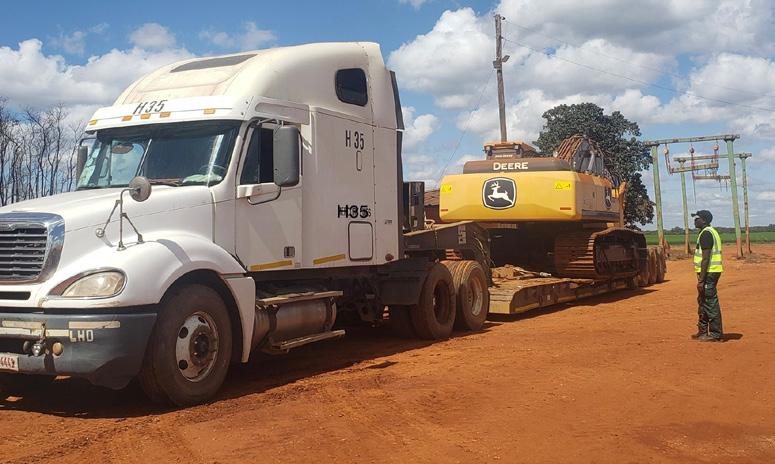
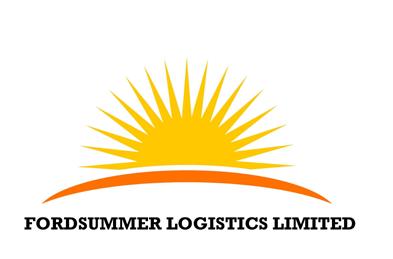

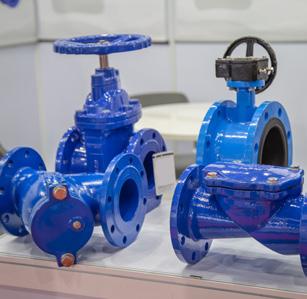
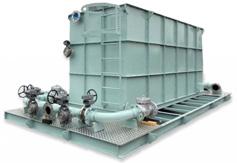


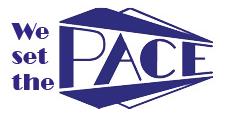
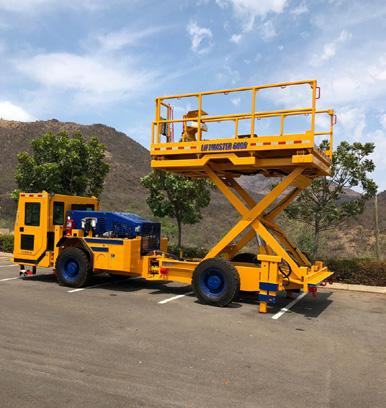

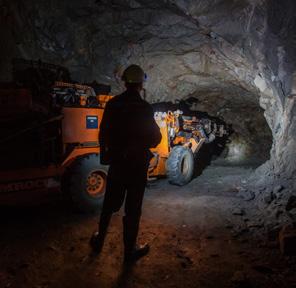


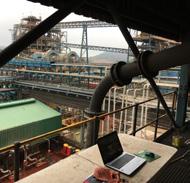
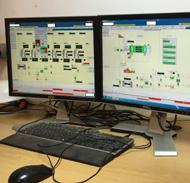


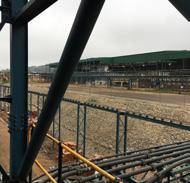

ChromTech Holdings (ChromTech) offers fitfor-purpose, industry specific-engineering solutions. As operators, ChromTech understands the requirements of functional, maintenance-friendly engineering, centred on cost-effective production and operation. The company is constantly adapting and evolving its plants to embrace the latest technology and design within the industry.
ChromTech has successfully managed, constructed and commissioned a number of chrome recovery plants in recent years. A major competitive advantage within this highly competitive sector is that ChromTech has both the expertise to adapt its designs to meet the specific requirements of each project, as well as possessing the construction skills to bring it online within both time and budget.
ChromTech acknowledges that to remain competitive, it must produce a quality product on time, within specification, and at below

From managing the logistical aspects of transporting bulk material from production facilities to end users, to providing highly beneficial social development initiatives, we explore how ChromTech Holdings continues to offer solutions for the African mining sector
“A MAJOR COMPETITIVE ADVANTAGE IS THAT CHROMTECH HAS BOTH THE EXPERTISE TO ADAPT ITS DESIGNS TO MEET THE SPECIFIC REQUIREMENTS OF EACH PROJECT, AS WELL AS POSSESSING THE CONSTRUCTION SKILLS TO BRING IT ONLINE WITHIN BOTH TIME AND BUDGET”
market-related costs. At present, ChromTech prides itself on being one of the lowest-cost chrome producers in the entirety of the South African market.
The ChromTech service range extends beyond the supply of products. Through the company’s in-depth knowledge and understanding of the market and chrome value chain, it strives to always meet and then exceed customer requirements. This has led to an immense sense of pride for its commitment to quality and supply reliability for the vast and established, international customer base it continues to serve.
Another crucial role fulfilled by ChromTech is to manage the logistical aspects of transporting bulk material
from the production facilities to the end users. Through its highly skilled in-house logistics team, ChromTech manages all aspects of product movement from mine to market. In partnership with all the company’s service providers, ChromTech has developed a cost-effective and efficient inland road and rail network, catering for both bulk and container exports as well as local sales.
Operating safely and legally within the South African mining and manufacturing industry is key to ChromTech’s ongoing success. This is easier to navigate, as an integrated, ISO accredited company, with ISO 9001, 14001 and 18001 accreditations. The company has a dedicated Safety, Health, Environment and Quality (SHEQ) department in order to
We partner with ChromTech for the provision of material handling services of their plant in Marikana. This is their sixth plant delivered in their 12-year history and at 300,000 tpm (with a 20 percent over-run capacity) is the second largest (by capacity) that we have built and operated in our history.
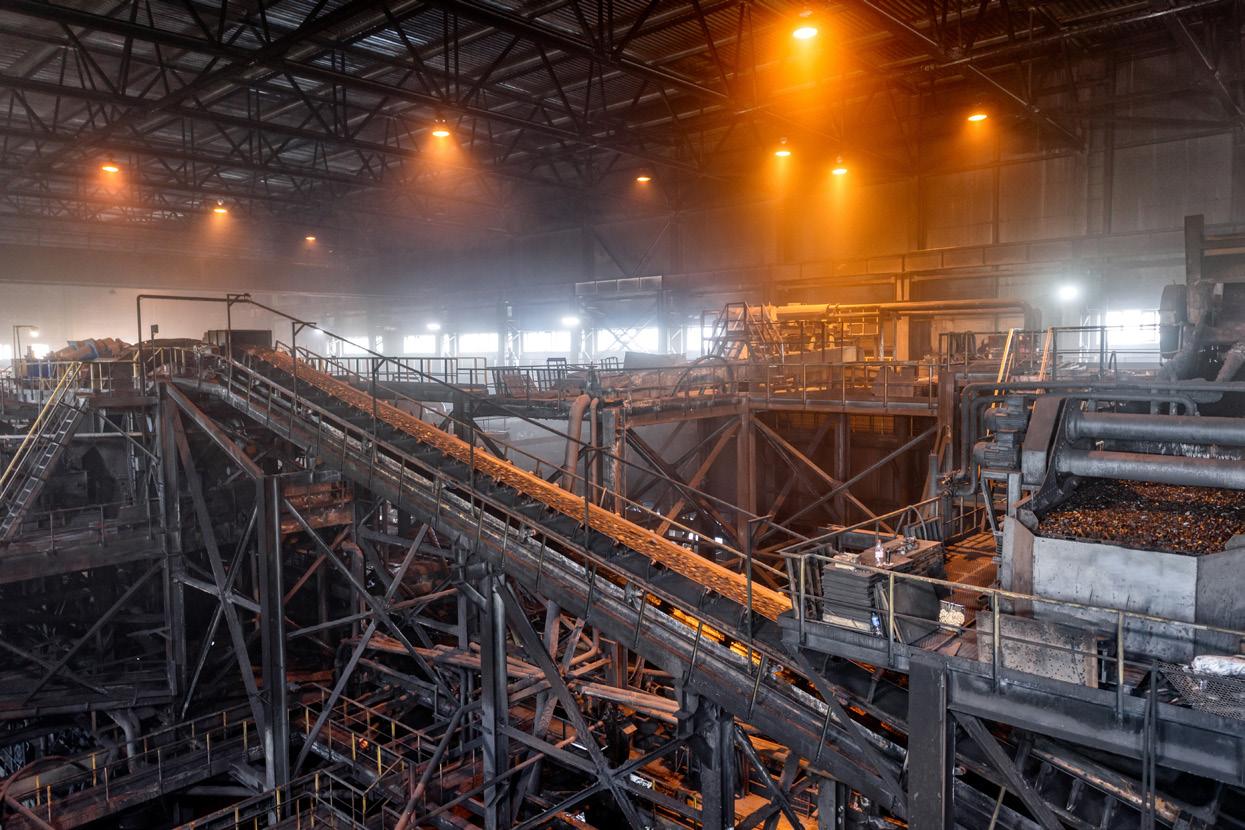
UWCM is currently managing approximately 25,000 to 50,000mt of chrome concentrate per month. Production is based on plant stockpile management and loading of trucks.
For opencast and material handling, we own and lease plant equipment such as such as Front-end loaders, Excavators, Bobcats including Mobile Screening and Crushing Plants. This includes drill rigs, LHD’s and UV for underground mining operations.
MetQ is a proudly South African Company with its core values being Safety, Integrity, Care, Innovation and Empowerment.
For over 43 years, we have ensured that we remain the market leaders in specific areas of the Mineral Processing industry. One of our best attributes is our flexibility in terms of customer requirements. MetQ design, develop and manufacture according to customer specifications. Both for local and international markets.
strong performance management and continuous improvements, allow for empowerment of people and skills development and the contribution to a successful relationship with all stakeholders.

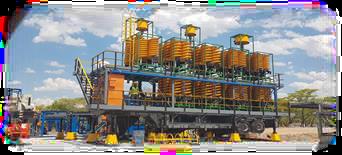
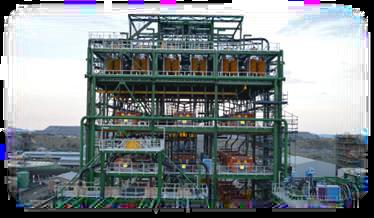

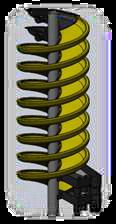



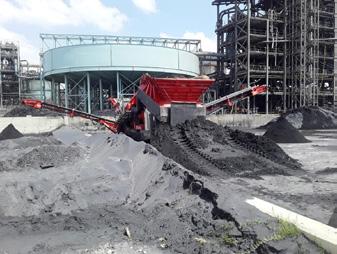

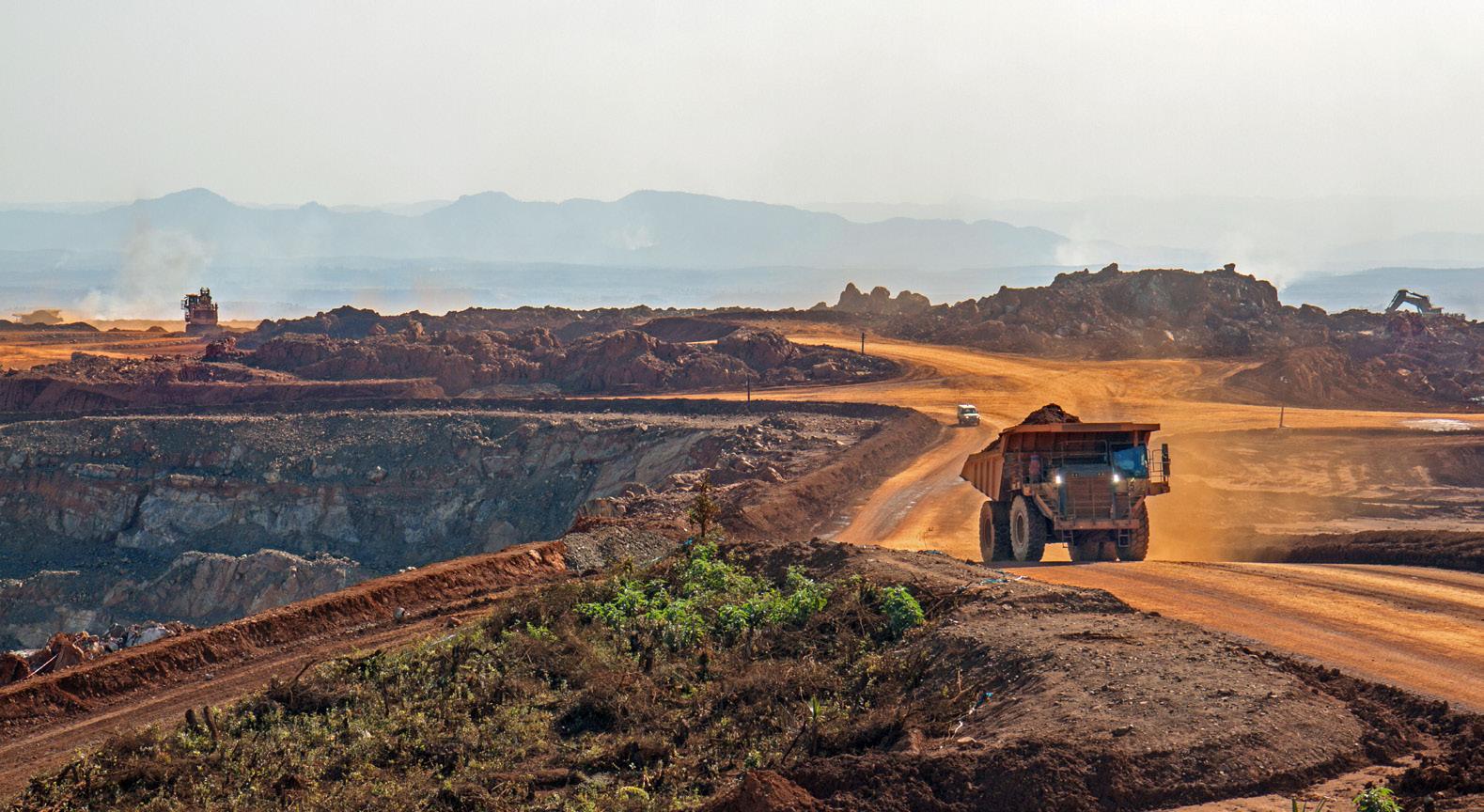



• As an empowered company, ChromTech is committed to the principles of broad-based black economic empowerment (BBBEE).
• One of the lowest cost producers of high-grade UG2 chrome ore in South Africa.
• The company offers value throughout the UG2 chrome recovery/production pipeline and also handles the intricate logistics of transporting ore to clients.
• ChromTech designs fit-forpurpose plants that are built for low maintenance and sustainability.
• As managers and operators, ChromTech is able to maximise yield, maintain quality and manage costs more effectively.
• The in-house sales and marketing team is focused on ensuring that costs remain competitive at each stage of the value chain.
• ChromTech manages the logistics of getting the product from the stockpile to the client’s ‘front door’.
• The company’s in-house SHEQ department ensures that its operations are legally compliant in terms of South African legislation. ChromTech is also an integrated, ISO-certified company, guaranteeing clients an above-board, managed and audited service.
ensure full legal and ISO compliance, giving clients peace of mind at every level of its service offering.
ChromTech believes that to be sustainable, productive and most vitally, safe, it must work with and indeed support the communities close to its operations. In recent years ChromTech has invested significantly in multiple social development initiatives in South Africa.
The “Today a Reader, Tomorrow a Leader” project, involved the construction of a brand-new library for Marikana High School in South Africa. Together with new books, resources and a catalogue system, the new building was constructed on the site of the school’s old, dilapidated swimming school.
Elsewhere, ChromTech recently donated 500 packs of reusable
sanitary towels to high school pupils at the Marikana Combined School. The packs have already made a major impact on reducing absen teeism and improving the education consistency of many of the young women at the school.
ChromTech’s Finance Manager, Stephen Baird details how, “the lack of menstrual sanitation products forces many schoolgirls in poorer communities to miss vital classroom time, which in turn affects their educational performance, diminishing future opportunities.”

By collaborating with Project Dignity, the company has been able to make a large difference to lives in one of the key communities in the vicinity of ChromTech’s operation. It’s community-minded initiatives such as this, that place ChromTech at the forefront of the mining sector, as a company truly dedicated to enacting change.

Marking its 20th anniversary as a leader in genomics in Africa, Executive Director and co-Founder of inqaba biotec, Dr Oliver Preisig, examines a molecular approach to advancing life sciences across the continent

Writer: Phoebe Harper | Project Manager: Callam Waller
In the native South African language of isiXhosa, the word ‘inqaba’ is the name for something rare and precious. For Pretoria-based African Life Sciences company inqaba biotec (inqaba), the moniker pays homage to its proudly South African origin and tagline as ‘Africa’s Genomics Company’.
Rewind the decade to the year 2000, and a public bus in Pretoria is where the inqaba story began. It was here where co-Founders Dr Oliver Preisig (a molecular biology researcher at the University of Pretoria) and Dr Joaquim de Gama (a law student at the time) would frequently travel on the same service to the university, striking up a friendship and sharing conversation.
Based on the strengths of their shared skillsets, the two conspired to launch a business dedicated to DNA sequencing and oligos synthesis, after noticing a serious gap in the African biotechnology landscape for such a company. The two shared the idea with friends back home in Switzerland and Germany, and
shortly after, in 2002, inqaba was born; the collective brainchild of four scientists and one lawyer. The path to providing efficient, cost-effective, and innovative products and technologies to geographies across sub-Saharan Africa, had begun.
Originating with its headquarters in one of Pretoria’s oldest districts, Muckleneuk, inqaba has since spread its wings with additional offices in Tanzania, Kenya, Uganda, Ghana, and Nigeria. This began with the Kenyan subsidiary launching as inqaba biotec East Africa Ltd in 2010, followed by inqaba biotec West Africa Ltd registering in Nigeria in 2014.
This relentless pace of expansion continues today, with the most recent introductions of Senegal and Uganda, and Cameroon next on the agenda for this year. From the small team of entrepreneurs behind its inception, inqaba has grown to encompass over 150 members of staff across its operations.
“Our original idea behind the business was to start a genomics company that offers DNA synthesis and DNA sequencing services locally in Africa,” recalls co-Founder and Executive Director, Dr Oliver Preisig.
Over the past two decades, Dr Preisig has witnessed the technological evolution that has flourished within the space.
“The market and the technology have changed significantly since that time. At the beginning, we could sequence a few thousand bases per day, but now we can sequence gigabases. Data generation now far exceeds what was possible 20 years ago.”
Reflecting on this milestone of two decades in operation, Dr Preisig credits the reputation that the company has earnt during this time as a major contributor to its ongoing successes.
“We have developed a reputation over the past 20 years as a company that delivers and keeps to our word.
“We don’t over-promise, and in general, we are seen as a genuine company. Of course, mistakes happen, but we are known for never running away from a problem,” he tells us proudly.
Inqaba itself has shifted and expanded in line with such developments, keeping pace with
innovation and maturing with the market.
Inqaba’s core services comprise DNA synthesis (primers and probes), Sanger DNA sequencing, Bioinformatics solutions, next generation sequencing (NGS), qPCR analysis, animal genetics, instrument service, repair and maintenance and finally SNP genotyping and methylation analysis.
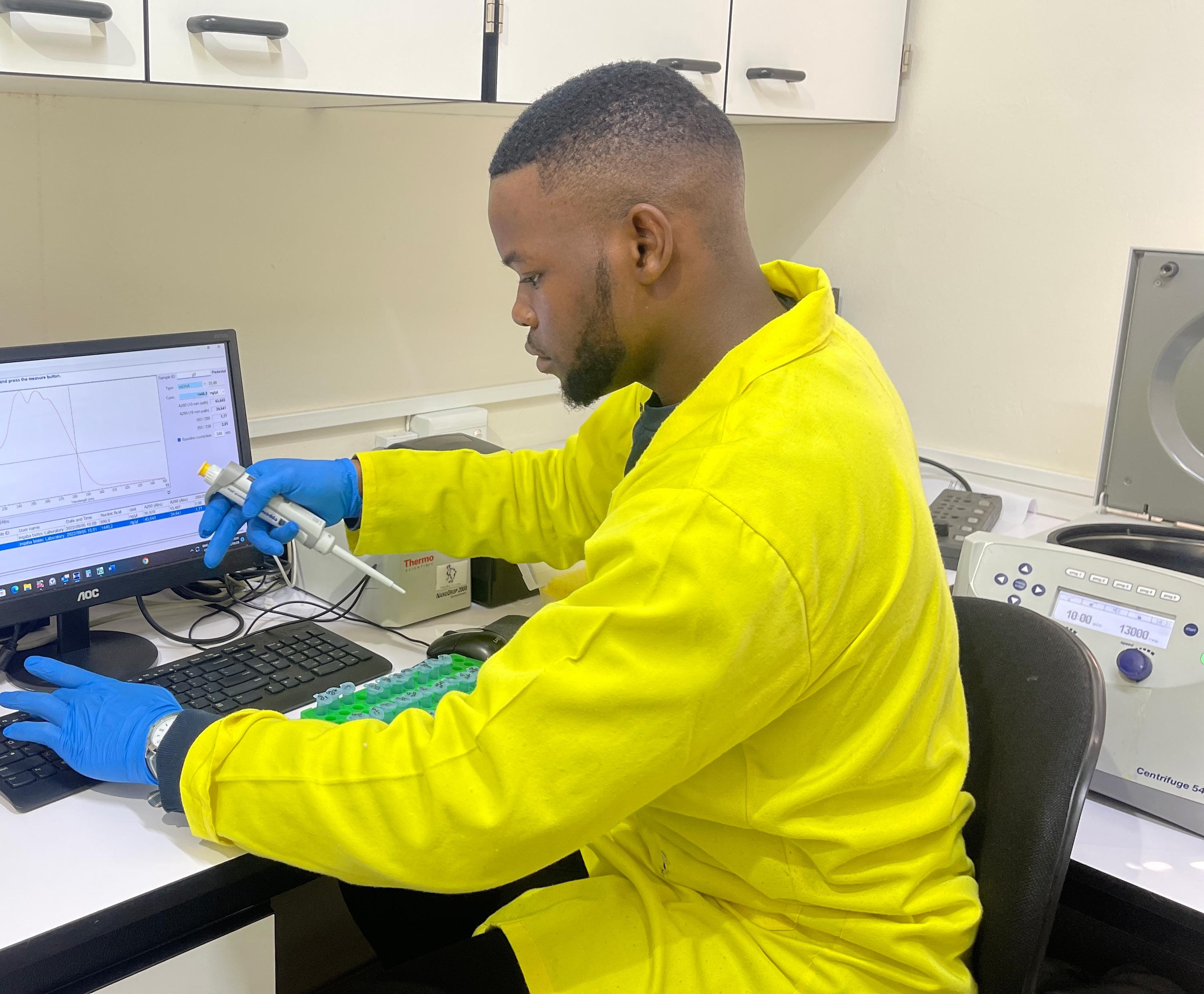
Complementing this expansive service offering is a diverse portfolio of industry-leading products which inqaba distributes on behalf of
reputable brands, in addition to providing after-sales service and technical support. These products cater to molecular biology, cell biology, molecular diagnostics, proteomics, software, biochemicals, food testing and plastic consumables.
“We have a broad portfolio, from services that we do ourselves to products that we sell from suppliers. Our distribution portfolio includes life science products, biochemicals, and other diagnostics products from different suppliers, ranging from the US, Europe, to South Korea,” he elaborates.
The international life science brands which inqaba distributes include




laboratory equipment and consum ables from Eppendorf, molecular biology reagents from New England BioLabs, nucleic acid purification and isolation systems from Zymo Research, and cell culture reagents from BioConcept, to name a few.
For Dr Preisig, it is the sheer breadth of the services and products that
inqaba can provide that resembles a key market differentiator for the company.
“First of all, it is the strength of our portfolio that defines us,” he states.
Effectively, this comprehensive suite of solutions positions inqaba as the one-stop-shop for Africa’s life science needs.
Across inqaba’s portfolio, the application of technology within these varied fields is a constantly shifting phenomenon.
“The application of the technology has changed, so we try to find the right application for each kind of technology,” Dr Preisig comments.
Africa Outlook: Can you tell us more about inqaba’s internship programmes and how this benefits the workforce?
DR OLIVER PREISIG, CO-FOUNDER AND EXECUTIVE DIRECTOR: “I am from Switzerland originally and that system is very well established in terms of people undertaking apprenticeships and internships in order to gain experience. We, as a company, like to source our employees from the pool of interns that we have. Through that, we have a selective way of choosing our employees and I think it has worked perfectly.
“Of course, we only employ people if their input and productivity is up to standard throughout the internship. It’s the best way to test people workwise, see how they fit into the team, and how reliable they are. We have a great pool of researchers in South Africa who ensure there isn’t a shortage of talented staff. They rely on internal training, which is what our internships are for.”
Indeed, the technology behind genomics services has advanced significantly since inqaba first began offering genome sequencing using sequencing technology from 454 back in 2007.

At the time, this technological application made inqaba a pioneer in its field, occupying the forefront of innovation by being the first to offer genome sequencing services on the African continent.
Today, inqaba’s services centre on innovative technologies that are redefining industries across Africa, from life science to health science, and agriculture to food science. These technologies include Agena
Dr Oliver Preisig, co-Founder and Executive Director

FUJIFILM Wako Chemicals Europe GmbH is a wholly owned subsidiary of FUJIFILM Wako Pure Chemical Corporation, a world-renowned supplier of more than 40,000 high quality products including high purity chemicals, reagents and life science products based in Japan. The German subsidiary was established in 1974 in order to expand Wako’s business activities in Europe, Middle East and Africa. FUJIFILM Wako has now reached its 100th year. With this milestone, we will continue to empower the future of science and to meet research needs through continued excellence in technology and quality.

FUJIFILM Wako offers standards used as reference materials for the detection of specific components in samples. Analytical standards, but also reagents and columns for trace and residue analysis, are offered for HPLC, LC/MS and many other methods.

Pesticides are essential substances for the cultivation of crops, while veterinary drugs are essential for the prevention and treatment of industrial animal diseases. However, pesticides and veterinary drugs can have an impact on human’s health, e.g., veterinary drugs remain in food (meat, eggs, milk, seafood, etc.) derived from dosed animals. Thus, standard values for residues are set in each country. We offer more than 1,400 analytical standards and 50 mixed standard solutions for residue analysis. Our veterinary drug mixture standard solutions are mixed with
veterinary drugs by drug classification (quinolone, sulfa, macrolide, hormone). Various types of mixed pesticide standard solutions listed in the Japanese Water Supply Act are also available.
Ensuring clean and safe drinking water is an important subject in all countries. Water control analysis can be used to clarify various components contained in water. The analysis of drinking and environmental water can have a direct impact on people’s health, so it is important to analyse it according to the standards and protocols. Therefore, we offer various analytical standards based on the Water Supply Act in Japan for the water quality inspection.
N-nitrosamines are chemical compounds containing a nitroso group and are known to be carcinogenic. Nitrosamines are often detected as impurities during the drug manufacturing process. Recently, nitrosamines were found in sartan and ranitidine drug products. In response to this event, the EMA requested the MAH in 2019 to evaluate the risk of nitrosamine impurities in their drugs and take appropriate risk mitigation measures. Our portfolio includes several nitrosamine standard materials, such as NDMA and NMBA.
For more information and to see our full product portfolio, please visit our website:
Please note, that it may contain products that cannot be exported to your country due to regulations.
For additional information and inquiries, please contact our partner and distributor Inqaba Biotechnical Industries (Pty) Ltd.
Nolato Treff is the Degersheim based Swiss subsidiary, where more than 300 employees produce injection-molded parts, used in diagnostics, med ical technology, industry and laboratory. Since its foundation in 1946, under the former name Treff, the company has devoted itself to plastics. Through out all these years, it has shown repeatedly what it means to think beyond boundaries. Today, in being one of the leading Swiss manufacturers of precision plastic parts, the company prides itself on its specialized exper tise of high-temperature and chemical resistant products. Producing high quality products requires comprehensive insight into customers’ needs. It demands a close collaboration, along with a questioning attitude in order to meet all essential requirements and thus lead to long-lasting, supreme products.
Nolato
Medical Solutions OEM partner for manufacturers of diagnostic dispos ables (i.e. IVD), life science robotics and medical devices. Polymer parts are produced in cleanrooms 14644-1, ISO class 8 in accordance with ISO 13485 on fully automated facilities including 100% online quality control. Nolato Treff is specialized in the manufacture of conductive pipette tips for liquid handling systems, production of transfer devices and components for the ophthalmology. Additionally, the company produces laboratory plastic con sumables for manual use in microbiologically controlled cleanrooms ISO class 8 on most modern production lines. These products are distributed globally by an agency network using the brand name TreffLab®. The TreffLab product range includes Deep Well Plates, Microtubes, PCR/qPCR products, Microplates, Pipettes, Tips and Forensic products.
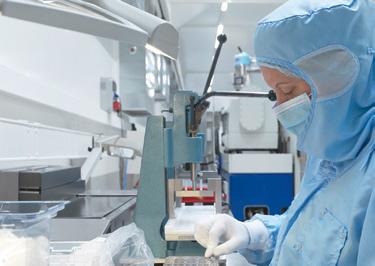
nolato.com/treff · treff.ag@nolato.com
Bioscience’s MassARRAY® System and PacBio’s Sequel IIe Sequencing Systems. The latter is a state-of-theart sequencer that inqaba began to use in 2020.
Sequencing has grown to find applications across a host of fields, as seen in the food industry where such technologies can undertake species identification.
“For instance, if someone encounters a new bacterium in a laboratory and they don’t know what it is, it’s easy to perform a DNA test on it,” he explains.
Elsewhere, inqaba’s animal genetics services by ZooOmics, provide a myriad of accurate genetic tests (health, colour, DNA fingerprinting) to the domestic, livestock and wildlife industries. Its laboratory is state-ofthe-art and holds the gold standard in sequencing and fragment analysis technologies. This might involve
genetic disease screening services, or parent verification.
“In this division we work mainly with farmers, livestock breeders, dog breeders and those working with wildlife. It’s a good example of an applied technology and we are trying to find more of this,” says Dr Preisig.
With qPCR analysis a core component of inqaba’s services, the past three years have been unprecedented in highlighting the necessity and relevance of such tools. Unsurprisingly, the company rose to the fore during the course of the COVID-19 pandemic.
“The pandemic was a good but extreme example, where suddenly certain products didn’t have much demand while for others, the demand increased significantly.”
Naturally, with the need for qPCR
testing, molecular diagnostics was an area that received heightened attention.

“Throughout the pandemic, everyone came to know what qPCR and genome sequencing meant. Before 2020, no one outside this field had really heard of those words or knew what that kind of testing was. Now, it’s an integral technology in our field,” he shares.
Inqaba stands out as the only company in Africa to commercially produce custom oligonucleotides.
“These are the short DNA molecules that are used for the PCR, qPCR and sequencing applications,” Dr Preisig explains. “They are specific to certain regions of a genome within any species, so they need to be custom made.
“When we started in 2002, our business model was that we produced these custom oligonucleotides within





















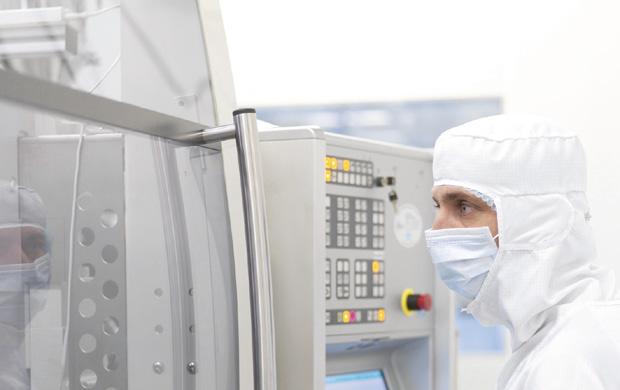




























one day for the customer, so they can start working on their project.”
This overcame a crucial hurdle for
researchers, who would typically have to wait two weeks for access to these oligonucleotides which needed to be ordered from overseas. Meanwhile, in Europe and other regions, they would be available within the day. As such, inqaba proved a game-changer for African molecular diagnostics.
“During the pandemic, researchers worldwide analysed the genome sequence of the virus which allowed the design of primers that would amplify specific regions of the virus, which in turn enabled the detection of SARS-CoV-2 by qPCR,” he outlines.
“In the beginning, commercial kits were not all so readily available, so some labs reverted to doing their own kits and their own tests. This
was when we focused on mainly producing these primers.
“While we normally work on a lot of different kinds of primers, throughout that time we focused on a large amount of that specific kind.”
A side effect of COVID-19 that resounded throughout industries across the globe was severe supply chain disruption.
“We saw during the pandemic how difficult it was to access certain materials like the plastic consumables that are used within our technologies, since all of them are produced outside of the continent,” observes Dr Preisig.
As such, a major priority for
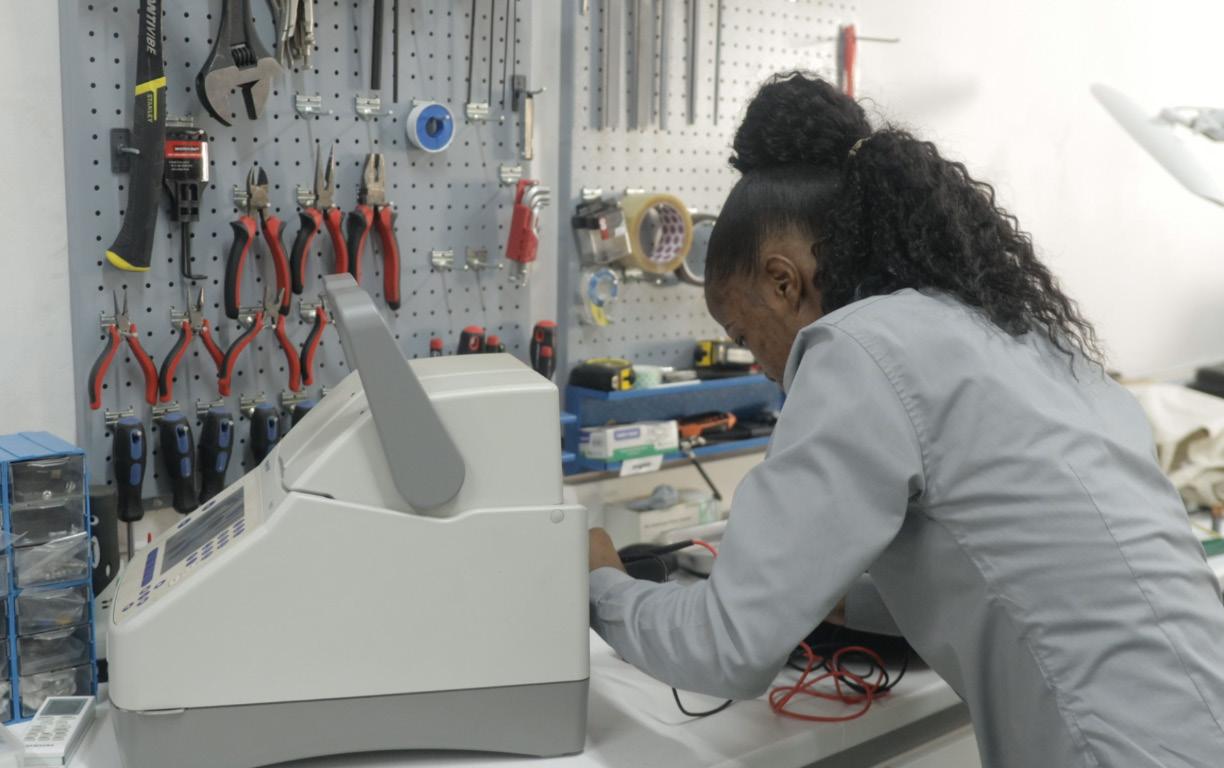
“WE HAVE DEVELOPED A REPUTATION OVER THE PAST 20 YEARS AS A COMPANY THAT DELIVERS AND KEEPS TO OUR WORD”

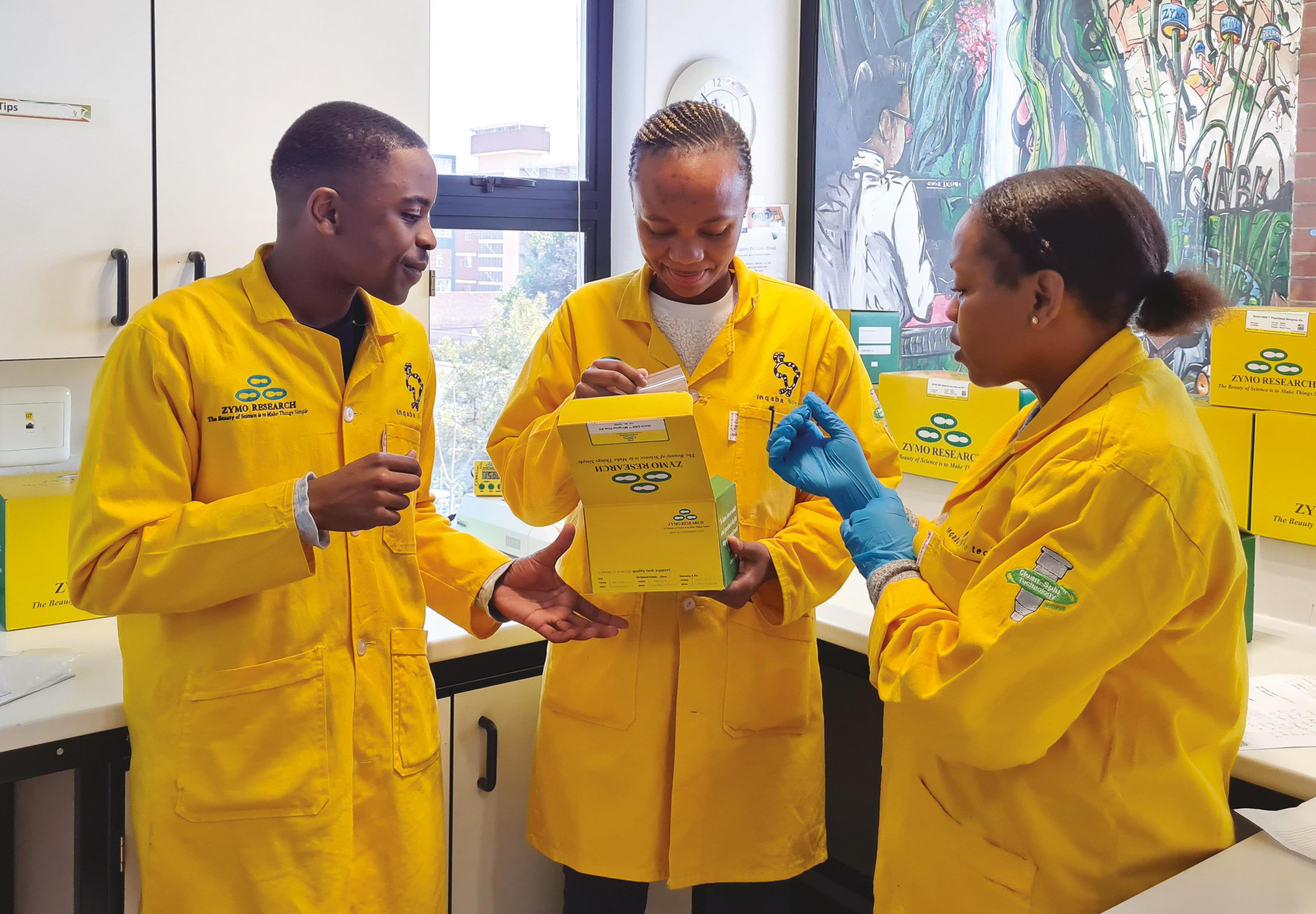
inqaba in the years ahead concerns strengthening supply chains and extending its reach to create an easily accessible network. This proved essential, now that demand has grown thanks to the burgeoning awareness and heightened relevance of genomics services in the wake of COVID-19.
“Moving forward, local production is extremely important. We will focus more on seeing what we can produce locally to create job opportunities and to ensure that we have back up for what happened in the last two years with all these shortages.
“The main focus is to grow our
Molzym is dedicated to developing, manufacturing and marketing innovative products for molecular microbiology and clinical diagnostics. Our high-quality products are used worldwide for the rapid and efficient molecular detection and identification of hundreds of microorganisms directly from samples using PCR or NGS-based methods.
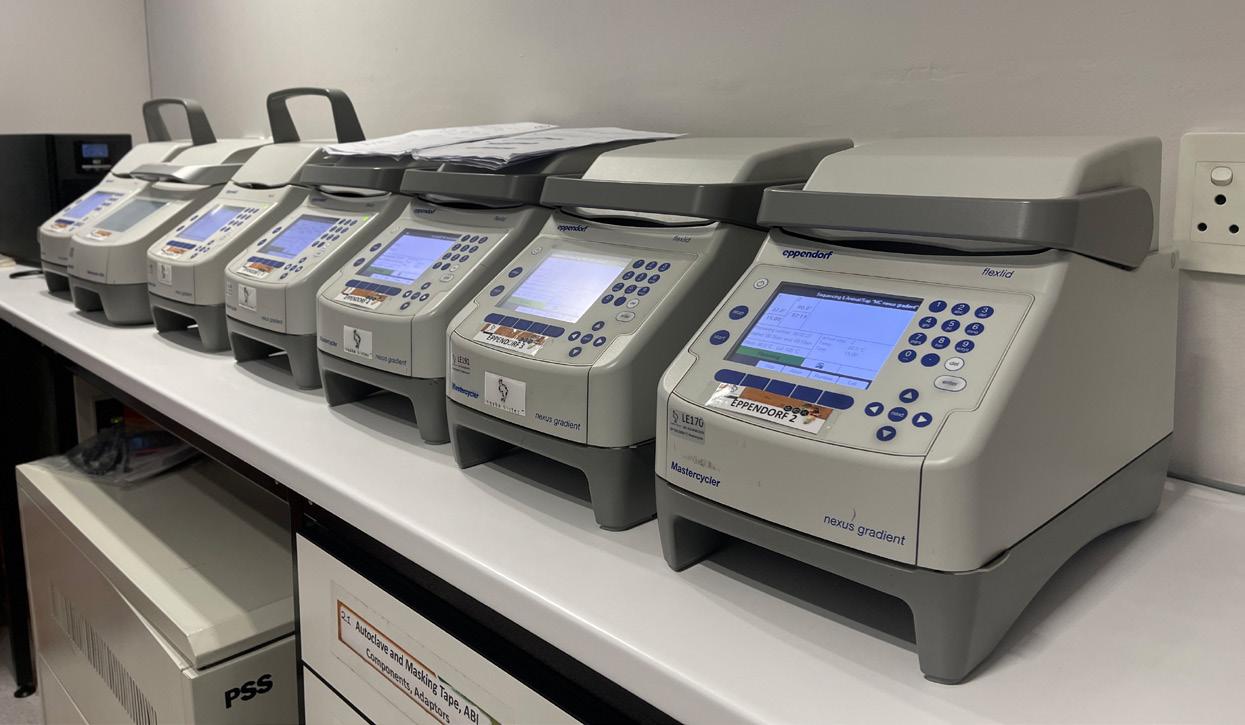
With our patented, unique and automated host DNA depletion technology MolYsis™, ultra-clean PCR reagents and assays, our research kits as well as our CE IVD-marked broadrange molecular diagnostic kits we are one of the leading providers of cultureindependent solutions for the detection of bacteria and fungi directly from body fluids, tissues, and swabs.

technologies and develop what we can locally. Some things will never make sense because our market is too small, but we must find those things that can actually be done.”
The growth of inqaba’s own footprint across Africa will further support this, as 2022 heralds the opening of new offices in Cameroon, Senegal, and Uganda. By so doing, inqaba will advance Africa’s competitiveness within the industry on an international scale.
“In South Africa and the other countries, we operate, there is not a very strong supply chain for these products that makes the researchers

Established in 1978, Basel-based BioConcept has been supplying scientific communities with high quality media and buffers for research as well as for biopharmaceutical production use.
With BioConcept going global a few years ago, it was natural to bring its offerings also to customers in the subSaharan Africa.
As such, BioConcept and Inqaba started a partnership to serve the sub-Saharan African customers. In addition to providing various media and buffers for research, BioConcept contract manufacturing capabilities serves various life-saving cancer therapy efforts as well as emerging vaccine efforts such as CoVax.
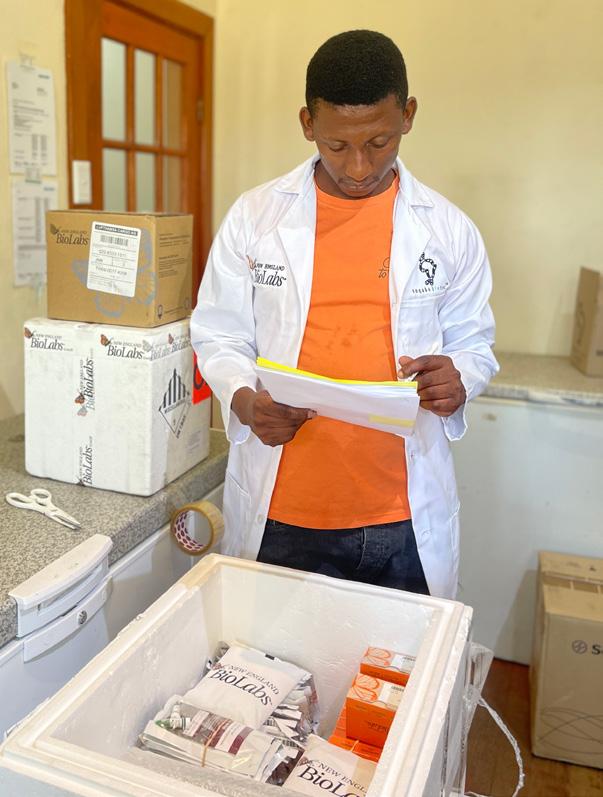


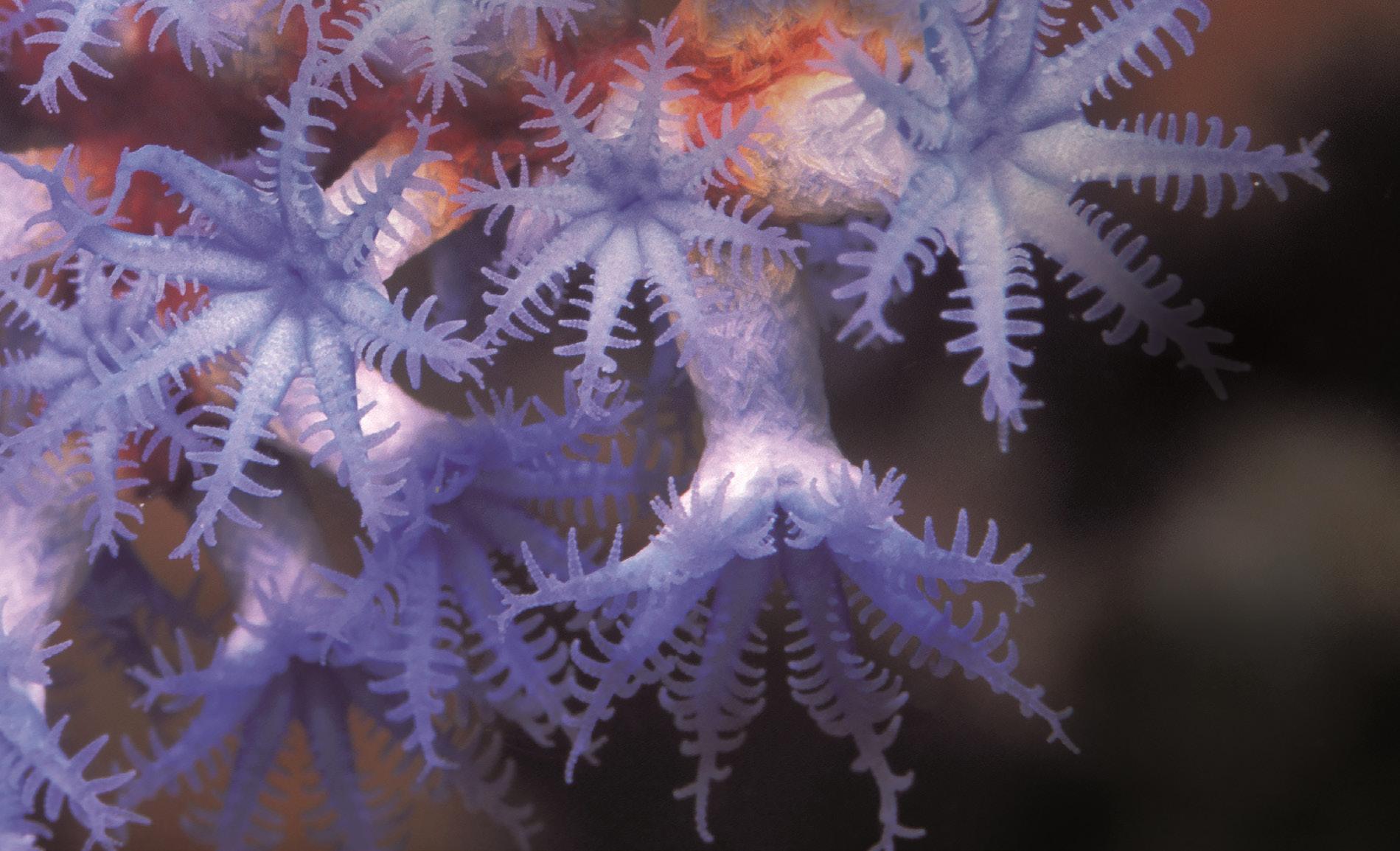
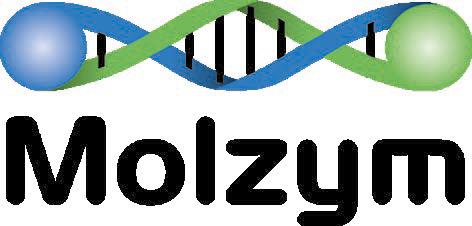
there able to compete internationally.
“Everything takes more time. You might have just finished something that other people could have done considerably more quickly, in which case you lose. This applies to research and academics, but also in the diagnostics field,” he explains.
“Our aim is to get the products that make the supply chain easier for all these customers. We open offices where we already have a good indica tion of this, and where we know, it will contribute to increasing research out put and enable the location to become more competitive internationally.”
This strategic method of expansion is evidenced by the newly opened Uganda office. The launch of inqaba biotec East Africa Ltd Uganda (IBUG) is poised to play an instrumental role in furthering the country’s biotechnology journey, which remains untapped to its full potential.
The new IBUG facility in Uganda will further inqaba’s connection with its loyal network of customers, and will leverage its trusted relationships with researchers in the country which have been developed and nurtured over the past 20 years.
Placing a constant supply of
molecular biology reagents, oligos, laboratory plastics, equipment, and molecular diagnostics products, inqaba is set to fulfil researchers’ needs in a timely manner, allowing them to remain at the forefront of their field. On-site engineers, meanwhile, provide the necessary backup for servicing instruments.
This is another step in facilitating inqaba’s aim of getting better support and logistics to its customers in the field of life sciences and molecular diagnostics as part of its contribution to further developing science and technology across sub-Saharan Africa.

Guiding the company for the dec ades to come will be its emphasis on local production, alongside continu ally growing inqaba’s operations and adapting to the new technologies that will inevitably be introduced.

“I always say that that’s the exciting thing about working in this fieldthere is always something new and it never gets boring!” Dr Preisig concludes.
As sub-Saharan Africa’s life sciences industry remains in its nascency, opportunities for development and progress abound. In a region that has the highest genetic diversity in the world, which is conveniently the most important resource for genomic studies, Dr Preisig and the inqaba team have their hands full in advancing genomics research and molecular diagnostics across Africa.
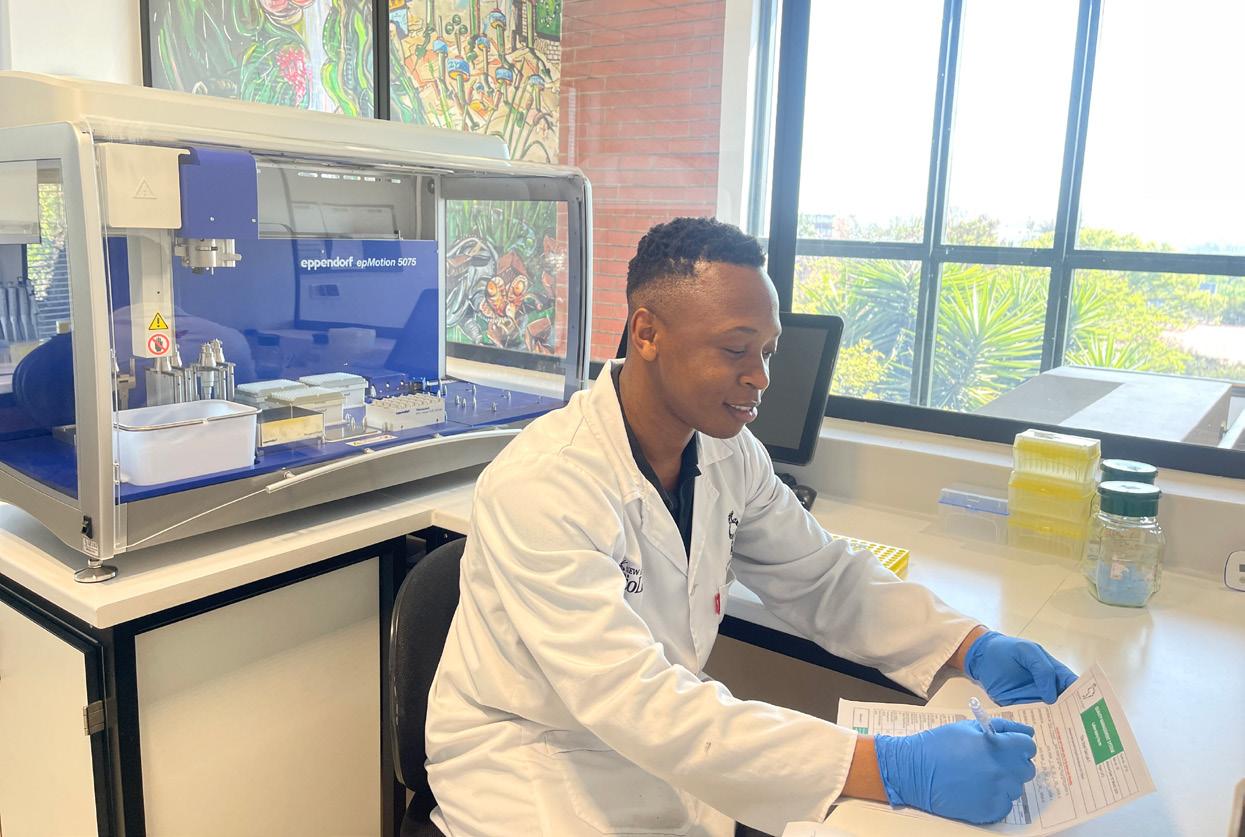

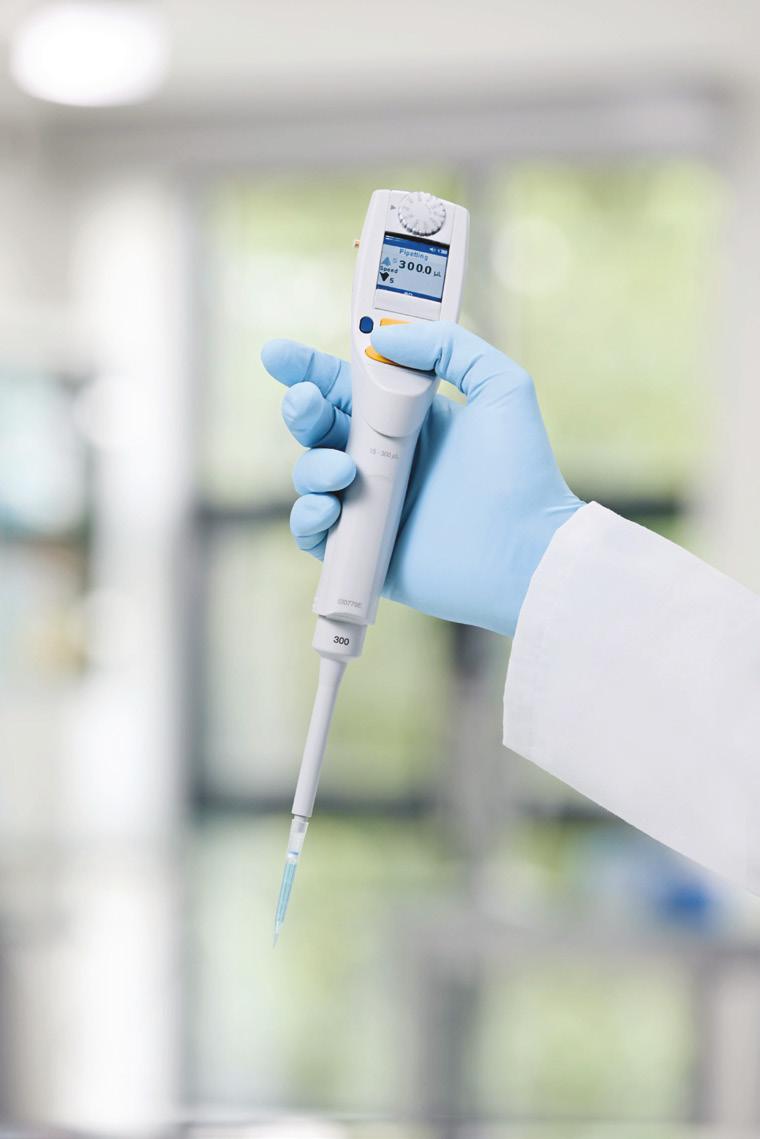


As Malawi’s first, and largest, healthcare service provider, the Medical Aid Society of Malawi champions quality healthcare for all.
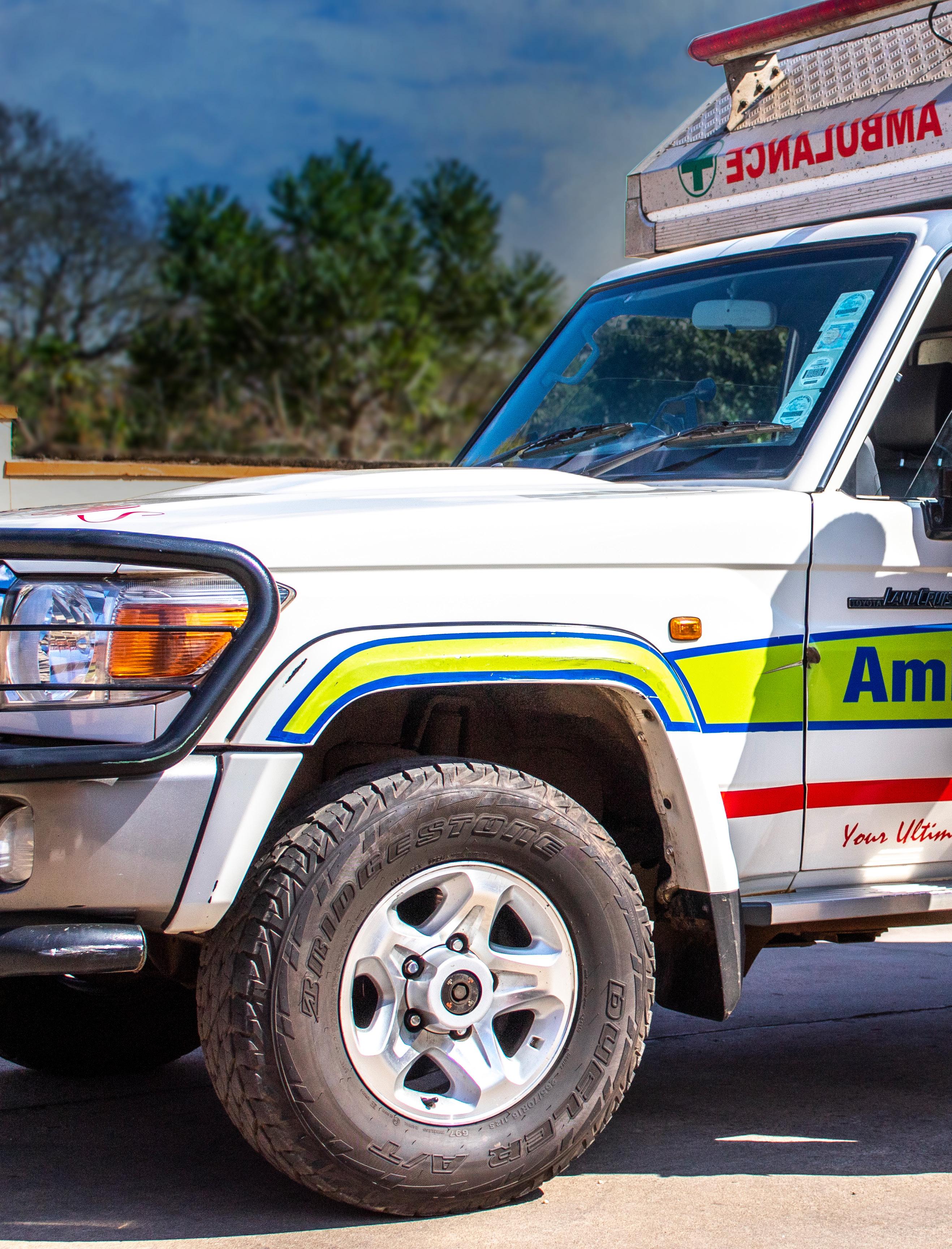
discuss
and future growth
Rather like the steep peaks and trenches of the Great Rift Valley that shape the country’s topography, the landscape of Malawi’s healthcare sector is one defined by arduous challenges to overcome and hurdles to climb.
This physical terrain itself represents a natural impediment to universal health coverage (UHC), with vast swathes of Malawi’s population residing in rural areas where remote access can be a major issue. The country’s primary care facilities are located in the most populous cities of Lilongwe, Blantyre, Mzuzu and Zomba, with smaller operations including rural clinics, dispensaries and health centres dotted throughout the rest of Malawi.
As is common to many areas in subSaharan Africa (SSA), Malawi must confront rising population levels in the face of an already overburdened healthcare system.
“The healthcare industry in Malawi remains underdeveloped, underregulated and with a very low penetration of less than one percent of the population.”
As orator of this opening statement, Sydney Chikoti is fully alert to the fraught context and difficult predicament of Malawi’s current health care system. Chikoti sits as CEO of the country’s largest medical aid service provider, and a pioneering leader in the provision of affordable healthcare solutions for all Malawians.
Enter the Medical Aid Society of Malawi (MASM).
Since its establishment in the 1960s, MASM has grown significantly from its roots as a small organisation to become a renowned household name. Indeed, MASM now holds over an 80 percent share of the national private health insurance market.
“MASM is the largest health insurance services provider in the country. We boast the largest service provider network, with over 300
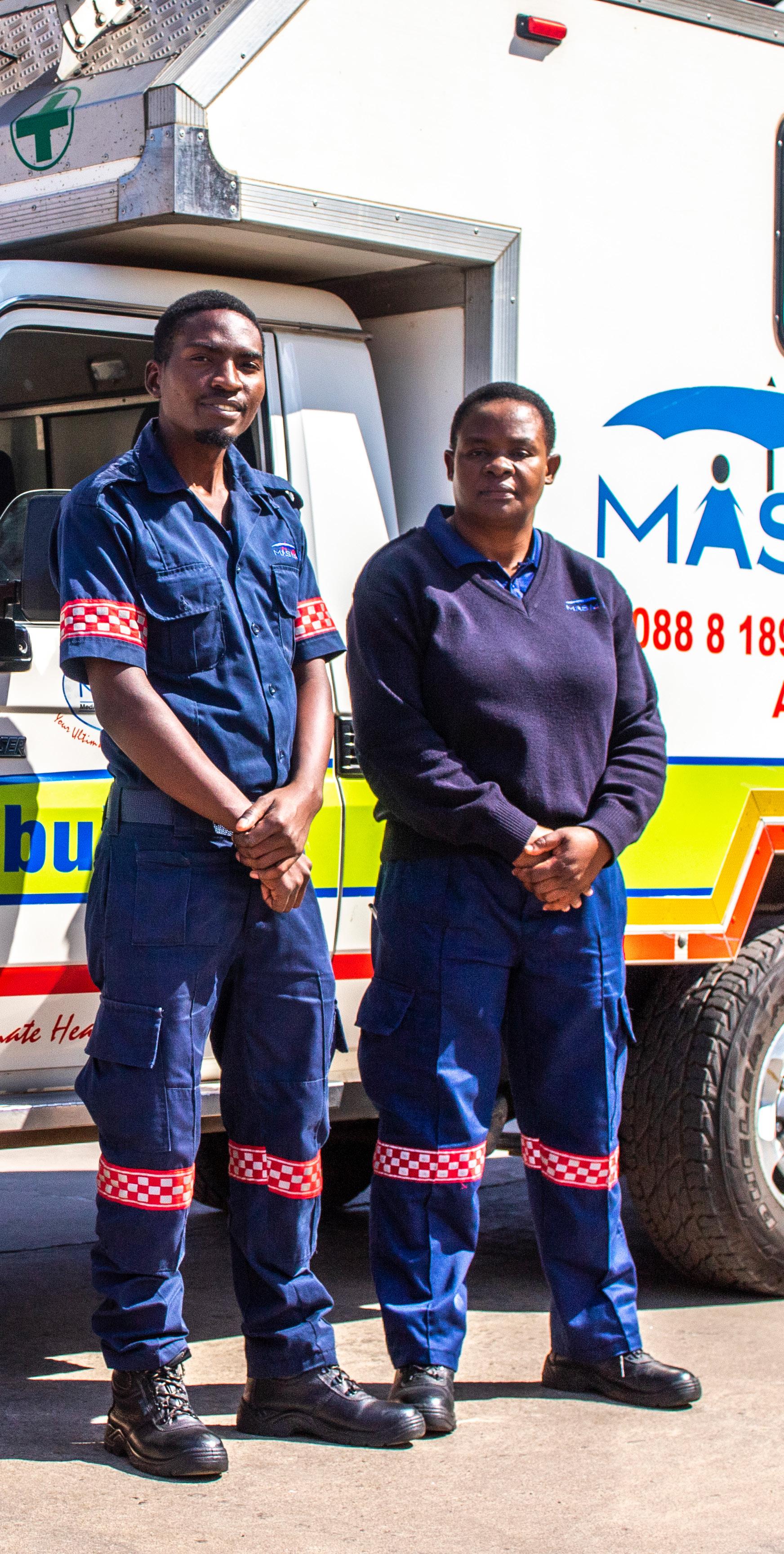
service providers that offer various healthcare services to the Malawian population in all four corners of the country,” introduces Chikoti.
“Our staff complement has grown from 20 to over 100 in recent years. This excellent rate of growth has come about through our quest to always pro vide high-quality healthcare solutions to our members at affordable rates.”
This truly national reach extends from the company’s head office in Blantyre, to two further offices in the northern region of Mzuzu and in Lilongwe, where MASM is strategically located to cater to the needs of local government and Malawi’s main corporate entities.
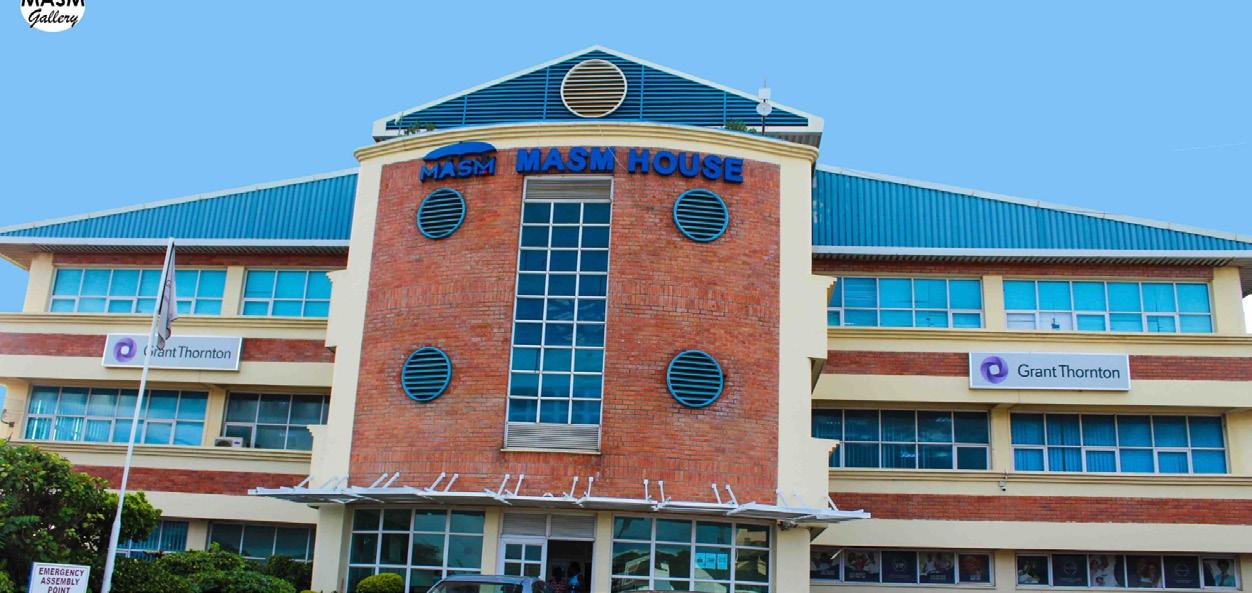
“The society has also established links with strategic partners in South Africa and India to ensure seamless access to healthcare service facilities for its members who require such services in those countries,” he adds.
The society works as a memberowned and operated entity, presided over by the secretariat and CEO. The majority of MASM’s members are formal sector employees who prefer to receive medical treatment from private facilities where health insurance is applicable. Elsewhere, a growing number of parastatals and smaller firms contract MASM to administer health care service schemes on their behalf.
MASM offers a wide spectrum of products, ranging from premium to basic, affordable services, designed to cater to a varied populace.
“This ensures that the majority of Malawians can pick what they can afford,” says Chikoti.
MASM members can choose from three different levels of membership –VIP, Executive, and EconoPlan – which
MISSION – MASM endeavours to satisfy its members by providing innovative and affordable healthcare solutions through its wide network of service providers and efficient processes.
INTEGRITY - Moral uprightness defines the MASM way of doing business.
CUSTOMER EXCELLENCE - Member satisfaction is the top priority.
EFFICIENT - Proficient process optimisation to the satisfaction of MASM members and service providers.
INNOVATIVE - Always finding the best ways to serve members and service providers.
Shalom Dental Services is one of the key service providers preferred by MASM. This goes to say that the majority of MASM members seek dental services from Shalom Dental Services.
Shalom Dental Services got enlisted with MASM as a dental service provider in the year 2000 which happened to be the year that Shalom Dental Services was opened.
The core values of Shalom Dental Services are integrity in conducting our business and keeping high standards. This has helped us to grow steadily. We now have seven dental surgeries and a fully equipped dental laboratory.
MASM has been a very good partner in our success. Since MASM is the largest Medical Aid service provider in the country, they have many members. We enjoy the patronage of their members at Shalom Dental Services. We actually treat more of MASM’s members than any other Medical Aid Insurance provider in the country. The other thing that we enjoy in our business partnership with MASM is their steadiness and faithfulness in monthly payments of our money after we tender claims to their account department.
High standard dental services are provided at Shalom Dental Services. This raises the image of MASM as well because their members get satisfaction with our services. In this way we make sure that MASM members continue coming to Shalom Dental Services and also continue being members of MASM. Shalom Dental Services has high quality of dental equipment and dental laboratory equipment with well trained dentists and dental laboratory technologists. This is what MASM members would love to see.

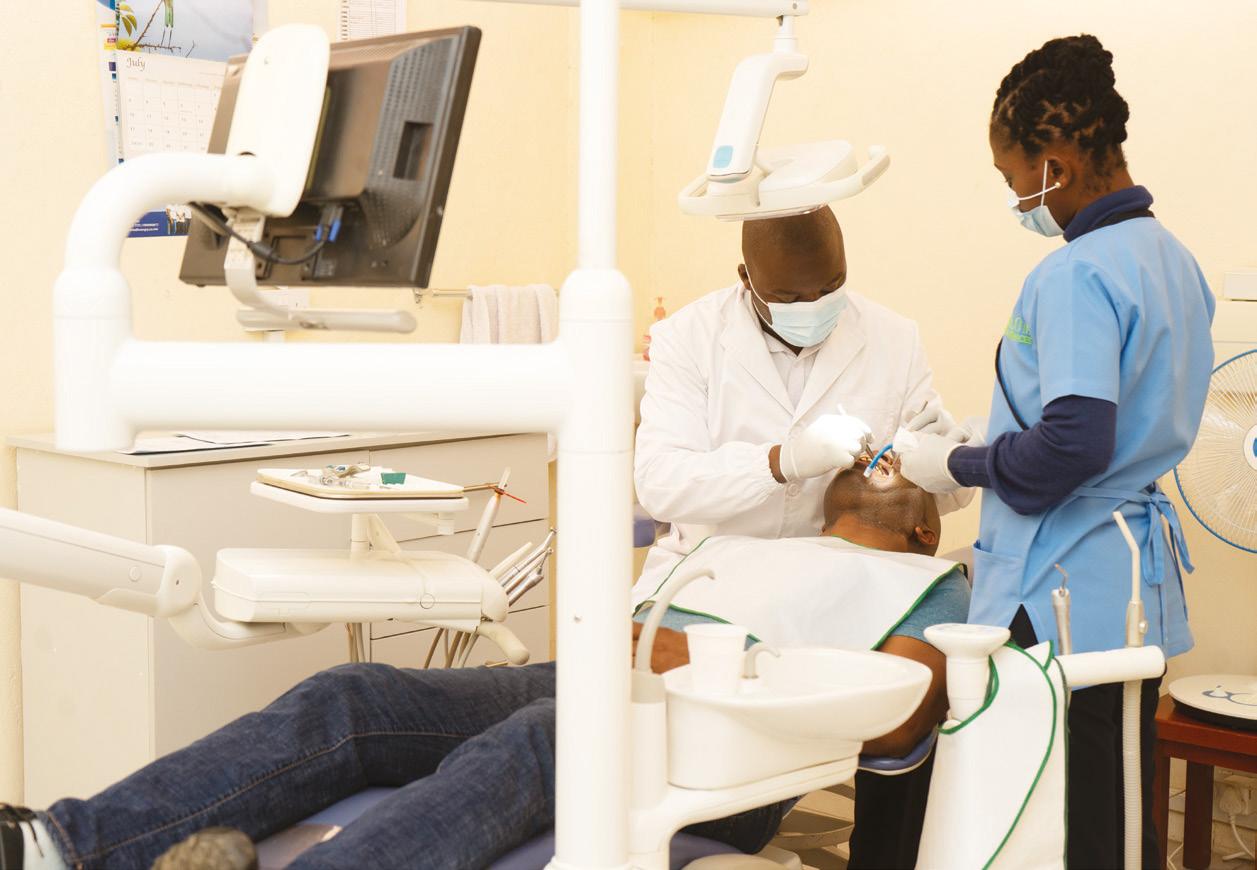

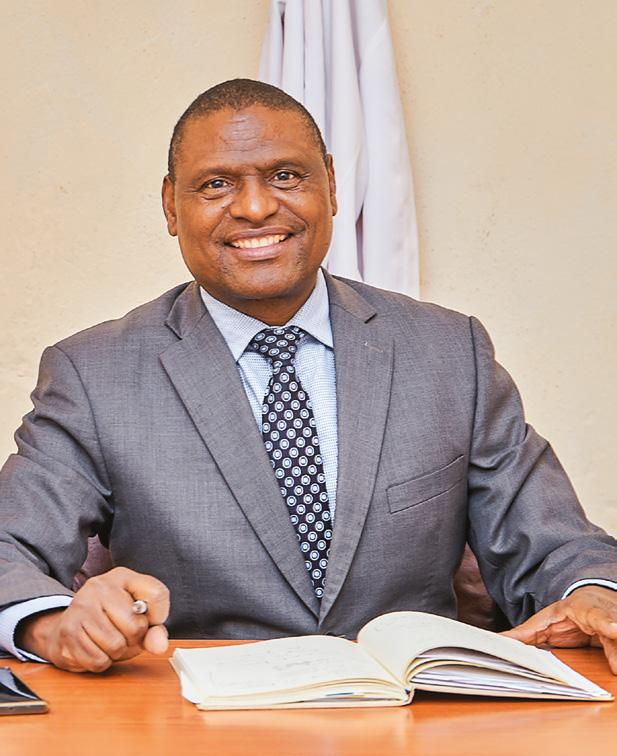
are high-end to low-end schemes respectively.
In addition, the company provides link-on products and tailor-made schemes to cater for a wider population, complementing valueadded services such as the MASM Emergency Medical Service. The latter provides a critical fleet of fully crewed and equipped ambulances.

Other value-added services include the recent introduction of a USSD-based mobile service, funeral benefit cover, a dedicated pensioner’s account, the MASM@Ur Doorstep payment facility, and MASM Serve - a chronic medicine benefit facility that provides members with access to the appropriate medication.
“We strive to provide membercentric products as we offer the ultimate healthcare solution to all,” Chikoti shares proudly.
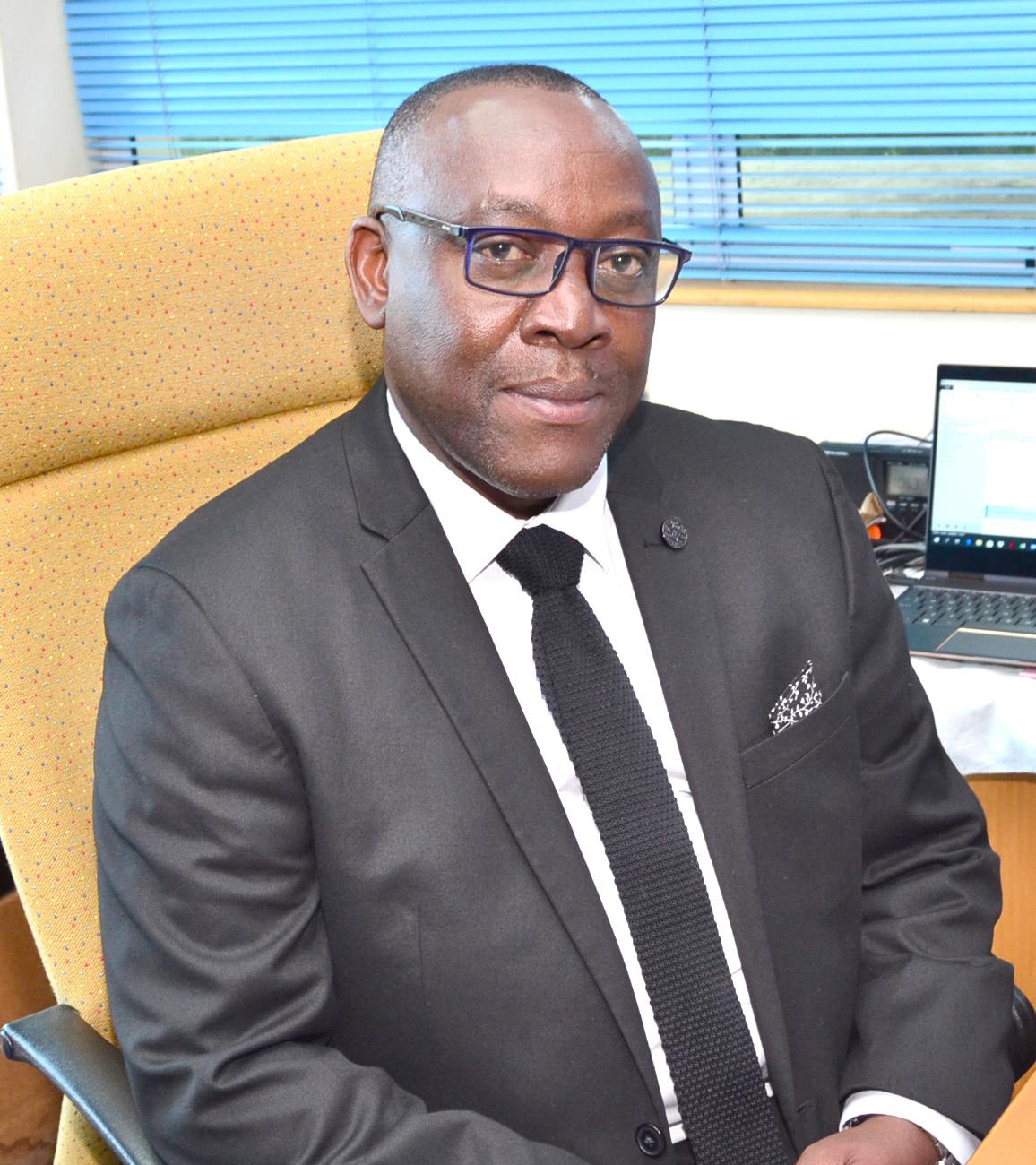
Aside from this, MASM continues to navigate people’s expectations of health insurance and the value of what it provides as a means of financing health care.
“These expectations may be whether health insurance represents value for money, issues of equity, to the role of possible demand-side factors such as income, education, sex, geographical location, marital status, age, health status, and dependents, with the supply side factors such as service quality, accessibility and risk, determining
Sydney Chikoti, CEO“WE STRIVE TO PROVIDE MEMBER-CENTRIC PRODUCTS AS WE OFFER THE ULTIMATE HEALTHCARE SOLUTION TO ALL”
– SYDNEY CHIKOTI, CEO, MASM
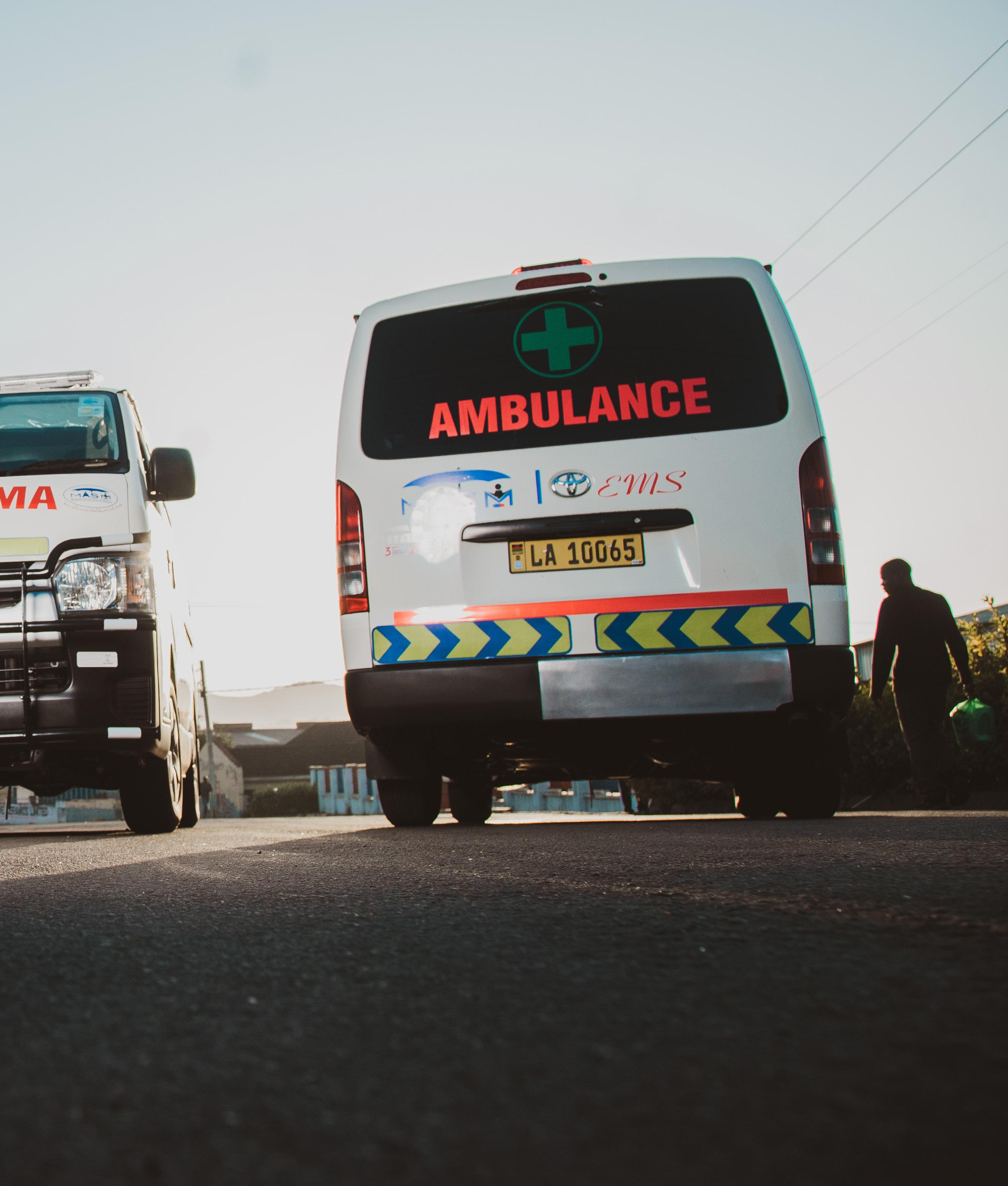
the acquisition of membership in the schemes,” he elaborates.
Although Chikoti informs us that over 150,000 lives are currently covered through MASM’s health services, he recognises that this is just a tiny portion of Malawi’s entire population, which currently sits at roughly 18 million people.
A host of challenges abound that threaten to hamper the progress of MASM’s ambitious growth agenda, as it continues to champion its vision of accessible healthcare for all Malawians.
“There is a mixture of challenges
and excitement in the industry, especially in strategising the buy-in of potential members while at the same time retaining the existing membership,” he comments.
Chikoti attributes MASM’s low penetration into the healthcare industry to the fact that the Malawian government provides complimentary medical services in government hospitals with no mandatory health insurance in place. As such, MASM must work with a population that is accustomed to having the government provide healthcare services for free.
“Although MASM membership has improved with multi-industry
MASM has implemented a USSD-based mobile service which works like MO626, EazyMobile, AirtelMoney or Mpamba. The service has two main components - the Service Provider Module and Member Module.
This module is intended to be used by health facilities as follows:
1. VALIDITY CHECK – for checking whether the member is paid up or not;
2. BENEFIT UTILISATION CHECK – for checking how much a member has used on a particular service line year-to-date; and
3. SCHEME LIMIT CHECK– for checking how much of the overall scheme limit the member has used year-to-date.
This module is intended to be used by members as follows:
4. MEMBERSHIP:
Validity Check
b. Benefit Utilisation Check
c. Claims Check – shows claims that have been processed by the society for the current year for a particular member of a family
5. GROUP BALANCE – for checking group balances;
SCHEME LIMIT - for checking how much of the overall scheme limit the member has used year-to-date;
that members
We at Dr. Anthony’s believe in the conception of providing honest, genuine, and upscale dental care irrespective of whether you are here for a consultation or on a more extensive procedure.
We are always willing to spend quality time getting to know you, and understand your needs to cultivate an environment that either of us could cherish.
Our doctors ensure to explain all feasible treatment options best suited to resolve any of your dental problems and this very approach to delivering personalised care and experience one can count upon has blessed us to transcend in time.
on
ECO
membership recruitment, this growth has not been significant in the past two years mostly due to the COVID19 pandemic, as businesses had to rethink their approach and shift priorities,” observes Chikoti.
Regardless, MASM remains unwavering in its pursuit. “We formed a subsidiary company with its own board management who are running a series of private clinics,” he explains. “They have the mandate to grow that business, since, in order for health insurance as an industry to grow, there have to be multiple private clinics.”
At present, the MASM Medi Clinics amount to five separate sites. Whilst this network is geared for expansion, its growth remains subject to the imposition of government regulations which may limit MASM from service provision.
By increasing the number of private clinics in cities, rural areas, and villages, the value of such facilities becomes
AREA 3 BRANCHPlot # 3/898, Young Road Mtunthama Drive, P.O. Box - 1450 Lilongwe, Malawi
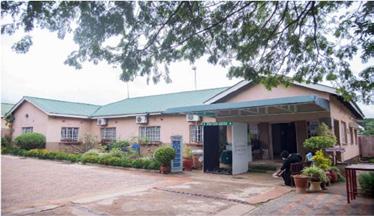
Tel:
clinic
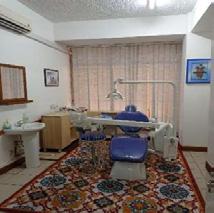
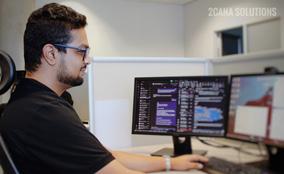
its handpicked exemplary-cum-proficient dental team on state-of-the-art equipment facilitating expansion from its main branch at Area 3 to City Centre and Blantyre respectively.


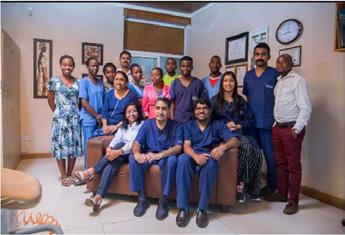
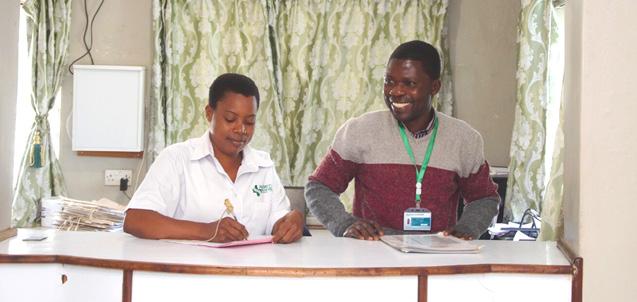
CITY CENTRE BRANCHCity Centre, Plaza House # 19/31, Crescent Road, Lilongwe, Malawi
Tel:
General Dentistry
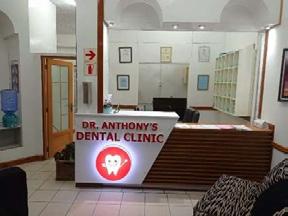





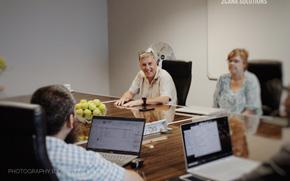
canal treatment
Crown & Bridges
Dentures
BLANTYRE BRANCHDevelopment House, Henderson Street, P.O. Box 728 Blantyre, Malawi
Tel:
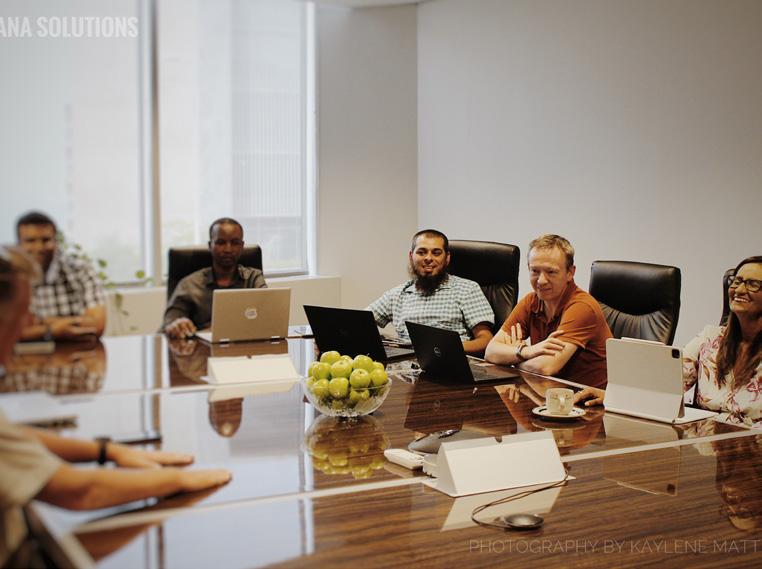
“A dental
built on trust to do the right thing”
more obvious to the general popu lation. As private clinics, individuals may not have the financial capacity to access these services, which is where MASM has a critical role to play.
“We have seen that with the growth of the private sector in establishing these facilities and private clinics, comes more enquiries and an increase in the amount of people joining MASM,” Chikoti tells us happily.
Across SSA, Malawi has one of the highest population-to-medical professional ratios. As such, the country, and by extension MASM, places a huge emphasis on the development and cultivation of medical personnel to overcome labour shortages.
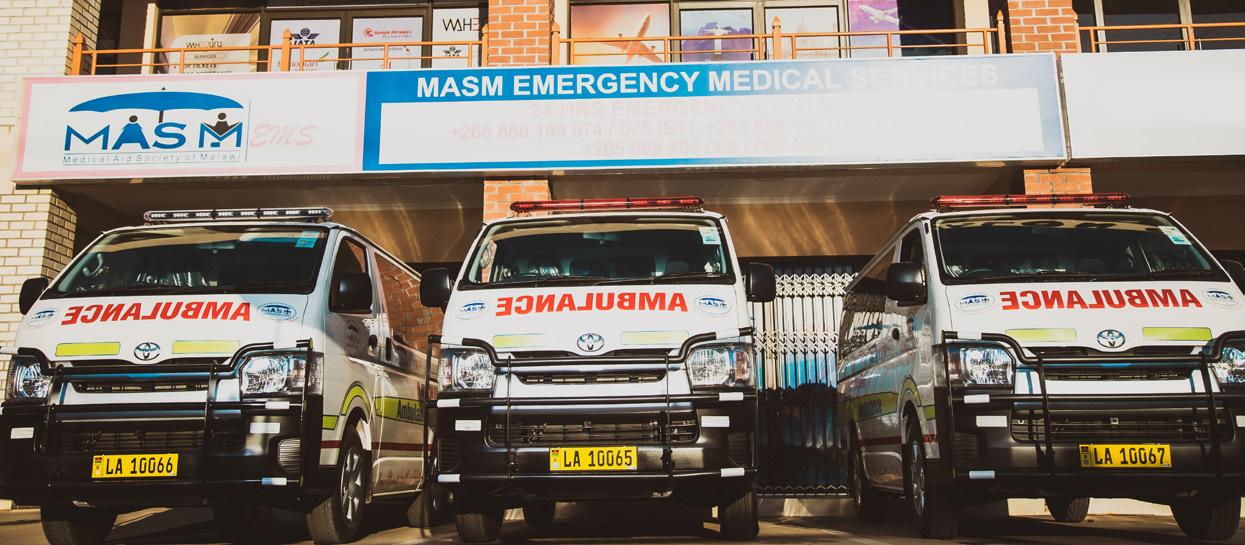
One such example is the medical
college at the University of Malawi, which since 1991 has sought to alleviate the shortage of doctors. It is this same university where Chikoti himself spent many years of his career teaching finance and accounting, before transitioning into a role at National Insurance Company Limited (NICO), Malawi’s largest insurance company. As General Manager of NICO’s health insurance arm, Chikoti encountered MASM, since the company was using its administration services.
Today, MASM supports the national education of healthcare professionals by partnering with public institutions such as the University of Malawi to offer internships for young students.
“We arrange training that is relevant to the students, but it’s also to the benefit of MASM itself,” Chikoti says.
In addition to providing opportunities for those who are new to the industry, MASM takes pride in nurturing its own workforce and encouraging staff progression.
“We ensure that our staff remain motivated at all times. We empower them in different ways, but especially by encouraging training and self-development.
“Internally, we always recognise those of our staff who work beyond the norm and make sure that they are rewarded for their work,” Chikoti elaborates.
Additionally, the work that MASM does is by its very nature empowering and rewarding.
“Being a service industry, from time to time, we do get feedback from our clients. When those clients come forward and show recognition for the service that has been provided, that is extremely satisfying for our members of staff.”
Chikoti highlights one such example during the COVID-19 pandemic, when MASM staff were recognised for their diligent work by one of the company’s larger clients – the United States Agency for International Development (USAID) - who visited MASM’s premises to reward staff with individual certificates.
Continuing on the topic of the COVID19 pandemic, it was this challenging period that highlighted the need for all companies across myriad sectors to keep pace with digitalisation and incorporate technology to compen sate for the lack of physical interaction.
“We had to empower our staff with the necessary gadgets and so on so that they could work from home and perform their normal tasks, whilst also interfacing with our service providers as well as our clients – the MASM members. Throughout the peak period of that time, our members were still able to access services
 MASM donates towards rehabilitation of a children’s ward at a hospital as a CSR activity
MASM donates towards rehabilitation of a children’s ward at a hospital as a CSR activity
Outlook Publishing’s award-winning in-house team is now utilising its extensive production skills to offer a full and bespoke range of editorial, design and marketing services via its new Outlook Creative Services division.
MORE INFORMATION VISIT:
without any problems,” comments Chikoti.
This technological access was crit ical for MASM staff to continue oper ations uninterrupted. But the MASM digital agenda is also instrumental in furthering the company’s accessi bility goals, by implementing ease of access to the company’s services in the virtual realm. With COVID-19 as the catalyst, MASM set about a new way of operating.
“We realised that we needed to look beyond doing business as usual – people weren’t going to be coming to the front desk to pay for their membership and get approvals. We had to ensure that we quickly went into the digitalisation of all our services,” he affirms.
Now, MASM customers no longer need to register in person at a company office but can do so online instead. Similarly, for cover payments, MASM’s members can make use of a host of digital platforms to process

premium payments.
“We have integrated with mobile operators but also many commercial banks who are now able to collect pre miums for us. Members don’t need to come to the office and their contribu tions will still be updated immediately to confirm their membership status.”
Complementing this integration is an app that MASM members can download to access their individual accounts and enjoy real-time visibility of their membership cover and any premiums left outstanding.
“This is one area that we have paid significant attention to recently to make it easier for us to service both our members and the service providers,” says Chikoti.
The years ahead are exciting for MASM, with further growth firmly on the horizon.
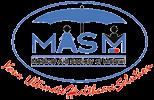
“Last year, the Civil Service signed up to a contract with us to help grow
our membership,” shares Chikoti. “We are extremely excited about this since they are the biggest employer in the country.”
By becoming a registered employer, MASM’s reach will extend to civil servants everywhere in Malawi, from major cities to village level.
“Through this, we expect our mem bership to grow significantly. Soon, we hope to reach at least 70,000 new members. It is a challenge, but we believe it is one that we will be able to surmount.”
Tel: +265 (0) 211 820 543
(0) 211 820 064
The presence of a training and research centre, together with clinical health services, is not a common model in Ghana and indeed the rest of West Africa.”
Research sits in between academia and clinical services, and University of Ghana Medical Centre Ltd. (UGMC) is distinguished in that it has all three located within the same premises.
“We intend to synergise healthcare, training and research for maximum impact and efficiency,” opens Dr. Darius Osei, CEO of UGMC.
The vision of the centre is to be distinguished in these three focal areas, with the UGMC Health Care Services Wing (HCSW) promoting favourable health outcomes through innovative, customer-centred, costeffective and high-quality processes.
By demonstrating compassion, care, and courtesy to patients, as well as collaborating with all stakeholders,
HCSW reflects the globally acclaimed Ghanaian spirit of hospitality that UGMC seeks to embody.
“UGMC is focused on delivering an excellent and unparalleled patient experience through a client-centric approach across all operational facets. We are passionately committed to the provision of patient and family-centred care to ensure better outcomes for our patients and their loved ones,” Dr. Osei emphasises.
“Our 1,000-bed HCSW has the biggest intensive care unit (ICU) in Ghana, the second-largest cardiothoracic centre in the country, and so far we have successfully conducted 12 open-heart surgeries.”
The UGMC Medical Training and Simulation Centre (MTSC), meanwhile, is a nationally recognised, multi-disciplinary academic centre committed to achieving excellence in medical education, through the use of high-quality, cutting-edge
computer-based simulations.
MTSC allows pre-service health professionals to learn various skills in a realistic but risk-free environment before encountering real patients, and enables practicing health professionals to upgrade their ability to diagnose and manage various conditions. Non-health professionals can also acquire basic life support skills at MTSC, which can contribute significantly towards a patient’s survival.
Last but not least, the UGMC Medical and Scientific Research Centre (MSRC) aims to facilitate
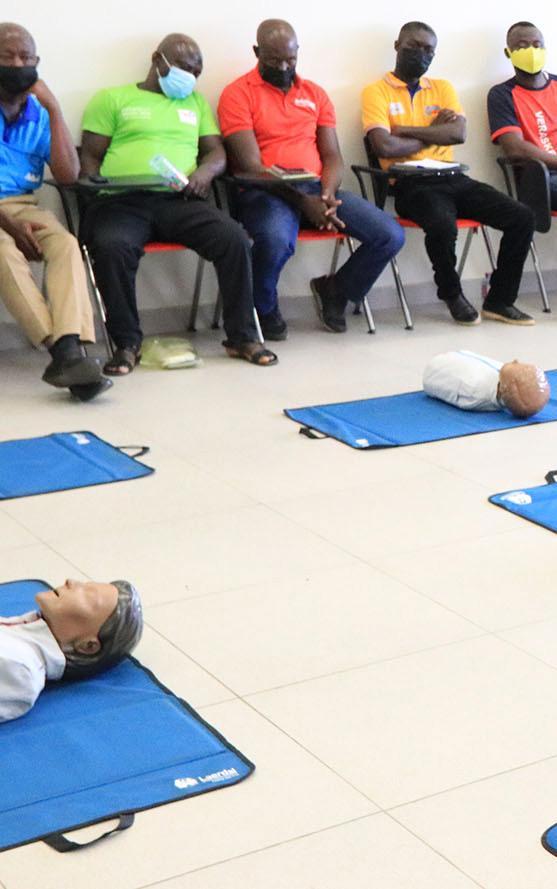
University of Ghana Medical Centre Ltd. is positioning itself to offer quaternary services. Dr. Darius Osei, CEO, discusses synergising healthcare, training and research
translational research that will discover new treatments, methods and procedures to improve health in Ghana, Africa, and across the world.
“We are committed to making medical research seamless, and MSRC serves as a central hub for local and internationally funded research projects. Areas of specific focus include cardiovascular genetics, maternal foetal medicine, infectious diseases, clinical trials, and more,” shares Dr. Osei.
Turnkey construction of UGMC
commenced in 2013, and having been partially operational since July 2018, the second phase of the project was recently completed in December 2021.
The centre, whose client base reached almost 30,000 at the end of 2021, is magnificently nestled on the southernmost tip of the University of Ghana, the country’s premier university located in Legon, Accra, and close to the Noguchi Memorial Institute for Medical Research.
Now fully open to the public on a referral and/or appointment basis, the completion of Phase II signifies the
completion of all three UGMC focal areas, as the centre positions itself to offer quaternary services.
“Establishing a quaternary centre is a herculean task, and so as we gear ourselves towards the provision of quaternary services, we need to be resourced with the necessary infrastructure and equipment to be able to deliver more sub-specialised services,” Dr. Osei affirms.
It comes as UGMC plans to become one of the best destinations for medi cal tourism in the sub-region, by offer ing world-class patient care, training and research accessible to all.
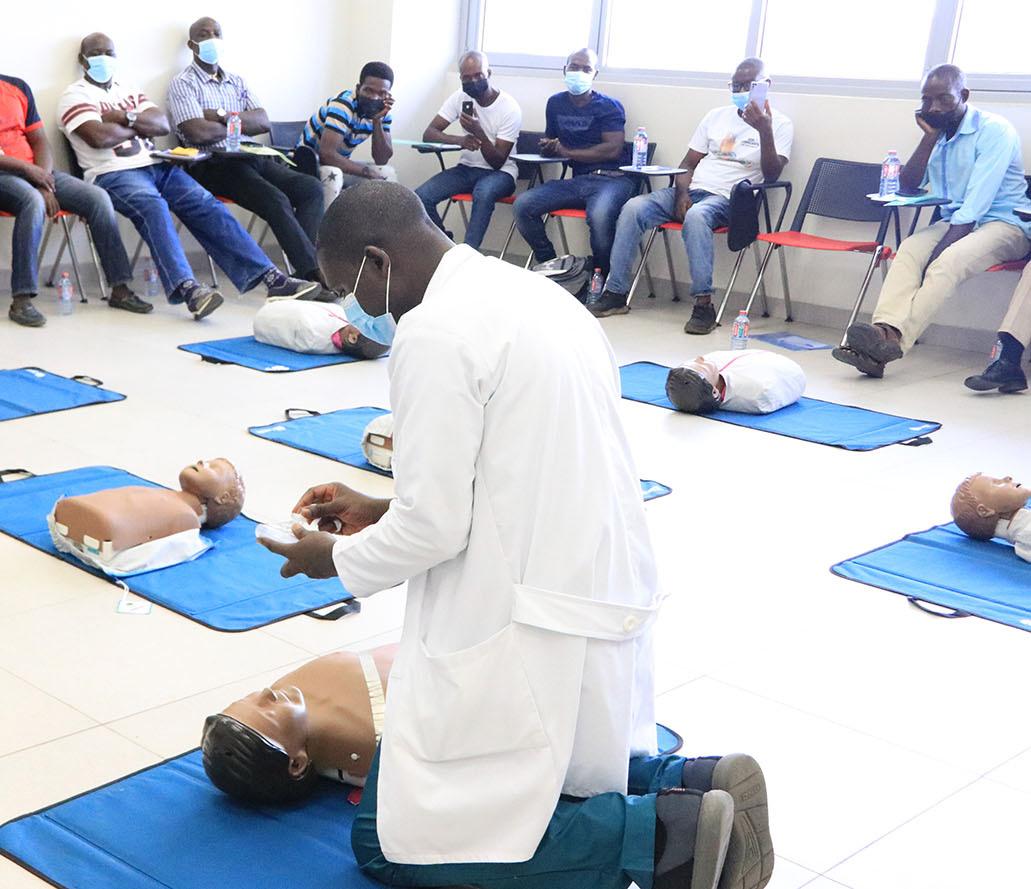 BLS training
BLS training
“The issue of medical tourism has to be looked at from two points of view: that of the quest for quality care, and that of confidentiality for the individuals concerned,” explains Dr. Osei.
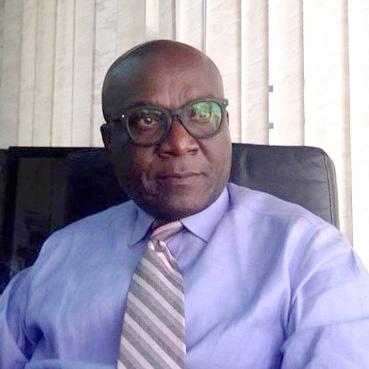
“We are therefore working on both fronts to ensure that the centre is a destination of choice, irrespective of the concerns of patients.
“By leveraging the right collabo rations and partnerships, we intend to inspire hope and promote health through advanced clinical practices, education and research,” he continues.
UGMC’s world-class care was demonstrated at the onset of the COVID-19 pandemic in March 2020, when the centre was designated as one of the national COVID-19 treatment centres in Ghana by the Ministry of Health.
More than 700 patients diagnosed with COVID-19, including those who required intensive care, were success fully treated by UGMC. The centre
also remotely managed over 4,000 suspected cases by partnering with the international non-governmental organisation, PharmAccess, to work on a digital health innovation called COVID-Connect.
The centre began operations in 2018 with a skeletal complement of 127 staff, however its numbers have progressively increased over the years.
Today, UGMC has 1,031 employees, predominantly comprising nurses, midwives, support staff, medical offers and other clinical personnel, as well as a number of specialists, consultants and management staff.
“A total of 43 health professionals have been sponsored by the centre to train in various specialty areas, as part of our strategy to develop our employ ees’ capacity towards quaternary healthcare provision,” Dr. Osei reveals.
GEE was established in 1982 to fill the gap of high-quality maintenance healthcare facilities. Today, GEE has grown to offer comprehensive solutions for the management of the entire health technology.
Outsourcing your medical equipment maintenance to GEE grants you an improved response, diagnosis and repair time thanks to highly qualified in-house staff, along with elimination of bureaucracy in acquisition of parts and allows you budgetary control.
In addition, GEE offers you advisory services in acquisition of technology and a real time supervision through our in-house designed CMMS.
DR. DARIUS OSEI, CEO: “As far as our HCSW clinical health services are concerned, UGMC has the biggest ICU in the country and is the only publicowned medical facility providing IVF services. Further, it houses the secondbiggest cardiothoracic centre in West Africa.
“HCSW rewards value over volume, and encourages providers to focus on the outcomes they achieve and not merely on the number of procedures they perform.
“With regards to MTSC, it is the biggest in West Africa and geared towards addressing resource gaps by training health professionals.
“The latest good news is that MSRC has secured the funds to establish the first ever Clinical Trials Unit in West Africa, to ensure that there is local content as far as clinical trials are concerned – rightly so because Africans have the most genetic diversity in the world.”
Isabella Healthcare Services (IHS) is a large-scale medical supply distributing company in Ghana specialised in providing surgical consumables to a variety of clinics and hospitals.
Our surgical packs are sterile, prepacked, disposable and produced in accordance with the standards of Ethylene Oxide (EO) sterilisation and Food and Drugs Authority (FDA) in Ghana to ensure patient and healthcare worker safety, efficient management of operating rooms and infection control.
We believe access to quality healthcare products and services is a fundamental human right. Our products are consumer-centered, we design our products with the safety of our client’s patients, healthcare team and daily operations in mind.
HealthCare Services is a medical supply and solution company inspired by our
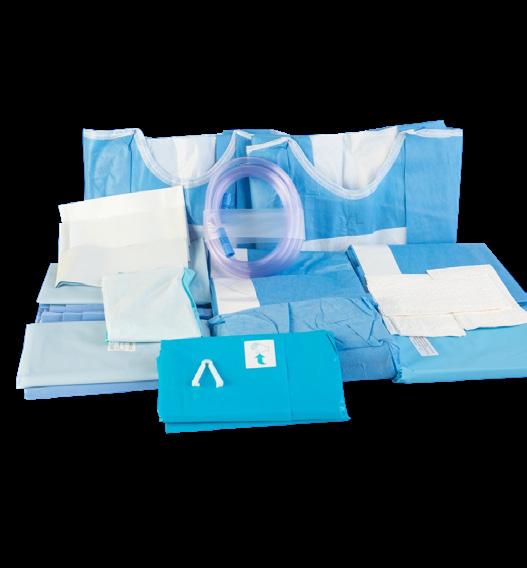
an experienced healthcare
with

years of clinical
giving us a deep understanding of the healthcare industry. ISABELLA specializes in surgical products and is recognized as the leader in the provision of ISO and FDA-


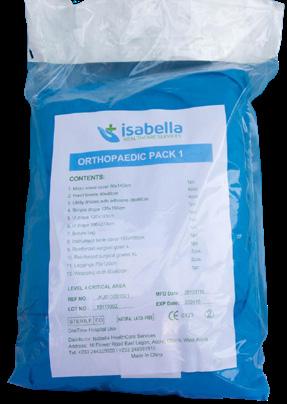

“We also hold regular leadership training sessions for staff and provide incentives away from what is provided in mainstream public service.”
UGMC is relentless in its pursuit of developing the next generation of healthcare professionals. The centre has signed memoranda of understanding with other health training institutions that have expressed interest in having their undergraduate students trained at MTSC, including the University of Ghana Medical School, Pentecost University, Knutsford University College, and Entrance College of Health and Allied Science.
“MTSC has had a series of simula tion training sessions for both health and non-health professionals within and outside UGMC. We have also started training pre-service health professionals and students from vari ous institutions,” says Dr. Osei.




DR. DARIUS OSEI, CEO: “After being bitten by a baboon at the age of 14, and being well taken care of by the doctor in my village in a remote part of Ghana, I vowed to become a medical officer when I grew up.
“I am a seasoned hospital leadership and management expert with over 30 years of experience in hospital management, in both the public and private health sectors.
“I have held several hospital management positions, including serving as the Medical Director of a secondary-level healthcare provider in Cape Coast, Ghana, which is now a tertiary provider. I was also the General Manager of a quasi-governmental hospital, The Hospital Trust, for 12 years and oversaw the tremendous growth of the hospital by establishing several satellite clinics and specialist hospitals across the region.
“In July 2018, I was appointed by the President of Ghana, His Excellency, Nana Addo Dankwa Akufo-Addo, as the acting CEO of UGMC to oversee the operationalisation of Ghana’s first ever quaternary medical centre.”
 Mammogram machine
IVF facilities
Mammogram machine
IVF facilities
An increasing number of health workers in Ghana are interested in training programmes, thanks to allowances that are being paid by the government to those who show an interest in the industry.
Post-graduate training opportunities also abound for interested individuals, with the Ghanaian government taking care of tuition within two or three years upon completion of housemanship programmes.
“The healthcare industry is thriving in Ghana, and access to care has improved. In the near future, human capital is also going to improve and make the industry more interesting and exciting to be in,” Dr. Osei observes.
Though UGMC is a limited liability entity owned by government via a special purpose vehicle, all procurement processes are guided by the Public Procurement Act in addition to well laid-down structures as per the centre’s in-house supply chain standard operating policies and procedures.
“We have established relationships with multinationals noted for best practices and compliant to ISO

standards, for the supply of sensitive and complex specialist equipment,” Dr. Osei informs us.
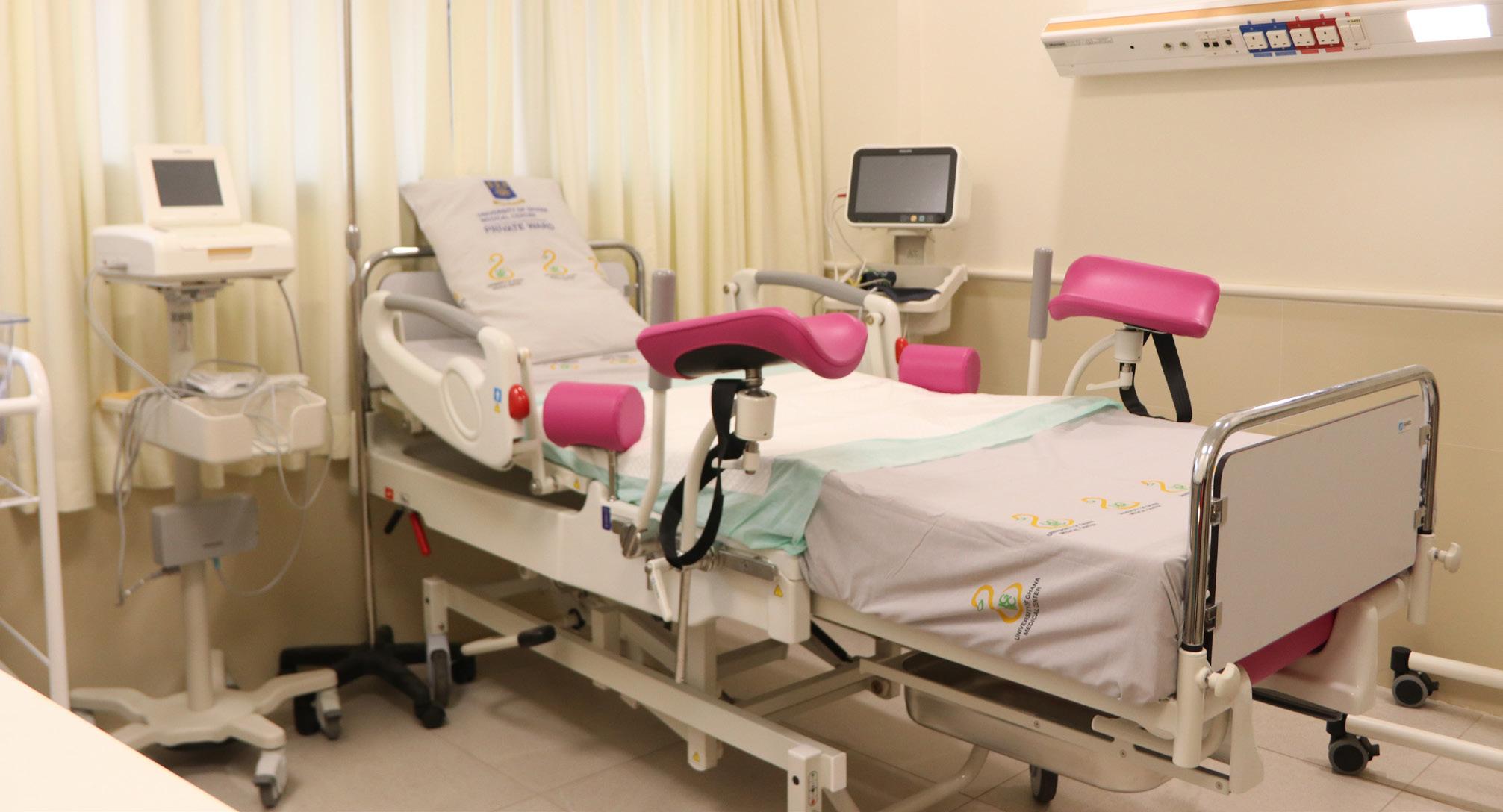
UGMC is very much interested in partnerships that will help with procurement, including the construction of a helipad located near the centre’s main security post, a radiotherapy centre for cancer treatment, a 50-bed infections disease centre, and the provision of accommodation for specialists and other critical staff.
Likewise, the centre wants to enter into more strategic collaborations, that will ensure UGMC’s vision of distinguishing itself in the provision
world-class patient care, training and research does not become diluted or abandoned.
“For the next couple of years, our priority is to ensure that all clinical departments are fully functioning,” Dr. Osei concludes.

A major force in healthcare solutions, Healthbridge fulfils South Africa’s technology development requirements. We delve into vaccine distribution and transforming the industry with CEO, Luis da Silva
 Writer: Ed Budds | Project Manager: Callam Waller
Writer: Ed Budds | Project Manager: Callam Waller
Healthcare is changing fast.
Due to several key drivers of change, a tremendous swathe of opportunities has been unleashed for smart, proactive, forward-thinking companies. Costs are spiralling out of control in one of the largest and most important industries, yet the key outcomes are not improving and fair access to healthcare is still waning. Paradoxically, there is an onslaught of technological advances in a tech-starved industry, while new businesses and models of care delivery continue to emerge.
In 1990, Luis da Silva obtained a BSc in Electrical Engineering, achieving distinction from Wits, Johannesburg, with process control theory as his major area of study. In 2000, after a decade spent gaining vital industry experience, da Silva joined Healthbridge as the Key Accounts Executive responsible for establishing
relationships and services to all major medical aids, hospitals and pathology groups. Today, da Silva is Healthbridge’s CEO.
He was originally seduced by Healthbridge when offered the opportunity to be part of a dynamic team that would build a company with a real purpose and vision to make a difference in the South African healthcare industry. At present, Healthbridge is a leading HealthTech platform that fuels better healthcare outcomes.
SOLUTIONS IN BUSINESS Healthcare is an informationintensive industry, involving complex interactions between different parties, ranging from medical practitioners and patients to medical aids and healthcare stakeholders. The ability to manage this constant flow of information quickly and efficiently
is vital to the smooth running of any medical practice.
“At Healthbridge, our priority is to ensure that medical practitioners run sound businesses, so that they are freed up to focus on their patients,” opens da Silva.
Healthbridge has pioneered realtime claim processing since the early 2000s and has significantly improved the day-to-day running of private medical practices. Through continu ous innovation, medical practitioners have benefited from this by reducing
time spent on administration, the automatic reconciliation of medical aid payments, faster payment turn-around times from both medical aids and patients, lower incidences of bad debt, and fewer queries to medical aids.
“Today, we offer cloud solutions that digitise private practices processes, from easy billing to clinical records,” he acclaims.
The complexity of selecting the cor rect coding for doctors is immense.
“If we had to calculate the number of permutations possible, there are
more than a million times more coding combinations than grains of sand on the planet. Healthbridge has put a lot of effort into reducing this complexity both from a billing perspective and clinical perspective,” da Silva adds.
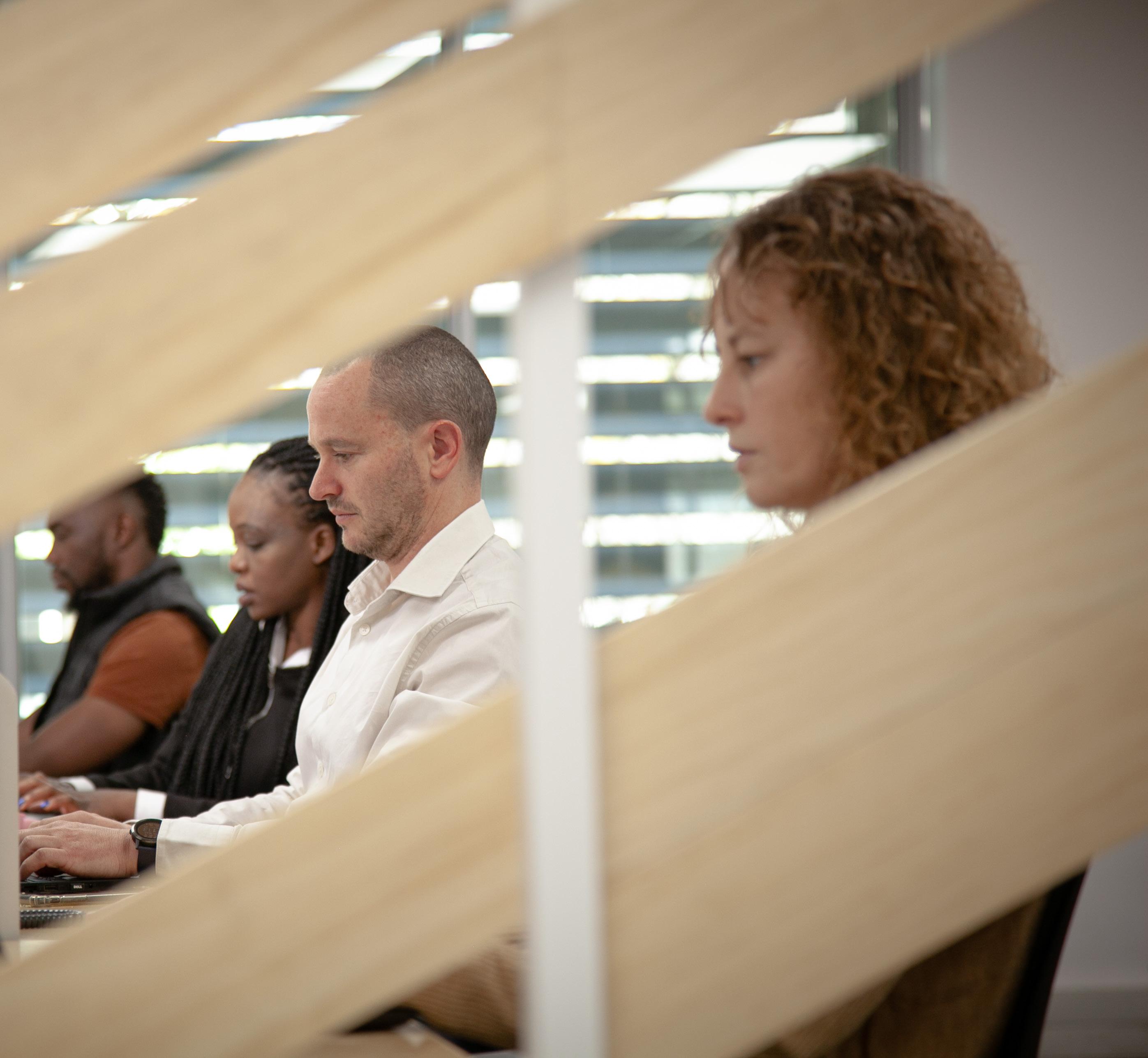
Recently, Healthbridge has reduced functionality in its electronic health care record (EHR) system, allowing the selection of medicines by doctors to be enormously simplified using machine learning (ML) and artificial intelligence (AI). By doing this, the doctor is empowered to really focus
on the patient and not worry about the complexities of documentation during the consultation.
Where Healthbridge shines brightest is in its ability to lead the industry in terms of technology design and development.
“We pride ourselves on being a provider of true cloud services in this industry and being able to deliver innovation at high speed.
The interesting dynamic we have dealt with over the years is how slow healthcare’s move to the cloud has been,” da Silva explains.
Even though the benefits of cloudbased computing are well-known and widely accepted as the most practical, cost-effective and agile way to manage and store clinical notes, patient records and practice data, most doctors in private practice have opted to delay the move. However, the arrival of the COVID-19 pandemic became the catalyst for the longoverdue transition to the cloud.
During the darkest depths of the pandemic, 1,000 medical practices in South Africa made the bold decision to migrate to Healthbridge’s cloud services.

“Some of the most significant findings we have taken away from the migrating of over 1,000 private medical professionals to the cloud is that we cannot compromise on ease,” he adds.
In combination with a real understanding of the nuances that characterise healthcare, Healthbridge’s solutions ensure that
Through innovative technology, Healthbridge provides a range of services that make medical practice admin simple.
Healthbridge is a proven platform trusted by more than 6,000 medical professionals. The billing platform automates many practice processes, thereby helping medical practitioners get paid what they deserve, faster.
It’s easy to manage patient visit history, clinical notes and pathology reports, schedule follow-up appointments, create sick notes, prescriptions, referrals and so much more, from any internet-enabled device.
Healthbridge provides the backbone system to other businesses that offer admin services to medical practices. The cloud-based, user-friendly, configurable platform is designed specifically for bureau providers and the practices they serve.
Skynamo isn’t just a tool for managing sales reps, says Robert Delport, inland sales manager at Healthbridge. In fact, while it is wellknown for being a purpose-built field sales app, the healthtech company uses it much more for market intelligence and streamlining their sales process.
Healthbridge has been in the industry for more than 20 years, and started off as a traditional switching company.
“Over time we’ve moved to a cloudbased clinical and billing system,” he says, “so we offer an electronic medical records (EMR) system that integrates seamlessly into the billing component of our system.”
Robert says their team has a national footprint, and comprises 13 business consultants, two sales managers and a tier of administrators, as well as a national sales manager.
“We have our own sales methodology that helps us manage our pipeline and forecasting, and which is driven by our customised visit and telephonic forms in Skynamo.”
He says the app also addressed some inefficiencies within their standard process, and gave them visibility into where team members were from day to day.
“We’ve also homed in on the ideal type of client profile we want to target,” he says. “Skynamo has helped us to more accurately target the correct client, and to maximise on activity.”
Have you ever dreamed of instant visibility into your field sales, realtime reports and live dashboards? Imagine that! No more sales confusion, only sales clarity right at your fingertips.
This is why almost a 1 000 sales leaders across the globe rely on Skynamo daily, to help manage and grow the business.
Our growing fan base of 10 000 users agree that the Skynamo app is easy to use, saves time and cuts admin.
Scan here to get clarity!

LUIS DA SILVA, CEO: “Healthbridge made the decision to adopt the G-Suite Office platform back in 2018. A key driver in the decision to change from the desktop-based Microsoft apps was the collaboration capabilities that the G-Suite Office platform allows.

“As a business, we only fully realised just how powerful this was when the COVID-19 pandemic struck early in 2020. Prior to this, we were a traditional office-based business, where all employees would report for work five days a week.
“When COVID-19 hit and the country was given only a week’s notice from government that a national lockdown would be enforced, the G-Suite tools allowed our employees to seamlessly relocate to their homes and ‘set up shop’ within a day.
“Our company never missed a beat and in fact, we have had some of the shortest production timelines in releasing products to market, from our integrated Telehealth innovation to our myVaccine billing system to support the national vaccination rollout.
“There is a delicate balance between maintaining the brand DNA and making it work for any given market. With the support of the Subway regional office, we think we are working towards that balance in the right way.”
– LUIS DA SILVA, CEO, HEALTHBRIDGEthe connection with the patient isn’t lost during a consultation, or that the doctor isn’t slowed down by the system. By sticking to these design principles, the feedback from doctors has been overwhelmingly positive with many saying that the move to the cloud was easier than anticipated and resulted in a robust stream of referrals for Healthbridge.

The major focus of the company is on helping doctors to treat people more effectively. This is achieved by empowering them to have a higher quality interaction with patients, via immediate access to the most relevant patient information available, enabling a quick and accurate diagnosis. This includes having
access to a patient’s medical history such as a record of all previous visits, historical pathology results and operations, and a list of patient allergies.
“We are constantly looking into new technology offerings too, which is why AI is vitally important, as it offers great possibilities in terms of pattern recognition,” furthers da Silva.
A highly important project that Healthbridge has completed recently is the company’s involvement in COVID-19 vaccination. When selected centres began the country’s largest vaccination rollout, Discovery was
Africa Outlook: What are the benefits of using Google Cloud instead of Microsoft for your operations, as well as the outsourcing of certain aspects of the business to India and Ukraine?
“OUR ETHOS OF DEVELOPING EASYTO-USE TECHNOLOGY FOR BETTER HEALTHCARE OUTCOMES HAS ALLOWED US TO APPROPRIATELY DEVELOP A CUSTOM SOLUTION FOR ONE OF THE COUNTRY’S BIGGEST HEALTH CHALLENGES”
the first to activate Healthbridge’s vaccination billing system at its head office in Sandton.
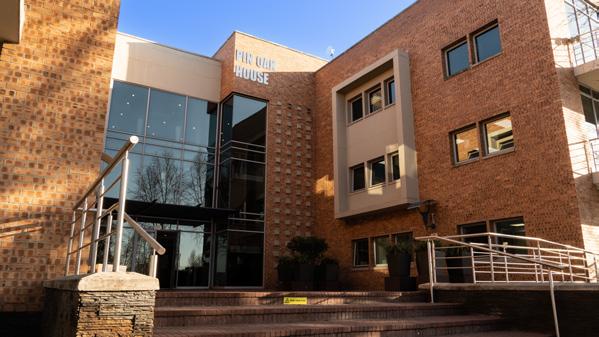
“Our vaccination billing system was soon applied to their additional vaccination sites nationwide, as well as other players such as the Western Cape Department of Health’s mass vaccination site at the Cape Town International Convention Centre, Momentum, Life Healthcare and others,” details da Silva.
The vaccination rollout was an extensive exercise and required careful financial planning by private vaccination sites. Managing this included purchasing the required vaccine stock from government at the defined price that subsequently needed to be claimed against the medical aid schemes that the
members belong to, together with a small fee for administering the vaccine. This fee income then went back into the cashflow required to purchase further batches of vaccines.
Leveraging 22 years as a leading healthcare technology provider, Healthbridge built its vaccination billing system in less than six weeks after initial contact with Discovery, reinforcing the company’s reputation as a leader in ease-of-use technology.

“We were incredibly pleased to have worked with Discovery to develop the system. While our expertise is in providing clinical and billing software for private medical practices, our ethos of developing easy-to-use technology for better healthcare outcomes has allowed us to appropriately develop a custom solution for one of the country’s biggest health challenges. We are very proud to be part of the solution,” he adds.
For da Silva, the key to curating a successful company culture amongst Healthbridge’s team of ‘Bridgians’
is to “seek high performers with a positive, growth mindset, who will thrive in a culture based on strong values, accountability, openness, collaboration and no politics. This can be seen by the number of staff that have changed roles throughout their tenure at Healthbridge, as we are a company that will do what we can to help people realise their potential.”
The people at Healthbridge remain passionate about making a difference in South African healthcare, across a staff complement of over 160 ‘Bridgians’, who are all dedicated to understanding the business of running a medical practice. This includes client supporting roles, technical support teams, as well as Healthbridge’s own in-house business analysis and software development teams.
Alongside this, Healthbridge provides ongoing development courses with a special focus on team leaders. The aim is to ensure that new leaders are well-equipped and fostered with a sincere and genuine concern for those in their charge and enable their people to realise the very best in themselves.
Healthbridge’s culture and team mentality remains one of the key reasons why the company can retain its high calibre of staff.
“Our purpose, ‘to transform healthcare and enhance people’s lives’ is what gets us to jump out of bed every day. We believe both private and public partnerships will be key to creating the new healthcare system for South Africa, and other countries. COVID-19 showed us that this is possible, and our job is not done until this is achieved,” da Silva concludes passionately.
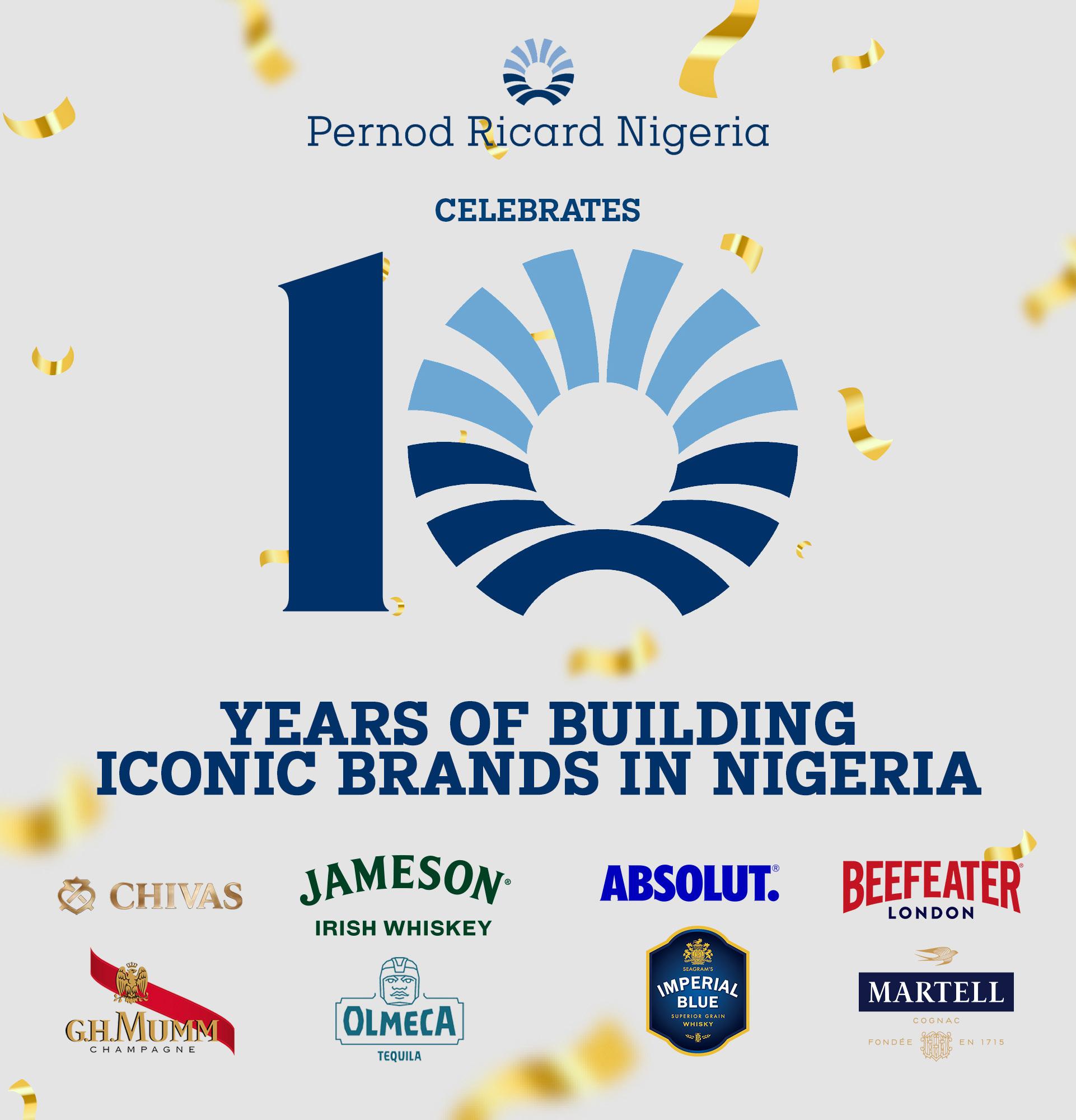
We are the creators of conviviality. It’s all about human connection and bringing good times from a good place.”
In July 2022, Pernod Ricard Nigeria (Pernod Ricard) turned 10 years old. In his role as Managing Director of Pernod Ricard Western Africa, Sola Oke has witnessed much of the company’s journey throughout an evolutionary and dynamic decade.


“When we came into the market, we seemed to be late to the party,” he recalls. “But in the past 10 years, we have evolved our business. We started with just four or five people trying to set up a company, understand the market, and build the brands all at the same time.”
Now, that team has grown to approximately +70 people directly employed by Pernod Ricard to evolve and strengthen an esteemed portfolio of brands across the wine and spirits industry. For Pernod Ricard, this began with Absolut as the most renowned brand within the company’s offering in Nigeria.
Fast forward to today, and Pernod Ricard’s solid position as a market leader is evidenced by Jameson’s sta tus as the number one whiskey brand in Nigeria. Complementing this is Martell, a cognac of international pres tige that is the second-most consumed cognac across the country. Oke also credits Pernod Ricard’s market growth in the mainstream segment to Imperial Blue one of the world’s best-sell ing whiskies by volume, which since becoming part of the Pernod Ricard family in 2002, has grown to become the group’s largest brand by volume. This upward trajectory contin ued for Imperial Blue since it was introduced to the West African market just a couple of years ago.

“It really is a significant milestone for such a young brand,” comments Oke. “It shows how we continue to accelerate and transform our business.
“Before, if you asked people who Pernod Ricard was, they wouldn’t know who we were, they would only know the brands, but as we’ve grown, our reputation has continued to build,” says Oke.
From underdog to market leader, we raise a glass to a decade of Pernod Ricard Nigeria with Managing Director, Sola Oke
“This is one of the new initiatives that we started this year, which focuses on educating and building our next generation. Bartenders are critical to our industry, but nobody takes them seriously. We are now launching a programme where we want to educate 55,000 bartenders in the next five years.
“This involves a two-pronged approach. First, we’ll develop the Pernod Ricard Bartender Academy. This will be developed through one of our partners – Co-Lab - who will develop a 3rd space educational facility where bartenders will receive training in pilot bars and classrooms. Here, they can train with products and learn about things such as localising ingredients, and even agriculture to grow their own ingredients that they can use in recipes. That’s a big commitment from our side that we will begin this year and continue to focus on.”
The foundation of building this reputation is a robust network of distributors and partners who fulfil a vital role in ensuring that products reach customers across Nigeria and the rest of Western Africa.
“We have strong partners in terms of our distributors, of which there are seven throughout Nigeria. They have been instrumental in developing our route to market, and they continue to support and be part of the growth of our brands.”
These relationships remain a major source of focus for Pernod Ricard, alongside developing strong links with trade organisations across Nigeria, as they continue to create favourable market conditions.
A COCKTAIL OF CONNECTIVITY Connection, and the concept of conviviality lie at the heart of Pernod Ricard – both in the consumer experiences it offers through its varied and premium portfolio of drinks, but also throughout the culture of the company itself and its collaborative approach to performance.
Although a vast global enterprise centred in France, what defines Pernod Ricard’s worldwide reach is its emphatically local approach to individual markets subject to varying geographies. It is this local touch that makes all the difference in becoming a market leader.
Watermark & Victoria is a leading experiential marketing and innovations agency in Nigeria that specialises in aligning a brand’s DNA to engagement activities with the aim of influencing consumer patterns through unforgettable brand experiences. The Agency does this by utilising different activation vehicles and experiential assets to drive and deliver impactful marketing and brand experiences.
With operations spanning 32 states across the six geo-political zones in Nigeria, WV works for brands in numerous sectors of the Nation’s economy, including FMCG, Telecom, Pharmaceuticals, Aviation, Digital, and Alcoholic beverages among others.
Watermark & Victoria has mastered the art of blending precision with creativity which has allowed the experiential-led agency to not only get ahead of challenging fastchanging consumer behaviour and technological explosion but also leverage both to the benefit and satisfaction of her ever-expanding clientele.
Among said clientele is our feature company, Pernod Ricard, which WV has executed over 50 projects in activations and experiential campaigns since their signing in September 2021; and these projects have contributed actively to the growth of Martell in the market share of Nigeria’s alcohol beverages sector as well as the launch of Beefeater London Gin in the country.

WV is relentlessly redefining the relevance of the Experiential Marketing sub-sector in the Integrated Marketing Communications industry in Nigeria, and for this, brands are beginning to understand the role of sensorial experience coupled with immersive storytelling in today’s consumer journey.
Tel:

 – SOLA OKE, MANAGING DIRECTOR, PERNOD RICARD WESTERN AFRICA
– SOLA OKE, MANAGING DIRECTOR, PERNOD RICARD WESTERN AFRICA
Every great story often starts with a humble beginning that morphs into great unexpected success. The story of the creative agency that is X3M Ideas isn’t any different. The journey started exactly 10 years ago with the vision of one man and eight other disciples who believed in a dream, now this dream has morphed into a reality that spans hundreds of people and even continents. And it continues to expand.
“The relationship that we have with our global brand companies and making sure that we’re able to localise ideas or concepts and bring them to life in a way that is specific to the market is a major factor for us,” Oke elaborates. “We introduce those local nuances into our brands allowing us to connect with our consumers with the necessary impact and belief.”
The essence of collaboration between the brand team and local market is made apparent through localised advertising tactics.
“You see this at play in several activities from a brand point of view,” he continues. “For instance, Jameson has a localised engagement activities through our Jameson Connects.”

Oke also cites Martell’s collaboration with Nigerian Afro-pop singer and celebrity, Davido, which ensures local appeal lies at the core of advertising strategy.
“This is relevant not only in Nigeria, but also across the whole of Africa as Nigerian music and Afrobeat take over African culture.”
The whole notion of connectivity is best embodied by Pernod Ricard’s goal of establishing a position as a “conviviality platform”, a powerful model for growth based on unleashing the power of human connection.
The three major ingredients behind this vision involve a potent mixture of a premium brand portfolio, expansive routes to market, and finally people – the talented and empowered collaborative teams that fuel the whole enterprise both in Nigeria and beyond.
As Oke attests, “we owe our markets success firstly to our people. We have a great team! We also maintain strong connections to our brand companies and our teams all over the world.”
In the continually evolving realm of fast-moving consumer goods (FMCG), the needs, preferences and demands of the consumer are constantly in flux, subject to changes in the market that shape drinking
In this 10 year period, the agency has attained some staggering feats, the most pronounced being that it is now 200 people strong and has extended its creative tentacles from Lagos, Nigeria into South Africa, Zambia and more recently, Congo, Kenya and Dubai. What has undoubtedly spurred this growth is the agency’s ethos and willingness to constantly punch above its weight. This spirit brought tremendous local success and soon enough, regional and multinational clients started to pour in, helping X3M build its continental footprint.
For its 10 year anniversary though, the agency is kicking its drive up a notch by undergoing a total rebrand; new logo, new identity system and a new strategic approach titled Finding X.
Finding X simply builds on and fully optimizes the agency’s previous assets to create the most ideal and mutually beneficial chemistry between brands and the end consumer.
X3M Ideas’ desire for growth remains just as strong as it was 10 years ago. It still has bold plans to make incursions into more African markets and build on its legacy of being a truly indigenous African network taking on Africa and indeed the world. The journey to X might have started 10 years ago, but the next 10 years will indeed be one to watch. +234 811 3993 330
“THE CORE OF WHAT WE DO IS HARNESSING THAT POWER OF HUMAN CONNECTION AND BRINGING GOOD TIMES FROM A GOOD PLACE”


habits, as seen with the COVID-19 pandemic.
“We are an entirely consumercentric organisation. They are the core of what we do,” states Oke.
As such, Pernod Ricard maintains an astute stance, keeping an eye on consumer trends and tailoring its approach to move with the times. An essential tenet within this is appealing to Gen Z and reshaping how the company addresses this latest generation of consumers.
“Gen Z is where we see the future both in terms of trends and consumers. But this generation is entirely different from Gen X, in what they want and how they are thinking. We have to be at the forefront of that,” he observes.
To advance Pernod Ricard’s vision moving forwards, the company intends to fully leverage data and technology to attain a more granular understanding of consumer needs.
“Data is what we will utilise to constantly be ahead of the market and what consumers want. We are now in the process of creating that data understanding within our organisation. This will be the key to unlocking our growth model and help us deliver on our strategic direction to be a convivi ality platform,” he surmises.
For the years ahead, there are four key pillars to the solid foundation that Pernod Ricard’s Nigeria’s trajectory rests upon.
“First, is business transformation, whereby we will continue to accelerate and transform our business for the future,” outlines Oke. This entails Pernod Ricard’s progression into a conviviality platform, both globally and locally.
“That’s core to our future strategy, and data will be the engine that drives this,” he adds.
Secondly, Pernod Ricard will continue to build on the brands within its portfolio.
“It’s about making sure that we focus on the right categories, channels, and the right brands. For example, it makes sense to continue to grow our whiskey in a market like this, but within that, we also begin to define what the next growth opportunities will be. We will continue to be innovative in our approach
looking at category opportunities with our wide portfolio range as well as other ways that will drive the growth ambition for our business.”
In keeping with Pernod Ricard’s emphatically social approach, centred on both connection and conviviality, it is the importance of people that defines the two remaining pillars.
As a social organisation with an inherently sociable market offering, Pernod Ricard prides itself on its Sustainability and Responsibility Agenda.
“When we say we want to become a conviviality platform, it’s not about just being a drinks company. It’s about the consumer experience and giving back to the communities where we operate,” says Sola Oke, Managing Director for Western Africa.
A strong advocate for responsible drinking, Pernod Ricard participates in a national Drink-Drive campaign, whereby 1,000 commercial drivers across Nigeria are educated on the implications and social impact of Alcohol Misuse. The programme is run in partnership with both the Lagos State Government and the Federal Road Safety Commission to ensure maximum impact.

Another similar initiative is the ‘Drink More Water’ global campaign. A digital programme primarily targeting Gen Z, its reach in Nigeria has just surpassed 25 million people.
In terms of environmental sustainability, Pernod Ricard has been focused on promoting biodiversity by planting over 5,000 trees across Western Africa. In Nigeria alone, this amounts to just over 2,000 trees that have been planted so far in collaboration with the Nigerian Conservation Commission.
“We will continue to focus on the communities that we operate in to impact them positively – that’s a big part of our culture,” closes Oke.
“We will continue to unleash the power of our people and make sure that we grow and develop together,” shares Oke. This will entail different initiatives including upskilling
programmes and employee exchange schemes throughout sub-Saharan Africa that will grow and develop talent through exposure to a variety of roles within the company. This will also include introducing entirely new talent through the hiring of interns, thereby nurturing the future of Pernod Ricard.

Finally, the Pernod Ricard Sustainability and Responsibility Agenda remains a major focus, in line with the global company’s targets and ambitions for 2030. It’s sustainability and responsibility roadmap themed “Good times from a good place”.


“We are creators of conviviality, we want to bring people together, sharing experiences with friends and family and our brands. We are passionate hosts and respectful guests creating a better way to live and work together, not just for today but for the future generations. We aspire to create a more convivial world, a world without
excess. We are committed to fighting alcohol misuse and we strive to protect the environment in which we live and operate in. This we continue to do by self-regulating, we ensure our Drink More water campaigns are top of the agenda, alongside educating consumers on the misuse of alcohol as well as training the next generation of bartenders,” Oke concludes.
With these commitments at the fore, Pernod Ricard will continue to serve the spirit of connection across Nigeria, Western Africa, and the world, for decades to come.
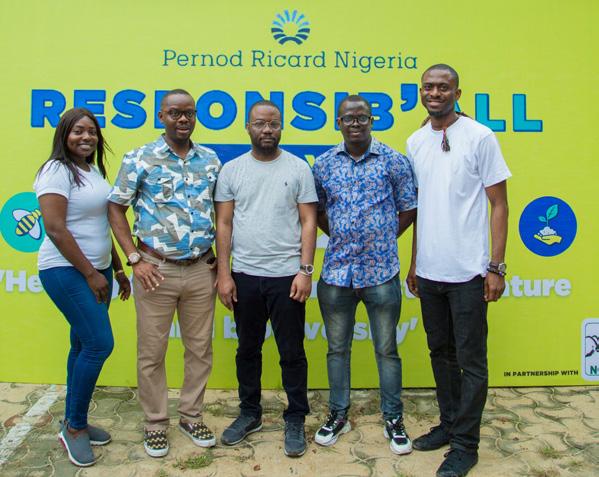
Tel: +23481 837 02437 info.WesternAfrica@pernod-ricard.com www.pernod-ricard.com
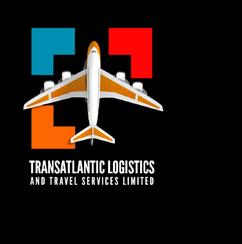
With a population approaching twice the size of any other African country, one of the world’s youngest demographics, a growing middle class and increasing urbanisation, Nigeria is the largest consumer market in Africa. The fast-moving consumer goods sector is the third-largest contributor to the Nigerian economy, estimated at 16 percent of the West African country’s gross domestic product (GDP). Distribution companies are the backbone of the supply chain,
ensuring that products are available at the point of purchase for the end consumer.
“To a large extent, we are one of the very few distributors in Nigeria that actually focuses on consumers,” opens the Managing Director of FMCG Distribution (FMCG), Gandhi Anandan.
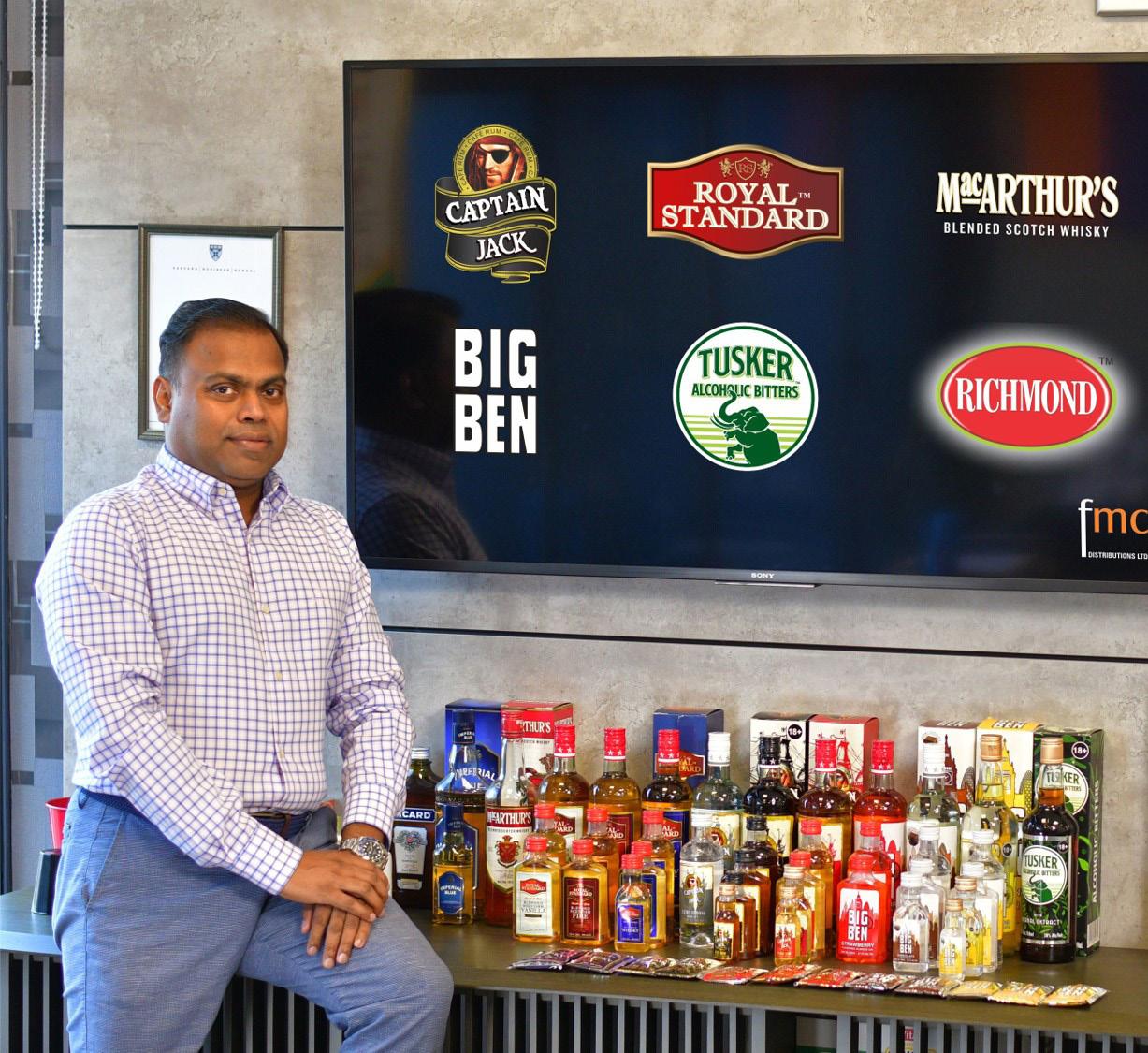
FMCG works across a variety of sectors, including tobacco, alcohol, tea and coffee, distributing products for a number of international and domestic companies such as Pernod
Ricard, BiC, West African Tobacco, House of Stewart, and Stellar Beverages.
“Our role is to make brands available and visible at key points of purchase, whether that is wholesale, retail, e-business and so on. As a case in point, the success of Stellar Beverages is linked to the ability of FMCG to take their brands and put them into the hands of wholesalers, retailers and consumers,” Anandan says.
“We are challenging the status quo
FMCG Distribution is rethinking fast-moving consumer goods in Nigeria. Managing Director, Gandhi Anandan, details the company’s unique consumer focus in a thriving sector
Writer: Jack Salter | Project Manager: Kyle Livingstoneand taking on competitors who enjoy market-leading positions. We are now one of the fastest growing companies in each category we operate. In a relatively short space of time, we’ve made meaningful and sustainable progress.”
Today, FMCG employs around 400 people mainly in the frontline Sales and Marketing functions, ably supported by the traditional backoffice roles (Logistics, Finance, IT, Legal and HR).
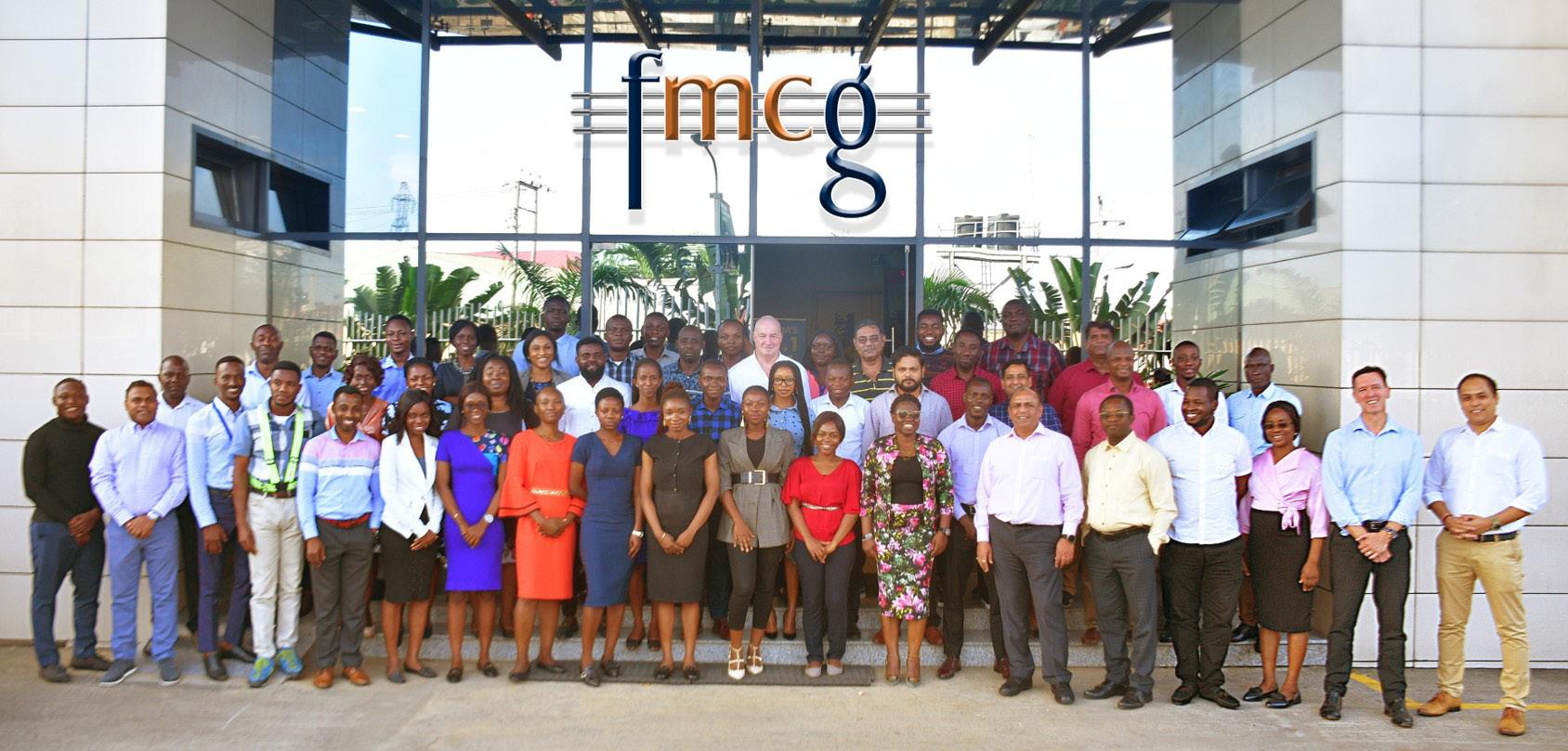
Present in 33 locations across

Nigeria, the objective is to expand the FMCG branch footprint to all 36 states and by doing so broaden the company’s appeal to potential client partners.
“When I joined FMCG in 2012, we had less than 10 branches, so we have grown organically. The way we approach expansion is to create sustained business in a territory, then go and open up a branch in that particular location.
“One of the reasons we are opening branches is to increase our customer
base. Every branch we open gives us another 50 to 100 direct customers. In recent times, we have also started exploring export markets outside of Nigeria in places like Ghana, Cameroon and South Africa,” reveals Anandan.
The vision of FMCG is to be regarded as the most dynamic, efficient, and effective fast-moving consumer goods sales and marketing force in Nigeria. However, Anandan
acknowledges that means nothing without distributing the very best brands.
He cites FMCG’s proven success in the tobacco sector, as the distributor of the most popular menthol cigarette in Nigeria. The company also distributes tea and coffee under the Richmond brand (both occupy positions amongst the top brands in their respective sectors), and Nigeria’s number one rum brand, Captain Jack, produced by Stellar Beverages.
“If you look at every category we operate in, whether it’s tobacco, alcohol, tea or coffee, the brands we handle are in the top three. We cherish that very strongly, we are very proud of our achievements, and the fact more and more companies want to associate and partner with us is an indication of our success,” acclaims Anandan.
Exemplifying this success is FMCG’s recently signed production agreement with Pernod Ricard, an extension of the existing distribution and sales agreement with the global wine and spirits giant.
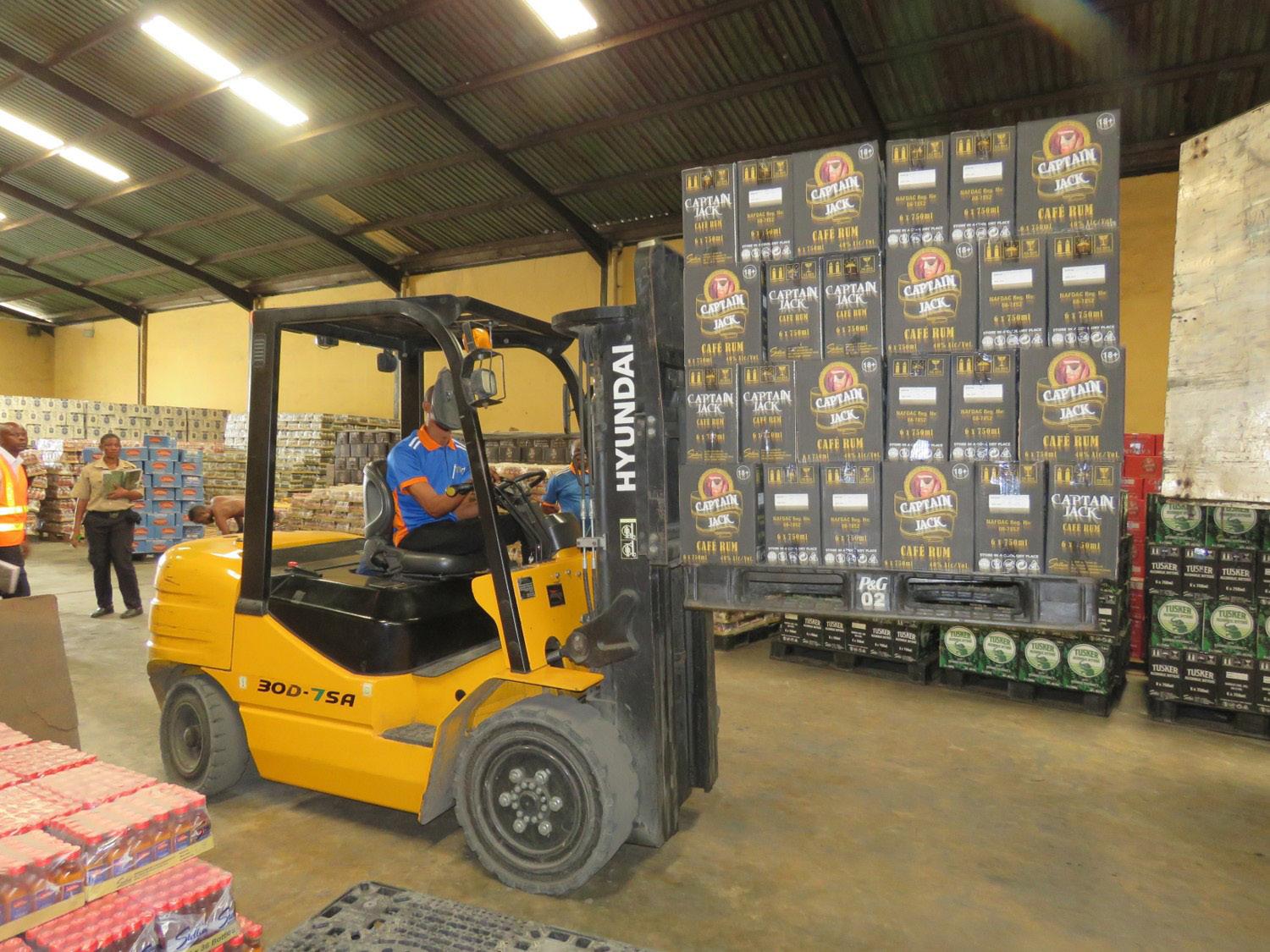
A distribution agreement with BiC, meanwhile, will also see FMCG
distribute the French manufacturer’s iconic range of lighters, with a view to extending the agreement to writing instruments, stationery, and grooming products at a future date.
“Because we distribute tobacco and cigarettes, BiC’s lighters are quite a complementary product to have in the portfolio,” Anandan tells us.
“Whereas BiC’s current distribution base is maybe 40 or 50 supermarket outlets in Lagos, we will make their lighters available to 3,000 direct customers within the first week of launch. Between tobacco, alcoholic and non-alcoholic beverages, we have, in fact, one of the largest direct customer bases in Nigeria.”
As one of Nigeria’s biggest FMCG distributors, the company delivers specific local marketing activities, trade promotional activities, consumer sampling and merchandising.
“A traditional distributor usually has no business or interest in marketing, sampling, or consumer activation. This is where there is a very big difference between FMCG and other distribution
Langrad Engineering and Manufacturing Company Limited was incorporated on 17th November 1977 and started operations in January 1978.
Our vision is to contribute to the sustainable development of the manufacturing sector firstly in Nigeria and subsequently in other parts of Africa. To become the recognised leader in engineering fabrication, steel construction and engineering services within the producing and manufacturing industries in Nigeria and Africa – providing quality workmanship, with integrity at a competitive price and timely delivery.
Our mission is to fulfil our vision by being one of the foremost engineering companies, conducting business with the highest ethics and integrity while adhering to necessary safety regulations and standards, providing exceptional customer service from inception of Project to completion.
Our corporate core values which we have maintained in the last 44 years and which have endeared us to our clients are as follows:
• Integrity and Ethics
• In depth analysis of Customers needs
• Precision Planning for Product and Services
• Provision of detailed information about cost of
• Project, Products and Services
• Timely Delivery of Projects, Products and Services
• Corporate Responsibility
• Post- project and product delivery services
• Health and Safety Practices
• Continuous Improvement
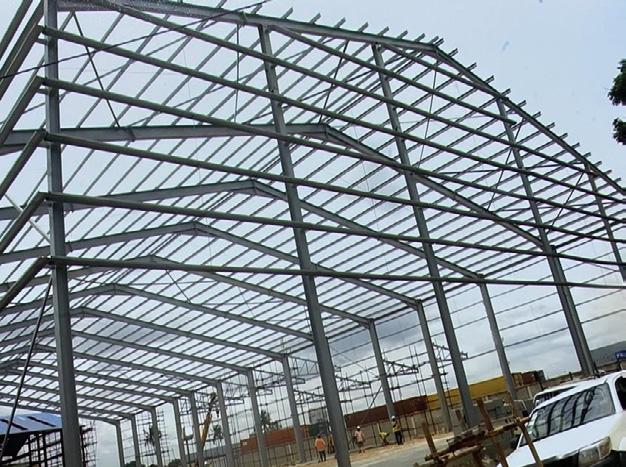
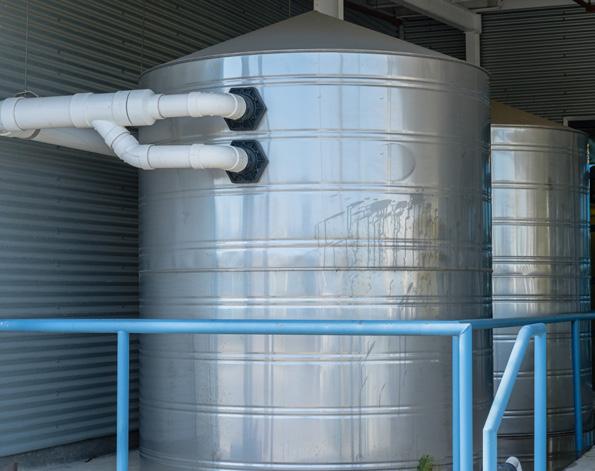
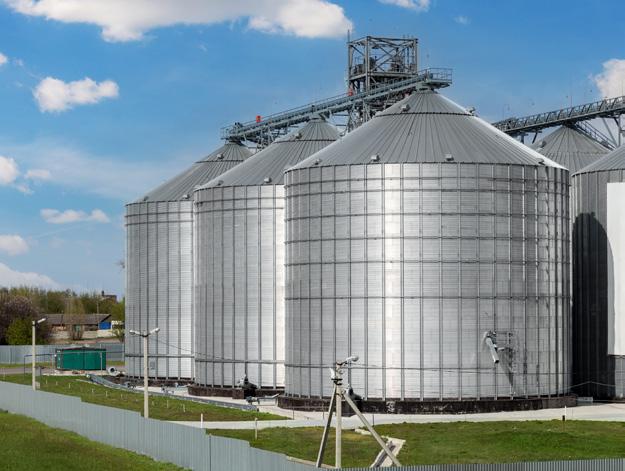



companies,” Anandan explains.
“For most distribution houses in Nigeria or other parts of the globe, their job ends the moment they make the product available on the shelf. They are not the brand owner most of the time, and even if they were, they would probably deploy an agency to carry out the marketing activity required to ensure the product moves from the shelves and into the hands of the consumer.
“We are very different because we firmly believe our job does not end at the point of distribution. The easiest thing to do is to make the products available, but the toughest thing is to make sure they end up in kitchen cupboards and so on,” he continues.
As such, all products introduced to the market by FMCG go through a “Four Ps” (pack, product, price, promotion) sales strategy, a technique successfully used by many multinationals and an example of the company’s experience in mature and emerging markets.
FMCG’s strength is in the way it operates the market. Whilst most distributors concentrate first and foremost on wholesalers, FMCG also focuses heavily on retail coverage
and, most importantly, consumer interactions.
“We are very different from our competitors in the market. I don’t think there is any other distributor in Nigeria that offers the complete wholesale, retail, and consumer spectrum. I don’t know of any other company that has the depth and breadth of operations that we have,” notes Anandan.
“90 percent of our business volume comes from the 3,000 wholesalers or direct customers we sell to. But we also acknowledge the importance of retailers and consumers in creating the crucial demand-led volume pull. We consider our role in this arena to be trial and brand conviction, creating customers who have tried your brands and are convinced of their high quality and value for money proposition.”
Consumer sampling is vital to FMCG’s distribution expertise, as is the company’s emphasis on sales training programmes and courses.
“In the past year, we contacted about one and a half million consumers in the alcohol segment alone, and our success rate in selling to these consumer contacts is about
80 percent. We also have around 30 teams who pitch to retailers and ensure our products are sold into their outlets.”
Having opened a new Stellar Beverages factory at the end of 2020, FMCG increased its alcohol production capacity to 42 million litres per annum.

Today the plant is operating at more than 50 percent capacity, and is expected to increase utilisation further by the end of the year.
“The trigger point will be 80 percent capacity utilisation (or around 33 million litres), which will necessitate another production facility. The way we are going, we already need to start thinking about what to do next,” Anandan says.
“Additionally, we have been scoping backwards integration. We need to be more self-reliant where we can and increase the resilience of our current supply chain.
To that end, having our own distillery is a potentially attractive proposition.
“Our shareholders are currently evaluating the economic aspects


In a constantly changing world, it is difficult to ascertain what is current in terms of fragrance and flavour preferences.
MANE has a unique ability to sense not only what people like, but also what moves them on a deeper level, whether this is a fleeting trend or a timeless truth.
As a family company, MANE is uniquely qualified, drawing on its values and experience spanning over 150 years.
of further investments. However, to do this is a question of available finances and resource allocation. Whether we want to allocate resources to a distillery and thereby enable backwards integration, or continue downstream by adding to our production capacity is the key strategic question for the business.”
Nigeria relies heavily on imported raw materials and finished goods, however the country is currently experiencing a shortage of foreign exchange (FX) needed to pay for imports.
Exacerbated by a challenging global economic situation, the cost of imported raw materials and their shipping is soaring. Success in Nigeria will be unlocked by local production and strong relationships with local suppliers, according to Anandan.
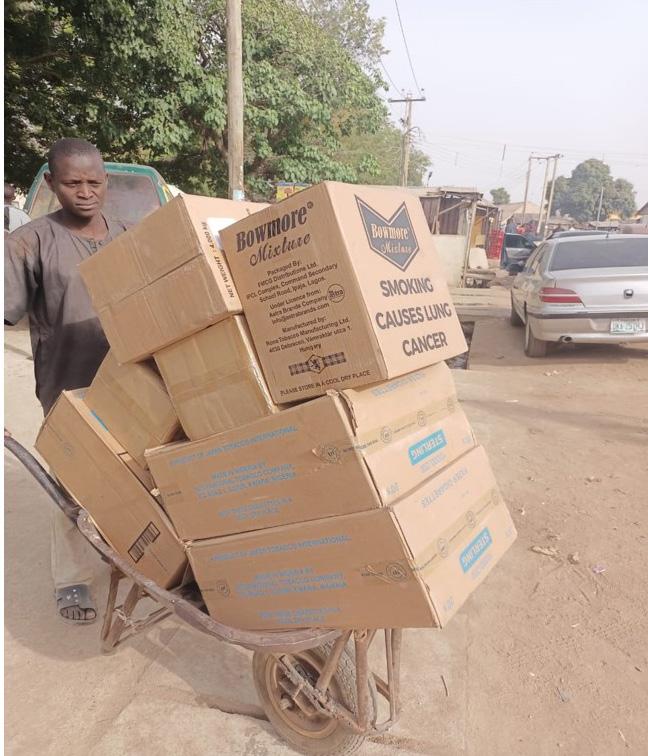
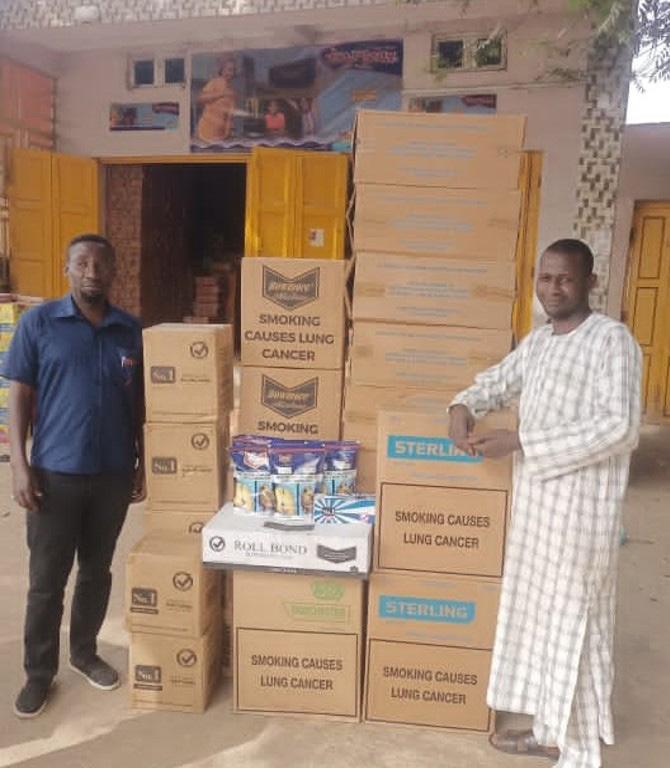
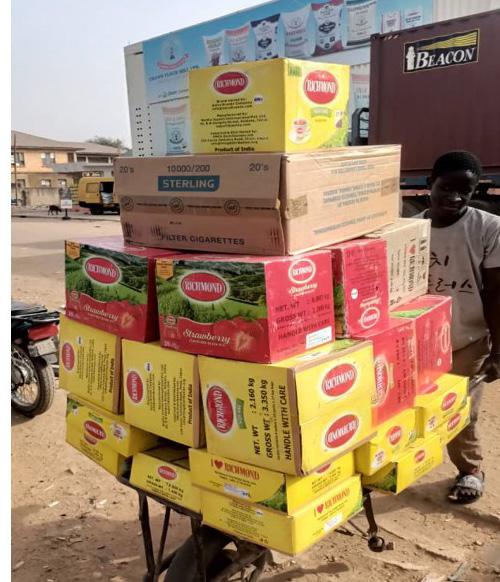
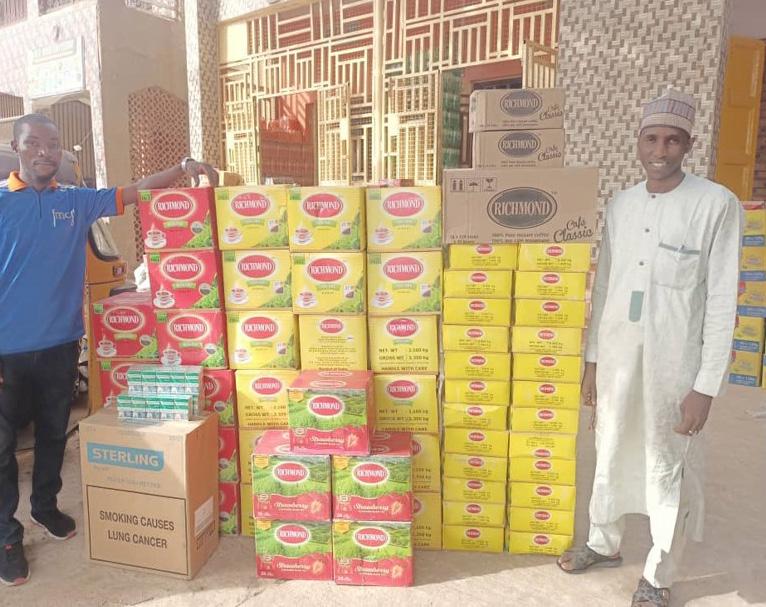
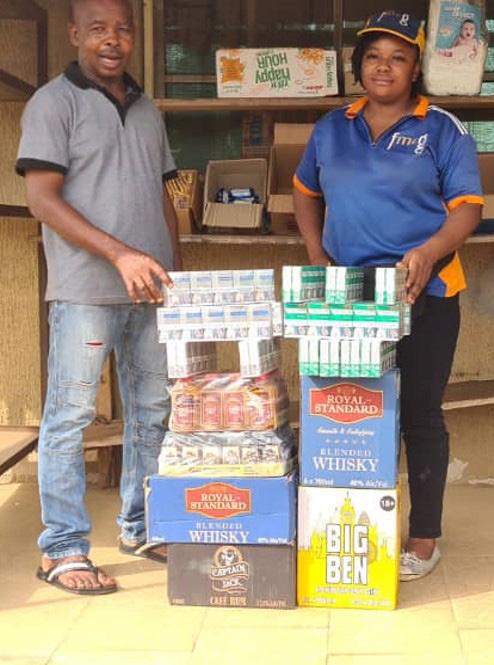
“When many things are imported into the country and dependant on
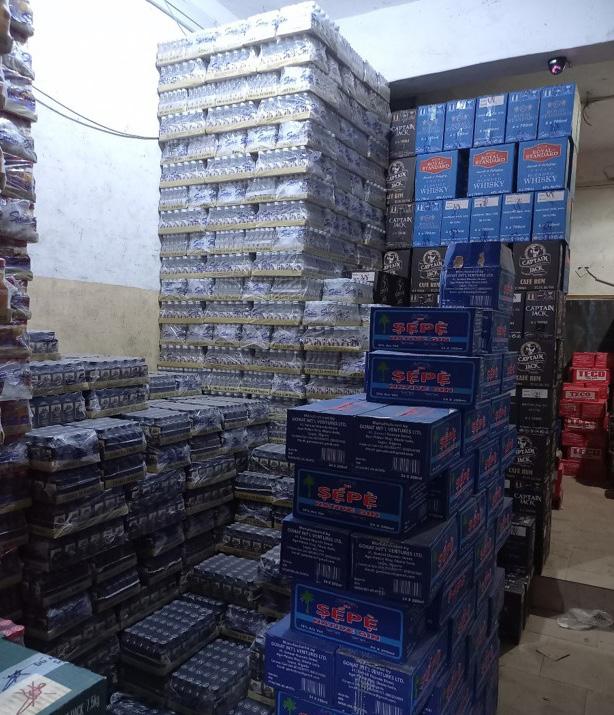
GANDHI ANANDAN, MANAGING DIRECTOR: “I’m a business graduate of the Y2K batch from the Indian Institute of Foreign Trade in New Delhi, India, and my first job was in Africa for a small family-owned trading company in 2001.
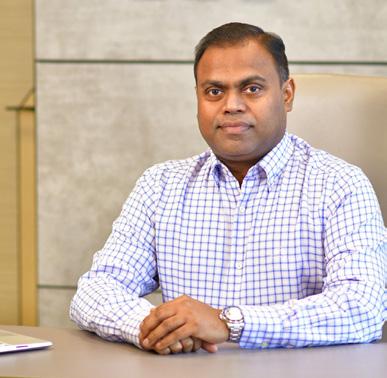
“In 2004, I joined Gallaher Group, who were a leading FTSE 100 company and the biggest cigarette and tobacco manufacturer in the UK. When they began looking to develop their reach outside of their homeland, I became Regional Marketing Manager in West Africa until 2007, when it was bought by Japan Tobacco International (JTI).
“I left JTI after a couple of years, and joined FMCG in Nigeria as Marketing and Business Development Director in 2012. FMCG at the time was primarily the distributor of tobacco products for JTI but was also venturing into alcoholic and non-alcoholic drinks and food products. I was appointed Managing Director of FMCG Distribution in 2018. For the past 22 years, I have been based in West Africa with Nigeria as my main focus.”
FX, we rely on astute supply chain partners that don’t get caught up in speculation, don’t knee-jerk in response to market rates, and provide reasonably priced raw materials,” he outlines.
“We have actually been able to procure our raw materials on better terms year-on-year, and you might be wondering how that is even possible when everything is going up in price, and the answer is very simple.
“It’s all about supplier relationships, negotiations, and the scale of operations. If we’re producing more, we have the scale to go and negotiate a better price because we’re going to be buying more raw materials, and people understand that kind of approach.”
FMCG has long-standing contracts and agreements with suppliers, negotiating rates well in advance and ensuring that it is always well-stocked with raw materials.

“We can sit on anywhere between three to six months of stock, and this is only possible when you have reliable supply chain partners. It’s a team effort, and we have a fantastic set of suppliers and partners that are very understanding and proactive.
“That is really the key to doing business in any part of the world, especially in a place like Nigeria where the supply chain is the backbone of everything,” Anandan affirms.
Emphatic about local talent, an impressive 95 percent of FMCG’s employees are Nigerian, including a number of senior managers who have worked their way up through various levels of the company.
As well as bringing in up to 20 university graduates a year, FMCG has training centres located at three branches in Lagos, Enugu, and Kaduna that act as on-site campuses.
“People stay, eat, work and learn together at the training centres. They go out to test their skills together
as teams and learn from each other, which creates motivation, encouragement and camaraderie,” shares Anandan.
“We believe in the concept of growing and developing our own staff. At the end of the day, you could have a portfolio of great brands, an effective supply chain, efficient production, but if you don’t have the right skillsets and human capital, you have nothing.”
People are one of FMCG’s key priorities, and with inflation in Nigeria at an all-time high, the company has brought forward salary increments for all staff.
“Considering the situation on the ground and the economic crisis, we announced a mid-year increment effective in June this year. The minimum increase anyone is getting is around 10 percent, and those who are lower paid have been afforded an increase of close to 20 or 25 percent in many cases,” Anandan informs us proudly.
“We are trying as much as possible to ease the financial strain that we are all collectively facing. The increments
are not necessarily going to solve all the problems, but I think it will go a long way.”
Despite the ongoing challenges, Anandan anticipates some “very, very exciting” years ahead.
“FMCG is one of those companies in Nigeria that people are watching to see what we’re going to deliver,” he says.
“We are successful because we are very focused, very different, and very methodical in our approach to selling our various products and building our brands.
“I think we’re going to take the market by storm. We’re just going to get bigger and better, and if we continue doing what we’re doing and improve how we do it, the only thing that can come out of it is more success.”
Tel: +234 906 244 3819
Happiness comes in many forms - beer is one of them.

AB InBev is the world’s largest brewer and one that owns a large variety of brewers that produce beverages well known and loved by people across Africa, including Uganda’s own Nile Breweries Limited (Nile Breweries).
Established in 1951, Nile Breweries was founded by a group of business men associated with the construction of Owen Falls Dam based on the River Nile near its source at Lake Victoria. After several ownerships, SABMiller Plc, the world’s second largest brewer, acquired the company in 2001 from the Madhvani family, which was in turn acquired by AB InBev in 2016.
Writer: Marcus Kääpä Project Manager: Kyle Livingstone“Nile Breweries is the market leader in the beer industry in Uganda with a 59 percent market share, and has two large facilities, one in Jinja in the east, and Mbarara in the west along River Rwizi,” reveals Hillary Muhwezi, Country Procurement Manager at Nile Breweries. “The combined capacity of Nile Breweries with two plants in Jinja and Mbarara stands at 2.45 million hectolitres of beer.”
In 2011, the Mbarara Plant undertook a study to determine whether new capacity should be added by expanding the Jinja Plant or via a greenfield brewery at another location in Uganda. Work on the new Mbarara brewery in Western Uganda was completed in 2013 with
Nile Breweries Limited brings cheers to people across Uganda. We speak to Country Procurement Manager, Hillary Muhwezi, about the company’s drive to provide brilliant beer, save water, and help the country grow stronger together
a total investment of $90.6 million, and Uganda’s President Yoweri Kaguta Museveni launched the plant on August 22, 2013. Mbarara has a capacity of 1.1 million hectolitres of beer per annum, expandable to a substantial 1.5 million hectolitres.
The Jinja Plant is the Nile Breweries heritage plant, with a total capacity of 1.8 million hectolitres of beer. This plant sources water from the River Nile on Lake Victoria, giving credence to one of its well-known brands.
“The River Nile is where we draw our heritage from and one of our classic beers, the Nile Special, is a true
reward from the source,” Muhwezi explains. “Our head office is based in the capital of Kampala, on top of other office locations, and beyond these we have a large supply chain of farmers that we support.
“We locally source over 90 percent of our produce, namely barley, sorghum and maize, so we have an
agriculture division of our business that supports local farmers to grow and improve capacity. We have over 10,000 farmers whom we support and buy from directly.”
Nile Breweries’ brands cover both local and international labels sold in the Ugandan beer market, with the former including big sellers such as the Nile Special range, Club Pilsner, Castle Lite, and Eagle Lager, as well as exporting multiple brands abroad, such as the Nile Special range and Club Pilsner to Sudan. On top of this, Nile Breweries also sells international brands such as Corona, Budweiser, and Stella Artois under the AB InBev banner.
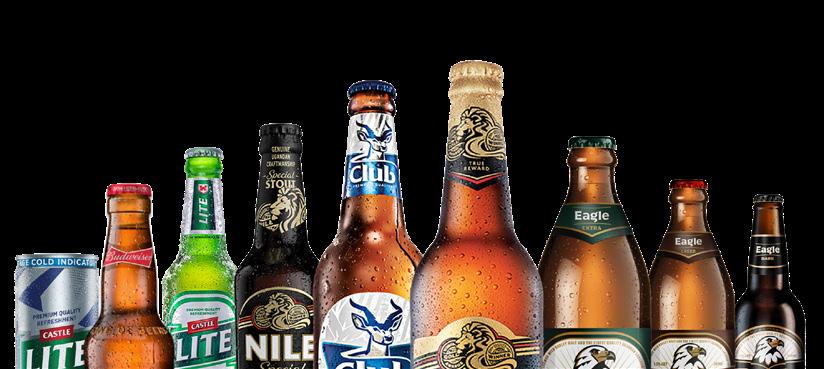
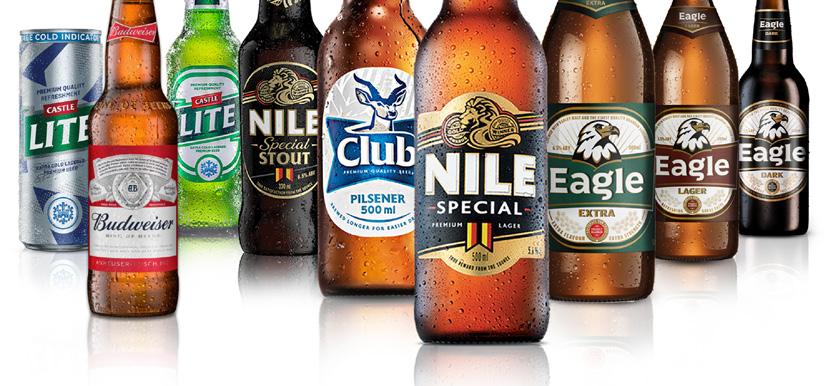
In such a sizable continent brimming with rural and urban economic development, the beverage industry is a sphere of constant adaptation and growth, where players have to navigate the market, international and domestic challenges, environmental concerns, and the best brewing practices to stand above and apart from their competition.
“The beverage industry in Uganda is an exciting one with lots of growth opportunities, but it’s not without its challenges, especially those stemming from the global economy in light of the COVID-19 pandemic,” Muhwezi says.
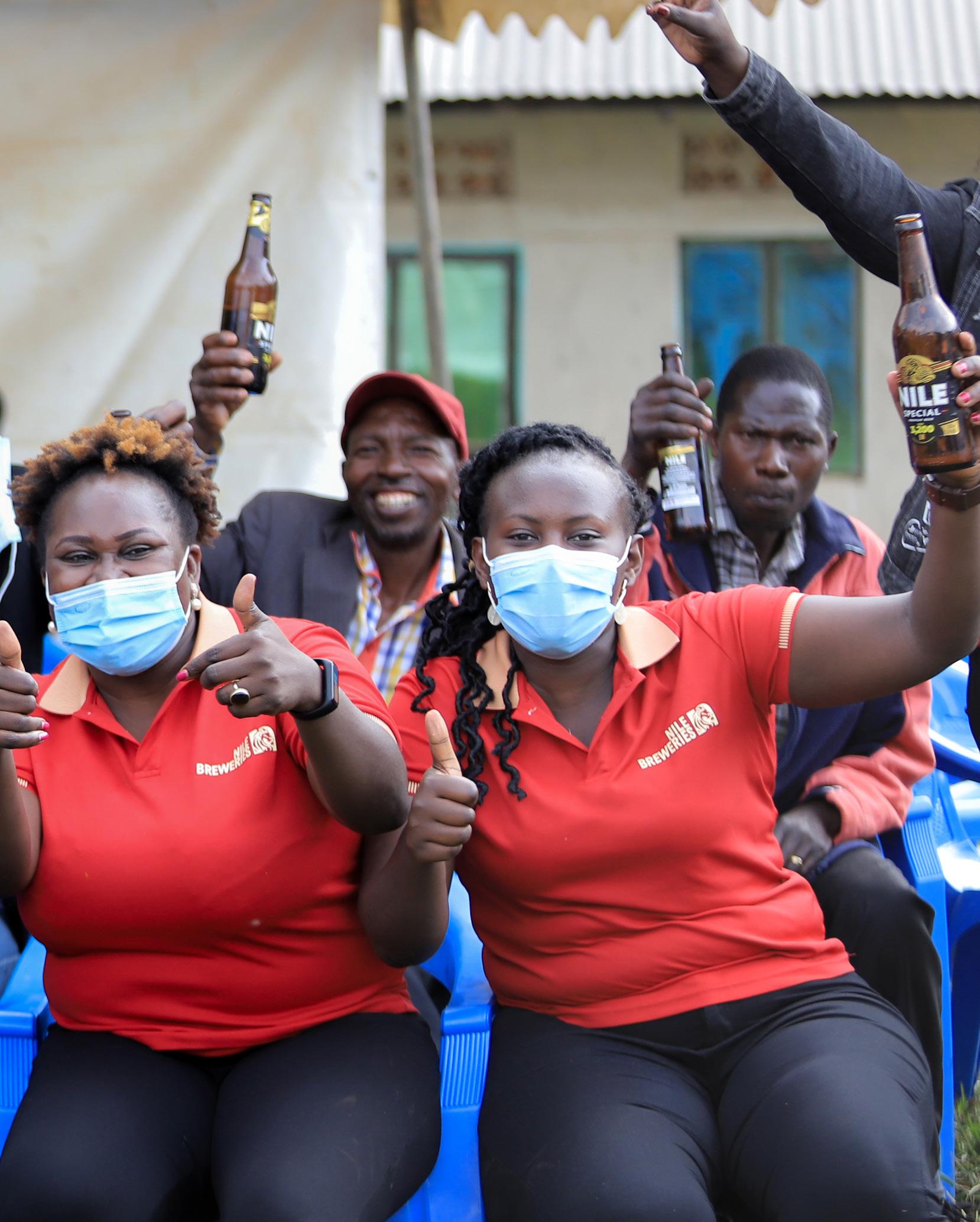
“On top of this, there are issues when it comes to the illicit alcohol market (making up around 64.5 percent of the market), that puts much more pressure on beer companies in Uganda in terms of operations, as they do not pay taxes and raise unhealthy market competition.”
According to Muhwezi, large com panies within the beverage industry are among the top tax-paying sectors, and contribute significantly towards domestic growth.
PROCUREMENT MANAGER: “Originally, as a graduate from Makerere University (Kampala) in 2010, I started as a chemist.
“I joined Nile Breweries through the malting plant division of the company, where they had opened up a new malting facility in Uganda. I joined as a member of the production team having had a background in chemistry, and I spent over one year in this position before an opportunity arose in Nile Breweries’ new facility in Western Uganda (Mbarara Plant).
“Here I crossed over into the cost accounting side of the business, spending three years in that field before moving on to multiple roles including in planning and performance management, later becoming a Country Production Planner, and finally moving on to procurement at the head office in 2019 as the Country Procurement Manager.”
“These kinds of pressures are hitting hard, but Uganda happens to have quite a large, young and active population that contributes towards a rising Ugandan economy and paves the way for greater potential,” he adds.
While Nile Breweries focuses much of its attention on delivering cheer to people across Uganda and the wider continent, the company does not forget the responsibility that it has for the environment, especially water sources that are so critical to not only beer production, but also people’s lives.

“River Rwizi happens to be a very important river in Western Uganda, because almost the entire livelihood of the population in that region depends on it,” Muhwezi elaborates. “You cannot produce beer without water, and everyone relies on the water, so we have deliberately tried to investi gate how to sustainably operate in our business and maintain cautiousness when it comes to the livelihoods of the country’s population.
Maxol is a limited liability company incorporated in Uganda. It was established and registered in 2013. It has a vast experience in import, supply and distribution of products in the petroleum industry.

They have a well-built team of qualified and diligent professionals who are not only brilliant, but also astute, energetic, discreet, and sagacious. An experienced team of marketers, negotiators and business experts who can handle business issues. This is in line of the company vision “To provide exceptional services in line with client demands and highest industry standards.”
Company’s foundation is built on core values which distinguish and guide their actions. Conduct of business is in a socially responsible and ethical manner. The products/ service provided are mainly Heavy Fuel Oil (HFO), Automotive Gas Oil (AGO), Premium Motor Spirit (PMS), Liquefied Petroleum Gas (LPG) and Transportation/ Distribution of Fuel.
Maxol deal with wide range of clients from a diverse industries namely but not limited to: Independent Power Producers (IPPs), Steel Manufacturers, Beverages, Dairies, Confectioneries, Home Care Products, Construction, Mining, Sugar Industries, Fuel Retailers, etc. www.maxol.co.ug



Water is becoming a scarce resource due to the growing population in Uganda, and yet is very important in Nile Breweries’ business.
Recent studies show that the level of water in the Nile Basin is decreasing rapidly, therefore causing the company to regard water conservation as one of its top priorities. Nile Breweries has implemented a comprehensive improvement plan, to support the drive for continuous improvement in water efficiency.

Nile Breweries has set targets to lower the water usage in its operations and is proud that it has reduced its water consumption from eight hectolitres of water per hectolitre of beer produced in 2006, to less than 3.6 hectolitres today. This has been achieved through several capital projects such as the recovery of filterbackwash water for floor washing in non-production areas, machine cooling water recovery, and reuse and improved metering.
Nile Breweries has also worked hard to improve employee awareness on saving water. Each week, every department in the brewery reports its water usage to ensure performance matches company targets.
Over the last 70 years, Nile Breweries Uganda Limited has achieved excellence in brewing by taking the Shell Route and enjoying the benefits of a partnership that fuels success.
We celebrate this milestone and take immense pride in supplying Uganda’s premier brewery with our quality fuels and lubricants to enable them keep shinning.

“At Nile Breweries, we have taken to the fore of river conservation.”
The company’s Mbarara Plant happens to be categorised as a highly water-stressed plant, the reason being that River Rwizi is seasonal, meaning that water levels fluctuate. This fluctuation means that, when water is scarcer, Nile Breweries must purchase water from municipal facilities which is an expensive option.
In light of this, Nile Breweries has
invested millions of dollars in the rejuvenation and restoration of the river, opening up the catchment areas along the river, by supporting people to ensure that the banks of the river are not encroached in times of human activity, and making sure to reduce upstream contamination.
“We have run this kind of campaign for as long as the company has been around in Mbarara, because we know how important the river Rwizi is,”
Muhwezi tells us proudly. “We also have initiatives with stakeholders that look into alternative sources of water in the area to ease the use of the river.
“In terms of alternative conservation, we also have projects that we run in farming-heavy rural areas through our corporate affirms department. That includes the provision of clean water through establishing bore holes, of which we have constructed quite a number to support individual farming families’ livelihoods. Nile Breweries also offers scholarship campaigns across these same rural areas in the country, to support the population when it comes to accessibility of resourceful education.”
Meanwhile, Nile Breweries ensures that it supports future generations through a variety of means, such as its Be a Millionaire campaign, where the company supports young
entrepreneurs across the country to help establish start-ups, and the Smart Drinking campaign that is synonymous with the business, relating to the health and happiness of Uganda’s population.
“We also make efforts in the healthcare field. We do blood donations, which is very much a part of our community efforts, and during the COVID-19 pandemic, we were one of the biggest companies that came out to support the country during its time of need,” Muhwezi elaborates.
“Nile Breweries contributed one of the largest donations of oxygen when the population needed it, and we spurred on a very significant drive for vaccinations and the facilitation of such vaccinations for our population. This has
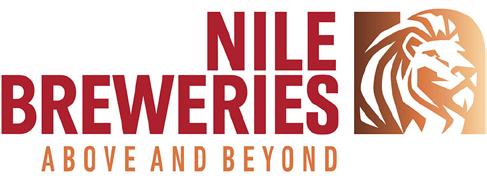
come in very useful for spearheading the recovery of our national economy.”

Nile Breweries holds the continuous aim to better Uganda through company growth. Through the expansion of the business, the company provides more than just beer; more local farmers, suppliers and domestic businesses see a demand for their produce, meaning increased sales and profit to increase livelihoods, and a widespread impact that raises Uganda’s economy as a whole and strengthens the country.
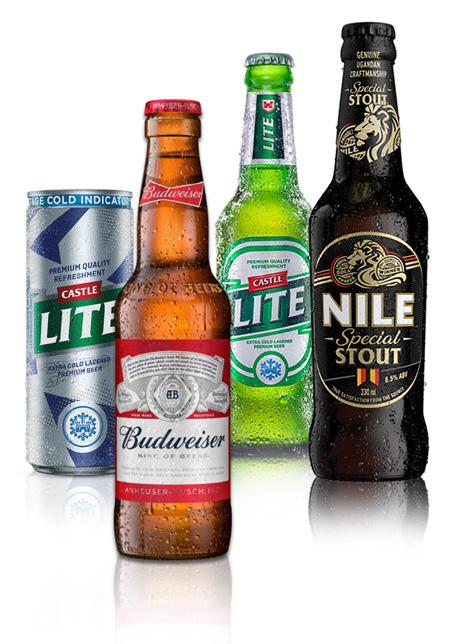
“Our biggest drive is towards a future with more cheers,” Muhwezi says. “We really want to help create a future where people are happy. Equally, our plans are to become a stronghold for the growth of the country, as we are one of
the biggest payers of taxes nationally, and we hope to grow to only build this and develop Uganda further.
“There have been many challenges in the industry stemming from past restrictions due to the COVID-19 pandemic, and rising inflation due to the war in Ukraine, but our culture allows us to see these challenges as opportunities to leverage. We are heading in a very digital direction at the moment, both in terms of supply chain and customer transaction, and our digital transformations are helping us streamline business to continue delivering quality beer, good times, and economic prosperity in Uganda.”
Tel: +256 (0)
As one of the most popular sources of protein, Kelfoods has hatched success from high-quality eggs in Malawi. COO, Soti Michael, gives us the details
Writer: Jack Salter | Project Manager: Kyle LivingstoneMalawi, one of the world’s most densely populated countries, has a debilitating protein shortage.
Protein is an important nutrient that the body needs to grow and repair cells, and to work properly. It is found in a wide range of foods, such as eggs, and is crucial to a healthy diet.
In Malawi, eggs are a necessity. Most alternative protein sources are seasonal and in decline, whereas eggs are available throughout the year.
Addressing the shortage of protein in Malawi is Kelfoods, a leading integrated poultry business that farms, produces and markets table eggs, day-old chicks and animal feeds through its extensive retail and distribution network.
“The main business of the company is the production and sale of table eggs, branded as Donna’s Eggs, as well as day-old chicks (Proto Chicks), commercial animal feed (Proto Feeds), and poultry equipment and vaccines (Proto Vet). We have combined our Donna’s Eggs and

Proto brands to be a one-stop shop,” opens Kelfoods COO, Soti Michael. Donna’s Eggs are power-packed with protein and therefore at the heart of Kelfoods, whose goal is to consistently supply eggs to Malawian consumers and increase
annual consumption to 80 eggs per person, sufficient to sustain child development and ensure sustainable physiological growth.
Currently, an impressive one million eggs are produced by Kelfoods each day, and with its own bio-secure broiler and layer farms, the company is well equipped to meet current and future table egg demand.

Kelfoods is also Malawi’s biggest supplier of day-old chicks under the Proto Chicks brand, selling up to 200,000 per week, the majority of which are delivered to small-scale farmers across the country. The highly regimented production systems at Kelfoods’ hatchery enhance the genetic potential of each chicken, through internationally accepted hatching standards in line with strict animal welfare practices.
“Kelfoods has Lohmann layer breeders and Ross broiler breeders, who feed our hatchery. From there, we sell our day-old chicks, while our pullets are reared on our rearing farms,” Michael tells us.

VISION: To sustainably grow the business, being the best-cost producer of animal protein and feed to Malawi and immediate regional markets through superior product quality and availability.
MISSION:
• Produce and sell products at affordable prices.
• Continuously improve and grow the production of high-quality products to internationally accepted social and environmental standards at the best cost.
• Improve product availability and customer satisfaction, supported by an expanding retail and distribution network.
• Employ and develop skilled employees who are passionate and committed, creating a culture of excellence.
• Maximise growth and profitability for all stakeholders in a responsible and sustainable manner.
70 percent of Kelfoods’ products are marketed and sold through its 101 branded retail outlets, strategically positioned to support local vendors and small business owners.
“We cover all the main towns and markets across Malawi, however we are constantly evolving and expanding into new townships and population growth areas.”
To be successful in the poultry industry, whether you are a small-scale farmer or a commercial farmer, you need good quality, consistent feed.
As such, a key investment in Kelfoods’ expansion strategy is the company’s new feed mill.
Construction of the new mill commenced in January 2018, doubling Kelfoods’ feed milling production capacity to 10,000 tonnes per month, the largest in Malawi.
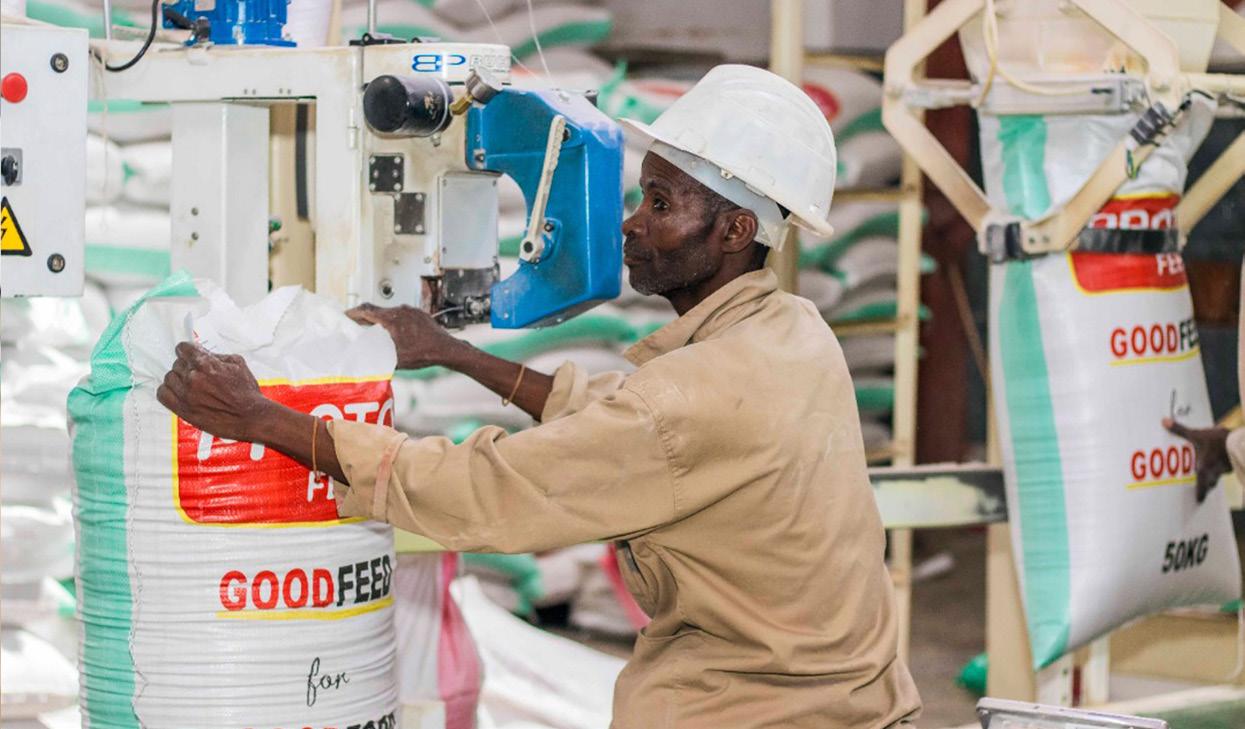
“We have invested in a state-of-theart feed mill in Dalein, which every hour produces 25 metric tonnes of mash feed and six metric tonnes of pellet feed to drive our expansion in both the layer and broiler business,” outlines Michael.
“This includes a batch weighing scale, mixer and discharge hoppers, and a feed pellet crumbler, making it a fully integrated system.”
Proto Feeds is the brand name under which animal feed is produced and sold by Kelfoods, and the feed mill is the catalyst for growth throughout the company’s business value chain. Kelfoods has also recently upgraded its facilities with state-ofthe-art grading equipment. Grade requirements for eggs are set to protect the consumer from undue risk, and to ensure a uniform and appealing product.
By specifically grading eggs for their interior quality, weight, cleanli ness, shell construction and freshness, Kelfoods puts only the best quality eggs on the market and sets the stand ard for food safety in Malawi.
The Ross® 308 satisfies the demands of customers who require a bird that performs consistently well and has the versatility, robustness and cardiovascular strength to meet a broad range of end-product requirements and environments.
The Ross 308 is the leading broiler worldwide, with its unparalleled and renowned performance in both open and closed-housing environments.
Customers across the region choose Ross because it meets the requirements they are looking for, specifically in FCR and yield, which in turn maximises their profit, making Ross the breed of choice in the region.
Excellence in poultry equipment since 1956.
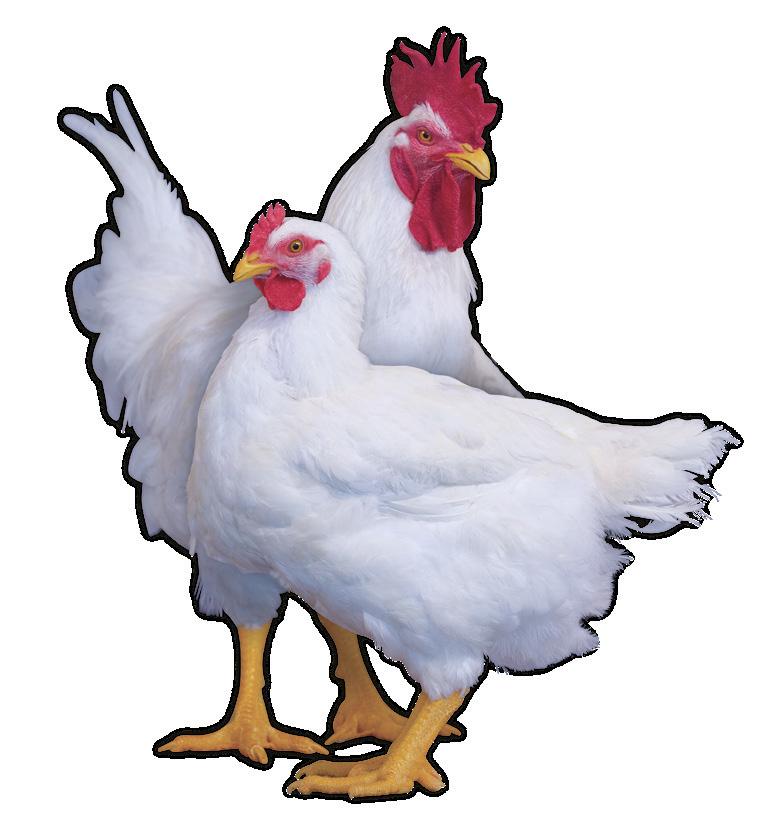
Since its origins the company has been dedicated to the manufacture of top quality "cage" systems for the poultry industry.
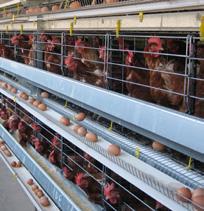
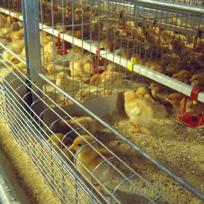

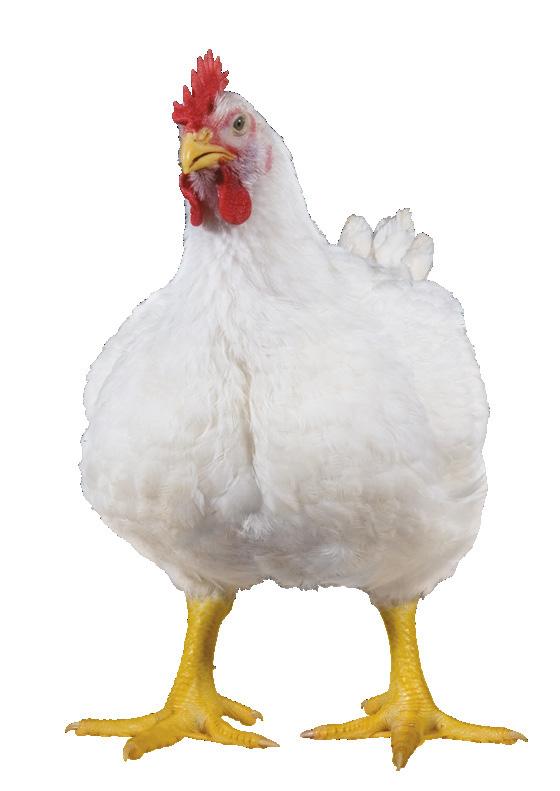
Valli offer a very wide range of products for laying birds from traditional "A" frame cages for tropical climate countries, to manure belted systems with/without manure drying and new "enriched" multitier systems to match the requirements of EEC welfare regulations. We also supply rearing, parent stock, broiler cages and aviary systems.
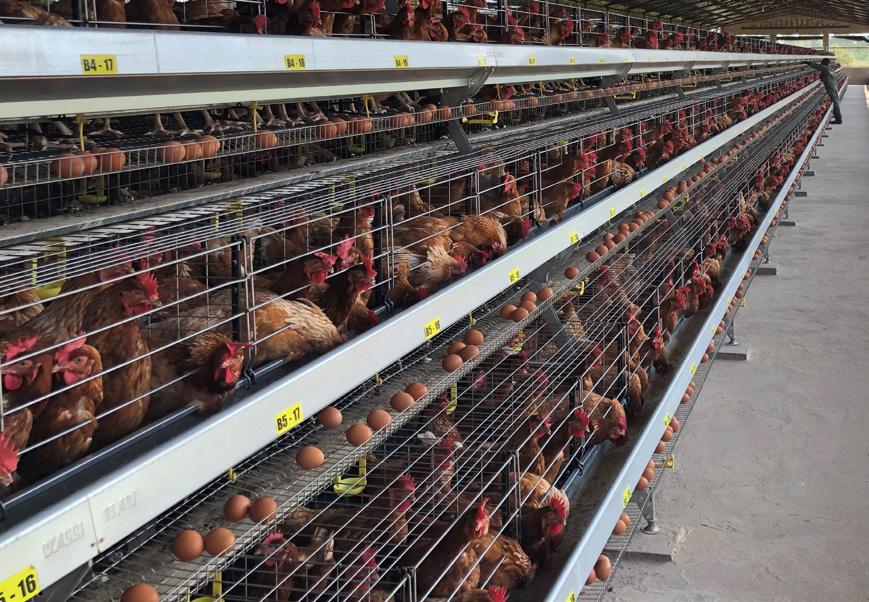
We design complete turnkey packages with all the internal equipment, ventilation and electrical controls required and have the back up of well-trained installers and supervisors to ensure your build is of the best quality and functionality.
All of our history, all of our experience, all of our work is dedicated day by day to improve the design and performance of our equipment in order to provide our customers with a "quality they can depend on". Our tradition is quality without compromise.

“All of our eggs are graded by Kelfoods’ state-of-the-art packing station and distributed to shops, supermarkets and customers across Malawi,” Michael tells us.
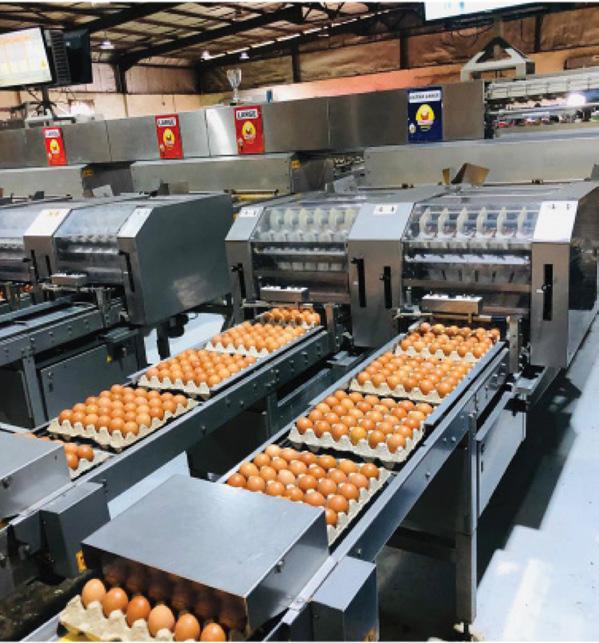
Reducing the risk of disease on its farms is imperative to Kelfoods, who
implement and maintain rigorous biosecurity measures as part of its farm management practices.
The first step in preventing disease is to protect flock from exposure to disease agents, by following very strict biosecurity guidelines to the letter.
Biosecurity comprises the likes of flock healthcare, timely and effective vaccination programmes, balanced nutrition, enclosed and ventilated housing, high standards of farm and bird management, and poultry disease control, all of which are key to produce high quality products for the consumer.
“Biosecurity is our perimeter fence, and is one of the cornerstones of our success,” acknowledges Michael.
“We don’t take any shortcuts towards biosecurity, and all of our sites are fully enclosed. Every site has only one point of entry, whereby all
personnel must dip their feet and all cars are disinfected.”
Kelfoods’ breeders, hatchery and rearing sites are even more restricted when it comes to biosecurity, with showers required before entry and only on-site clothing and shoes worn, whilst serology and microbiology laboratories ensure healthy flocks for healthy food.

“We pride ourselves on having wellmaintained, clean, and smart farms with constant disinfection, rat bait, and wild bird proofing programmes.”
Through Proto Vet, experienced Kelfoods veterinary teams are also available to develop or fortify biosecurity, vaccine, and/or therapeutic treatment protocols for businesses.
Kelfoods offers a complete animal health and hygiene range, including vaccines to protect livestock from today’s commercial
production challenges, water soluble medications and supplements, and custom-developed disinfectants and detergents formulated to offer the highest level of protection against diseases without risk to users or livestock.
“We have an extension service for all farmers with our own technical vets, who work with our retail outlets and cover all regions throughout Malawi under the Proto Vet brand,” states Michael.
With tailored logistics, Kelfoods’ new fleet of custom-equipped trucks are configured to supply products to customers on time and offer an efficient logistical backbone.
“We provide a healthy mix of our own fleet for specialised deliveries and external third-party contractors, so we are flexible and nimble to market,” Michael observes.
“Our supply chain and logistics network operations have to be consistently efficient 365 days of the year, and we value all of our suppliers and partners whereby we build longterm relationships based on a win-win approach with open communication and understand to grow together.”
Across the supply chain, from farm to customer, Kelfoods prides itself on providing the highest quality products to the market through more than 1,500 valued employees.
Great emphasis is placed on local employment by Kelfoods, with internal training provided at all times and local staff having equal opportunities to learn and grow within the company.
“We open the door for each Kelfoods employee to empower one another and motivate each other to grow and develop. We allow all employees to take on new positions first before we recruit from the open market,” reveals Michael.

Likewise, Malawians are empowered by Kelfoods to learn
taught is shown in practice. Farmers will get to experience and understand what is required for the entire five weeks of broiler farming, from receiving day-old chicks to selling and cleaning the house to restart the process,” Michael explains.
One single egg contains a high amount of protein, anti-oxidants, vitamins and minerals.
Whole eggs are among the most nutritious foods on the planet, with Omega-3 enriched or pasteurised eggs an even healthier option.
According to the World Health Organization, eggs are the most sustainable and acceptable source of animal protein in infant and child diets. Whether soft or hardboiled, fried or whisked into an omelette, eggs appear to give even infants a boost.
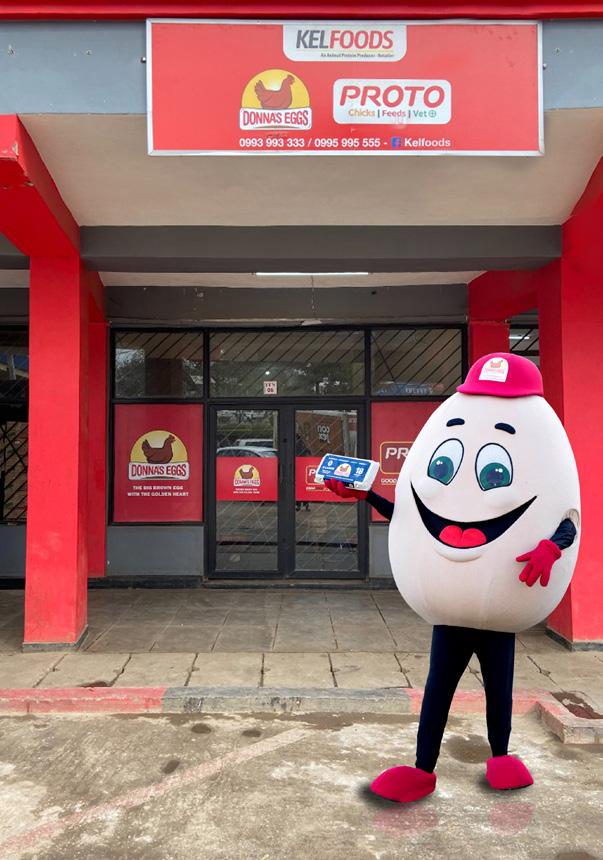
It could also be a cost-effective way to prevent stunting in young children, according to researchers.
“After successfully finishing the course, farmers will take away our theory booklet with them and be awarded a Certificate of Completion. The entire course is provided for free by Kelfoods, including transport to and from anywhere in Malawi, accommodation and food.”
Direct engagement with Malawian farmers, and the growth of smallscale poultry farmer training, is one of Kelfoods’ key priorities for the year ahead, as it continues to supply high-quality, affordable animal protein throughout Malawi and into immediate regional markets such as Mozambique, Tanzania and Zambia.
“We believe that our professionalism and teamwork,
and invest in broiler poultry farming. The company’s demonstration farm focuses solely on equipping local poultry farmers, with up to 1,000 new poultry farmers trained per year at no cost to the individual.
Also included is an abolition block, classroom, and seven model broiler houses each with the capacity to grow 200 broiler birds that illustrate the various stages of farming up to five weeks.
“The three-day course combines practical and theory, so whatever is
Kelfoods allows all employees to take on new positions first before recruiting from the open market
along with our standard operating procedures and key performance indicators, will help us to grow into neighbouring countries. Our strategy is to eventually set up similar operations in these countries, starting with Northern Mozambique.”
Tel: +265 993 993 333 +265 994 994 444 info@kelfoods.net www.kelfoods.net
Kelfood’s shopMaluti Mountain Brewery is at the summit of beer production in Lesotho. Hannes Smal, Country Director, discusses much-loved brands, a transformational vision and sustainability goals
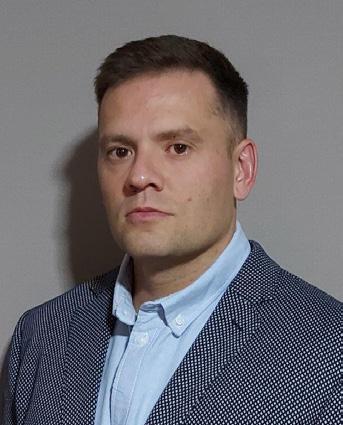
Writer:

The enclaved kingdom of Lesotho is separated from South Africa by its formidable mountain ranges.
Covering the eastern two-thirds of Lesotho is the majestic Maloti Mountains, also spelled Maluti, which include some of the highest peaks in Southern Africa.
It is home to much of the region’s fresh water, with the sources of two principal South African rivers, the Orange River and the Tugela River, located in the Maloti Mountains.
Lesotho is known for this pure mountain water, and since 1980, it has been a key ingredient in the local beer freshly brewed by Maluti Mountain
Brewery (MMB).
“We produce our local brand, Maluti Premium Lager, as well as familiar brands such as Carling Black Label, Castle Lager, Hansa Pilsner, and Castle Milks Stout,” opens Hannes Smal, Country Director at MMB.
Originally established as a joint venture between the Lesotho National Development Corporation, SABMiller, and the Commonwealth Development Corporation, MMB is passionate about brewing, and has a long tradition of craftsmanship in making beer from high-quality natural ingredients.
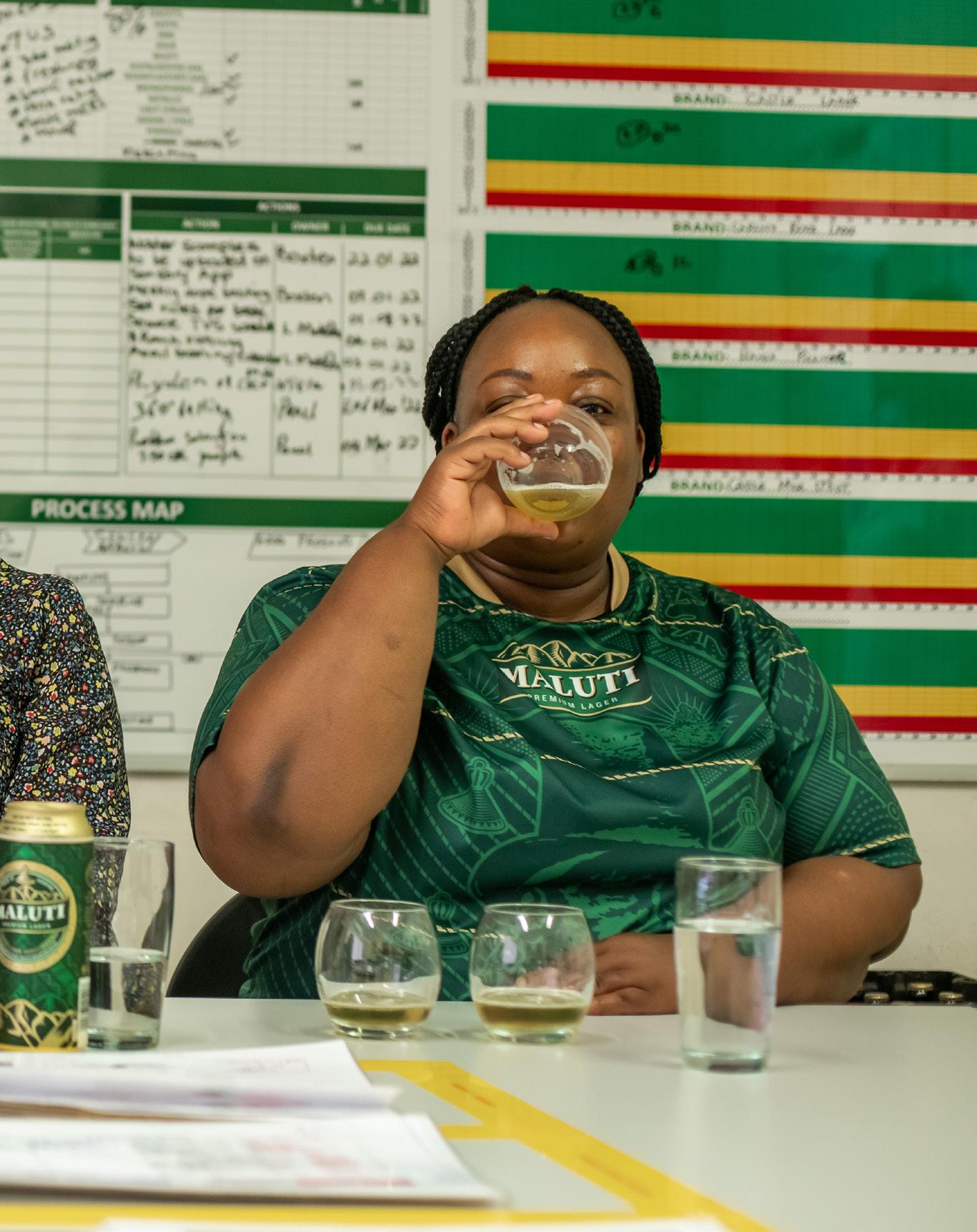
Now a proud subsidiary of AB InBev, the world’s biggest brewer,
MMB also imports key brands from neighbouring South Africa including Castle Lite, Brutal Fruit, Flying Fish, Corona, and Stella Artois.
“AB InBev has a proud history and global scalability, which is massive within the fast-moving consumer goods (FMCG) industry, not only to save and manage costs but also to have a global think tank to learn from,” Smal emphasises.
“Our connectivity allows us to learn and benchmark from each other, share our talented people, and open up a global world to Africa.”
With 355 members of staff including on-site contract workers, MMB is part of an industry that employs more than 25,000 individuals across Lesotho.
Located in Maseru, the capital and largest city in Lesotho, is the company’s brewery plant and one of five MMB depots, complemented by additional sites in Maputsoe, Mafeteng, Mahleis Hoek, and LLD, the latter of which is also contracted to sell spirits and wines for multinational brewing and beverage company, Distell.
“We have developed a strong distribution base across the country, including seven assigned distributors. Our fleet is also unmatched in Lesotho,” notes Smal.
As the African market that MMB operates in is largely untapped, Smal is excited to be part of a team that will create the future of the beer industry on the continent.
“Every day, I wake up and remind myself how lucky and privileged I am to be able to create a legacy with the team at MMB. Once I joined the business, the passion and pride for MMB was tangible; you can’t help but fall in love with our products, people, customers and consumers that drive the beer industry,” he smiles.
“It is a great responsibility to not only drive growth, but also allow the
business to become an integral part of society.”
Smal’s glowing words reflect the vision of MMB, which is “to be an admired transformational company delivering stakeholder needs for a future with more cheers”.
Guided by this vision, MMB has been able to develop itself over the years to become the biggest, and indeed only, local brewer and distiller in Lesotho, one that “brews Basotho essence” into its much-loved brands and “brings Lesotho together”.
Nevertheless, the company doesn’t stand still and is constantly reinventing itself, with digitalisation currently being worked on for 2023.
“We are planning to implement BEES, AB InBev’s digital order platform, in Q1 of 2023,” confirms Smal.
The BEES e-commerce platform is transforming the traditional sales model. At its simplest, BEES allows small and medium-sized retailers to browse products, place orders, earn rewards, arrange deliveries, manage invoices, and access business insights all from one place.
Today, BEES is one of the largest
business-to-business (B2B) e-commerce platforms in the world, with 1.5 million active users each month.
“BEES will allow MMB to monetise and digitise its business, and allow greater ease of access to systems for both employees and customers,” Smal shares.
“This will lead MMB to align as a forward-thinking business and drive our vision to be a transformational organisation within Lesotho.
“Most importantly, it will set us up to incorporate future revenue-growing opportunities, and allow us to be able to go beyond beer and beyond the liquor industry. We will be the leaders of transformation in Lesotho,” he continues.
MMB is in the process of rolling out the Smart Agriculture Programme in the village of Ha Makhalanyane, helping smallholders to access highvalue seeds, fertiliser, market and weather information, accompanied by experienced mentors to ensure the transfer of skills and train the community on all aspects of farming.
Smart agriculture is one of MMB’s 2025 sustainability goals, in which 100 percent of direct farmers are skilled, connected, and financially empowered.
“Our Smart Agriculture Programme was piloted in 2021 and implemented in partnership with the Ministry of Agriculture and Food Security, who helped to identify the project site located approximately 15 kilometres from Maseru city centre,” Smal informs us.
“The main objective was to contribute towards food security, but also to assess the quality of maize and whether it would be suitable to be included in the brewery’s beer production process. Some observations were also made on how to make the project sustainable, for example with modern farming equipment.”
The Smart Agriculture Programme is MMB’s largest corporate social responsibility (CSR) initiative, and aims to be rolled out to other districts in Lesotho.
Likewise, MMB’s collaboration with the Lesotho National Farmers Union (LENAFU) exemplifies the company’s commitment to CSR.
In 2020, MMB entered into an agreement with LENAFU to facilitate the distribution of spent grain to farmers, with more than 170 farmer groups having benefitted since the start of the programme.
MMB has a long history of distributing spent grain to farmers in Lesotho. Spent grain is a by-product of the brewing industry that makes up to 85 percent of brewing waste, the main uses of which are either as animal feed or fertiliser.
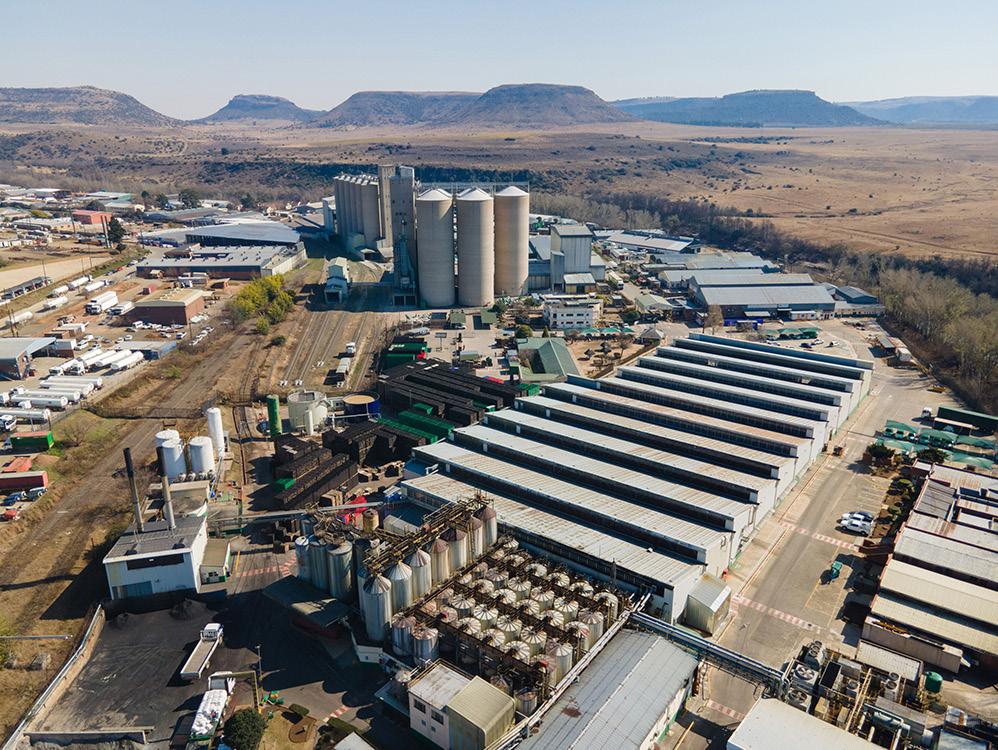
As the COVID-19 pandemic took its toll, MMB acted to ensure a more transparent and equitable system, to guarantee that spent grain reached those most in need.
Elsewhere, MMB supported an entertainment industry severely impacted by the pandemic in style



ERP

how SYSPRO can turn three




into a world of
with Allianced Brewed 4U, the biggest two-day party in Lesotho with performances from more than 80 local artists and DJs.
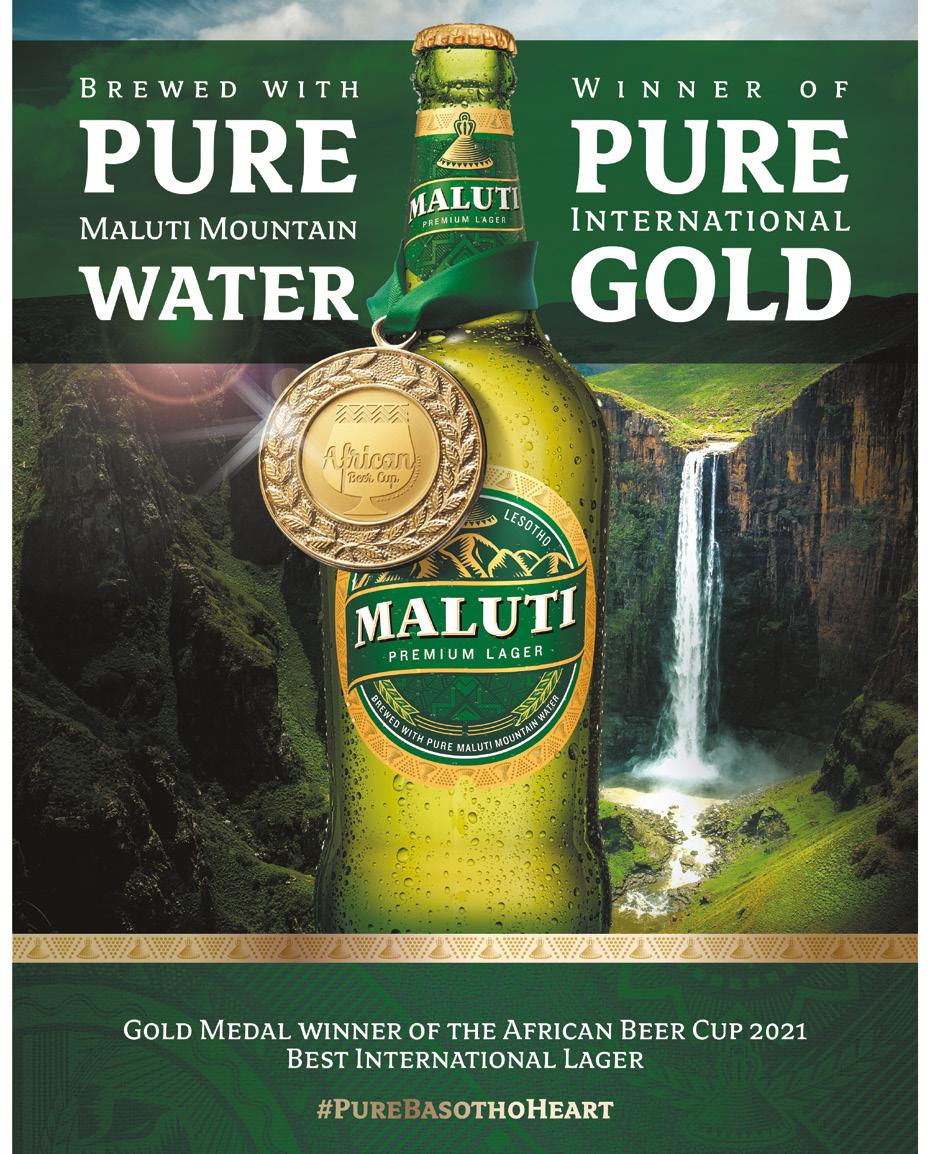
“In addition, throughout the pan demic, we supported our traders and government with hand sanitisers and masks. We pride ourselves on our rela tionships with government, and the liquor and trade industry as a whole, and consistently lead the conversation for a responsible industry,” Smal adds.
MMB is also collaborating with government to target gender-based violence, and every year supports the Department of Road Safety to drive education around responsible drinking.
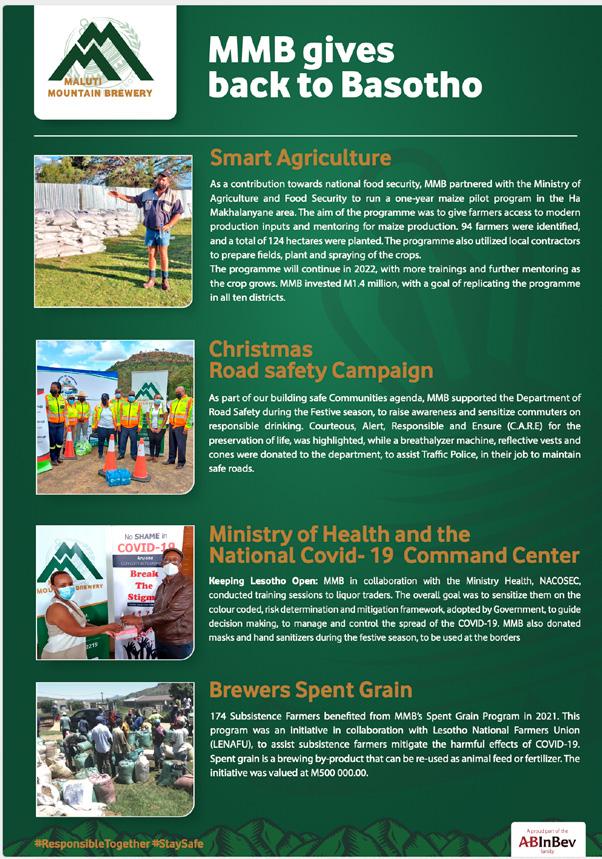
MMB is looking to expand its brewing house to increase local production, and significantly enhance the company’s ability to be self-sufficient.
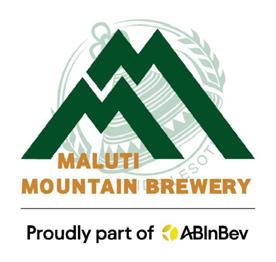
“Our current brewery is at its capacity limit due to the age of the






site. Upgrading elements of the brewery will allow us to be able to generate higher yields on our brews,” outlines Smal.
As well as potentially doubling its capacity and equipping it with more




technology, the expansion will result in more jobs for local employees.





For its existing staff, MMB rewards and recognises exceptional performance, both on an individual and a team level.




“Our teams are empowered through our operating model to become autonomous in the dayto-day running of our business. We have found that this allows for clear communication and collaboration to elevate our business performance, but also creates a sense of ownership and belonging within MMB,” Smal concludes.

MALUTI MOUNTAIN
+2665 2232000

We dream big to create a future with more cheers.” This has been the ambition of Accra Brewery PLC for more than 90 years, fulfilled by brewing and sharing only the finest beverages to create extraordinary moments.

Accra Brewery PLC’s story, one of resilience and triumph, began in 1931 when the company was established
atop a hill overlooking Agbogbloshie in the Ghanaian capital of Accra, becoming West Africa’s first brewery and marking the beginning of Ghana’s manufacturing industry in the process.
In 1997, SABMiller acquired controlling shares of Accra Brewery PLC to propel the company into the new millennium with new products
and expansion projects necessitated by increasing consumer demands; today, as a proud member of the AB InBev family since 2016, Accra Brewery PLC has embarked on its latest chapter as part of the world’s largest brewer.
“AB InBev has allowed us to unlock growth within our business, our peo ple, and our communities. We are a
an exciting new era for Accra Brewery PLC, Country Managing Director Galo Rivera celebrates the powerful impact of its brands, projects, and campaigns across Ghana Writer: Jack Salter | Project Manager: Kyle Livingstone
giant but with the agility and mind set of a start-up, not afraid to make mistakes when it comes to trying new things and being innovative,” opens Accra Brewery PLC Country Managing Director, Galo Rivera, whose passion for beer remains steadfast after 13 years in the industry.
“I love beer and the beer industry. Beer creates a bond between people,
is a celebration of national pride, and is one of the few products that is truly inclusive, natural, and local.
“It’s a super exciting industry, and we have a culture of creating “the moment” rather than being benefi ciaries or victims of “the moment”. We work ahead of the market with passion and a consumer focus to create a future with more cheers.”
The purpose of Accra Brewery PLC over the last nine decades has been to thoroughly delight Ghanaians with the best-quality beverages, including the company’s iconic brand, CLUB Premium Lager (CLUB), the first beer ever produced in Ghana.
Brewed with the finest barley malt since inception in 1931, CLUB has

become a truly national icon through the consistent use of adinkra symbols, the Ghanaian national flag, a timeless tagline, and adoption of “Chale” (friend). Best enjoyed with “Chales”, the ongoing presence of Accra Brewery PLC’s best-selling beer has been cemented throughout different occasions and generations, making CLUB a brand that brings friends together.
CLUB is complemented in the Accra Brewery PLC portfolio by renowned regional and international brands such
GALO RIVERA, COUNTRY MANAGING DIRECTOR: “We are a company of owners, where people and culture are our biggest differentiator. The people at Accra Brewery PLC are agile, never satisfied, always challenging the status quo, leading by example, and not just managing the business but transforming it.
“Our leaders make Accra Brewery PLC a great company, one that is continuously working to create a diverse and inclusive environment that fosters opportunities for everyone to grow at their own pace.
“We are fuelled by a dream, not a mission or a vision. A dream takes you beyond what you believe you can do, and challenges you to achieve what seems impossible.
“The 10 principles that Accra Brewery PLC stands for drive every decision we make, to ensure that we work to create a future with more cheers.”
as Club Shandy, Eagle Lager, Eagle Stout, Budweiser, Corona and Stella Artois, as well as the company’s nonalcoholic malt brand, Beta Malt.
“Our heritage shows the quality of our prestigious local brands, and as an AB InBev subsidiary we now host and manage in Ghana the biggest global beer brands,” says Rivera.
“We keep working hard to deliver quality and relevant products to our consumers, making a positive impact in our communities. We are a company that will be here for the next 100 years.”
A key player in the Ghanaian economy with several local and international suppliers, Accra Brewery PLC is always looking for ways to develop and support suppliers that will positively affect the country’s economic growth.
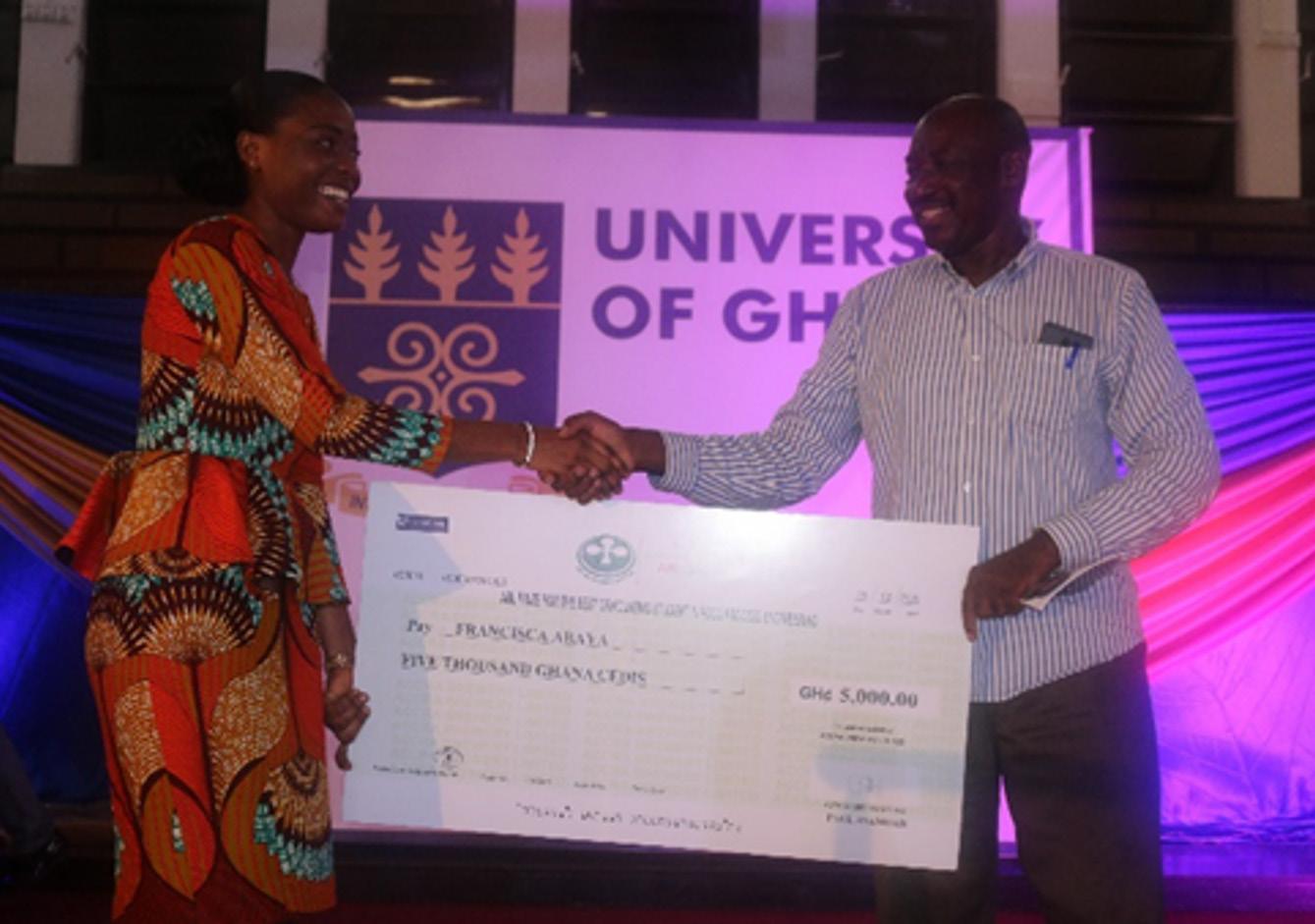
“We have a very strong partnership with our suppliers. They are essential to the business as they ensure our operations run smoothly,” Rivera adds.

Likewise, another of Accra Brewery PLC’s greatest strengths is its peo ple. With a strong emphasis on local employment, Accra Brewery PLC is always on the lookout for, and
developing, the very best Ghanaian talent.
Indeed, more than 98 percent of the company’s employees are Ghanaian, proud to produce and distribute the finest beers that the nation has to offer.
“We hire and develop people to reach their best. With the best people, we deliver the best beer –made by Ghanaians, for Ghanaians.”
Rivera highlights two projects that will help advance Accra Brewery PLC’s 2025 sustainability goals, which concern smart agriculture, climate action, and entrepreneurship.
“Through Enexor’s patented bioenergy system, the organic and plastic waste generated from our operations will be converted into renewable energy,” he reveals.
“We are also introducing five percent recycled content into our Beta Malt PET bottles and partnering with a recycling company in July 2022 to collect post-consumer PET bottles to be recycled.”
The Beta Malt PET Plastic recycling initiative was launched in 2020, and in partnership with Environment360
Tertiary education support
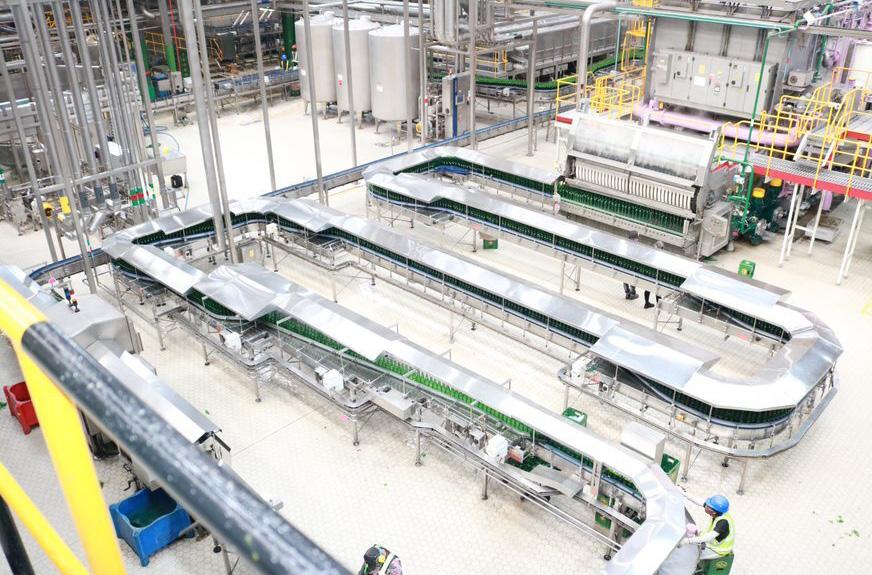
(E360) and Miniplast, waste pickers are employed to collect empty Beta Malt plastic bottles.
E360 supervises the collection of the bottles, which are weighed, recorded, and valued in order to pay
Accra Brewery PLC is deeply committed to building a better world. To achieve this, the company invests in:

• A GROWING WORLD where everyone has the opportunity to improve their livelihood.
• A CLEANER WORLD where our natural resources are shared and preserved for the future.
• A HEALTHIER WORLD where every experience with beer is positive.
the waste pickers, and then recycled by Miniplast to be made into Accra Brewery PLC chairs and bowls sold locally in Ghana, whilst the remaining plastic is exported.
Accra Brewery PLC has also partnered with the Ministry of Environment, Science, Technology and Innovation (MESTI) on the National Plastic Waste Management campaign across Ghana, to enable the development of a vibrant and marketdriven domestic recycling industry.
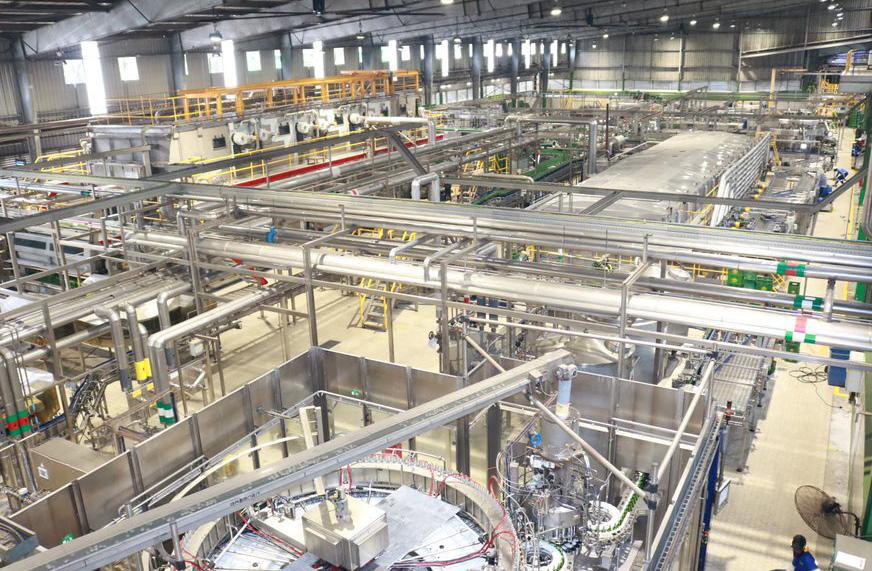
Other corporate social responsibility (CSR) endeavours undertaken by Accra Brewery PLC include the Retailer Development Programme (RDP), aimed at equipping small retailers with relevant business skills to capacitate them to increase their sales and revenue.
Hundreds of small retailers have been trained through the programme since 2018, as part of Accra Brewery PLC’s commitment to investing in a Growing World where everyone has the opportunity to improve their
livelihoods.
“We train operators of small retail outlets in the Accra Brewery PLC distribution network in the Greater Accra region, on the basic skills and knowledge needed to effectively manage their respective businesses,” Rivera shares.
Support for communities and stakeholders has also been provided by Accra Brewery PLC throughout the COVID-19 pandemic, with 15,000 cloth face masks produced by Akosombo Textiles and 10,000 bottles of hand
sanitiser distributed across Ghana. Hand sanitisers were donated to the Association of Ghana Industries (AGI), and Adabraka Polyclinic, whose maternity ward also receives quarterly donations from Accra Brewery PLC.
Accra Brewery PLC’s Smart Drinking campaigns reflect the company’s continued investment in a Healthier World, where every experience with beer is positive.
The “Be Responsible” Smart Drinking campaign, for example, educates Accra Brewery PLC customers on product guidance labels, shares smart drinking tips to prevent alcohol abuse, and encourages responsible drinking.

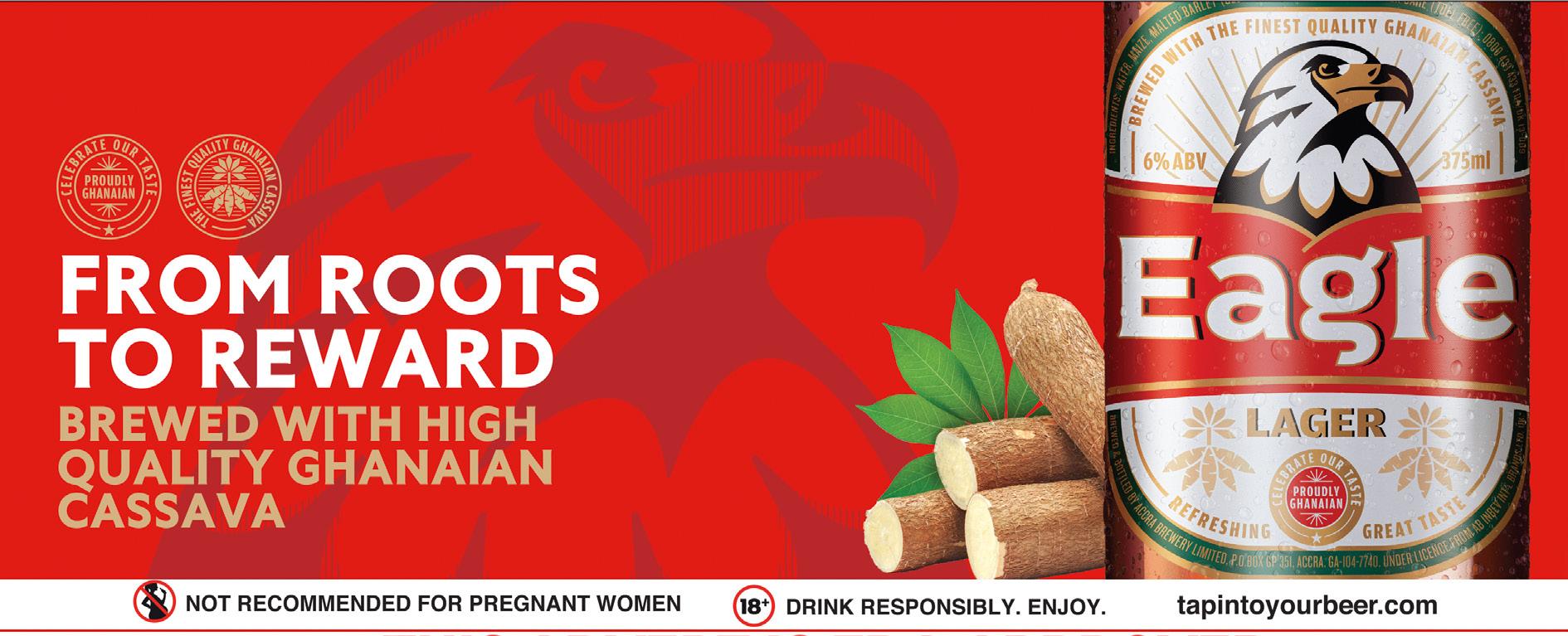
“For all major festivities in Ghana, there is a Smart Drinking campaign to engage all of our consumers,” outlines Rivera.
Accra Brewery PLC has also rolled out a Smart Drinking campaign focused on road safety awareness, in which drivers are provided with important tips and encouraged to be safe on the roads to help reduce the number of accidents in Ghana.
On Global Be(er) Responsible Day, celebrated annually to promote smart drinking in communities around the world, Accra Brewery
PLC’s commitments and the beliefs that underpin them are also shared with consumers through external programmes.
Improving awareness of responsible drinking and reducing harmful alcohol consumption are part of Accra Brewery PLC’s strategy in Ghana, along with growing the beer category.
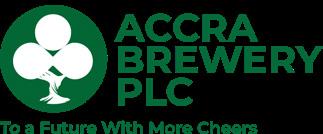
“Beer is a low-alcohol alternative to wine or spirits, which are harmful to consumers, and allows people to stay in control whilst enjoying special moments
family or friends,”
“We will continue to be an active part of Ghana’s economic growth, creating and sharing superior value, supporting our communities, and ensuring that our consumers enjoy a high-quality, crisp and refreshing beer.
“We have news to bring our consumers soon, stay tuned!”

The Port of Conakry is the primary hub of shipping within Guinea. We speak to Managing Director, Biro Diallo, about the port’s critical function in bettering the country through international and continental trade Writer: Marcus Kääpä | Project Manager: Cameron Lawrence
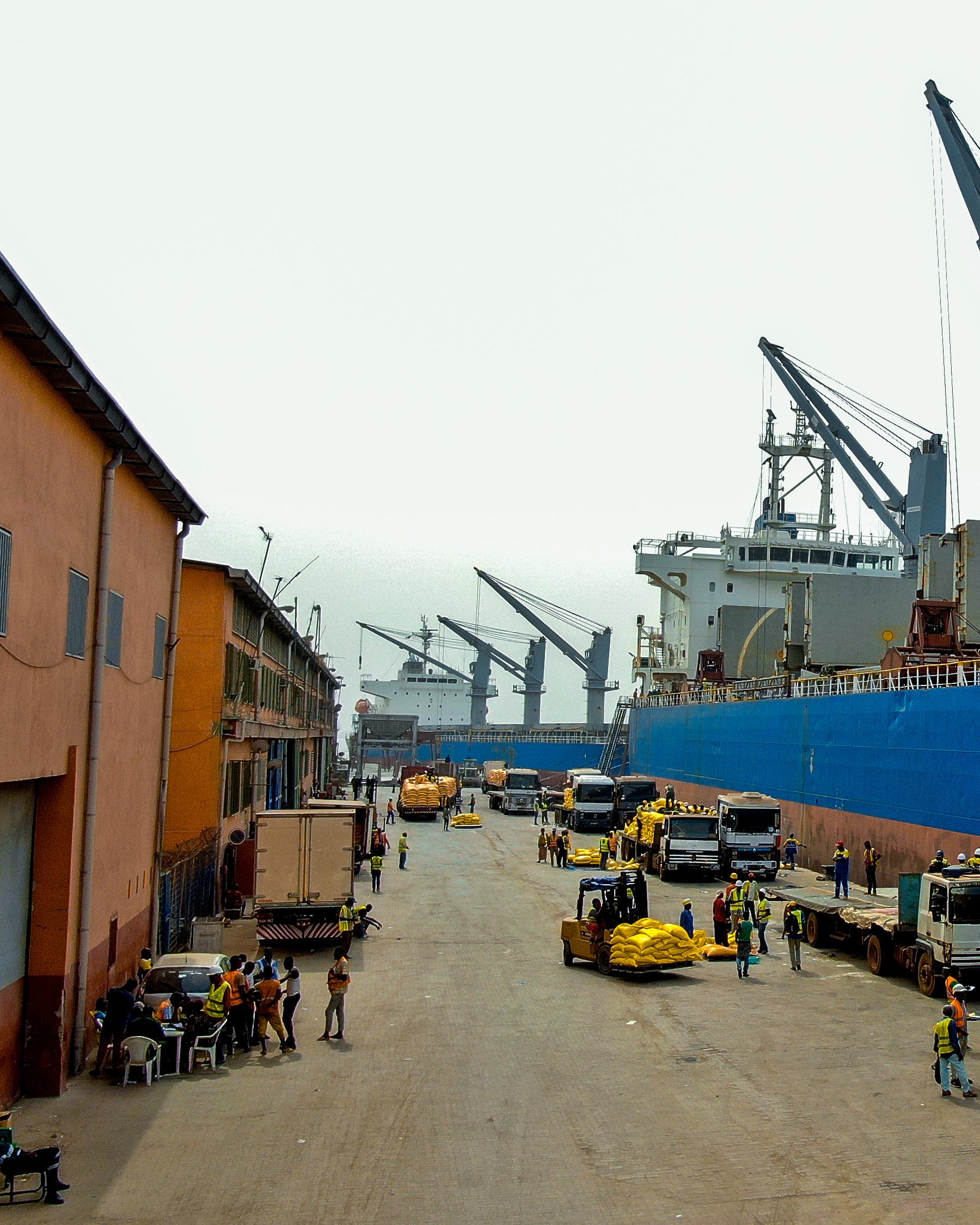
My opinion on the industry can be summed up in one word: hope.”
For Biro Diallo, Managing Director of the Port of Conakry, the future of Guinean trade and shipping looks optimistic.
Similar to Lomé (Togo) and Lagos (Nigeria), Guinea’s capital of Conakry is a critical port city that interconnects West Africa to the north, central and southern continental regions via shipping routes. Within the city, the Port of Conakry is Guinea’s main commercial port, through which 90 percent of foreign trade is carried out. Its geographical location is strategic as the port forms the city’s main maritime border.
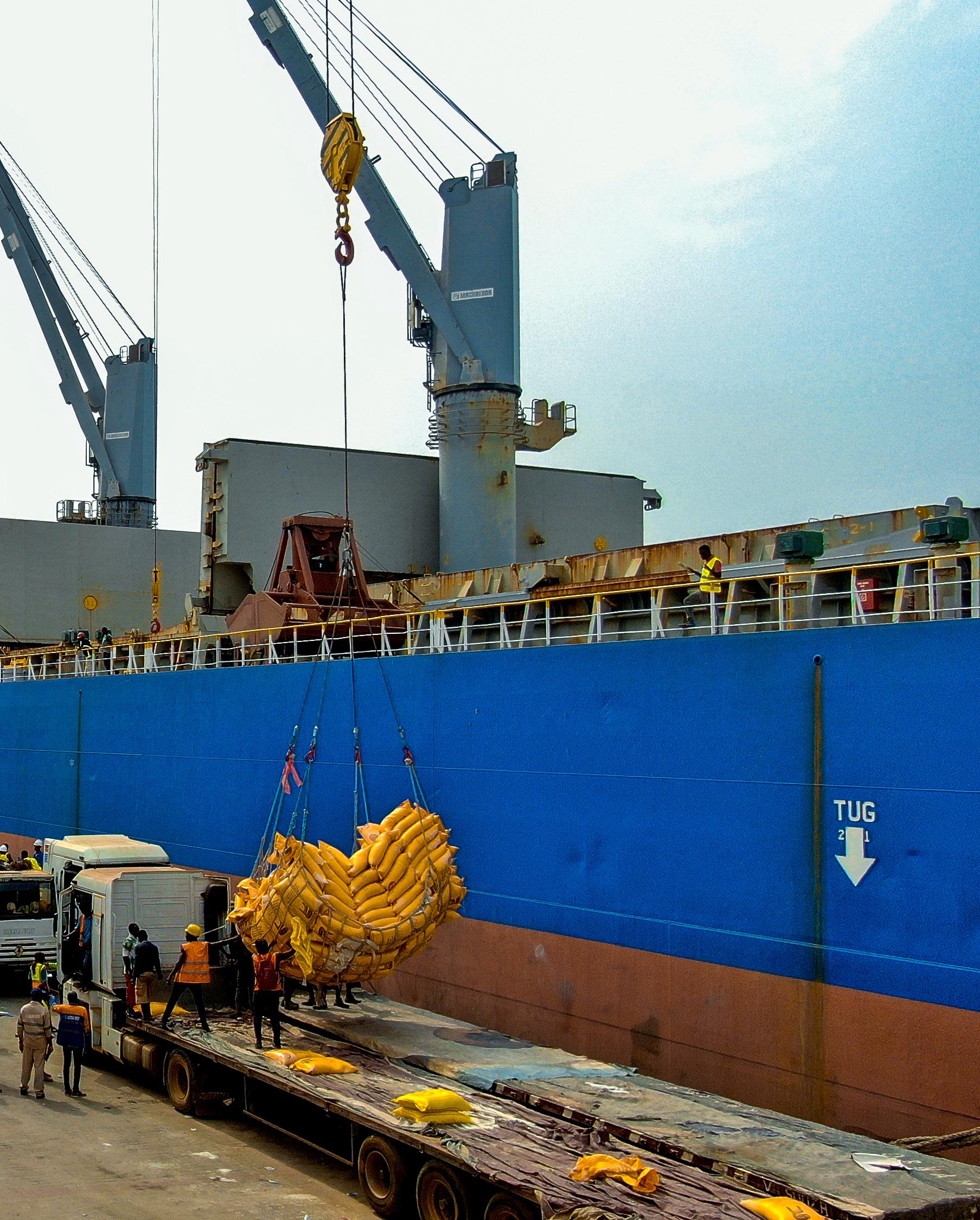
Conakry Terminal is a subsidiary of Bolloré Ports, the leading private operator of public-private port partnerships in Africa. Since March 2011, as part of the partnership with the Guinean State, Conakry Terminal has been managing the container terminal of Port Autonome de Conakry.
The objective of this partnership is to make the Port of Conakry a highly competitive port to sustainably support the growth of the Guinean economy.
With its 567 direct employees, Conakry Terminal has transformed the face of the container terminal by investing massively in the purchase of the latest generation port equipment, by building new quays to facilitate the docking of large ships and by developing storage spaces inside and outside the port for vehicles and containers.
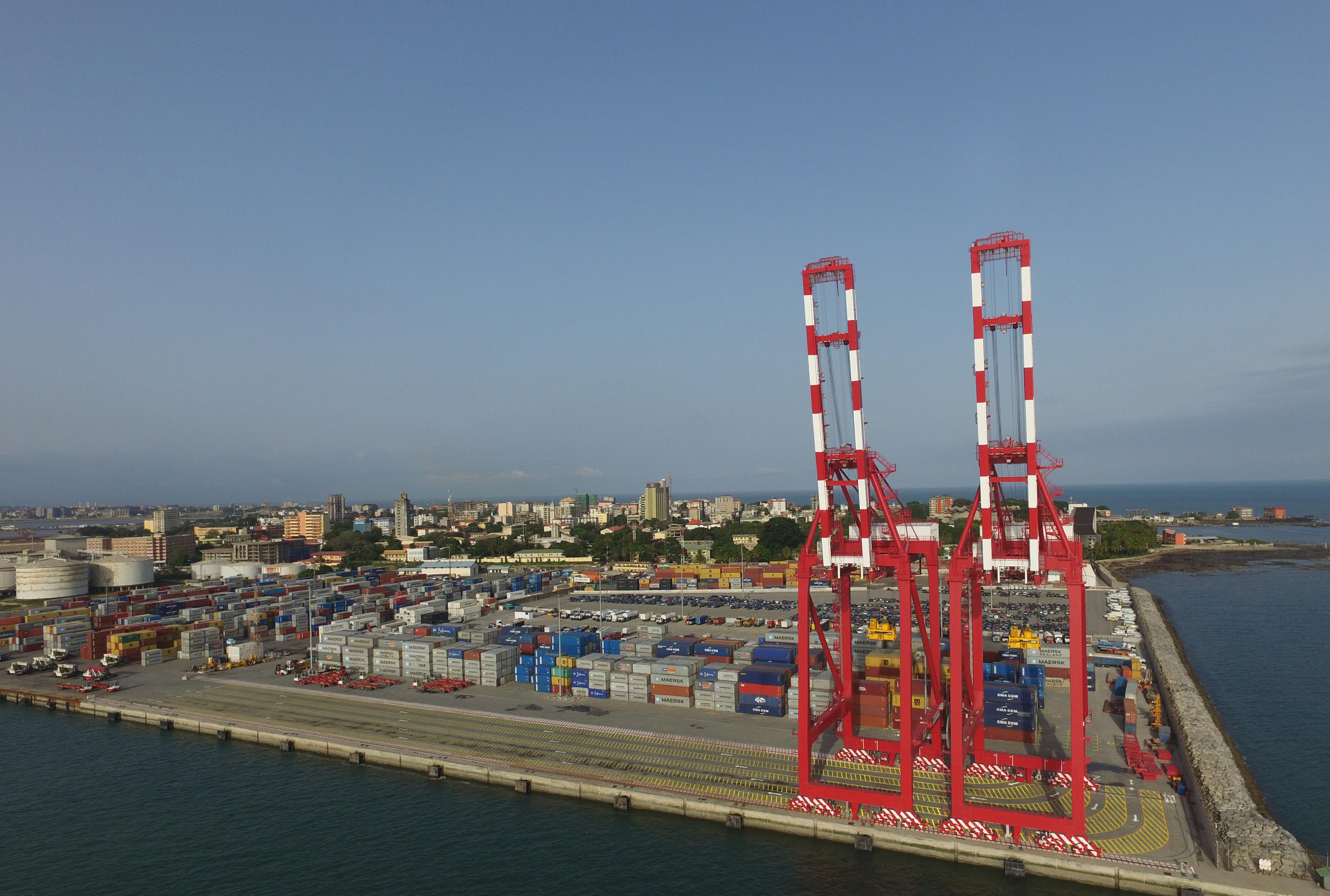
Certified ISO 9001: 2015, Conakry Terminal has invested heavily in the training of its staff for the transfer of skills to Guinean managers.
If the port of Conakry today occupies first place ahead of other major West African ports, it owes it to the reliability and speed that characterize the services of the container terminal, following the efforts made to ensure that the stopover in Conakry is as short as possible.
Integrating the CSR (Corporate Social Responsibility) policy into its approach, Conakry Terminal also redistributes its income to the Guinean populations by investing in education, the training of young people, and the health of women and children. In synergy with Bolloré Logistics, Bolloré Ports also operates the first integrated logistics network on the continent by offering end-to-end logistics solutions.

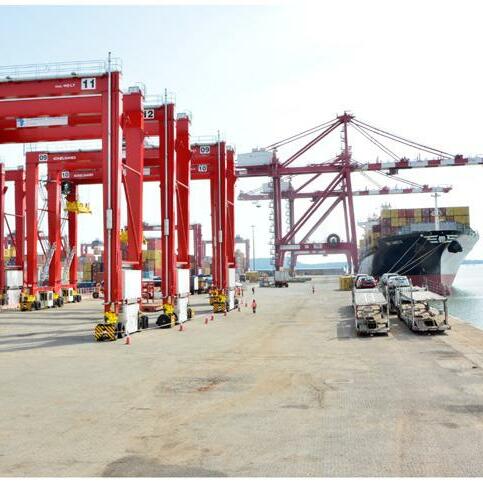
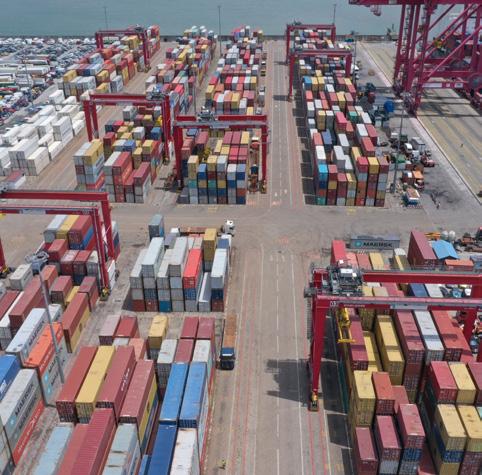

“On top of our brilliant equipment operators and dock workers, the Port of Conakry workforce includes executives from various specialties: engineers, lawyers, economists, graphic designers, security agents, and more.
“As soon as I took office, I initiated institutional reforms to create emulation among personnel and define a regulatory framework for the attributions of each workstation. The appointment criteria included competence, team spirit and commitment. I opted for participatory management to give more responsibility to my employees for collegial management.
“Since taking office, I have met highly motivated employees who are determined to support the port’s initiatives. This is the place to congratulate them and encourage them for their support. The results recorded could not be obtained without their significant contribution.”
The port’s terminals are granted to private operators who are responsible for making the necessary investments for the development of port infrastructure and equipment. The role of the port authority is to regulate, monitor and control activities on the port platform.
“Industry in Guinea has been booming for a decade thanks to registered foreign direct investment,” Diallo tells us. “Labour is very affordable. Security conditions are met to reassure investors that in turn provide capital, and investment and tax laws are competitive and responsive to investor needs. There is a favourable business climate in place, guaranteed by an investment code that reassures and secures investments. Thanks to all these efforts, Guinea earns points every year in the World Bank’s Doing Business rankings.
“In short, Guinea is under strong development. I believe that with the port’s passion for growth, this should no longer be the subject of any doubt. On top of this, the incentive reforms of the Guinean authorities are likely to protect public assets through good governance and the fight against
corruption, helping further such growth.”
The port authority for which Diallo is responsible has 310 employees, over one third of which are women, with their roles spanning handling companies, consignment companies and port concessionaires.
“The vision of the Port of Conakry is to become a hub of trade in West Africa, whose market is very competitive with the presence of nearly 12 ports in the Gulf of Guinea,” Diallo says. “We are working to improve the quality of our offers and infrastructures through major investments.”
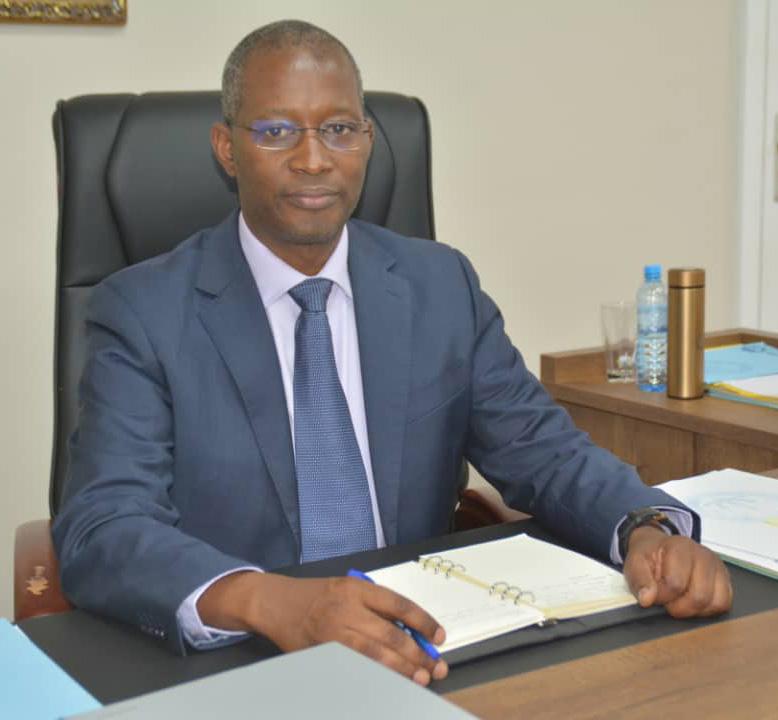
The Port of Conakry has a leading role in the national economy, and because of this, the Guinean government has a strategy in place to further the potential of the port.
“The essence of this strategy lies in utilising countries and regions in the hinterland who lack a maritime frontier, such as the Republic of Mali located in the northwest,” Diallo explains. “It must be recognised that competi tion with our neighbouring maritime countries is very tough, however we
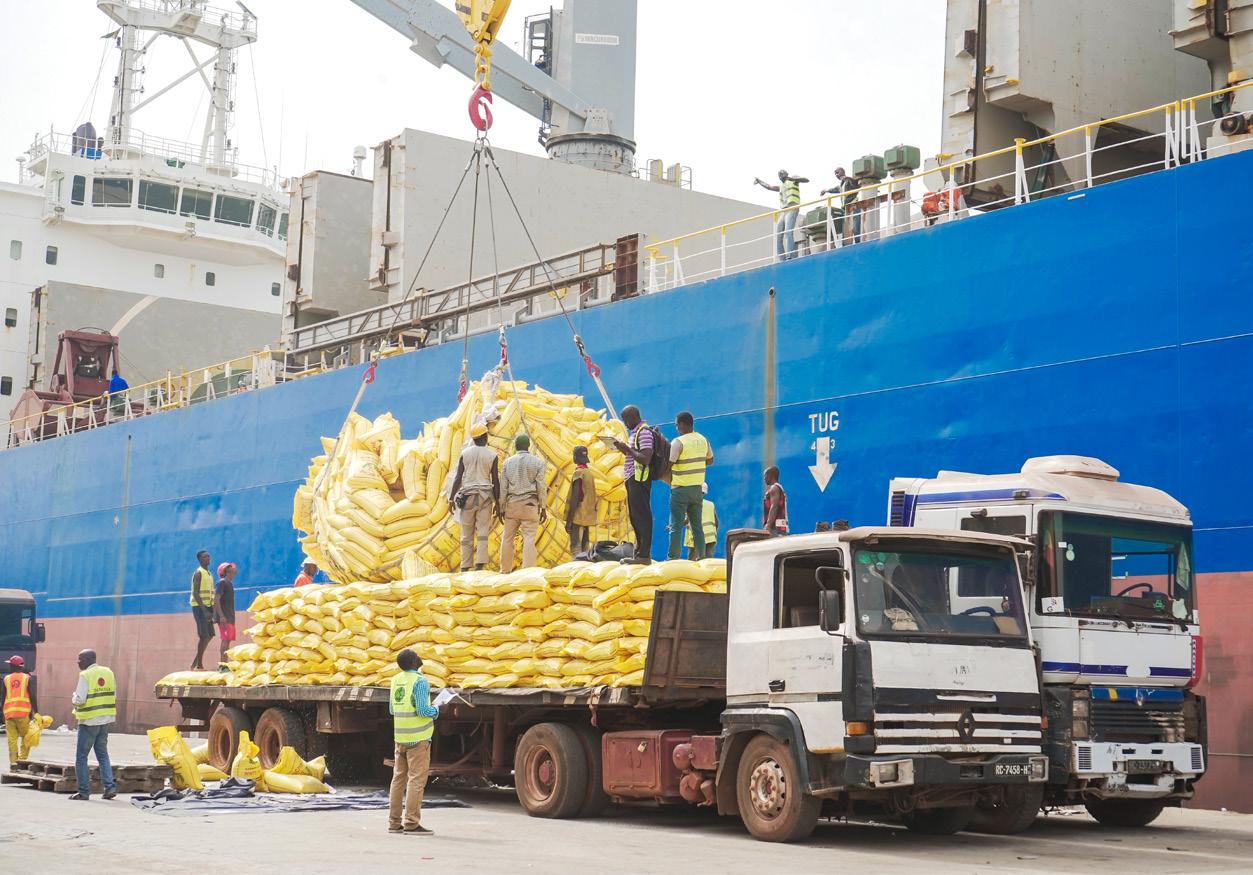
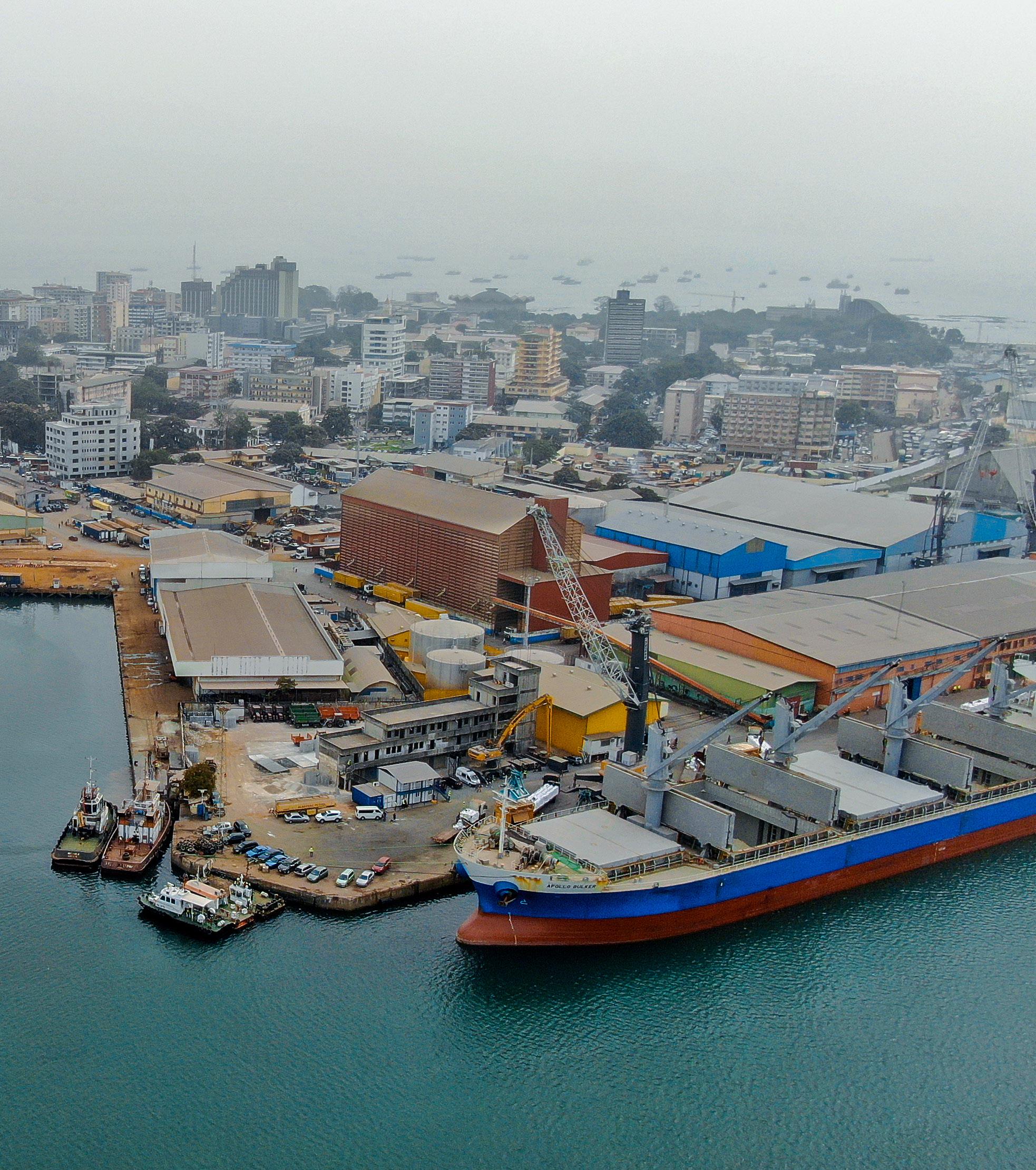
Port of Conakry has 13 berths and employs 6,000 direct workers, as well as over 15,000 indirect staff. These roles are made up of executives, service agents, dockers, security agents, crane operators and more.
have a comparative advantage due to our strategic proximity to the likes of Bamako (Mali), Dakar (Senegal), and Abidjan (Ivory Coast).
“To take advantage of our geographical position, we must continue to carry out aggressive commercial expansion into the Malian market. The potential of this market is enormous when it comes to importing and exporting food, oil, and cotton products, the latter of which Mali is Africa’s largest exporter with 300,000 tonnes harvested each year.”
This strategy is being materialised by the launch of efforts such as the first Malian commercial cotton convoy, allowing 115,000 tonnes of stretch cotton to pass through the Port of Conakry.
“On top of this, we need investments in port, road and rail infrastructure, and to reduce administrative, security and customs hassles on the Conakry-Bamako
corridor,” Diallo continues. “In terms of sustainable solutions, the Port of Conakry will increase its storage capacity for goods from 296,000 TEUs (twenty-foot equivalent units) in 2022 to 500,000 TEUs in 2030. This will increase our Malian market share from 150,000 tonnes to 600,000 tonnes of goods, bringing our commercial expansion strategy further into fruition.”
According to Diallo, the present is an opportune time for investments, with such efforts being the key to the port’s continued success.
In 2011, the container terminal of the Port of Conakry was granted €500 million of investment by the French conglomerate Bolloré, €150 million of which has been provided to date. This substantial investment has allowed the Port of Conakry to obtain certain goals and results to help fuel its potential and growth.
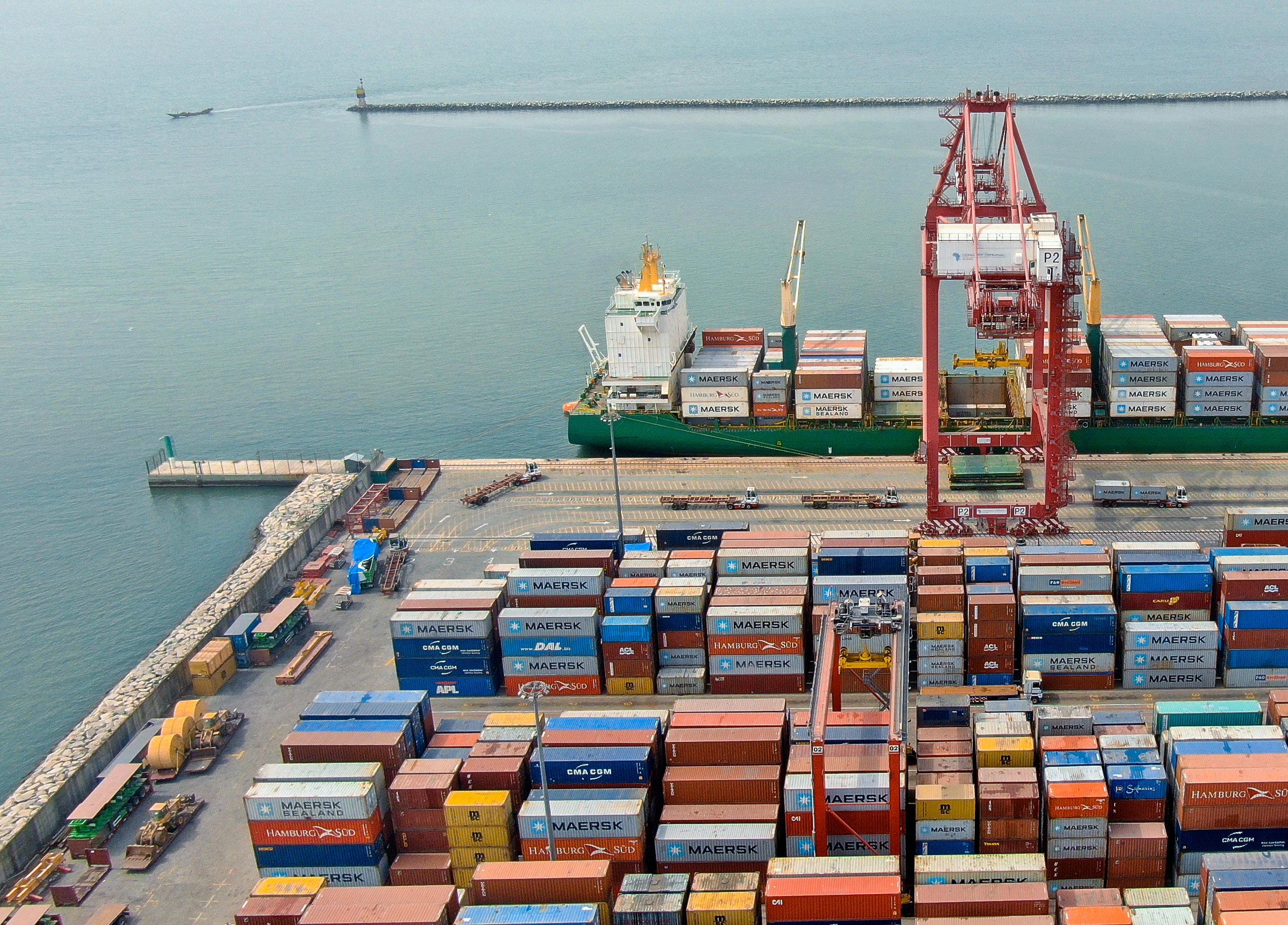
Weekly service from World to Conakry and from Conakry to the rest of the world.
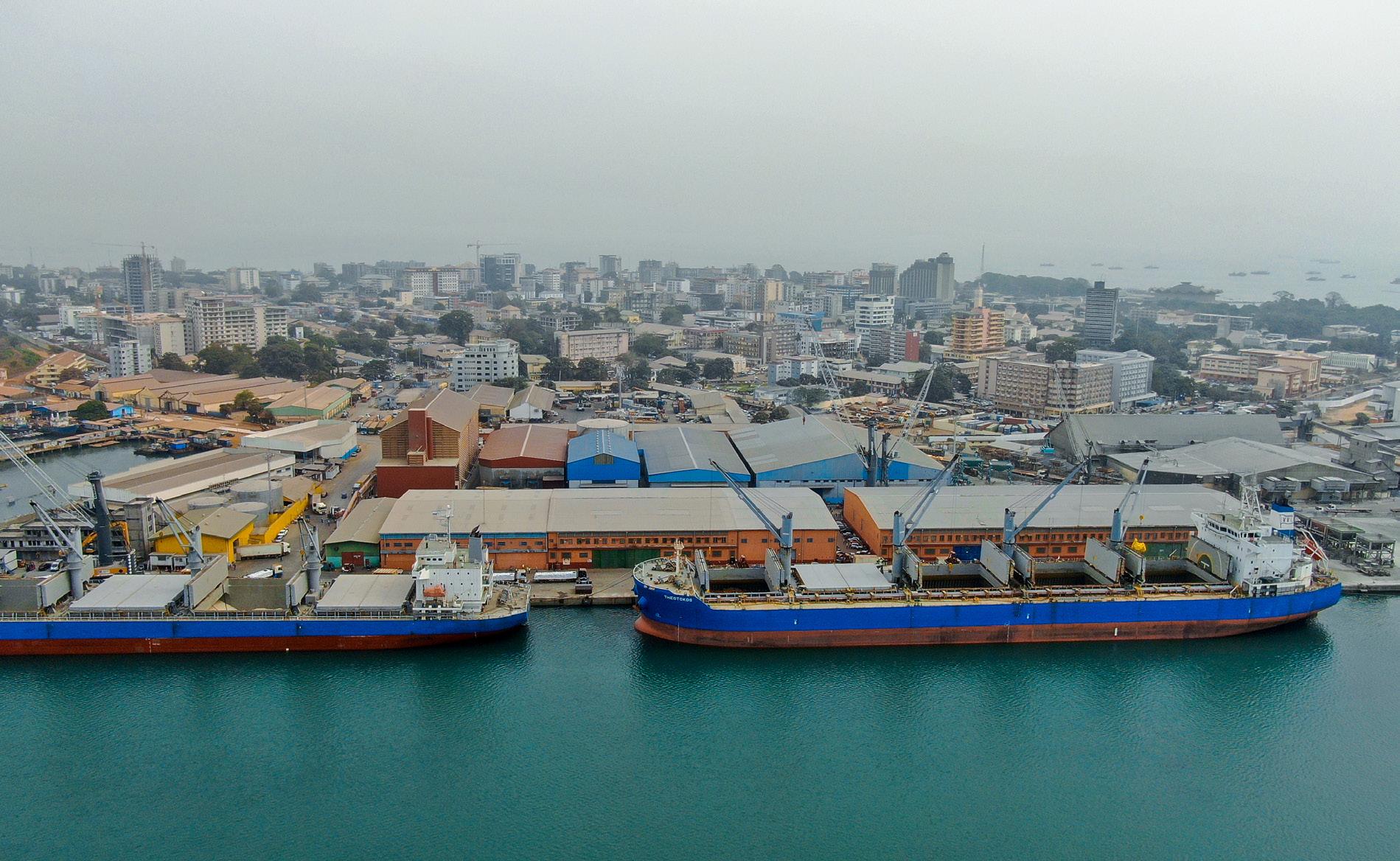
We submit the cargo manifest to Customs 5 days before vessel arrival.

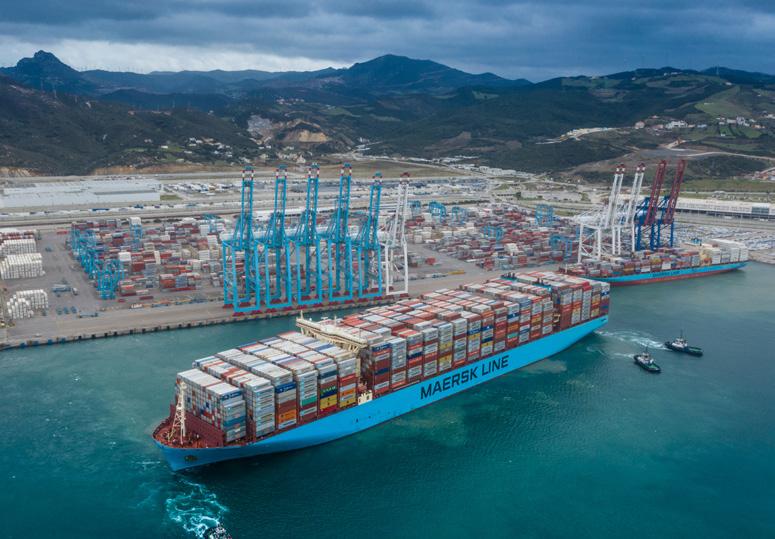
We have abundant stock of sound reefer and dry equipment for your exports.
Get your Bookings, Invoices, Bills of Lading and Delivery Orders online.

Make Mobile payment and electronic bank transfer without leaving your office.
Do not waste time in traffic; send your requests by email or use our platform.
We can handle your cargo from Origin to final destination (door to door service).
We provide you with a 1,800 m2 warehouse space and inland depot of 3,000 m2.
Maersk is an integrated supplier of end-to-end solutions. We connect and simplify our customers’ supply chain
“Thanks to this funding, the port has been able to acquire 12 rubber-tired gantries (RTGs), two quay gantries on rails, increasing the capacity for goods handling to a rate of 60 containers per hour, the rehabilitation of a 270-metre quay, and the construction of another 340-metre quay built at a depth of –13 metres,” details Diallo.
On top of these, a 24,000 square-metre (sqm) development has increased the port’s storage capacity to 8,000 TEUs, while overall improving the performance of the Port of Conakry when it comes to loading and unloading rates, and the regional port rankings, in which the Port of Conakry is first in West Africa as decided by the World Bank Group in 2022.
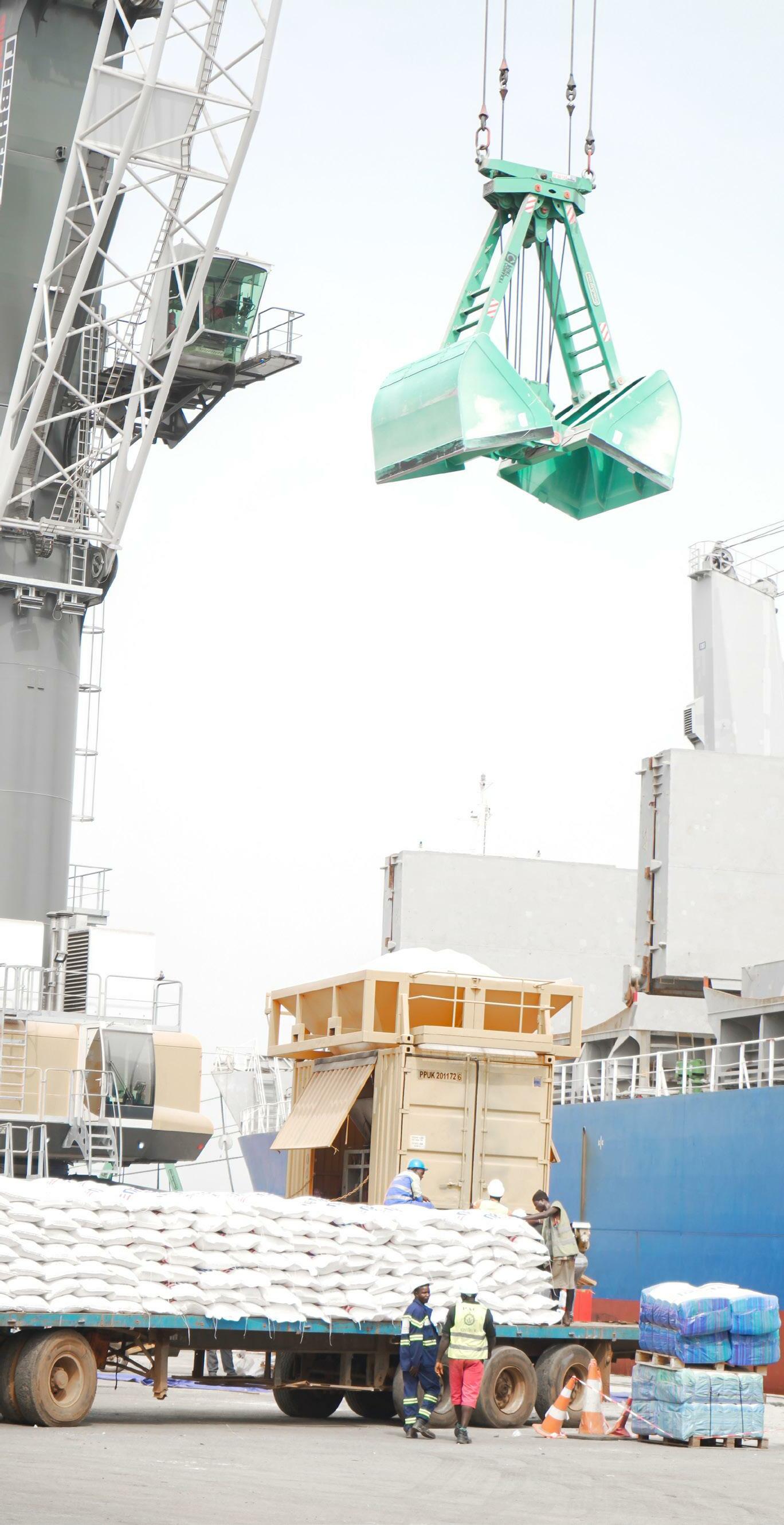
Through another substantial investment in 2018, $500 million from Turkish national Albayrak Group, the Port of Conakry will be carrying out work on public lighting around the port, quay and open land development and construction, the acquisition of handling equipment (including two cranes with the capacity of 120 tonnes), and the construction of a 4.2km road and parking lot for 1,200 trucks and related services.
“These large-scale projects are likely to improve our attractiveness and our service offer to port users in order to make the Port of Conakry a competitive port in the sub-region,” Diallo adds. “In the coming months, a six-hectare extension project of the western zone of the Port of Conakry has also been planned, aiming to prevent congestion at the terminal due to the increase in port traffic.”
Prior to taking up his position as Managing Director of the port, Diallo spent most of his career in the mining and quarrying sector. Having graduated from West London College (UK), Diallo specialised in management supervision across
multiple disciplines, such as mining operations, civil works, community building, road construction, drilling, aviation, and environmental and social impact.

“I gained experience from the multinational construction company Laing O’Rourke, and in 2000 I started my career as a civil engineer on multiple construction projects, including Heathrow Airport Terminal 5, Wembley Stadium, and Stanstead Airport, until 2007. Thereafter, I worked in the mining space in South Africa, a uranium mine in Namibia, and a salt mine in Australia,” Diallo explains.
“I then found myself in the UK
and Australian branches of the internationally renowned Rio Tinto, where I worked my way up to Director of Operations in Guinea, and then Country Director in 2019. I held this position until I was offered the role of Managing Director for the Port of Conakry in 2021.
“My interest in the supply chain industry stems from my patriotism for Guinea, and my passion to personally contribute to the development of a country that shows so much promise for the future,” he continues.
To this day, Diallo’s goal is to serve Guinea and see the country’s promise fulfilled via the expansion and development of the Port of
Conakry, which will in turn increase the opportunities provided to people across the country.
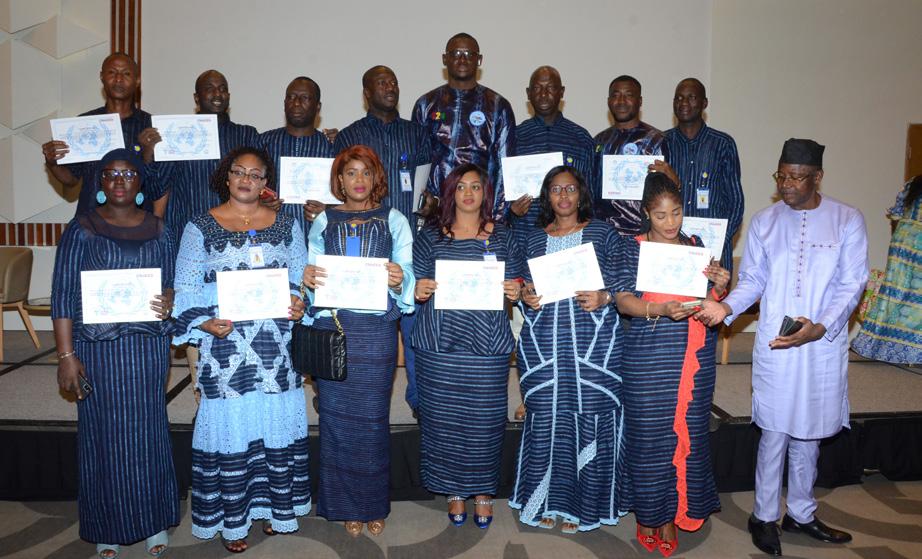

“I aim to impact the lives of disadvantaged people across Guinea, and the Port of Conakry is key to achieving this.”
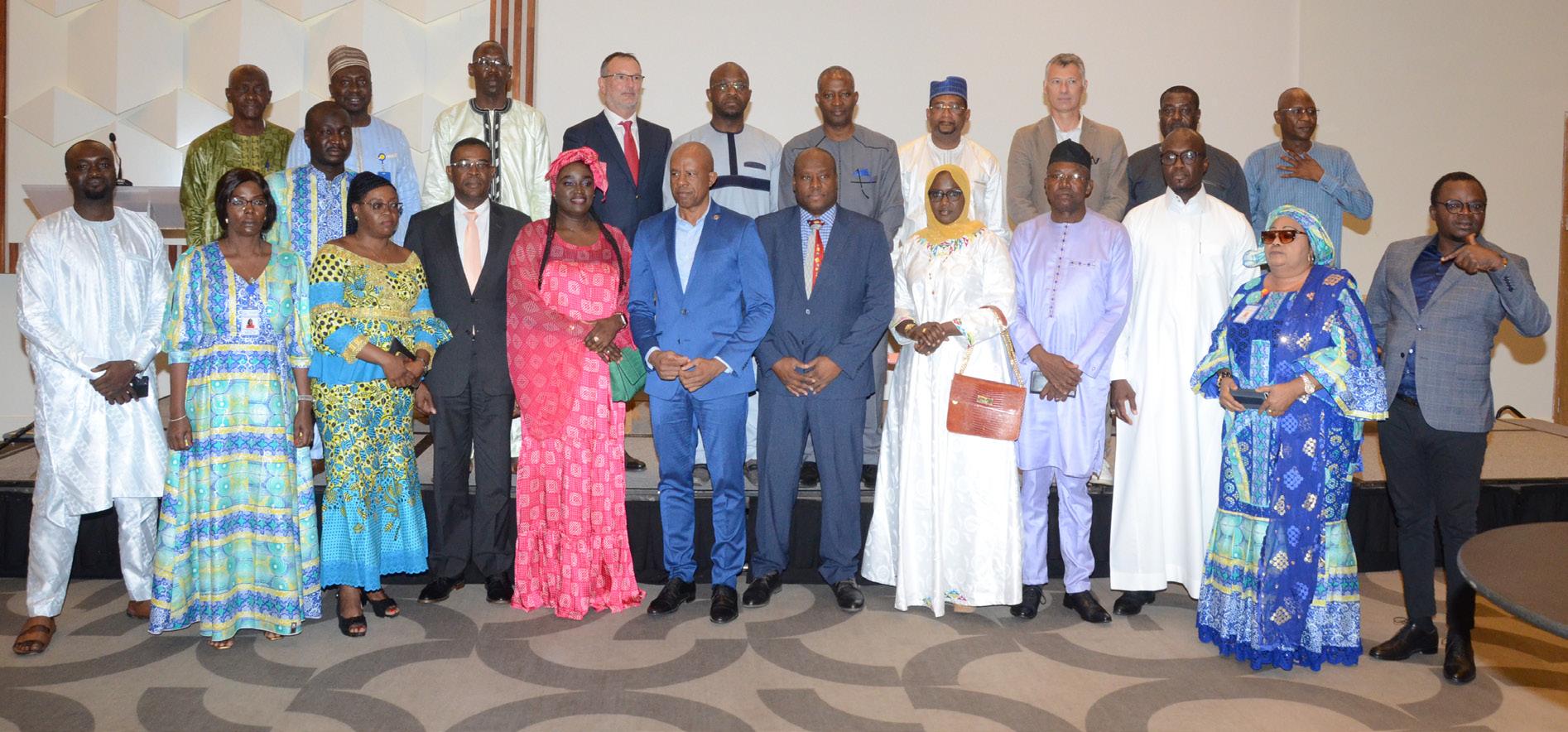

Linhas Aéreas de Moçambique (LAM) is an established African airline offering a variety of luxury passenger experiences, based in the capital city of Maputo, Mozambique.

LAM emerged gracefully into the competitive sector of African airlines back in 1980, assuming all rights and obligations resulting from acts or contracts performed or
celebrated by its predecessor, the ATED, (Air Transport Exploration Directorate) which had been in business since 1936 across Mozambique.
It is the ongoing mission of LAM to transport passengers, cargo and mail efficiently, safely and comfortably by air in domestic, regional and international services, on both a regular and non-regular basis.
The state currently holds 91 percent of the shares of the new company, with the managers, technicians and workers of LAM holding the remaining nine percent. The company currently employs 695 workers and also has offices and other forms of representation abroad.
The airline serves nine domestic and three international African routes, mainly from its home base at Maputo International Airport which is located near the southern end of the country and is the largest and busiest airport in Mozambique.
COMMITMENT: Customers will always come first and are the reason for the company’s existence.
MANAGEMENT: LAM values and follows the principles of corporate responsibility, transparency, equity and accountability.
QUALITY: The company aims to consistently stimulate innovation and creativity in services, with a focus on quality and results.
ETHICS: LAM endeavours to observe the highest ethical principles and standards, demonstrating moral strength, honesty and integrity.
BEING HUMAN: The company wishes to provide fair treatment to all employees, valuing teamwork, stimulating a learning environment, and developing selfconfidence.
SOCIAL RESPONSIBILITY: There is a need to exercise citizenship, contributing to societal development and to always consider the environment.
Embracing quality over quantity, LAM operates a modest fleet of just four jet aircraft: a Boeing 737-500 with 96 seats and two Embraer 190-100s, with nine seats in business class and 85 in economy class. The company also uses a Bombardier Q400. These aircraft continue to be effectively used to transport passengers and cargo for medium-haul routes, on domestic and regional flights.
LAM considers safety, security, quality and care for the environment as fundamental priorities across all its operations. Through a proactive stance on the experience it offers, the company is also committed to offering quality services that meet the needs of its customers and, whenever possible, exceed their expectations.
In all operations on land and in the air, the goal of LAM is zero defects.
To achieve this, the company handles all details of the business, through adequate planning, control, innovation and continuous
improvement of activities, alongside compliance with the Mozambican Civil Aviation Regulation and other applicable authorities.
LAM also invest in human capital, which is its self-proclaimed greatest asset, providing equipment, modern technology and detailed training to all new staff members.
Additionally, the company implements a quality management system (QMS) and promotes good practices in environmental management, and health and safety measures at work. This is alongside LAM remaining committed to providing the necessary resources to comply with the quality policy. This policy applies to all activities carried out by or on behalf of LAM.
The airline implores the need for its employees to observe the issue of professional ethics to better serve customers seeking services from the airline. LAM believes there is still a need to instil this principle within every level of the company regardless of hierarchy.

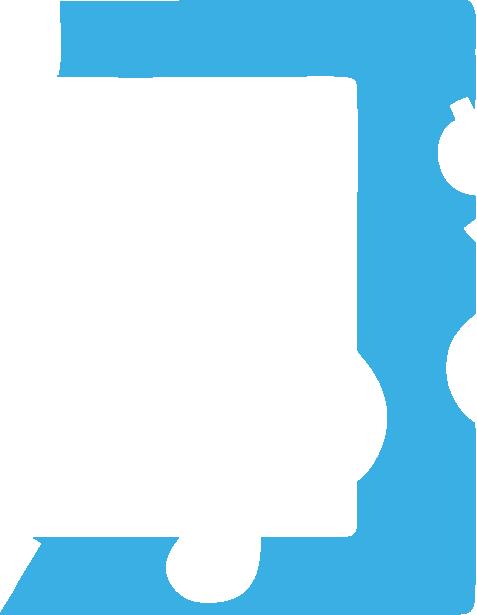



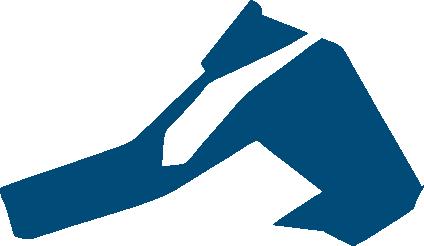






















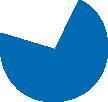













































These principles should not be forced, but rather a quality that each employee must cultivate. In this sense, the fundamental objective is to have harmony between employees to better serve customers. LAM firmly believes that conscientious ethics is one of the most important pillars for the development of teamwork, and in turn, optimal customer service.
The carefully revamped Executive Class flight package that LAM offers has been specially designed to meet what business passengers value most on short-haul flights, care with their time and excellent service. In this class, the customer has access to the Flamingo Lounge, seats in the first
rows, the accumulation of miles, early check-in and preferential boarding, priority in disembarking and priority baggage claim. To make passengers feel more comfortable, LAM also offers a more spacious seat on board for passengers choosing this option.

The Flamingo Lounge rooms are spaces created by LAM with the aim of providing travellers, from the beginning of a trip, with a welcoming atmosphere and maximum levels of comfort. Here passengers can wait calmly for the flight, while taking the opportunity to relax, use the available means of communication, meet with other people or even work. The lounges are open for all flights of LAM and other companies whose LAM has agreements with.
Seabury Solutions are delighted to partner with their customer and Mozambique’s flag carrier, LAM Mozambique on this publication of Africa Outlook.
Since 2015, the airline has been utilising Seabury’s maintenance software, Alkym, to control and manage their maintenance processes.
The Seabury team are very pleased to play a small part in supporting the overall growth of the airline and would like to wish the Mozambique team continued success in the future.
BlueOne Management is an independent and privately owned company, based in Brussels, at the heart of Europe.
Incorporated in 2001, we have since then successfully served an impressive number of airlines around the world with a comprehensive, scalable and cost effective software solution for all the segments of the market, from the smallest players to the most complex organizations.
Our software is delivered as a Service through the OCI (Oracle Cloud Infrastructure), which provides our customers with the highest performance and security standards, with a global reach E info@blueonesoftware.aero www.blueonesoftware.aero
“THE COMPANY CONTINUES TO OFFER UNRIVALLED LEVELS OF COMFORT AND QUALITY SERVICE TO ALL WHO CHOOSE TO TAKE TO THE SKIES ONBOARD A LAM FLIGHT”










body clocks. In this flight class, passengers can choose to have dinner, breakfast or a light snack. LAM offers great-tasting dishes, including healthy options, providing unparalleled dining of a variety of dishes, complimentary champagne and wines, among other beverages, as well as catering for most dietary needs.
Internet Solutions Mozambique (IS) / Dimension Data Mozambique, rated one of the country’s top ISPs and CLOUD infrastructure providers, was formed in 2009 when the Dimension Data Group and Convergence Partners acquired a combined majority equity stake in one of the first wireless broadband ISPs in Maputo.
Internet Solutions provides capacity on the Seacom and EASSy sub-marine fibre and international footprint to ensure world-class service delivery. POP locations across all major cities within Mozambique ensure that you have fast and efficient service and support. Our fully redundant Data Centers and Virtual Machine / Co-location environment hosted within the borders of Mozambique ensure that we comply with data sovereignty regulations.
During flight, passengers can savour the exquisite tastes of regionally inspired meals, prepared with fresh ingredients from the moment they are greeted with refreshing cold or warm cotton towels onboard. Executive Class customers can now enjoy excellent armchair service, customised to suit individual
Providing excellence and exclusivity in each variety of service, LAM also now offers a range of national and international newspapers and magazines to pass the time during longer journeys. Putting the comfort of its passengers first is extremely important to LAM, and this is showcased by the introduction of reclining seats on all planes within Executive Class. This is alongside new kits that contain a pillow and a blanket, which will ensure any trip is as comfortable and relaxed as possible.
For passengers not choosing the Executive Class option, there are still benefits to travelling with LAM. Travellers can count on one of the best Economy Class experiences aboard one of the company’s aircraft. There

is a sense of openness in the light and airy cabin to provide passengers with more space and privacy. Whether alone or with family, the incomparable level of LAM’s hospitality and comfort makes travelling with the company a true pleasure.
Business Class passengers also have a higher baggage allowance when flying with LAM, with one piece weighing 32kg on the domestic market and two pieces weighing 32kg on regional and intercontinental flights. Passengers in this section can enjoy supreme comfort on selected aircraft with Business Class seats. This includes the option to use the touchsensitive controls to adjust the seat to the desired preference and comfort.
It is this level of attention to detail that has established LAM as an airline of choice for Mozambique, as the company continues to offer unrivalled standards of service to all who choose to take to the skies onboard a LAM flight.
Somos Especializados
Somos Especializados


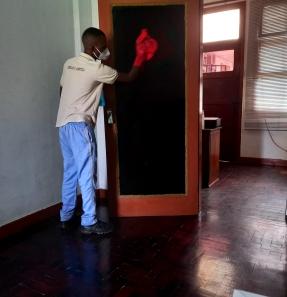







Especializados
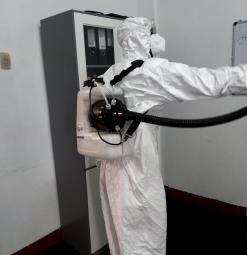
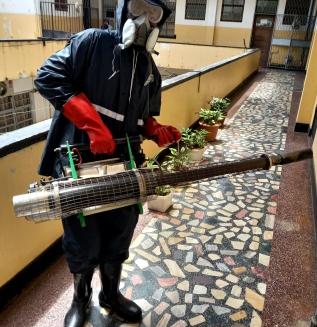
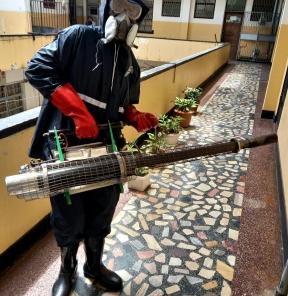
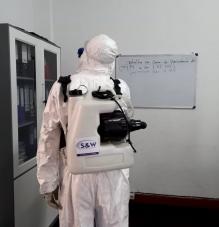













Fossas;
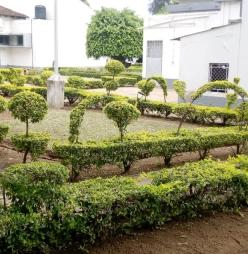



Tissue paper products manufactured by Universal Paper and Plastics are improving hygiene across Southern Africa. David Sher, Managing Director, discusses a commitment to personal hygiene
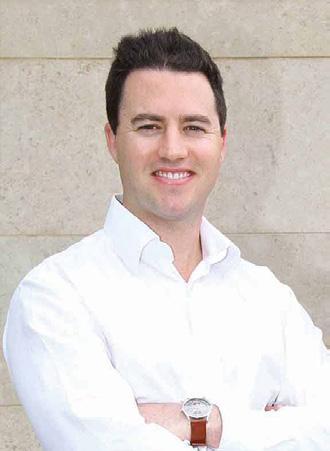 Writer: Jack Salter | Project Manager: Jordan Levey David Sher, Managing Director
Writer: Jack Salter | Project Manager: Jordan Levey David Sher, Managing Director
Tissue paper plays an important role when it comes to hygiene.
From kitchen and toilet roll to napkins and serviettes, tissue paper helps to prevent the spread of dirt and germs. Quite simply, it is an easy and affordable way to achieve cleanliness.
“Our mission is to develop innovative, everyday products that meet the hygienic needs of our customers,” opens David Sher, Managing Director of Universal Paper and Plastics (UPP) since March 2020.
“UPP is improving the state of hygiene across Southern Africa, by providing high-quality tissue paper products that utilise the latest technologies.”
Motivated, passionate and driven
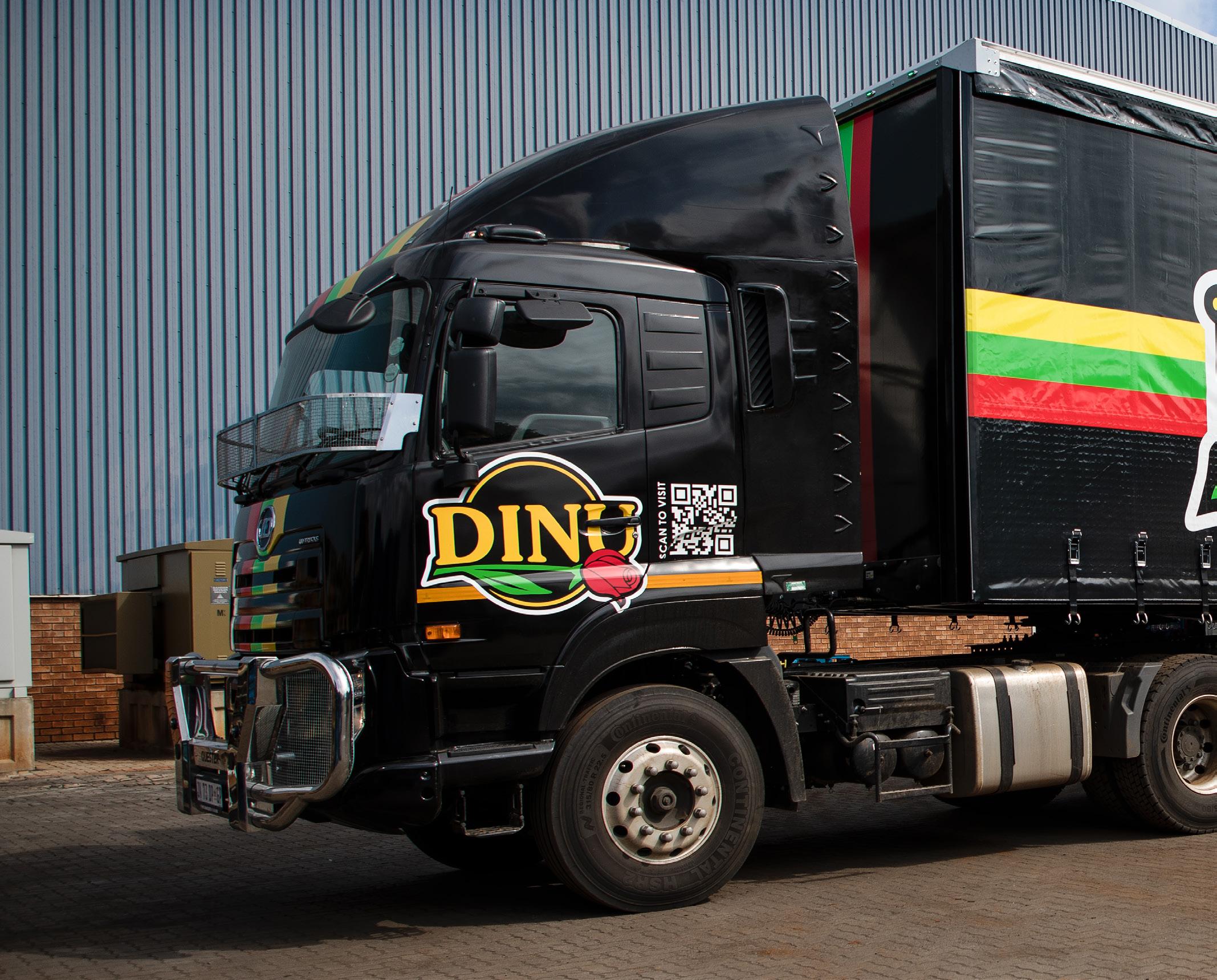
to make a positive impact, Sher joined UPP in 2009 after graduating from the University of Pretoria, progressing through the family business in a variety of marketing, planning, production and management roles.
He and his brother, Jonathan, were exposed to tissue paper manufacturing from an early age, having regularly visited the UPP factory growing up in South Africa.
“It was always a special occasion as we loved to help pack boxes with the staff. I think those memories helped define our passion and interest in the business, as we felt like we belonged,” Sher, a fourth-generation member of the family, reflects fondly.
“The Sher legacy at UPP is now 72 years strong, and as a family business,
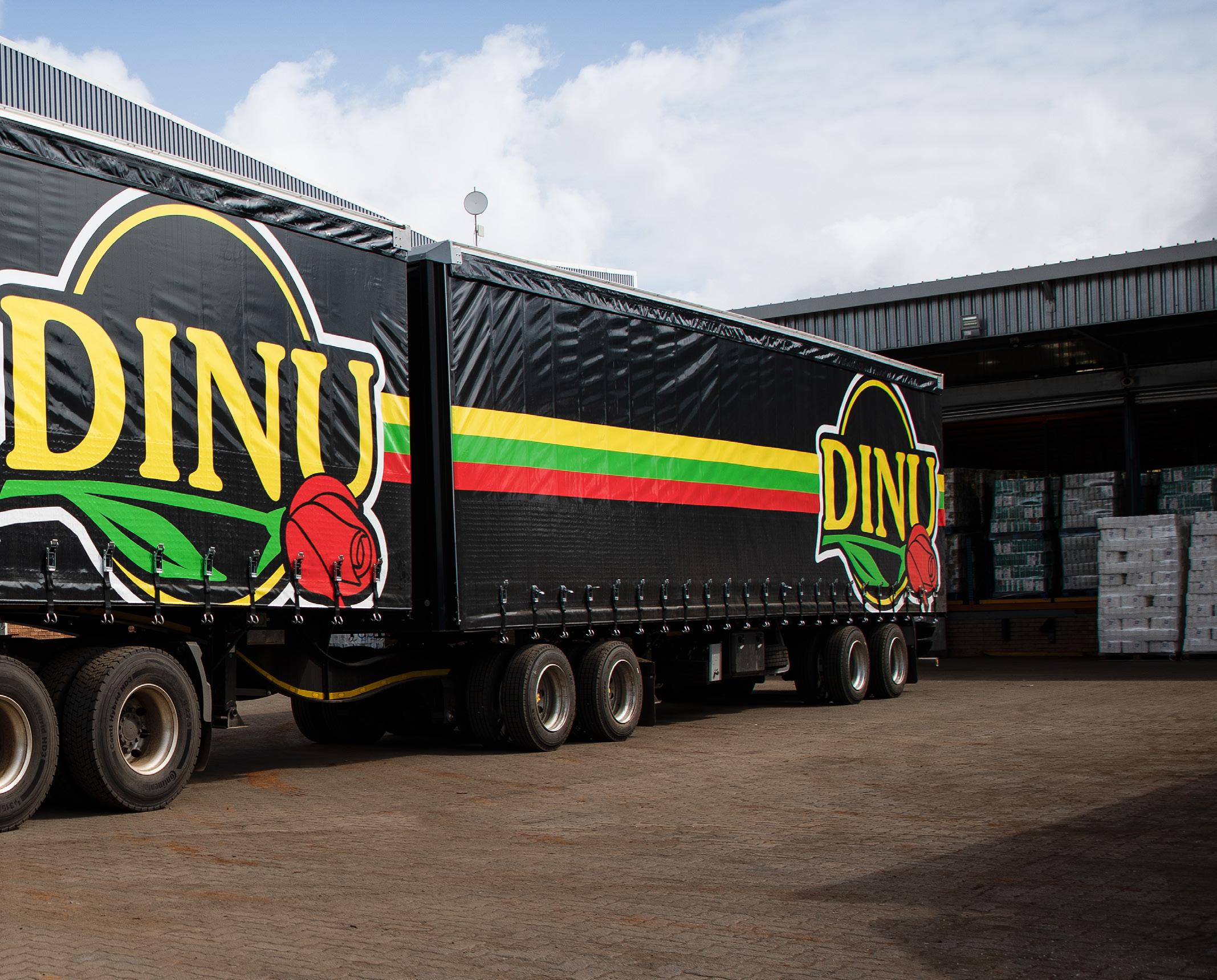
we understand the needs of South African and corporate families. Each generation has experienced different challenges and overcame them in a very resilient manner with a persevering attitude.”
Today, South Africa has some major challenges, especially when it comes to government regulations and unnecessary red tape. With more conducive policies, it could help to stimulate business growth and enable South African companies such as UPP to compete on a global scale.
Currency volatility is another major challenge, as UPP receives its pulp pricing based on the dollar rate. The ongoing energy crisis is also impacting the heat generation needed to dry wet pulp into tissue
paper, whilst most companies in South Africa are having to contend with crime and skills shortages.
Despite the challenges, Sher is equally optimistic about the opportunities in the continent.
“There is still so much opportunity in Africa. The importance of understanding how people purchase and the most efficient channels to supply goods to the end consumer is a key requirement for success,” he states.
“We believe that by diversifying our portfolio and supplying tissue paper products to a variety of customers, we can achieve the best possible business continuity.
“The COVID-19 pandemic was a clear reminder of the importance
of diversified channels. As Africans, we must be flexible and expect the unexpected so that we can move to solve whatever challenge is in front of us in that moment. Southern Africa is a dynamic and rapidly changing market that requires assertive and fast-paced decision making,” Sher adds.
From humble beginnings converting basic serviette products, UPP developed its production machines to be able to operate more efficiently, before focusing on the expansion of its product portfolio.
For example, new product ranges recently launched by UPP include Dinu 4-ply bathroom tissue, Dinu 3-ply household towel, and Dinu Professional 200 sheet mini rolls. Established in 1980, Dinu is a prominent retail household tissue brand and has been the leading premium napkin brand in South Africa for a number of years.
Elsewhere in the UPP brand portfolio, Dinu Professional caters for the specific business needs of the wholesale, hotel, and hospitality industries, offering a large range of fully customisable tissue paper products.
Diamond designer napkins, meanwhile, are exclusively available from specialty stores and retailers, bringing a touch of class to every occasion and making a premium statement of style. Diamond provides high-quality napkins with creative prints to consumers who appreciate the finer things in life.
“Our main brand is Dinu for the formal retail market, and Dinu Professional for away-from-home and informal markets. Our most popular products are toilet paper, kitchen towel, serviettes and napkins,” Sher says.
“UPP’s vision is to become the preferred supplier of tissue paper products in Southern Africa, by listening and responding to our customers’ needs.”

Henkel Adhesive Technologies is leading today’s markets and shaping tomorrow’s through its adhesives, sealants and functional coatings. In the Packaging and Consumer Goods’ division, we are at the forefront of promoting a circular economy with our high-impact solutions for packaged food and beverages, diapers and hygiene products, plasters and bandages, clothes and shoes, furniture and much more – all created with consumers in mind.
Specific to the personal hygiene and nonwoven industry, Henkel offers comprehensive adhesive solutions which allow consumers to live life to the fullest. Our range of nonwoven adhesive and nonwoven bonding solutions meet the requirements of your manufacturing processes and increase production efficiency. Henkel’s material solutions for the disposable hygiene and nonwoven industry combine high adhesion with skin-friendliness, thus equipping your hygiene products with the right qualities for each application. We offer innovative hygiene adhesive solutions for baby diapers, adult incontinence, feminine care, medical protective wear, and tissue and towel applications, through our TECHNOMELT® range of polyolefin hot melt adhesives and our AQUENCE® product range of water-based adhesives. Additionally, our team of technical experts assists brand owners with improving production performance with troubleshooting and best practices to avoid common challenges of bleedthrough, overspray, pattern voids, and char.
For decades, Henkel has been helping our diverse set of customers construct high-quality hygiene products
Contact the South African team today, and get a personalised consultation about Henkel’s adhesive solutions, for the Packaging and Consumer Goods industry:
+2711 617 2400.
Henkel - Leading today and shaping tomorrow’s markets with transformative solutions
SHEQWhether seeking discreteness, leak prevention for a greater sense of security, or just softness to the touch, these attributes are essential for personal hygiene products to address consumer needs. Persoanl hygiene manufacturers and suppliers are constantly searching for new ways to achieve one single goal - consumer satisfaction - Henkel is here to help.
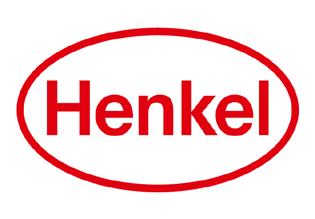

out more on our website:

“Our team of volunteers, called the Universal Angels, partake in a variety of socially responsible initiatives during the year.
“We are situated in the most densely populated part of the city and have a responsibility to help those less fortunate than ourselves, so we supply products to several orphanages, schools, old age homes, and a home for the blind. Nelson Mandela Day, the 18th of July, is used as a specific day for large group projects.
“In the past, we have painted walls, fed warm porridge to elderly people waiting for their government grants, and helped to clean and tidy up the homes of the elderly and disabled.
“We have also hosted schools at our company birthday events to allow children to gain some exposure to our business, and let them join in on the fun activities we always have at our birthday bashes.”
With approximately 400 employees spanning a number of business units, including Universal Paper Manufacturers (UPM) and Universal Inks, UPP’s inspired and skilled people utilise the latest technologies, processes, and systems to create quality products.

Sher highlights a new lamination technology, which UPP is proud to have developed in order to improve its environmental impact as well as reduce costs.
“We recently earned our ISO 9001:2015 certification, and this was a very successful project that is testament to the hard work and efforts of all our staff,” he admires.
“We have also found new ways to pack our products in order to improve the truck utilisation and stability of product loads. Our multiple crossfunctional teams of people focus on various areas of the business, solve problems, and improve processes; we believe in a diversified approach to projects whereby we collaborate different skills and expertise, so that people learn from each other and ultimately produce their best work.”
Likewise, data analytics and automation, including optimised robotics, is helping to improve UPP’s production efficiency and capacity.
The company has installed an automated pallet wrapper at the end of its converting process, helping to wrap palleted products more tightly and efficiently.
“The impact is that we can get more products onto a truck, as well as store more pallets in our warehouses. We have introduced pallet inverters in our supply chain, which moves stock from different pallets more efficiently and saves on handling time,” notes Sher.
In 2021, UPP purchased and refurbished its new, centralised distribution centre in Ga-Rankuwa.
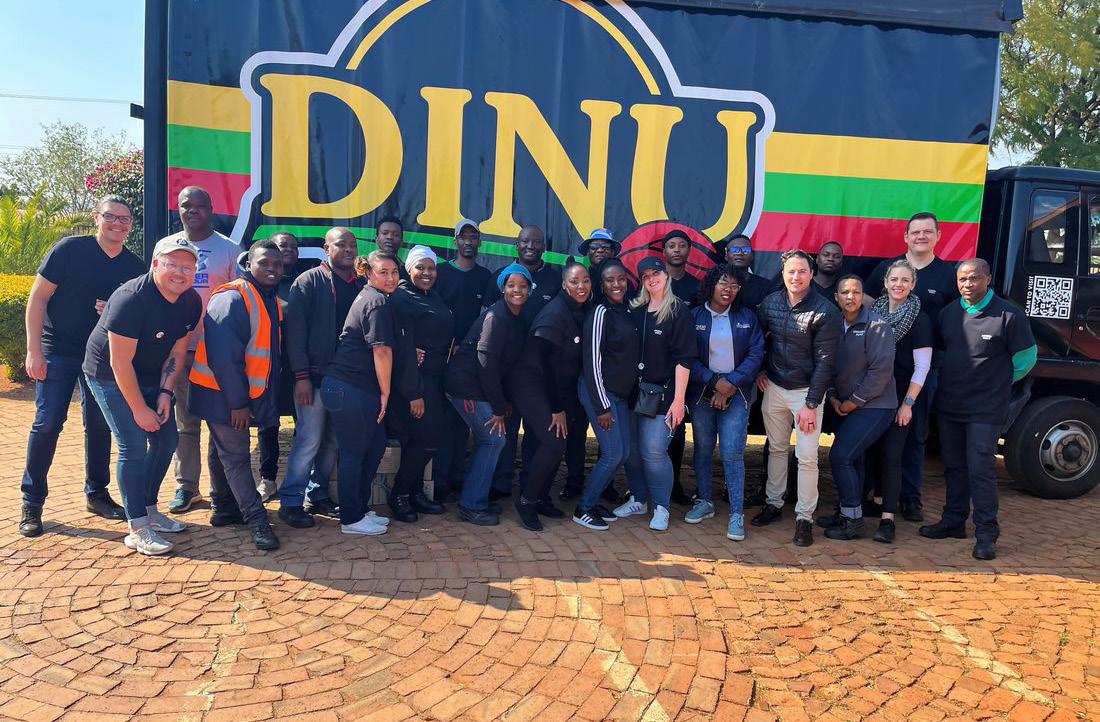
A converted leather manufacturing facility, the distribution centre has improved UPP’s ability to load more trucks, store more products, and operate more efficiently. With greater visibility of its stock, the company can also plan more effectively to improve its overall fill rates to customers.
“We faced great challenges throughout the project, but the team did a phenomenal job in preparing the site on time,” Sher tells us.
This year, a new solar project gen erating 10 percent of the company’s required energy has significantly reduced UPP’s fossil fuel dependency.
UPP Angels - Mandela Day 2022Paper Products
the Greenmile Group
Level
Ltd, a division
a wholly owned
BEE company with offices in
and Richards Bay. We supply recycled

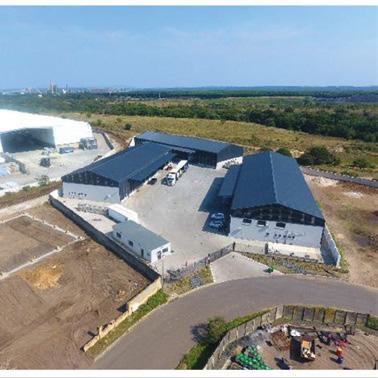

virgin core liner board into the South African Tissue industry and across the
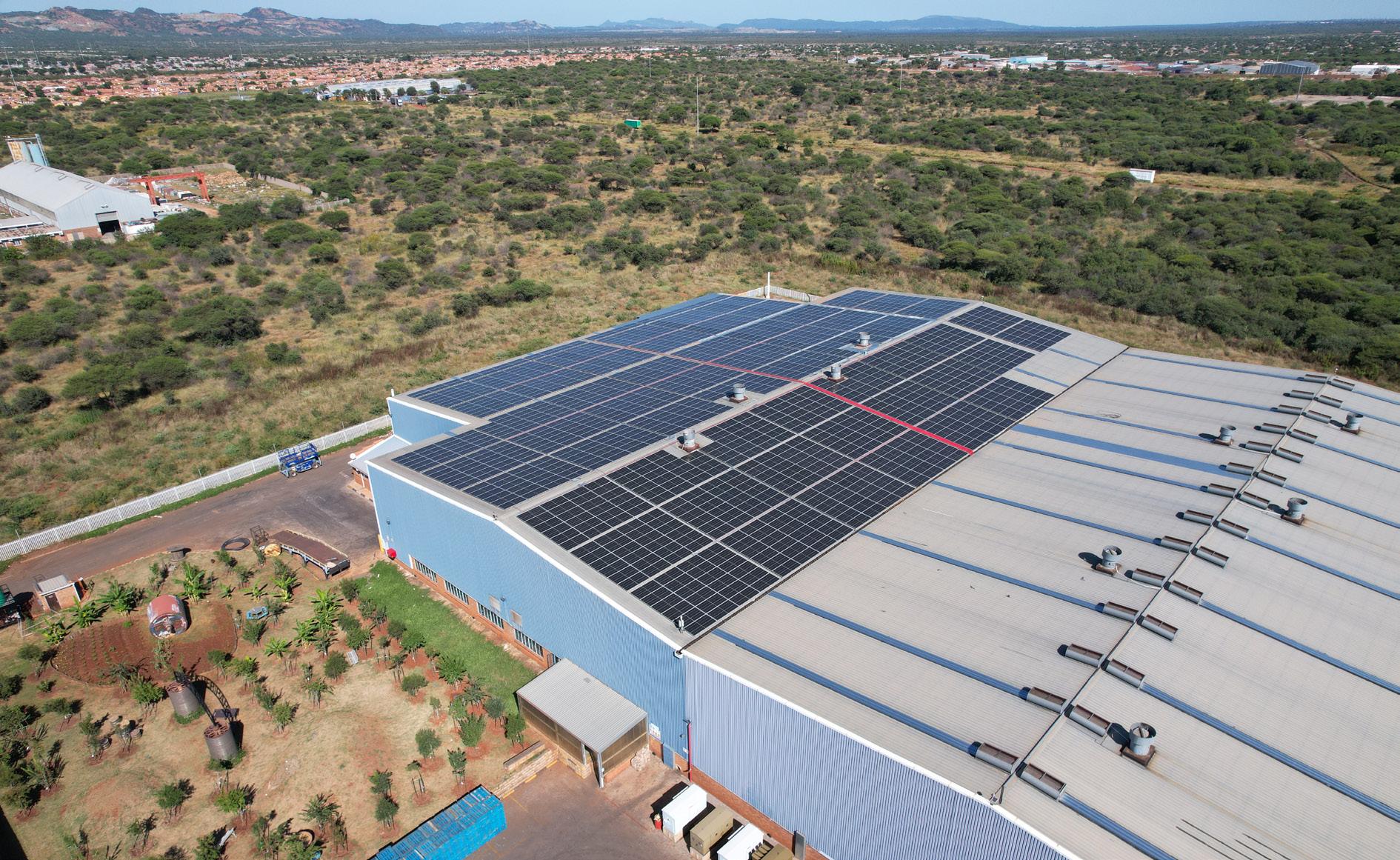
continent.
products are the best in the industry which provides our customers





huge yield advantage and good strength
Our core paper
for higher speed on
massive
The future of renewable energy is an exciting one, as UPP looks to become greener in the way it harnesses its energy production and consumption.
“We are looking to invest more in solar power. We still have roof space that will help us to be more energy efficient and environmentally friendly,” reveals Sher.
“Fortunately, there is a lot of sun in our area, and we will certainly look to optimise this by harnessing more solar power. South Africa is facing an energy crisis, so this project is very important for us and the country as we look to put less pressure on the grid.
“This would not be possible without a good solar system provider, and our bank. We are busy with a few optimisation projects designed to improve the operational efficiency within our supply chain,” he continues.
On UPP’s move to a centralised supply chain, Sher recognises the positive impact it has had on the business.
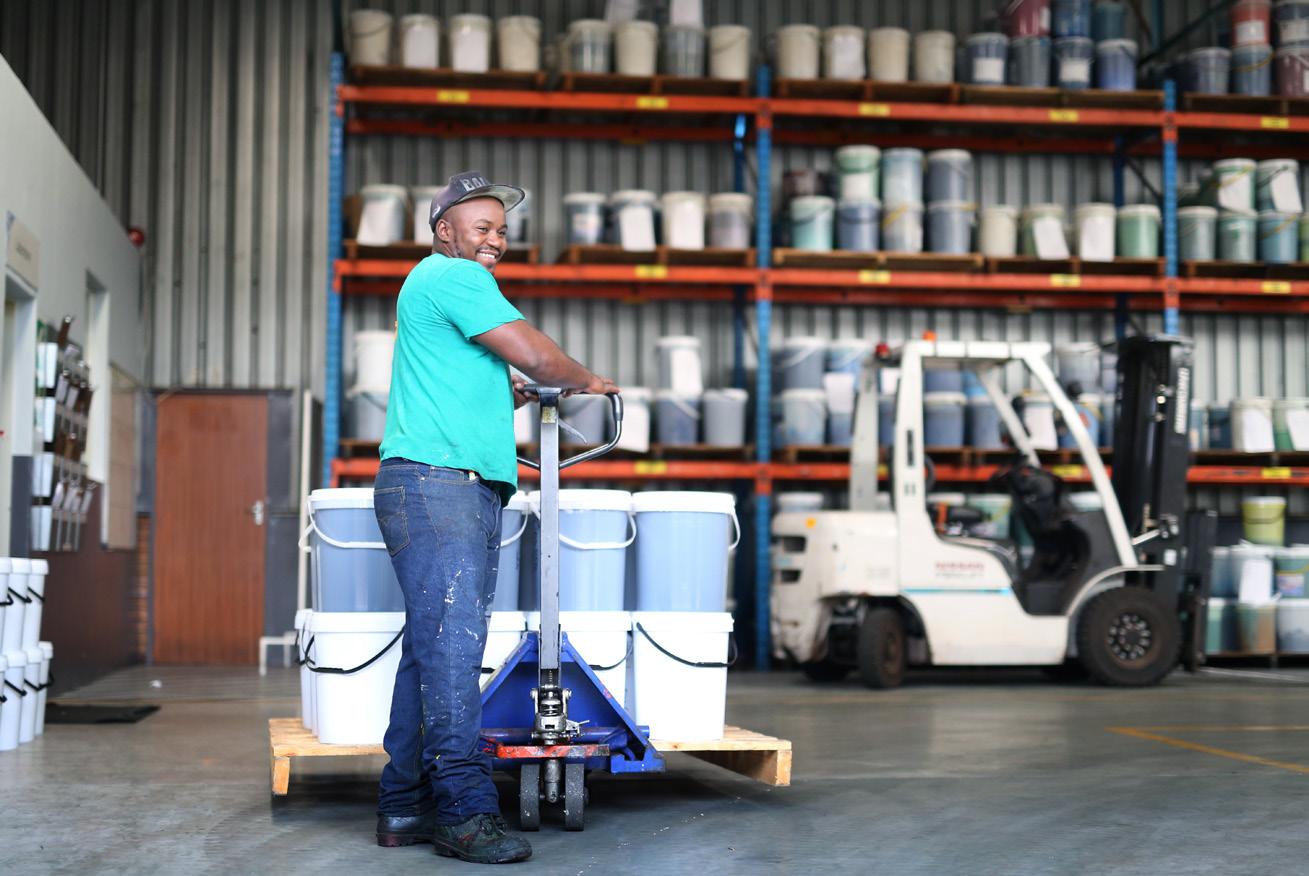
Alleviating the unnecessary time and money spent on the
movement of additional stock, UPP has streamlined its operations so that it can operate more independently from the production departments, improving the company’s ability to deliver on-time and mitigate the rising input costs faced in the last 12 months.

“The number of times we handle stock, and the distance that stock has
to travel before it’s ready for the final customer, is an important metric that we measure ourselves against,” Sher explains.
“Our business is only successful because of our healthy relationships with our staff, suppliers and partners. Without these relationships, we would have no business.”
Ink factoryINTEGRITY – Requiring employees to be professional and act with high moral principles, UPP considers how its actions will affect others.
COMMITMENT – Encouraging employees to make a positive and value-adding difference.
EMPOWERMENT – Giving employees the confidence to surpass any challenge.
EXCELLENCE – Striving to be excellent in every endeavour and to exceed the expectations of customers, stakeholders, and colleagues.
Company Awards: Sam Phillip Sher AwardUPP’s most prestigious award so far
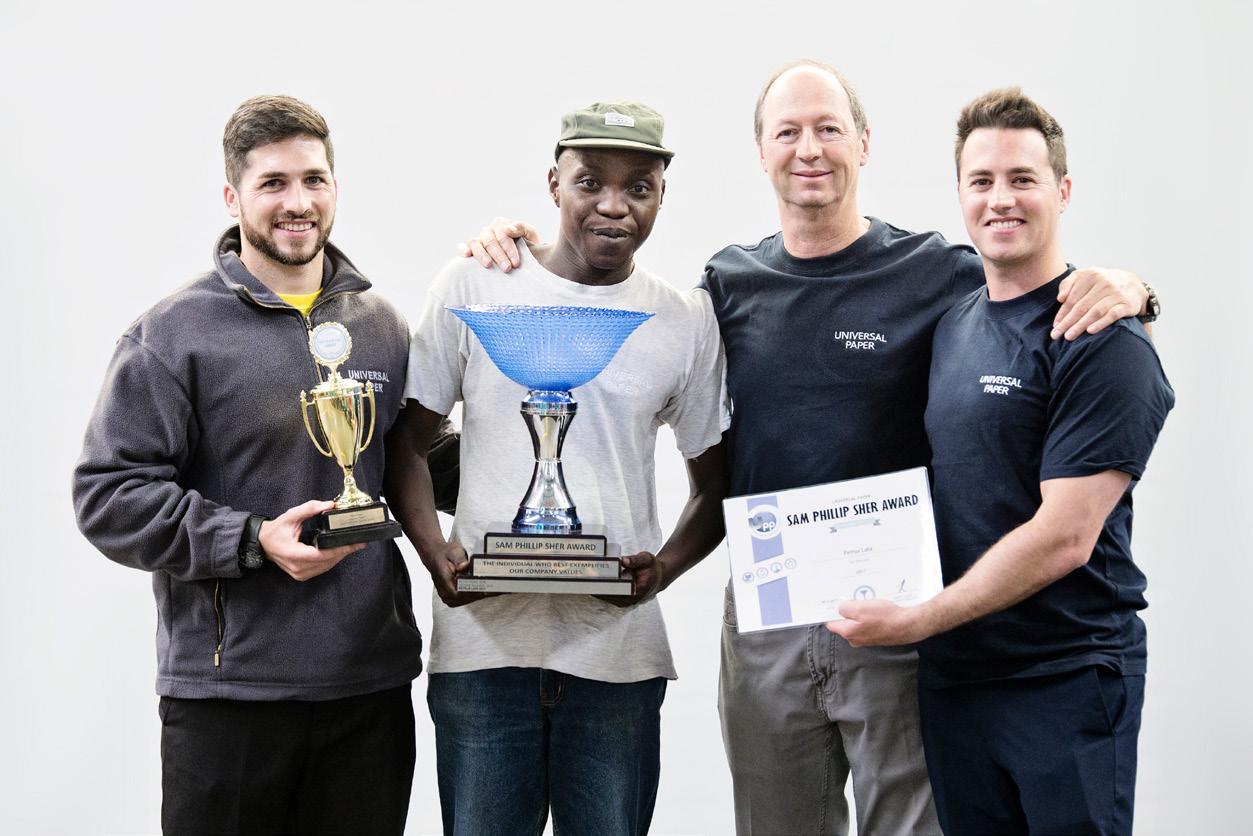
Responsible for UPP’s supply chain, sales, finance, HR and SHEQ (safety, health, environment and quality) departments, Sher has been blessed to lead what he describes as “an amazing team of people.”
UPP strives to create an environment in which it recruits the best type of employees, who understand the importance of teamwork and realise that greater success can be achieved collectively.
Utilising its four company values – integrity, commitment, empowerment, and excellence – UPP promotes a positive and enthusiastic work ethic.
“These values have been pivotal in how we objectively reward and promote our employees,” emphasises Sher.
“We emphasise what has been done in the past, and what defines our company in the future. Our staff are empowered to appreciate and be proud of our heritage, so they find a common purpose that drives the business forwards in a proactive and effective manner.”
A structured Personal Development Planning (PDP) process has been introduced in the past year, encouraging employees to tune in with who they are, where they are currently in their career, and ultimately what they want to work towards in the future.
Sher acknowledges the phenomenal work of UPP’s HR department in developing and rolling out the system, with all available channels used to encourage PDP participation.
“It all comes down to whether staff want that promotion badly enough. If they do, they will work even harder on their PDP to convince others to help them achieve their career objectives,” he details.
“We believe in the power of unlocking one’s true potential, by helping others to see what they are capable of and supporting them to achieve a collective goal. The tissue paper industry is a unique global family and I’ve met some influential people in my time that have had a profound impact on who I am today.”
The Sher family has always had the goal of growth in mind, and aims to keep the business within the family for future generations.
For the remainder of 2022 and beyond, UPP is looking to focus on costs that are within its control, and find further innovations that will enable the company to reduce fixed overhead expenses.
“Rapidly rising costs in all aspects of business are adding significant pressure. We aim to develop our unique high-performance culture, and diversify our revenue streams where possible,” Sher outlines.
“As we develop our in-house expertise, we will look to commercialise certain functions that may help us grow economic activity where possible in Africa.”
UNIVERSAL PAPER AND PLASTICS
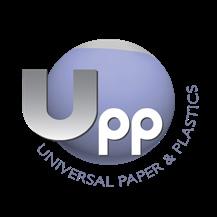
Tel: 012 703 5530
info@upap.co.za
www.upap.co.za

Founded back in 1923, LC Packaging now has a presence across Europe, Asia, and Africa. We speak to Regional Director of Southern Africa, Richard Green, about the company’s longstanding central values and its growing environmental efforts
 Writer: Marcus Kääpä | Project Manager: Jordan Levey
Writer: Marcus Kääpä | Project Manager: Jordan Levey
The importance of incorporating greener business practices has never been so vital.
We are faced with global challenges; many businesses are evolving with sights set on the 2030 mark, while corporations and governments are looking towards the finality of the 2050 deadline. A long-standing player in the packaging industry, LC Packaging is driving company-wide change, revolving around people, environmental betterment and production efficiency to limit its impact on the planet.
However, the current decade has already proved to be one of volatility following the wake of the COVID-19 pandemic as well as global conflict.
LC Packaging South Africa and the company’s production facility LC Shankar manufacture products for local consumption as well as for export into Africa. The company employs around 220 people in SA, while LC Packaging West Africa employs another 15 in Ivory Coast.
• LC Packaging has 21 offices, five production facilities, and multiple warehouses in 15 countries around the globe.
• The company currently employs more than 1,700 employees.
• LC Packaging has over 30,000 customers around the world.
• Family-business is clear to see in the company’s core values: commitment, reliability, and loyalty.
• LC Packaging was awarded an EcoVadis Platinum Medal for the second consecutive year, belonging to the top one percent of all 85,000 companies assessed with such a high corporate social responsibility (CSR) score.
It is events such as these that affect the ways that businesses plan for the future.
“The industry is unpredictable at the moment. We have both micro and macro issues to deal with and these issues certainly keep us on our feet,” begins Richard Green, Regional Director of Southern Africa at LC Packaging. “Having said that, we are fortunate to be faced with plenty of opportunities for growth and we are constantly finding new markets throughout Africa.”
LC Packaging is a family-owned company and international manufacturer and producer of flexible transport packaging solutions for (dry) bulk goods, with headquarters based in the Netherlands. The company has been active in the packaging industry since 1923 and has its own production facilities for flexible intermediate bulk containers (FIBCs) and corrugated boards in Europe, Asia and Africa. Within the latter continent, LC Packaging has been active in South Africa (SA) since 2010.
The company’s location in Africa introduces a host of other continentspecific hurdles to overcome, on top of the global challenges outlined above.
“Country-level challenges have exacerbated already existent issues caused by international happenings like COVID-19 and the war in Ukraine,” Green explains. “We have had two sets of extremely bad floods in SA, and this has had a tremendous impact on the supply chain, specifically with regard to our ports.
“Pre-COVID-19, there were already challenges for the ports in SA, especially as some of the world’s largest reserves of cobalt hydroxide -used in batteries for electric vehicles (EVs) - come from the Democratic Republic of the Congo (DRC), which in turn makes use of South African ports. This kind of demand and activity, combined with the various challenges in the country and beyond,
Access World in Africa is a leading provider of specialised warehousing and logistics solutions to both producers, consumers & traders. We offer reliable, value-adding and efficient services to our clients across a broad spectrum of industries within sub-Saharan Africa.
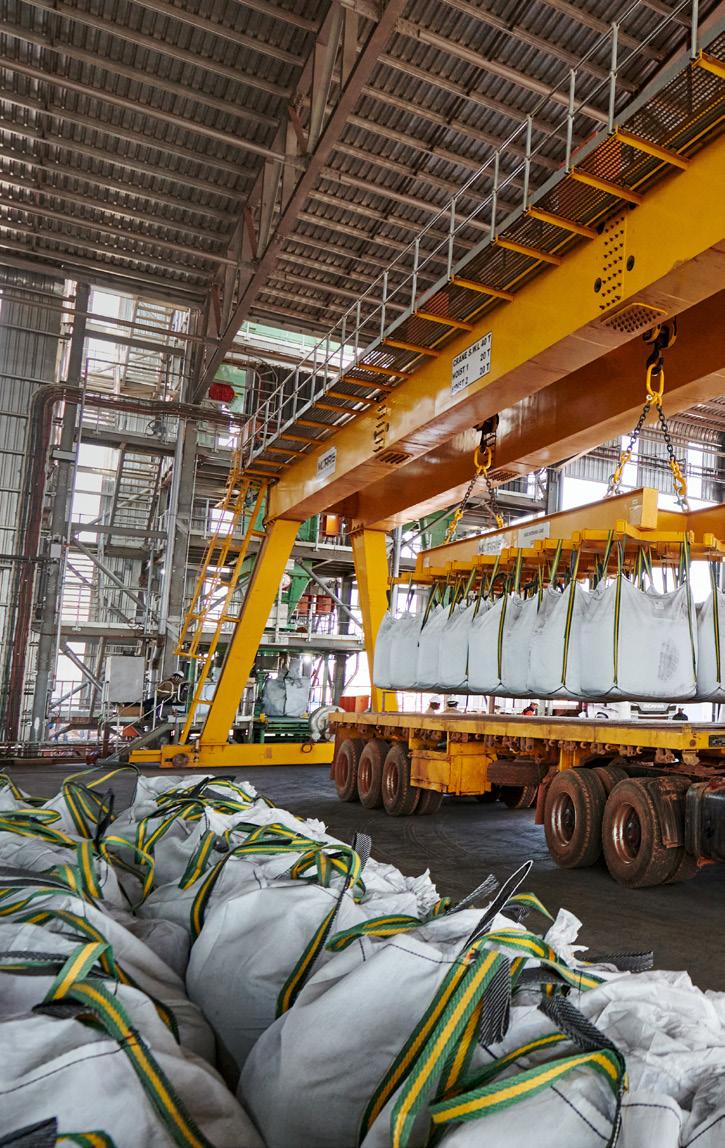
Combining the vast capabilities and networks of the Access World Group as well as its partner agents, our strengths lie in the breadth of geographical coverage across the region. We manage a vast portfolio of customers and commodities throughout Africa via our suite of worldclass warehousing operations in South Africa, Mozambique, Namibia, Zambia, the Democratic Republic of the Congo and Tanzania. Some of the commodities handled include, Soft Commodities, General Cargo, Non-Ferrous Metals, Ferro Alloys, Chemicals and Reagents, Paper & Pulp as well as Project Cargo.
We continuously innovate and improve our processes, deepen our knowledge of handling clients’ products and expand our reach in Africa to help our clients create a competitive advantage by engaging Access World in Africa as their service provider of choice.
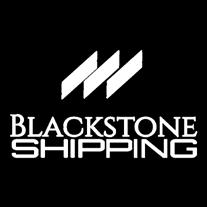

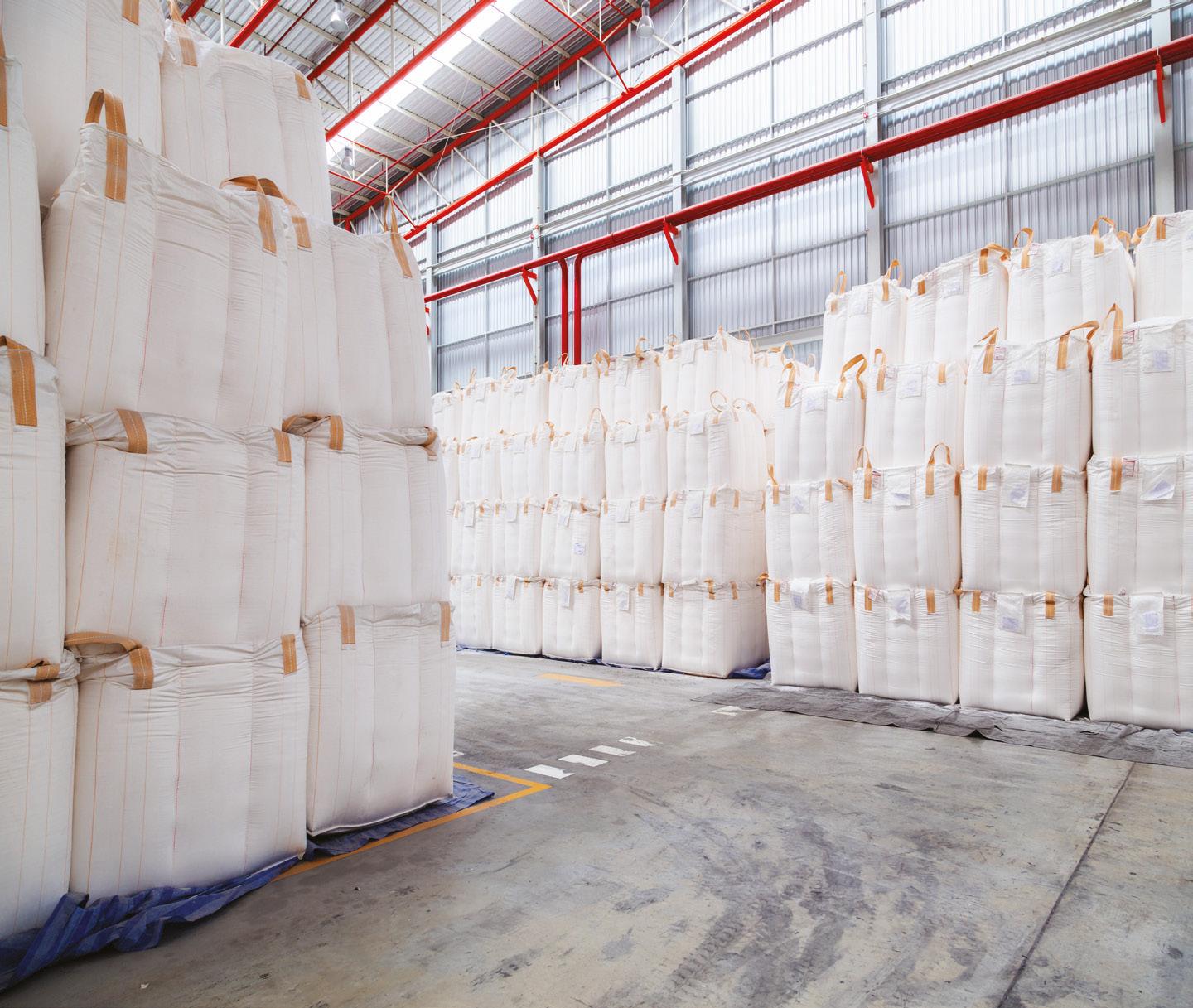

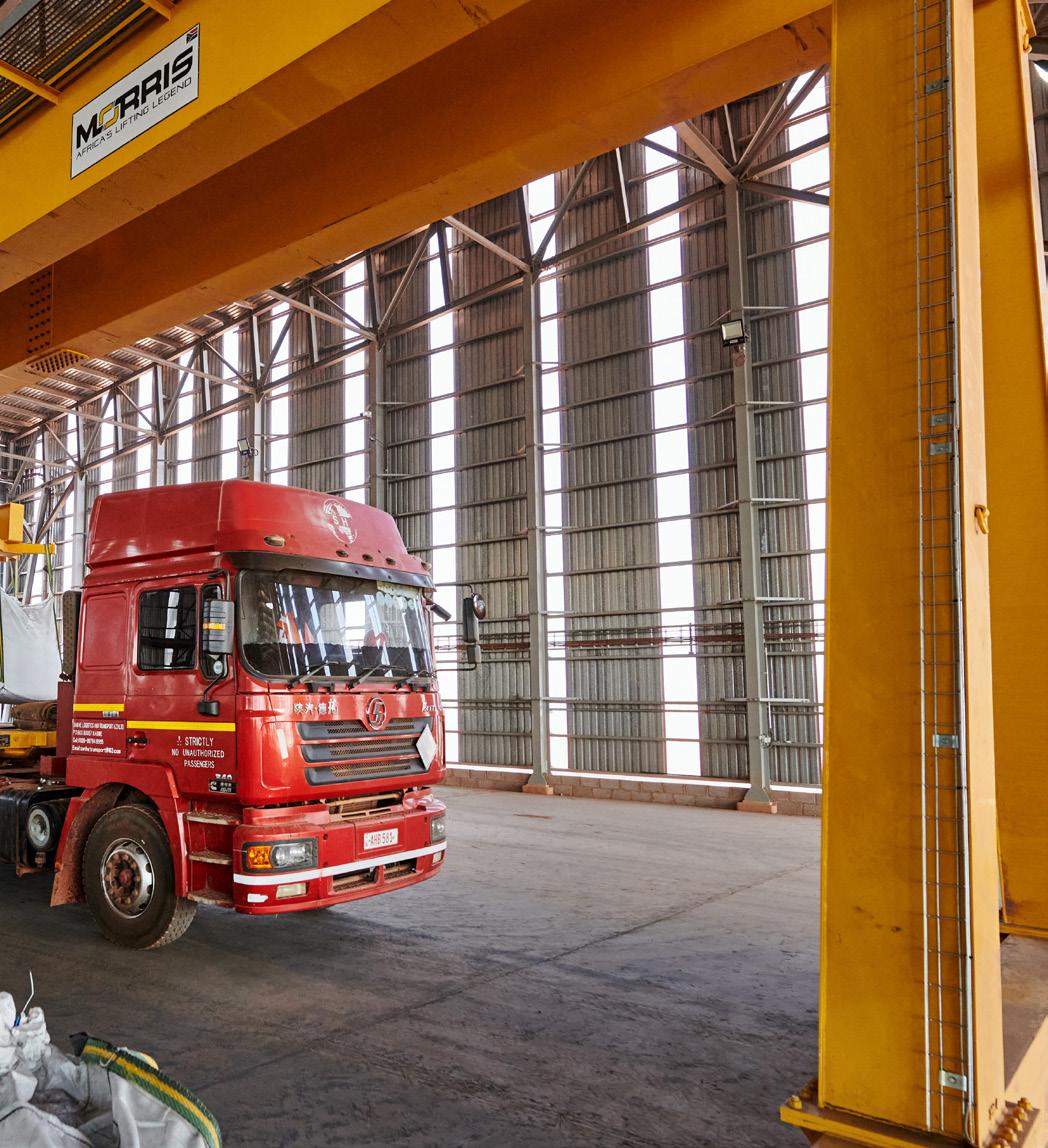
has certainly impacted the supply chain and consequently businesses throughout SA. That is why we monitor the different ports around Africa closely, to make informed decisions about our port of choice to avoid congestion and decrease lead-times.”
LC Packaging has decided to bring sustainability to the core of the business and move from compliance to purpose, to truly make an impact and leave the world a better place for later generations to enjoy.
“Our ambition is to contribute to
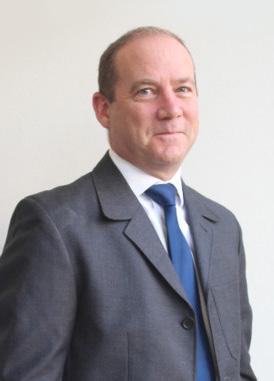
AFRICA: “I have always been in the packaging industry; my first job was selling printers and extruders. I was then asked by one of my customers to join them, and I moved into the flexible packaging industry.
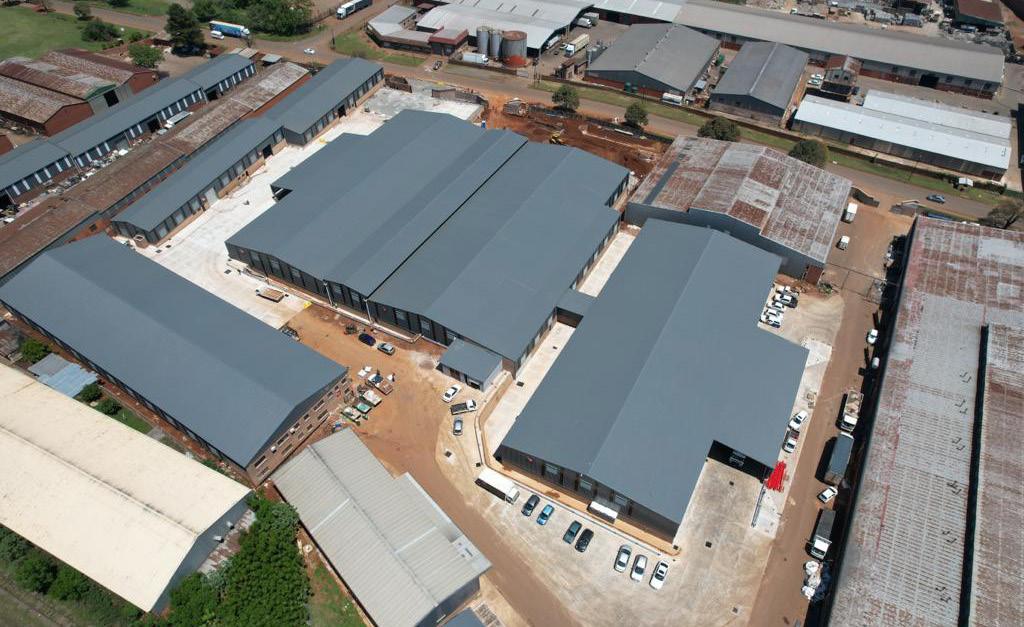
“From there I moved into the blow moulding industry, producing PET bottles for example, and servicing brands such as Coca-Cola. After this, I was approached by LC Packaging in 2015, and joined the year after, taking charge of the company’s Southern and Eastern African operations, covering all regions from the DRC to South Africa and across to Kenya.
“At that time, we had a small factory of around 40 people. Today, we exceed 200, so there has been substantial growth during this time.”
a world without waste: the waste of valuable products during storage and transportation, and packaging waste,” Green continues. “As a family business, we want to work in such a way that we do not limit the next generation in the choices they want to make or the resources they have available. By making it our mission to be a leader in sustainable packaging, we can achieve that impact.
“We believe in a future where sustainability is just as important and self-evident as quality and price,” Green adds. “By actively contributing to a world without waste, we add value to society on a local and global scale. Circular packaging solutions are one such example.”
LC Packaging has recently launched its 2030 ambition. Within this, the company identified three global issues that urgently need to be addressed and where LC Packaging can make a major impact: working poverty, circularity, and climate action.
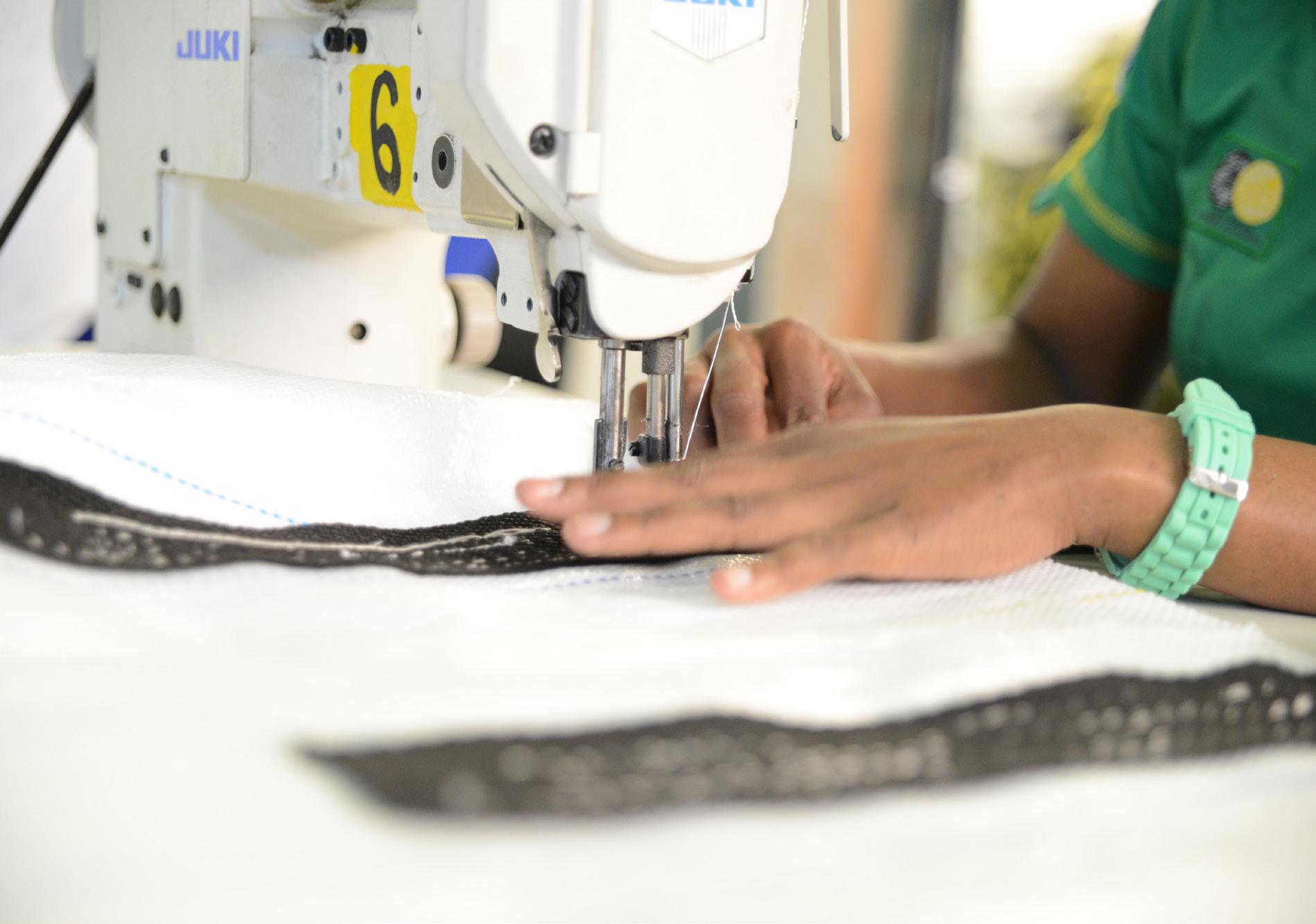
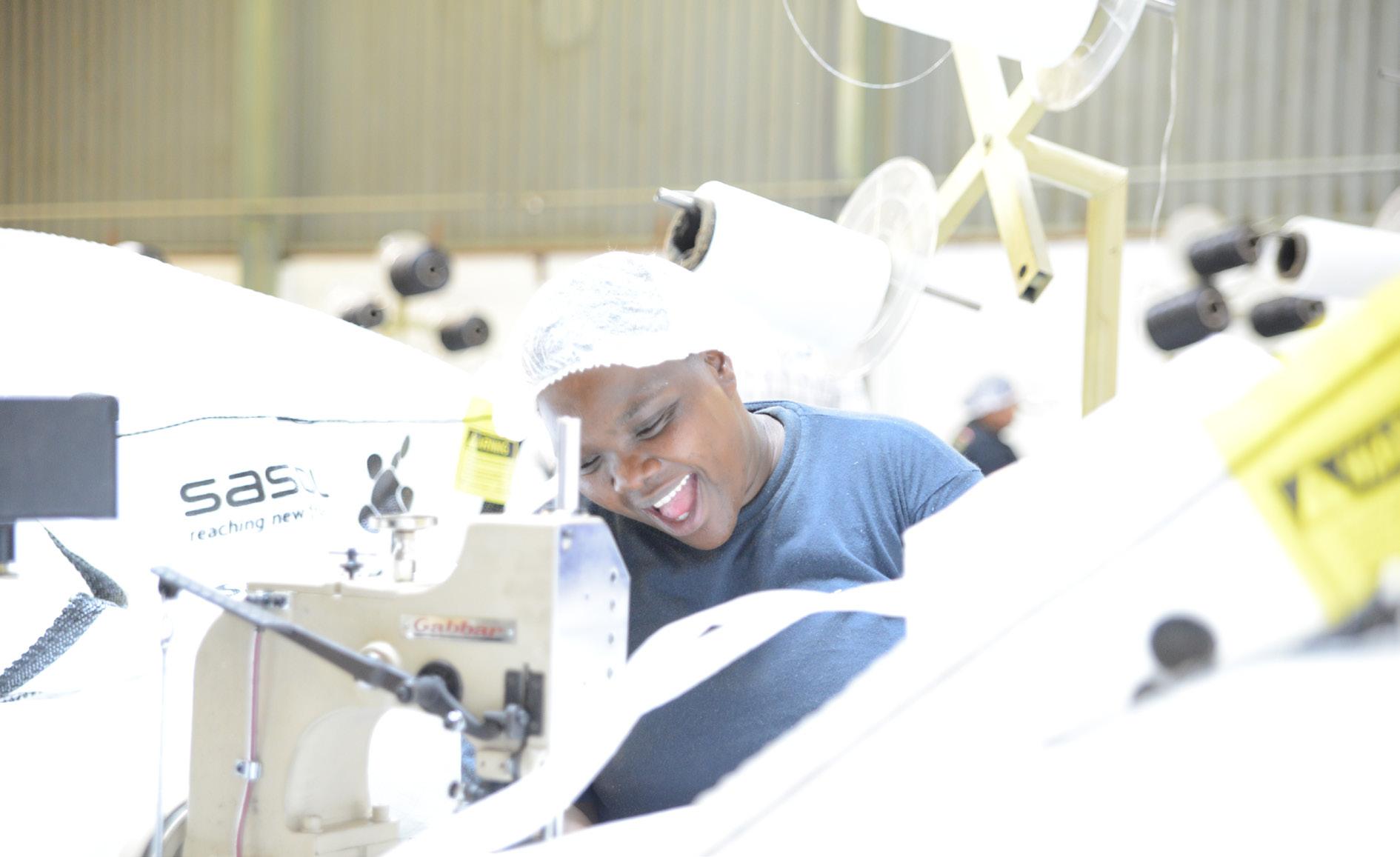
“We have translated these issues into ambitious goals that we aim to achieve no later than 2030,” Green affirms. “With these goals, we contribute to the global sustainable development goals (SDGs) and increase the social and environmental value of our packaging.
“Our 2030 ambition will further aim to reduce the company’s total value chain emissions by 50 percent from base year 2021.”
In line with this environmental mindset and emission reduction, LC Packaging is currently incorporating an off-grid solar solution for its production facilities in SA, which is set to be implemented in Q1 of 2023.
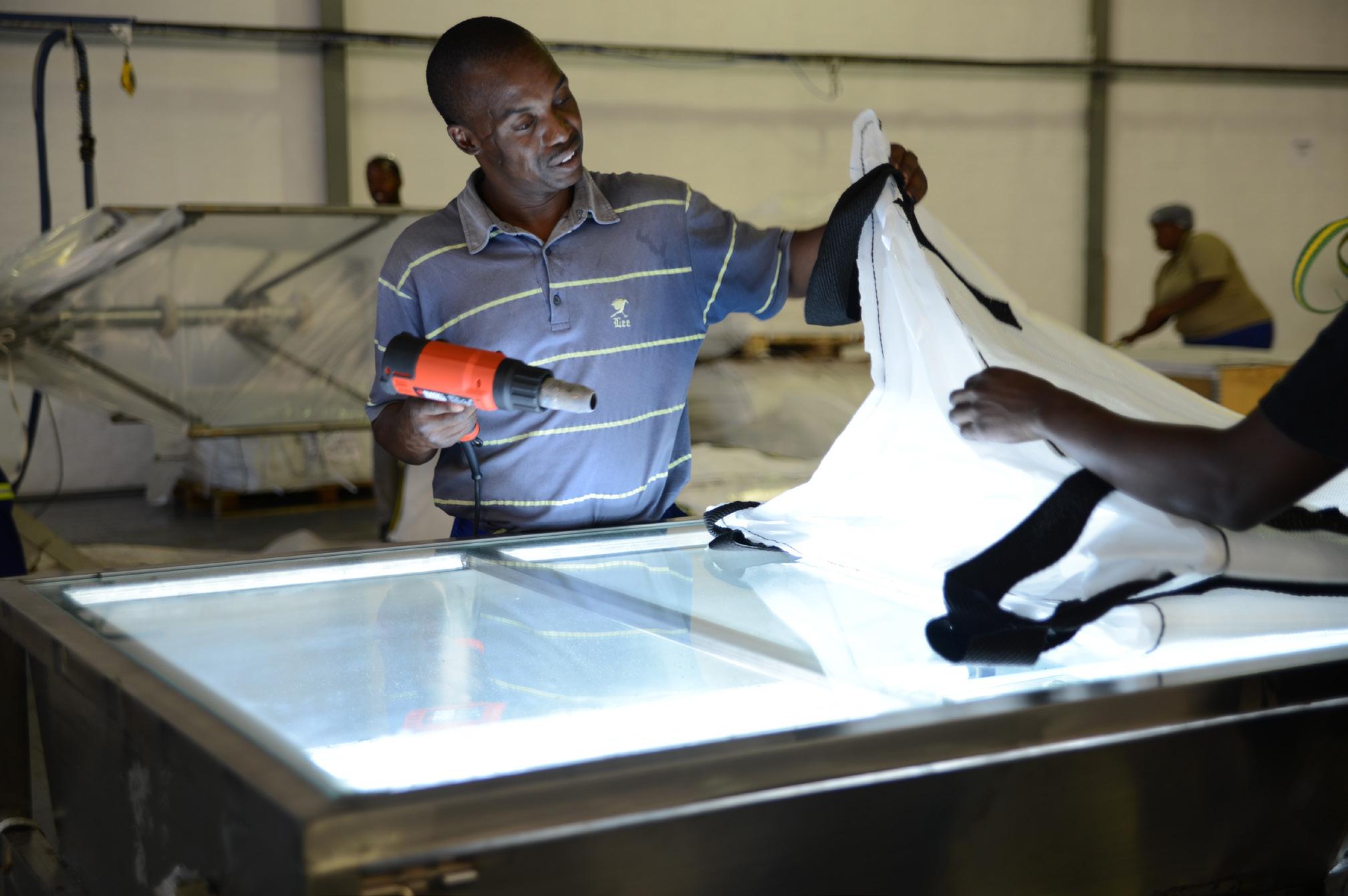
“This use of solar and battery storage will greatly help to reduce our overall emissions,” Green says. “On top of this, we currently harvest rainwater which is used in our ablution facilities and thus reduces our municipal water consumption considerably.
“Our head office in the Netherlands has sufficient solar power generation that equates to over 500 houses, and the rainwater harvested from the roof of our warehouse in Waddinxveen is actually sent to local greenhouses to help there. So, this really is an important part of what we do, and remains a number one priority for
the company at the moment. We are all passionate about leaving a positive legacy and a better world for generations to come.”
Supporting its environmental efforts, LC Packaging has always been led by customer-centric values that have been passed down through the decades, and that echo across all of the company’s operations, no matter the location.
In the 1920s, there were many bag traders in the Dutch capital, Amsterdam. It was then that Wilhelmus Lammers, known as Wim, set up his own company and started trading in used jute bags, the predominant packaging material at the time.
Used jute bags were bought, cleaned, repaired if needed, and sold. Wim was certainly not the only one; he was more like one of many. But with tens of millions of bags traded every year, the market was by no
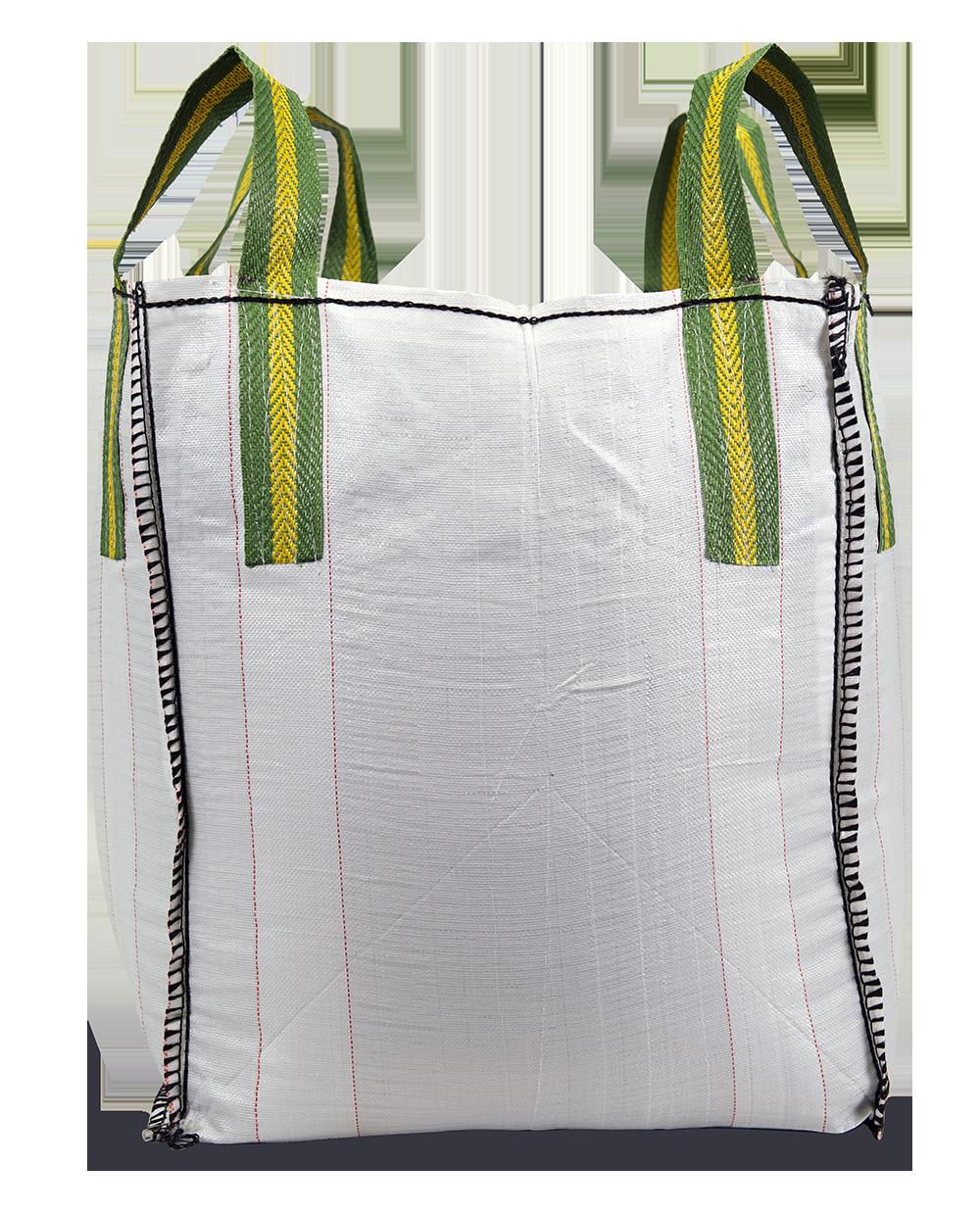
means saturated. What is special is that the company he started in 1923 as NV Zakkenhandel v/h W. Lammers is still active nearly 100 years later.
“Whilst it has changed names to Lammers & Van Cleeff BV, and later to LC Packaging, the family-run business has grown into a multinational company with colleagues spread over Africa, Asia and Europe,” Green tells us. “The fourth Lammers generation is now in charge and our range of services has expanded considerably with new products and our own production facilities. In Pietermaritzburg, South Africa, we have a joint venture with Shankar Packagings India, which is known as LC Shankar.
“Yet, the soul of the company has never changed. Committed, reliable and loyal: those were the core values of the company back then, and they still are now. The jute bag is still one of our key products. The history of LC Packaging tells the story of bold entrepreneurship, close partnerships, vision, and honesty - always.”
LC Packaging’s customer centricity
is key to its future, and the company is evaluating more manufacturing capacity in Africa with the goal to produce fabric locally within the next three years at the company’s new facility in Pietermaritzburg (SA).
“We go where our customers are,” Green tells us. “Phase one of the new facility, a 10,000 metre-squared custom-built factory has recently been completed. On top of this, we have also identified an African country of interest further north, and we are in the process of conducting an in-depth feasibility study, which is looking very positive at the moment.
“Countries in Africa require local partners and manufacturers, and so this is definitely a way forward when it comes to expanding and producing local fabric in the continent.”
For Green, one of the most critical points of focus for LC Packaging is energy. Amid the issues that stem from external elements and national situations, challenges such as the failure of the power grid in SA can also pose a threat to production, in which an interrupted energy supply can lead to ruined products and substantial waste as a result.
“Our solar focus will allow us
to start up local manufacturing without a reliance on the national power grid, which is both better for the environment and production,” Green says. “Locally, we are looking at merging our distribution and production facilities. This would streamline many of our processes as well as eliminate certain admin duplications whilst also moving our B-BBEE level from a level seven to better than a level four.
“We are certainly keen to establish another production facility in Africa and we are in the middle of an in-depth feasibility study. This growth will lead the company forward in the coming years, carried by our commitment to people and the planet.”


Additionally, one of our ambitions is to be paying a living wage instead of a minimum wage to all our employees by 2030. We are very proud that we have already achieved this in SA.”
Tel: +27 11 615 4169
Filthy water cannot be washed. An African proverb birthing multiple connotations, it is also a truth of sorts.
In a literal sense, this saying has been a reality for much of human history to the present day, with dirty water often having to be boiled in order to be safe to drink and use, especially in the face of rising contaminant levels following the impact of industry over the centuries.
Thankfully, this historical truth is changing due to modern technology, and because the reality of water’s importance also goes hand in hand with another proverb - one of Kenyan origin - Water is the king of food
This East African saying sums up the simple necessity of water,
Eldoret Water and Sanitation Company (ELDOWAS) maintains vital water services to Eldoret Municipality and environs in Uasin Gishu County, Kenya. We speak to Peter Kibet arap Biwott, Managing Director, about the company’s life changing work in supply, water and sanitation Writer: Marcus Kääpä | Project Manager: Jordan Levey
and a truth often taken for granted by people around the world; that water is the key to life. Embodying the importance of water to the core, ELDOWAS, the Eldoret Water and Sanitation Company, understands this.

“ELDOWAS’ mandate is water safety, sanitation and catchment conservation, and we ensure water for all,” introduces Peter Kibet arap
Biwott, Managing Director of the company. “We are the second largest of the 91 water service providers in Kenya when it comes to asset and client base. In our water supply process, we carry out water tests through our network of ISO certified laboratories, and we also carry out meter testing services as well as capacity building services to our clients and staff.”

Based in Eldoret (Uasin Gishu County), around 320 kilometres west of Kenya’s capital Nairobi, ELDOWAS’ service area covers the Eldoret town as well as the municipality as a whole. It also includes the water source community and other small towns such as Kesses and Lessos, respectively in Uasin Gishu, Elgeyo Marakwet and Nandi Counties.
“Our client base numbers
approximately 600,000 customers when it comes to both water and sewerage connectivity,” continues Biwott. “We have a water supply coverage of 80 percent while our sewerage sees connectivity of around 40 percent across the areas. Upon completion of the last mile project, the coverage will move to over 65 percent.
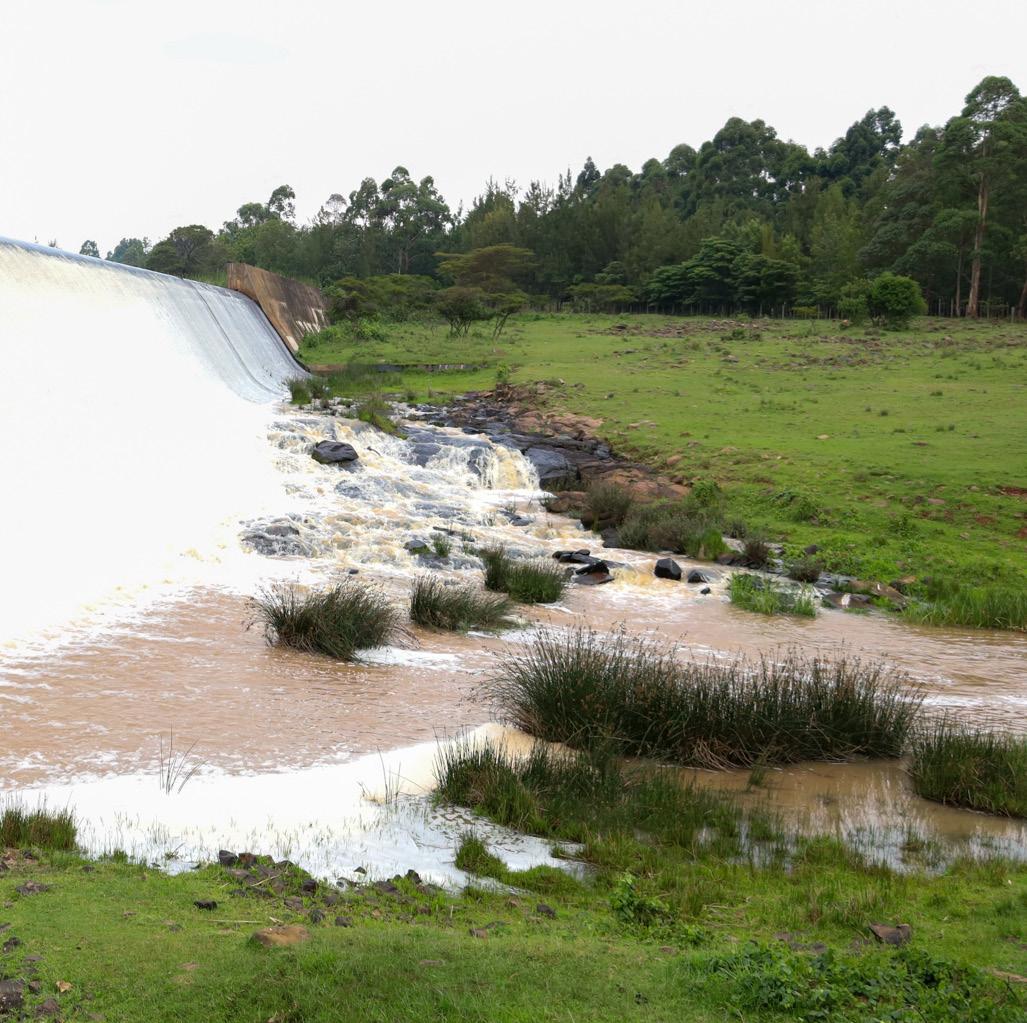
“ELDOWAS’ Kenyan target is
100 percent coverage both in water and sanitation by 2030, and our employees number more than 360 across both contract and permanent basis.”
According to Biwott, the company’s mission is to become Kenya’s most customer-centric company,
embodied by its brand promise to enhance the quality of life in the country. The Kenya Vision 2030 seeks to enhance the quality and quantity of life so our water and sanitation services play a critical role in this regard.
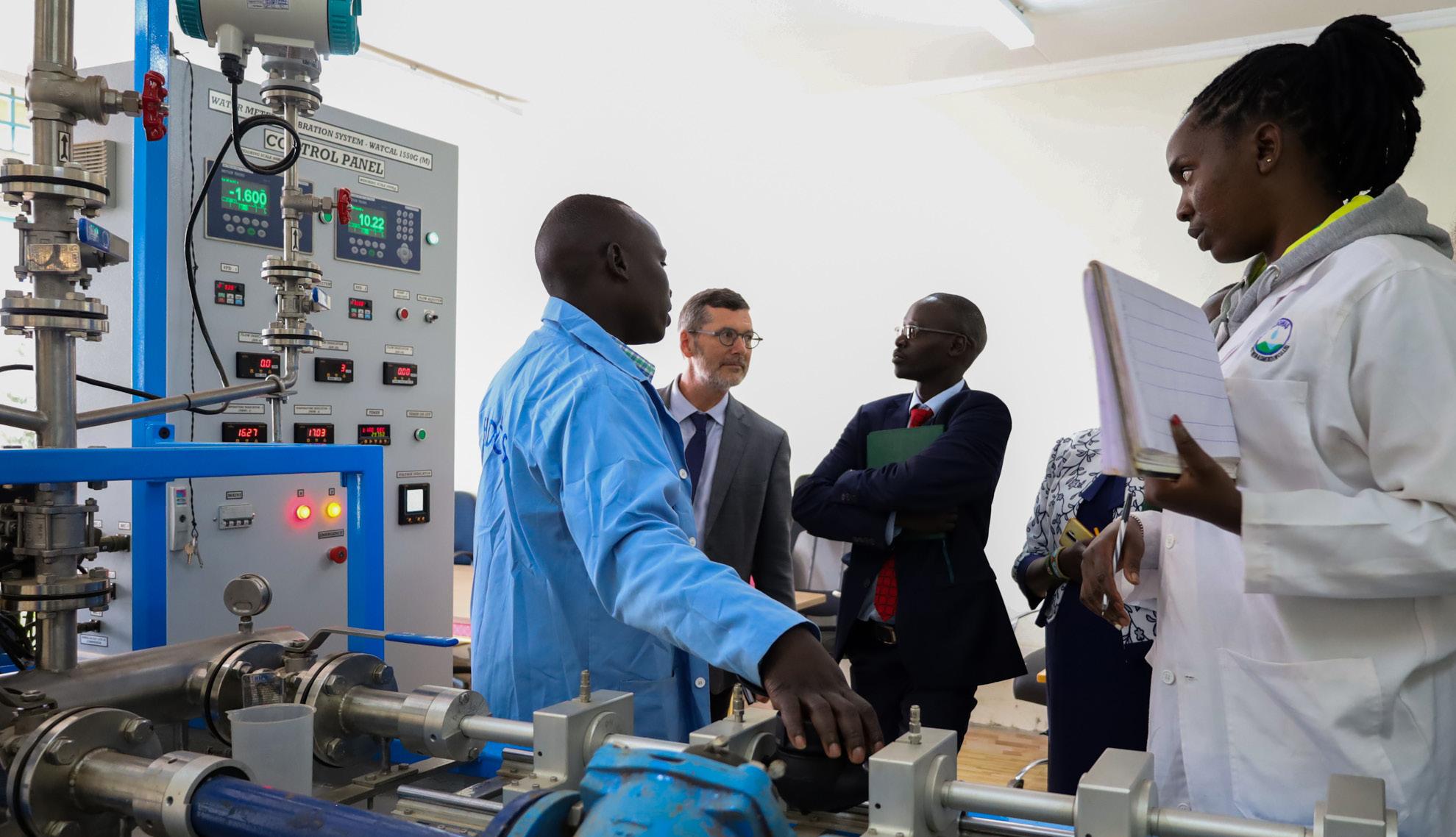
“The industry in Kenya itself is advanced and a good place to be operating in,” Biwott tells us. “The sector is spearheaded by the government’s Ministry of Water & Sanitation (MoWS), under which there is the regulator for the whole water and sanitation utilities sector namely Water Services Regulatory Board (WASREB). The utility regulator develops a city or municipality tariff for water and sanitation which is implemented for five years. The utility, however, is a company owned by the local county government of Uasin Gishu in Kenya.
“ELDOWAS therefore operates under the county of Uasin Gishu. This makes it even more interesting

because as an institution, it gives us the mandate to be part of the County Integrated Development Plan (CIDP) which is a blueprint for local economic development.”
At the same time, this ensures that ELDOWAS fully adheres to the regulatory framework and national policy envisaged in the Kenya Vision 2030, where the country aspires to ensure a high quality and quantity of life for all Kenyans. Within this sphere, the water and sanitation sector is a critical contributor to human development and is a key global priority, as it is an enabler for economic transformation.
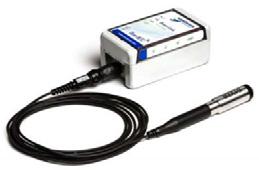
“It is very exciting to be part of local organisations helping in the realisation of such agendas,” Biwott says. “In line with this, our membership to the UN Global Compact network positions ELDOWAS as a key player in the Kenyan and global utility sphere, thanks to the company’s efforts in delivering water and sanitation
services across three counties in North Rift region in Kenya.
“The UN Global Compact network provides an avenue for partnerships and networks towards the realisation of sustainable development goals (SDGs). Most importantly, joining the network enables ELDOWAS to focus on the key priority areas as part of our sustainability strategy.”
The primary reasons behind this are to ensure ELDOWAS implements global corporate principles, or more specifically, the Ten Principles of the UN Global Compact derived from: the Universal Declaration of Human Rights, the International Labour Organization’s Declaration on Fundamental Principles and Rights at Work, the Rio Declaration on Environment and Development, and the United Nations Convention Against Corruption.
“Corporate sustainability starts with a company’s value system and a principles-based approach to doing




ELDOWAS’ mission remains its commitment to provide adequate quality water and sanitation services efficiently for all people within its regions of operation. This is achieved through energised and passionate employees working together and supported by innovations in the industry.



core values:
Focus
Players
Vision 2030 recognises that water is a basic need and an important enabler or catalyst for both the economic and social development of Kenya. It is important, therefore, to provide water services in sufficient quantity and quality and view water as both an economic and social good.

business. This means operating in ways that, at a minimum, meet fundamental responsibilities in the areas of human rights, labour, environment and anti-corruption.
“Responsible businesses enact the same values and principles wherever they have a presence, and know that good practices in one area do not offset harm in another. By incorporating the 10 Principles of the UN Global Compact into strategies, policies and procedures, and establishing a culture of integrity, companies are not only upholding their basic responsibilities to people and planet, but also setting the stage for long-term success.”
As a company that revolves around welfare and bettering the lives of people in Kenya, it is no surprise that ELDOWAS also undertakes many corporate social responsibility (CSR) practices to help further its peoplecentric mission.
and in their businesses, such as manufacturing firms, because our region is water deficient at the moment. We also sensitise on the proper use of flush toilets so as to make wastewater treatment simple, efficient and affordable.
“In addition, we provide tree seed lings towards catchment conserva tion, and customer sensitisation and engagement as part of our company service. We are embarking on creating sustainability in our company, in part, by adopting green energy where we hope to install solar systems to power our water treatment plant in Kipkaren and also for use in our offices to save on energy.”
The national development goal on water service provision under Vision 2030 states “water and sanitation to ensure that improved water and sanitation are available to all by 2030”.
The targets are:
1. Increasing water supply coverage to 100 percent both in urban and rural areas.
2. Increasing coverage of piped water supply by registered WSPs to 100 percent for urban populations.
3. Increasing unit water supply amount suitable to national standard levels.
4. Decreasing NRW rate to 20 percent for efficient water use.
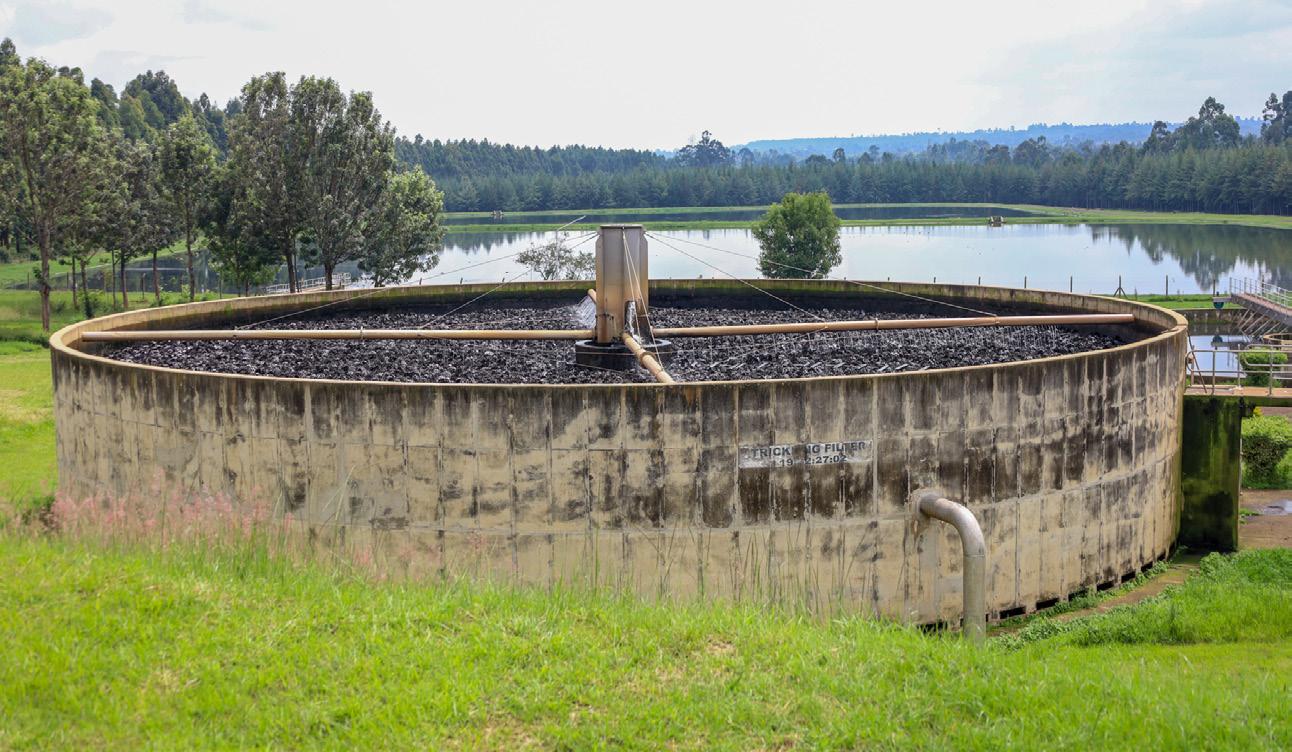
The target for sewerage development is to increase the coverage rate of the sewerage system to 80 percent for urban populations, and ELDOWAS is at the centre of this.
“We carry out CSR activities, for example the distribution of water tanks to schools within our service area,” Biwott explains. “We have also initiated LindaMajiInitiative/ LindaMajiViwandani, which helps educate our residents on water conservation at their homes
Within Kenya, ELDOWAS’ water catchment area spans approximately 177,000 hectares, including a protected forest area of 85,000 hectares. According to Biwott, among external economic activities and population pressure, the watershed has been degraded over the years. As a result, this affects the quality and quantity of the water supplied to the citizens, which calls for climate action activities to restore the watershed in ELDOWAS’ quest to make the Eldoret municipality a sustainable city in Kenya.
“We have developed two tree nurseries where, in conjunction with
the community, we jointly carry out the reforestation of our watershed,” Biwott elaborates. “We do this in partnership with institutions such as Family Bank, who are the main title sponsor for our climate action activities, Uasin Gishu County Government, Equity Bank, National Bank, the Ministry of Environment and Forestry, Kenya Forest Service, the members of Kenya Association of Manufacturers, members of the Kenya National Chamber of Commerce and Industry, among other private and public sector agencies and development partners.
“We have this year planted over 125,000 tree seedlings and continue to do so. We do this in support of the Eldoret City Climate Action Marathon that, since its inception five years ago, has rallied the residents of Eldoret and Kenyans at large to plant over 10 million trees. We are therefore committed to contributing to the mitigation of climate change
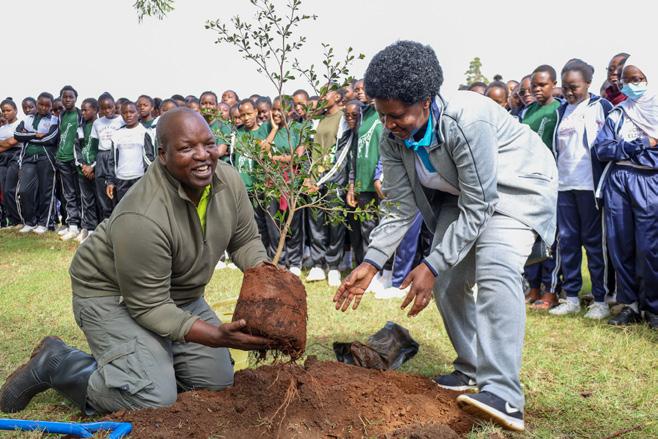
through the restoration of our water catchment areas.”
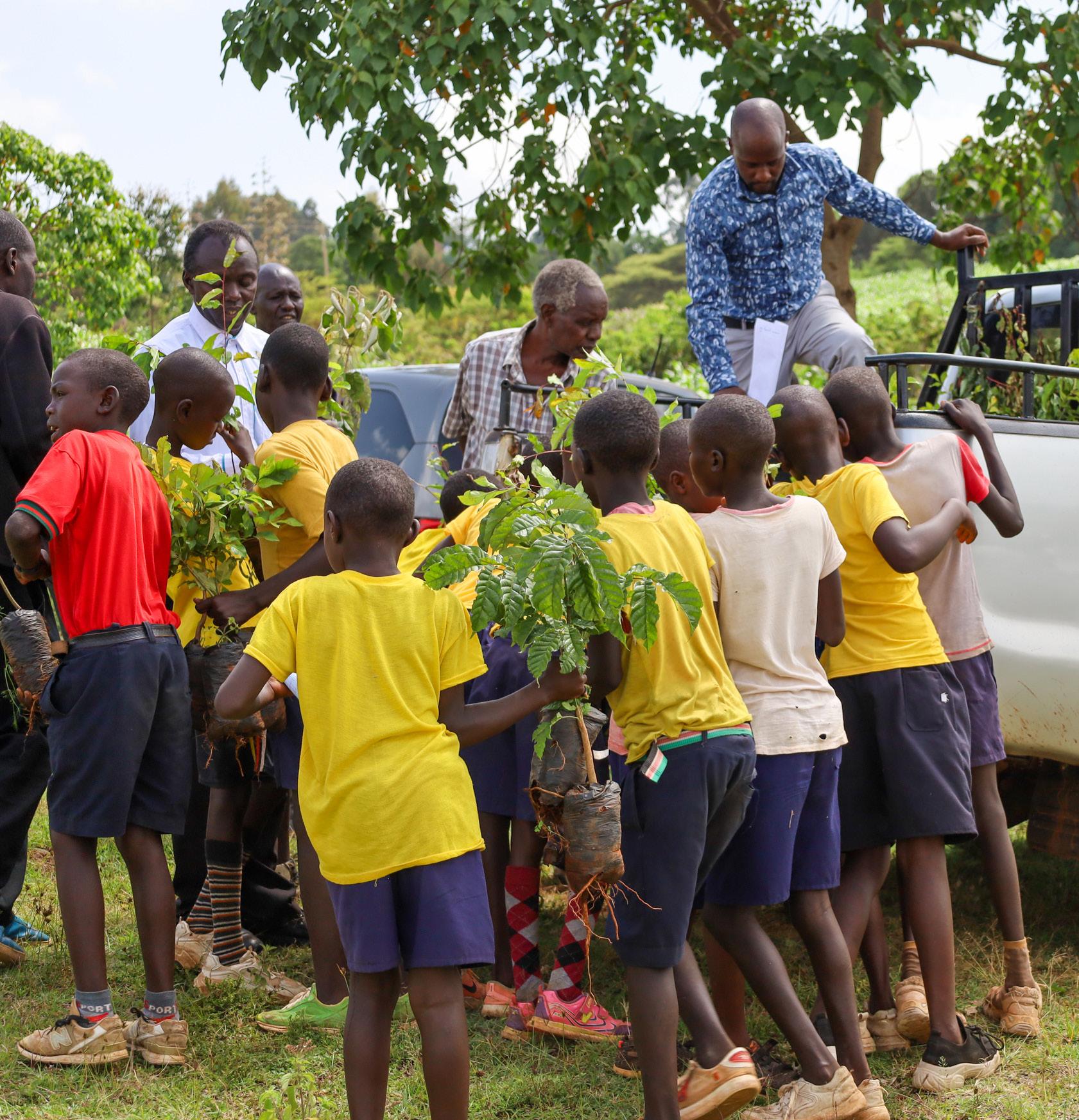
For ELDOWAS, the future looks bright. The company is currently carrying out a project that, when concluded, will cover 47 kilometres of sewerage connectivity.

This project will cover a large part of Eldoret and is expected to increase ELDOWAS’ coverage to over 65 percent in the entire area. This sewerage project is key to the future of Eldoret’s water and sanitation needs.


“On top of this, our CSR activities are ramping up,” Biwott tells us. “Some of the priorities include a reduction in operations costs by adopting green energy, ensuring that we reduce non-revenue water from 39 percent to 20 percent in the next three years, and improve on customer service by ensuring improvement of our services, all to become the most
customer-centric company in Kenya.
“Additionally, this will include the adoption of advanced metering infrastructure (AMI) or increased SMART metering solutions, improvements on water and sanitation access by all, working towards 100 percent coverage in the country, improving working conditions for workers and enhancing their motivation, increasing forest coverage in our area to enhance quality and quantity of water to our hometown, and finally to emerge as the best water service provider in Kenya - and in Africa - as a whole.”
Tel: +254 (0)53-2035000 info@eldowas.or.ke www.eldowas.or.ke
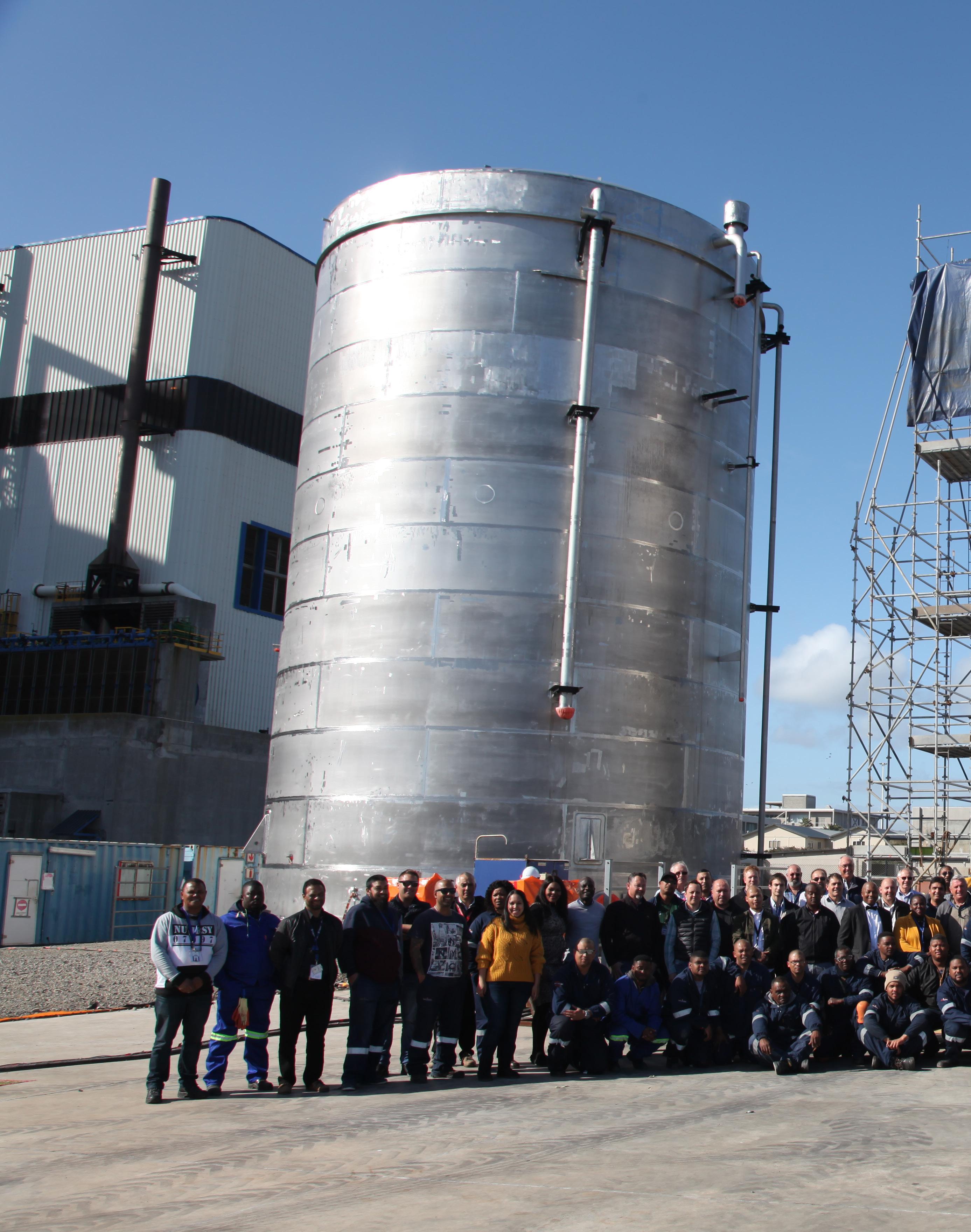
At the forefront of energy facility solutions, Lesedi’s engineering, procurement and construction (EPC) projects help develop plants across Africa and maximise energy advancement. We speak to Business Development Executive, Shane Pereira, about the company’s services and sustainable edge
Writer: Marcus Kääpä | Project Manager: Jordan LeveyEnergy is the key to the future. At present, the world is recognising the critical need for smarter energy practices to increase efficiency to maximise yield, and within the industry, there are multiple players facilitating this.
Lesedi is one such company. Originally evolved from Intens Engineering, founded in the 1980s, Lesedi has since diversified into a major engineering, procurement and construction (EPC) company, having successfully completed numerous key projects in the nuclear field, as well as in the company’s three major markets: industrial power generation, mining, and oil and gas.
“There is a lot of opportunity in the energy industry at the moment,” begins Shane Pereira, Business Development Executive (BDE) at Lesedi. “This is due to the embedded generation of hybrid energy project opportunities available, as well as

materials for low, medium
high voltage
overhead
other
also supply warning
products on demand.
We have developed insulators for environmental solutions, which are critical components in such installations. Air pollution is a huge global problem and the demand for these products is increasing.
It is our ambition to grow even more globally and become one of the leading manufacturers within this field of environmental products.
Together with our existing and new customers, we will build lasting relations.




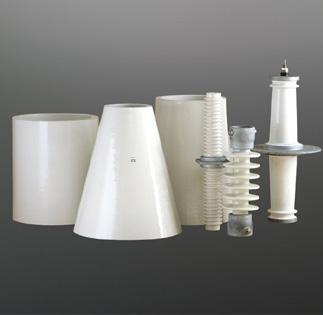


the nature of load-shedding in South Africa (SA), including the reduction and interruption of the electricity supply to ease the load on energy generation plants and avoid national shortages.”
With its head office in Cape Town, and other offices including Centurion (Gauteng) in Johannesburg, Lesedi is made up of approximately 330 employees dedicated to clients across the continent, and works with major players in the energy industry, as well as independent power producers (IPPs).
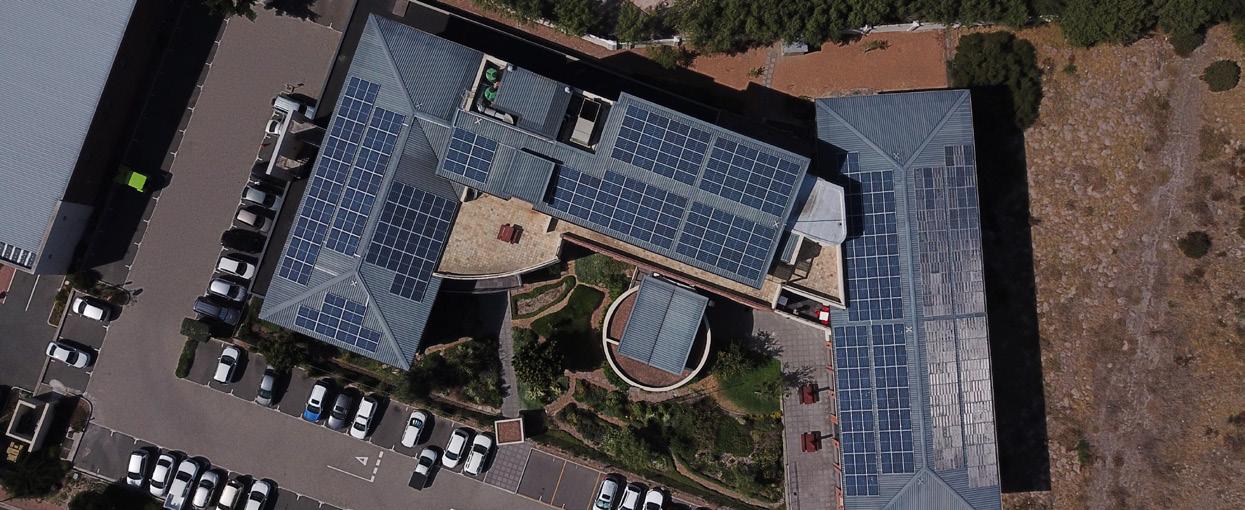
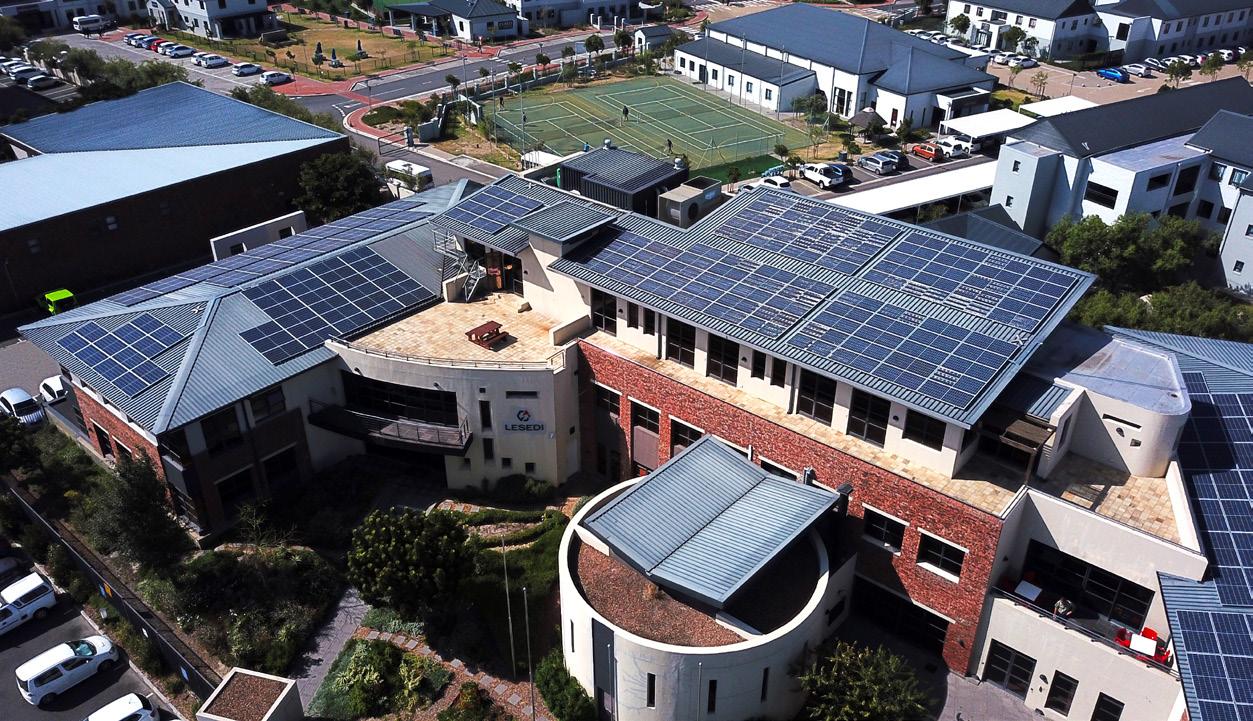
Eskom, the SA government-owned national power utility and primary power generator, is one of Lesedi’s most significant long-standing clients, and the company undertakes major contracts with Eskom to carry out modifications on existing plants and increase their performance and efficiency.
“We are providing new solutions in the sector on multiple sides, whether that is for state-owned entities like Eskom, or in the private sector where
SHANE PEREIRA, BDE: “I have been with Lesedi for 16 years, and my initial interest in the energy industry stemmed from my father, who had a keen interest in the nuclear environment. When the opportunity with Lesedi presented itself, I joined as a Marketing Analyst.
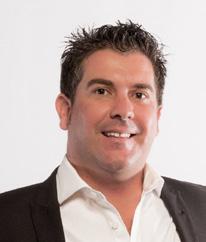
“At university, I had undertaken a business science degree, and from there I developed a background in business marketing and marketing strategy, and so I joined Lesedi to look after the company’s communications portfolio. I grew with the company, taking on various roles as the portfolio diversified, including corporate social investment, and all topics related to that, such as supply, skills development and how all of this impacts commercial strategy.
“My personal interest in the energy landscape and spheres of energy diversification besides nuclear relates directly to the company’s activities; we have built some open-cycle gas turbine projects for utility companies in SA, thermal power stations, undertaken projects in the oil and gas and mining markets, and taken on complex engineering projects in the sector. My interest has been continuous since I first joined the company.
“A key focus area of mine is also partnerships, stakeholder relations, managing relationships, and cultural diversity.”
we have projects under development,” Pereira continues. “These range from waste-to-energy to biomass projects and hybrid systems for private clients, such as a combination of solar, batter ies, and diesel.
“It is an exciting landscape when it comes to opportunities, but at the same time the market is immature and has a lot of room to develop, which means that there is a lot to navigate in the industry.”
Lesedi’s roots originally stem from the nuclear energy field, however the homegrown South African company has adapted and evolved to reflect its purpose and vision for the future. In this sense, Lesedi is on a journey of transformation, and has changed its company definition from ‘nuclear services’ to ‘power generation,
• NTP Products manufacture and supply insulators for environmental solutions and the energy industry.
• We are located in Fredrikstad Norway with a good infrastructure, well located for transportation of our products to various destinations by sea, land or air transport.
• Since establishment in 1916, the company has developed to its current position as one of the leading suppliers of technical ceramics.

• Our customers have shown us trust that has contributed to the development of NTP Products.
• We are a leading Norwegian supplier with a substantial and high export share.

• Our strengths are competence, product range, quality and adaptability.
• The combination of our leading-edge competence and motivated co-workers ensures quality in our services and products.
• Our insulators constitute the backbone in all high-voltage systems. The society of today, and tomorrow, is increasingly more dependent on a stable and secure electricity supply.
• We have developed insulators for environmental solutions, which are critical components in such installations.
• Air pollution is a huge global problem, and the demand for these products is increasing.
• It is our ambition to grow even more globally and become one of the leading manufacturers within this field of environmental products.
• Our Quality Management System is ISO 9001.
• We believe quality is the ongoing process of building and sustaining relationships by assessing, anticipating and fulfilling stated and implied needs.
• This philosophy is applied in all steps in our process, from how we respond to requests, to how we follow up our customers.
• The company’s long experience and leadingedge competence, and positive references, assures a positive contribution to our customer’s profitability.
• NTP Products operates in several market segments and supplies insulators low, medium and high voltage applications worldwide.
• Together with our existing and new customers we will build lasting relations.
• Our customers shall select us as their preferred supplier and flexible co-operating partner.
 – SHANE PEREIRA, BUSINESS DEVELOPMENT EXECUTIVE, LESEDI
– SHANE PEREIRA, BUSINESS DEVELOPMENT EXECUTIVE, LESEDI
mining, oil and gas’ to reflect its extended offering. Nevertheless, it has kept nuclear intertwined as a key part of this.
“50 percent of our business is in the industrial power generation sector,” Pereira explains. “In terms of our products, we specialise in bringing forward any particular technology that we feel is appropriate for a specific client, and we have very strong relationships with original equipment manufacturers (OEMs) locally and abroad. This comes in useful to provide clients with suitable products and solutions. Compliance is key to us, as is remaining competitive.”
When it comes to the market, Lesedi operates in the power generation sector. This includes modifications, upgrades and maintenance services in the nuclear
market in Africa and internationally. The company also delivers its services abroad, such as valve and pump fitting and maintenance, and refuelling onsite.
An example of this is Lesedi’s American projects. Across the US, the company has undertaken over 75 interventions since 2006 by sending teams abroad to get involved in maintenance activities on around 15 different nuclear stations.
“We have done similar work in Brazil, Spain, China, and the UK on the services side,” Pereira continues.
“In the other power generation areas, gas-to-power is another market of ours, as is thermal, and renewables including hybrid systems – solar, wind, batteries, biomass, waste-to-energy. These consist of building bespoke energy projects as an EPC contractor.”
Arguably the strongest benefit of using modular buildings is the immediacy of the solution. In July 2020 Waco Modular Cape Town and Lesedi contracted to the delivery of over 1300m2 of offices, with supporting ablutions and kitchens, to be installed at Eskom’s Koeberg Nuclear Power Station. The offices had to meet Eskom’s stringent health and safety requirements and were required as the base for the Eskom contractors managing the nuclear plant maintenance.
There were two time sensitive deadlines. The first was the delivery of 32 EzeeSpace fully configured modular units by December 2020. The second deadline was handover of the remaining 44 units by February 2021. EzeeSpace modular units had been proposed because of the speed of fabrication as well as providing the optimum in flexibility and scalability. Work began immediately at Waco’s Elandsfontein facility, and the first order of units were fabricated and assembled in record time. The units were then transported to the site and installed ahead of deadline. The remaining 44 units followed the same successful process, again being handed over, ready for use, ahead of time.
EzeeSpace is a world-class space solution that is leading the modular revolution. The versatile and scalable units can be configured to meet a client’s current, and future, space requirements. EzeeSpace has the capability of being a double storey building, reducing the required on-site footprint. The higher than average 2.53m ceiling height delivers a spacious and comfortable interior. Built to withstand harsh African climatic conditions, EzeeSpace Modular units are durable. The steel exoskeleton ensures a robust structure with a rigid floor. The Chromadek walls are fully insulated with built-in gutters and downpipes to weather any storm and prevent leaks. Under normal conditions, there is very little to no maintenance required. When you combine the immediacy of modular with the added advantages of EzeeSpace you have a quality, cost effective space solution.
While EzeeSpace is the premium modular product, Waco Modular also delivers a range of alternative building technologies including Cabins, Light Steel Frame, Site Builds and Converted Container Solutions. The Company is a division of Waco International - a focused equipment rental and industrial services business with operations in South Africa, Africa, Australia and New Zealand. The Group’s expertise extends to Formwork and Scaffolding, Portable Sanitation and Hygiene and Powered Access.
Waco Modular is a world-class space solution provider that is leading the modular revolution.
Our versatile and scalable units can be configured to meet your current, and future space requirements. Waco Modular supply site offices, classrooms, kitchenettes and ablution facilities to multistorey buildings.
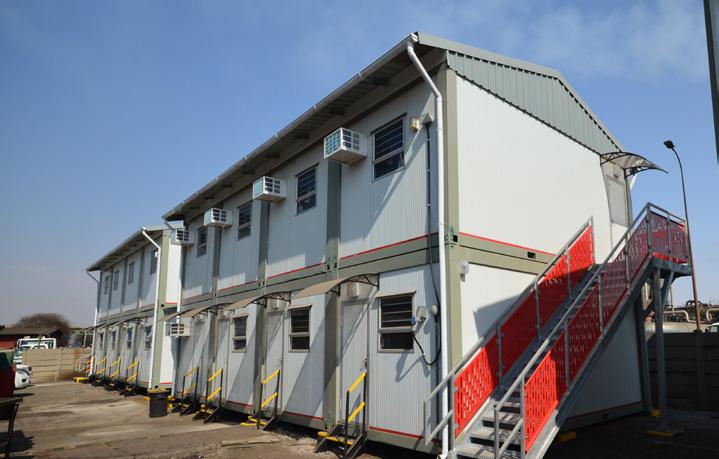


Be it a converted container, prefabricated or modular space you need, we can provide you with the right rental or purchase option.
We are a division of Waco International - a focused equipment rental and industrial services business with operations in South Africa, Africa, Australia and New Zealand.
Eskom’s Koeberg Nuclear Power Station
When Lesedi Nuclear Services needed over 1300m² of offices with supporting ablutions and kitchens Waco Modular EzeeSpace proved the optimum solution.

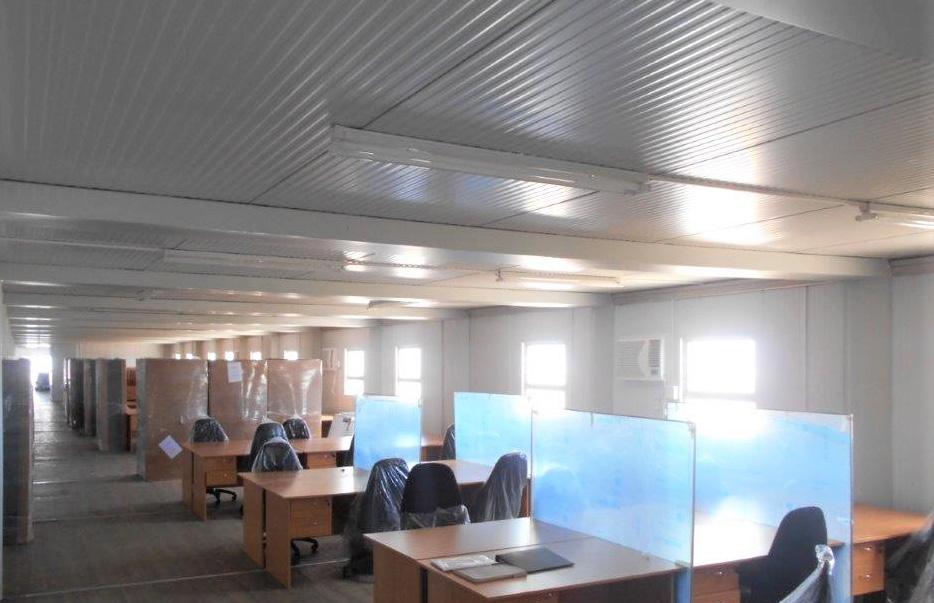
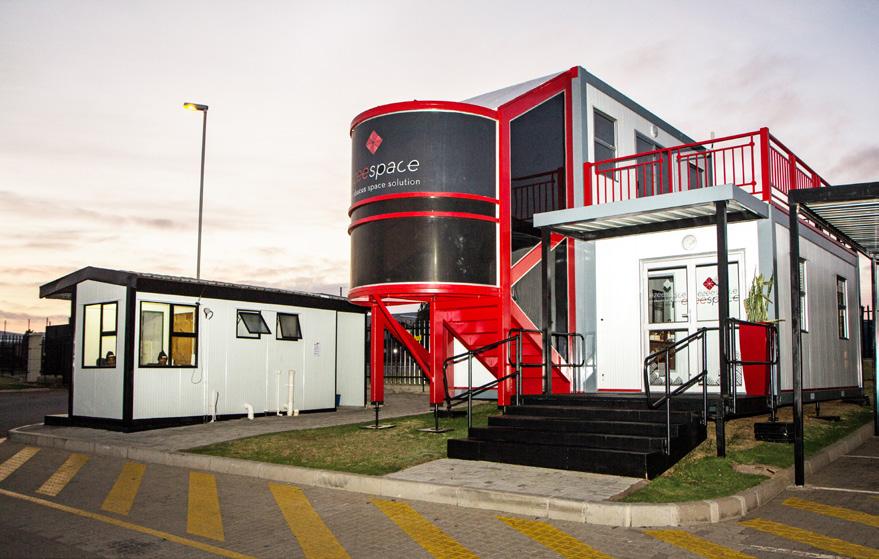
The offices were required as the base for the Eskom contractors managing the nuclear plant maintenance.
All units were prepped and assembled at our Elandsfontein factory and transported from Gauteng to the site. The Waco Modular team managed Eskom’s stringent health and safety requirements, delivering, installing and handover the modular building in record time.
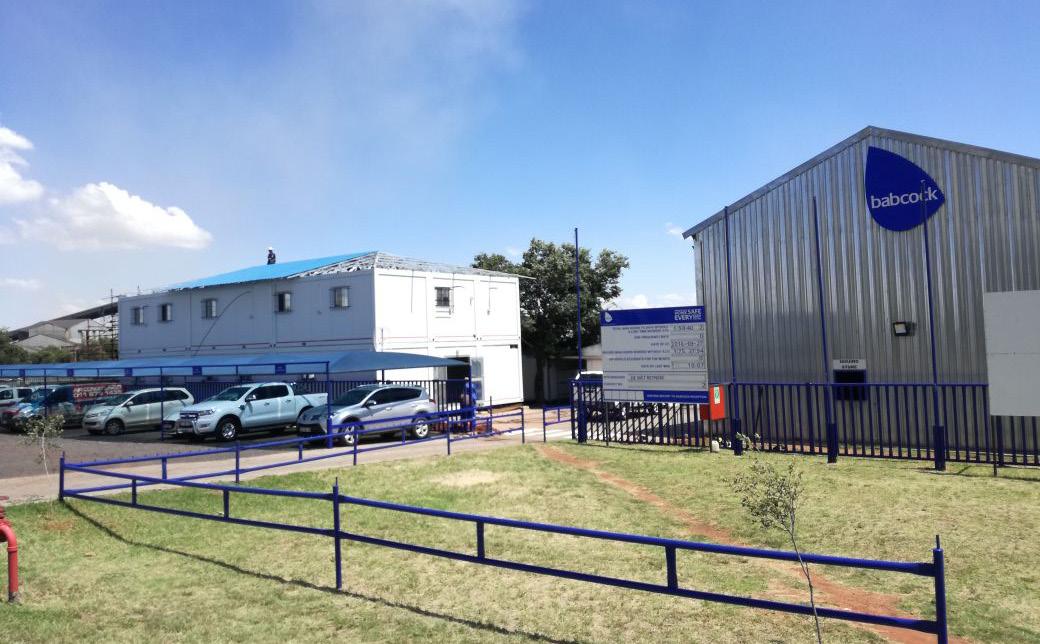

All these advantages make EzeeSpace a fast and cost effective space solution. Add the proven expertise and experience of the Waco Modular team and you can see why EzeeSpace offers you the Smart Fast Modular solution.
Lesedi’s activities in the mining sector typically surround the integration of solutions to reduce emissions, for example, within South Africa’s platinum mining industry. Emissions such as nitrogen oxides (NOx) and carbon dioxide (CO2) are two kinds that the company aims to limit to lower the sector’s environmental impact.
“Another aspect of our business is technology integration,” Pereira says. “Lesedi carries this out for existing clients on existing facilities with the aim to improve performance. In Mozambique for example, we undertook a project for Mozal Aluminium, where we upgraded their compressed air energy storage expansion.
“We also get involved with integrat ing solar to improve the performance
• Lesedi conforms to the PMI’s 10 knowledge areas of the five project management processes of initiating, planning, executing, closing, and monitoring and controlling, as well as a full project management function.
• Engineering is at the core of Lesedi’s capabilities and forms the major foundation of the business. Lesedi’s experienced design teams produce designs from concept/feasibility studies through to full detail design packages for greenfield or plant modification projects.
• Lesedi supports clients by generating comprehensive operating and maintenance manuals and providing operations and management services which assist clients to protect vital and valuable infrastructure assets.
AMS is a leader in the panel Energy & Utilities and engineering industry - supplying products and services, designed, engineered and manufactured by a diverse team of talented employees.
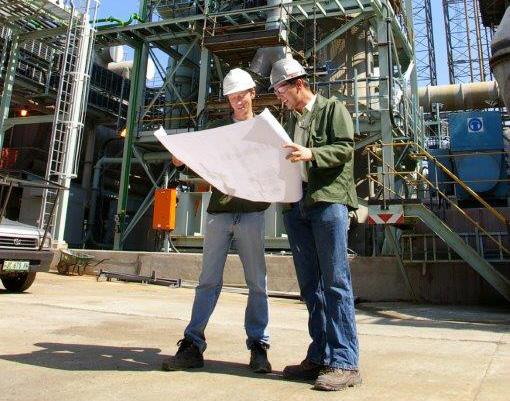
AMS is a proud manufacturer of Siemens Sivacon S4 & S8 Low Voltage Assemblies as well as Siemens Simoprime Medium Voltage Assemblies. As a licensed partner we design, manufacture & assemble all assemblies, type tested in accordance with IEC 61439-2 & IEC 62271 200.
We specialise in the design, manufacture, assembly, and testing
all of our boards.
of clients when it comes to emission reduction.”
In the oil and gas sector, Lesedi’s activities centre around tank refurbishment projects for clients across the African continent, and the company has plans to build strategic fuel assets such as tank storage facilities in South Africa and alternative regions.
“Furthermore, we have biomass projects in Ghana, oil and gas operations in Angola and Mozambique, and in Uganda we are looking at nuclear-related operations,” Pereira explains. “It is quite a diversified business for sure. Lesedi undertakes various operations across different markets. We are specialists in EPC with our construction often being subcontracted or through one of our many partners.”
Lesedi’s environmental efforts are not limited to external clients. Within
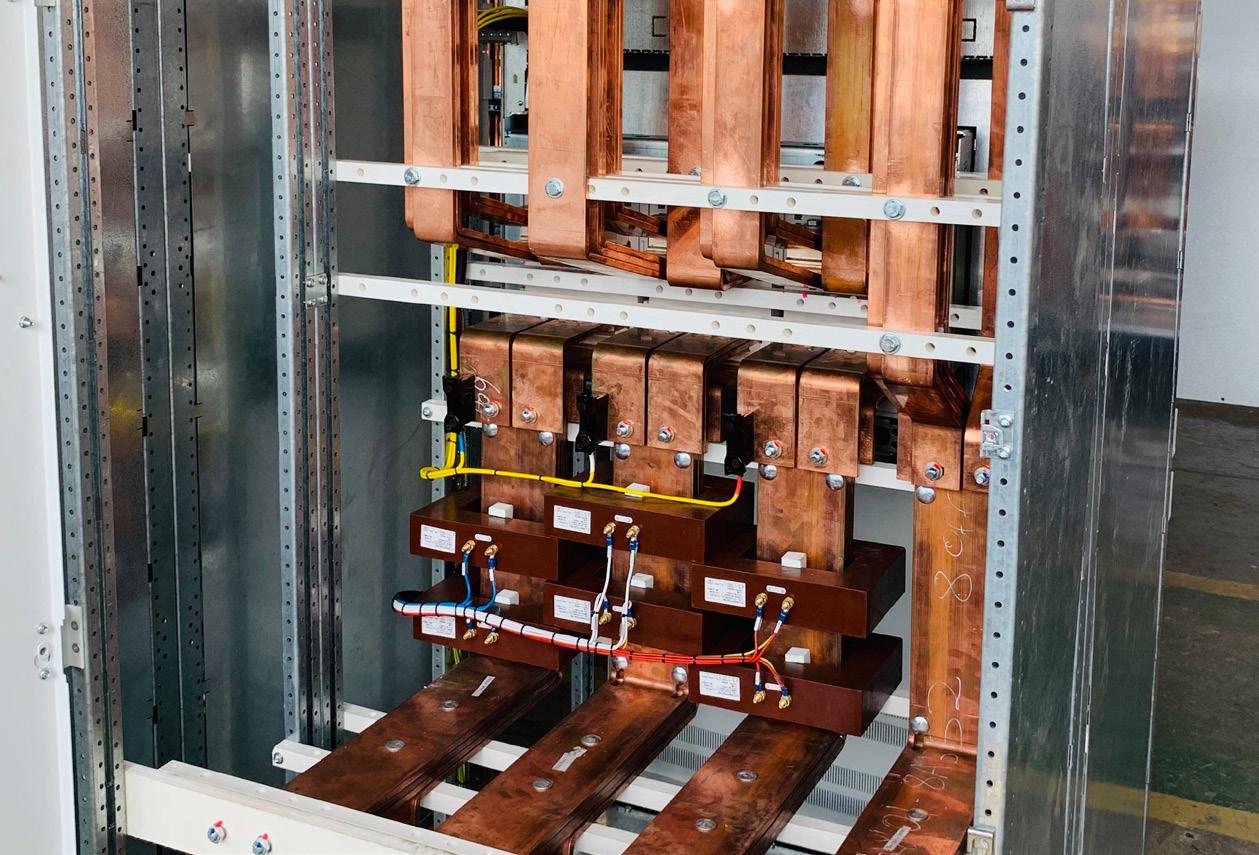





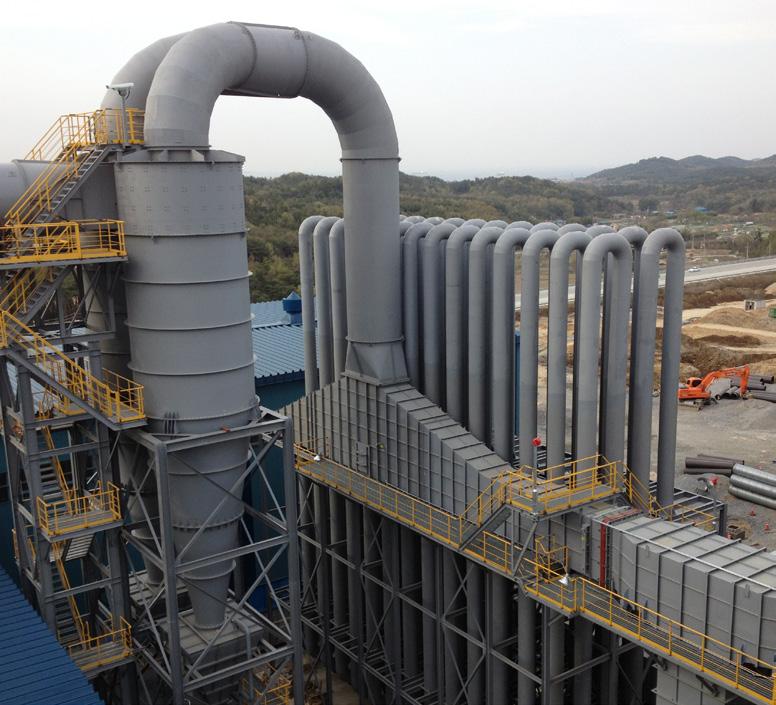


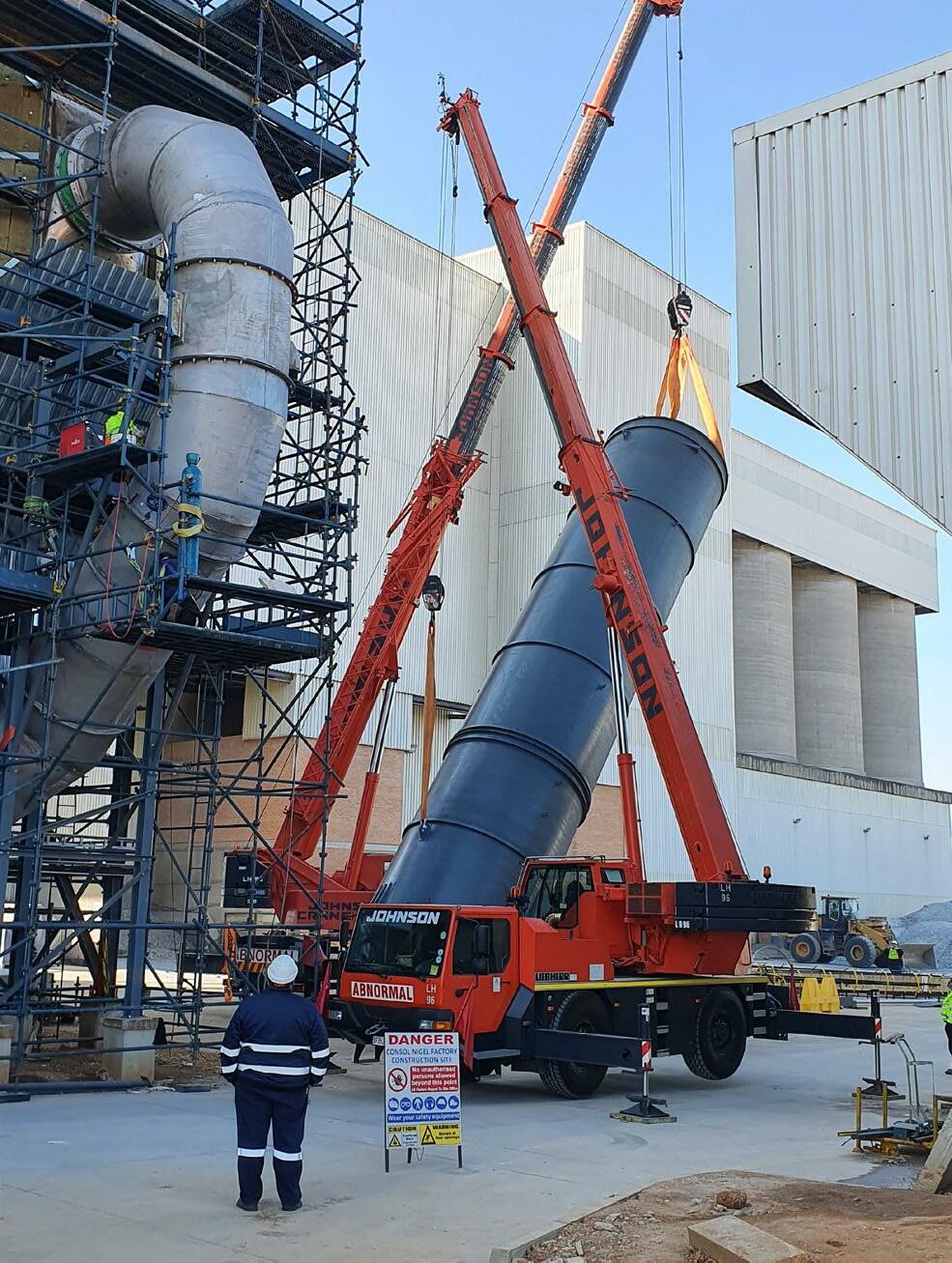

the company itself, sustainability is a core pillar of Lesedi’s mission and for Pereira, this is one of the many factors that makes Lesedi stand out from its competition in the energy industry.

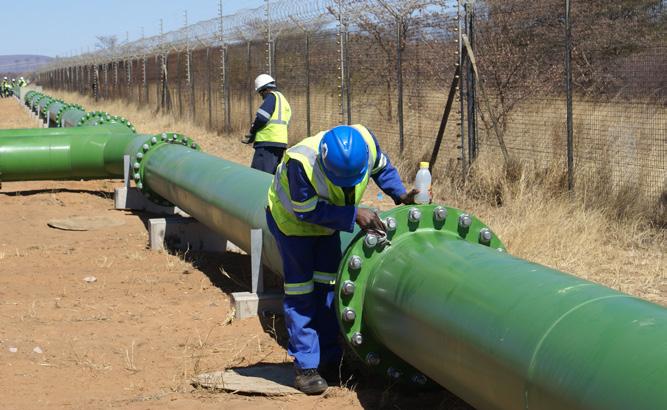
“A key thing for Lesedi is sustainability. We are in it for the long haul, and this is also needed for our clients,” Pereira tells us. “Often, we are not the cheapest option in the market, and that is because we are providing a solution that we feel is sustainable, so I think that the level of quality that we put in and our ability to honour the client for the long term is what differentiates us.”
As an integrator, Lesedi is able to carry out the engineering and procurement of equipment to a greater standard than many alternative options in the market.
“The fact that we have grown out
of the nuclear business has given us a greater appreciation for doing things right – I think that’s key for us,” Pereira continues. “Whatever we commit to, we want to get it right the first time. We have a real appreciation for EPC.”
Moving ahead, Lesedi has some serious ambitions to increase its resource pool, including a successful skills academy based in Cape Town that doubled in size during COVID19 when it came to artisan training and training courses in different disciplines, including mechanical fitting, boiler making, hydraulics, and welding.

“We are also looking at some engineering resources for the future by developing a pipeline of engineering graduates that we are feeding into our system in resource pools,” Pereira concludes.
Lesedi’s success in the energy sector can be seen in both the company’s organic growth, its expansion into other markets, and the establishment of additional locations.
On top of this, 2022 is seeing Lesedi perform its highest revenue year in the history of the company, bringing its innovative and sustainable energy solutions to the wider African continent and beyond.
Tel: +27 21 525 1300

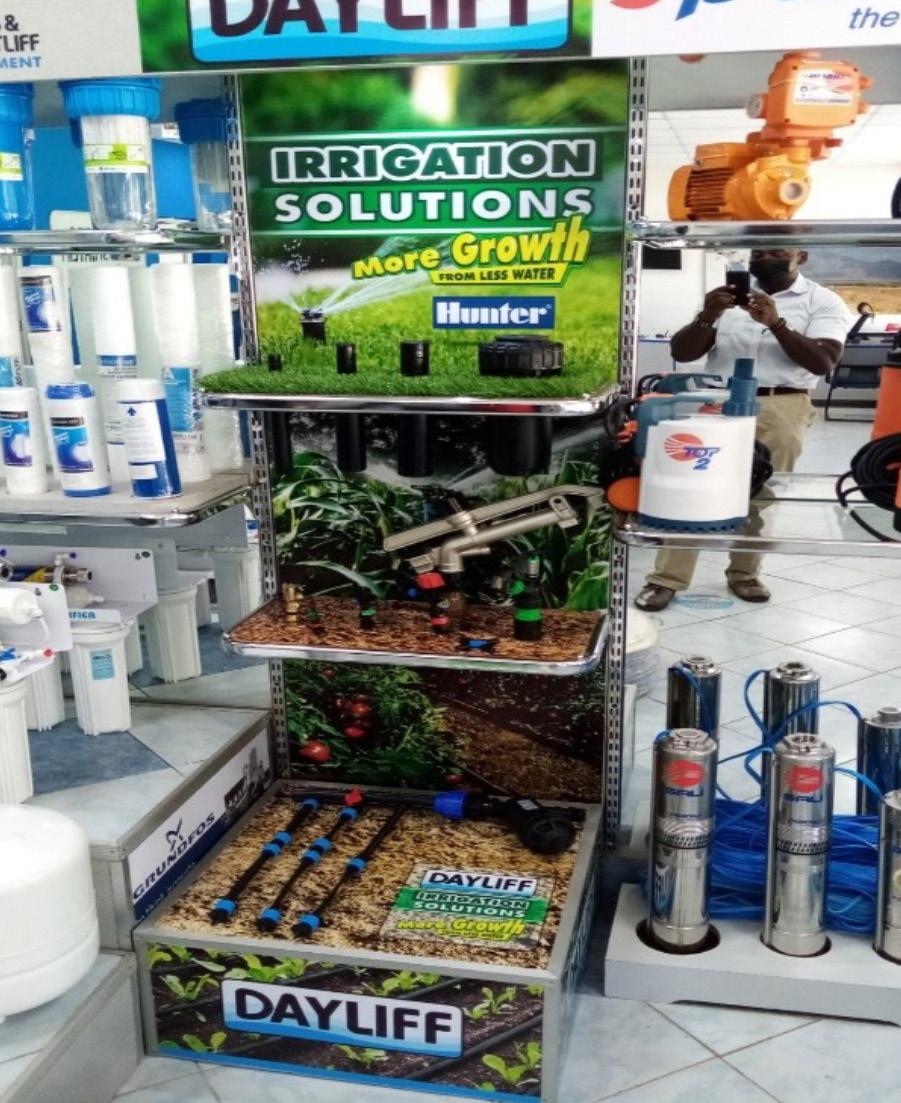
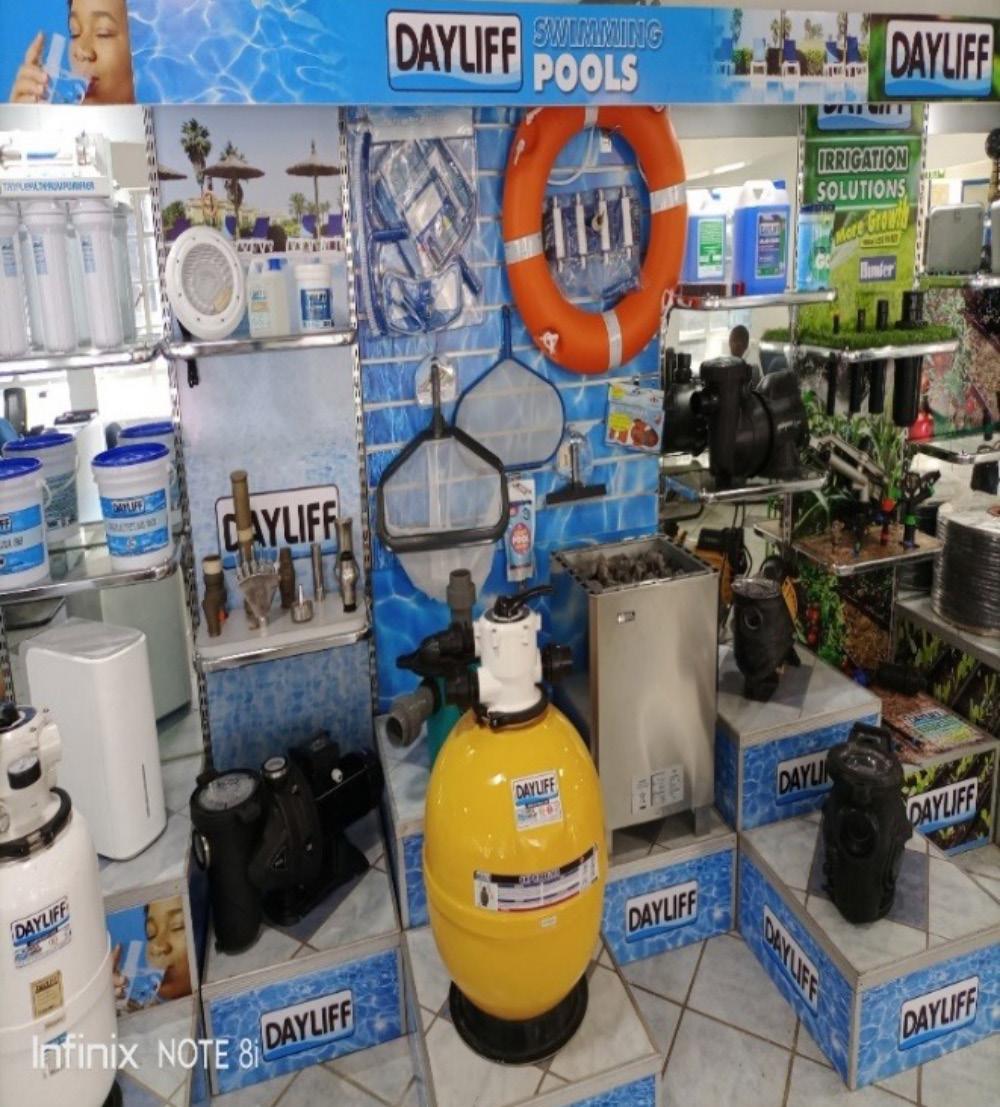



The provision of water is essential to socio-economic development.
Not only is it vital to maintaining human health and sanitation, especially in young children, but improved management and supply of water resources can contribute significantly to economic productivity.
“Water is an incredibly important commodity. Nobody could survive without water – no food would be produced, and no institutions, hospitals, schools or homes would be able to run,” states George Mbugua, CEO of Davis & Shirtliff (D&S) since May 2022.
One of East Africa’s greatest challenges today is the lack of clean water; this has, and continues to have, a devastating effect on economic growth. For disadvantaged people who need to spend a significant amount of time and energy each day to fetch water, which is not necessarily safe to drink, the opportunity cost is substantial.
In Kenya, where D&S is based, less than 60 percent of the population has access to safe drinking water,
George Mbugua, CEO, Davis & Shirtliff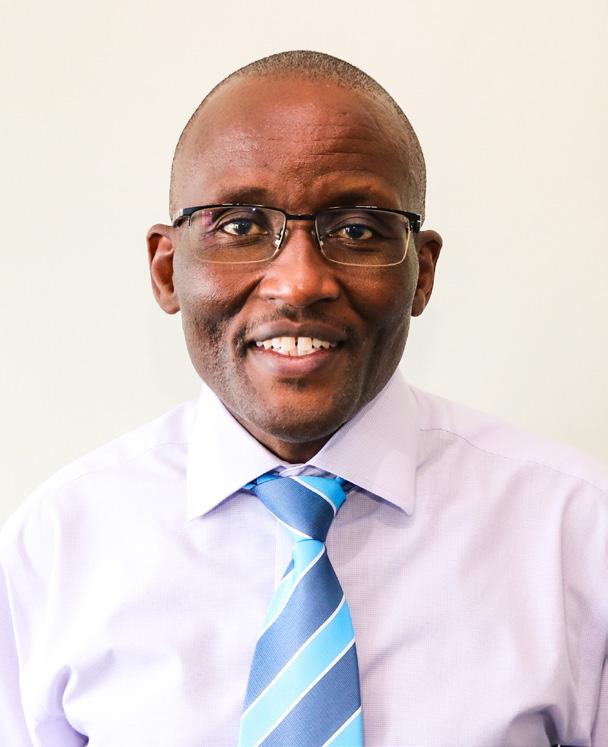
whilst just 29 percent of Kenyans have access to improved sanitation facilities according to UNICEF.
The market-leading supplier of water and energy equipment in Eastern Africa, D&S has been providing solutions in Kenya and throughout its network of regional branches for more than 75 years, to improve lives by addressing water accessibility and enhancing usage of renewable solar energy.
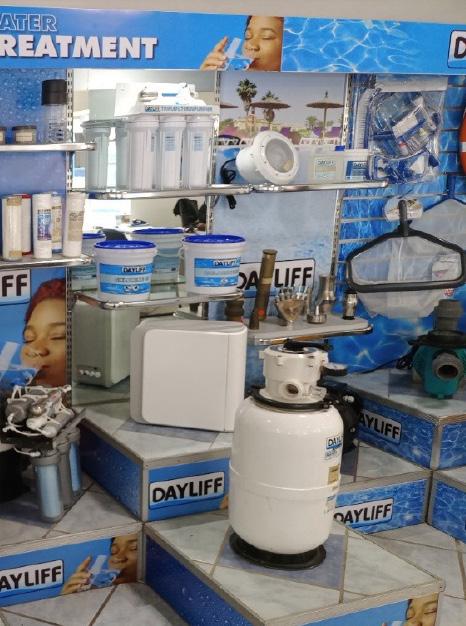
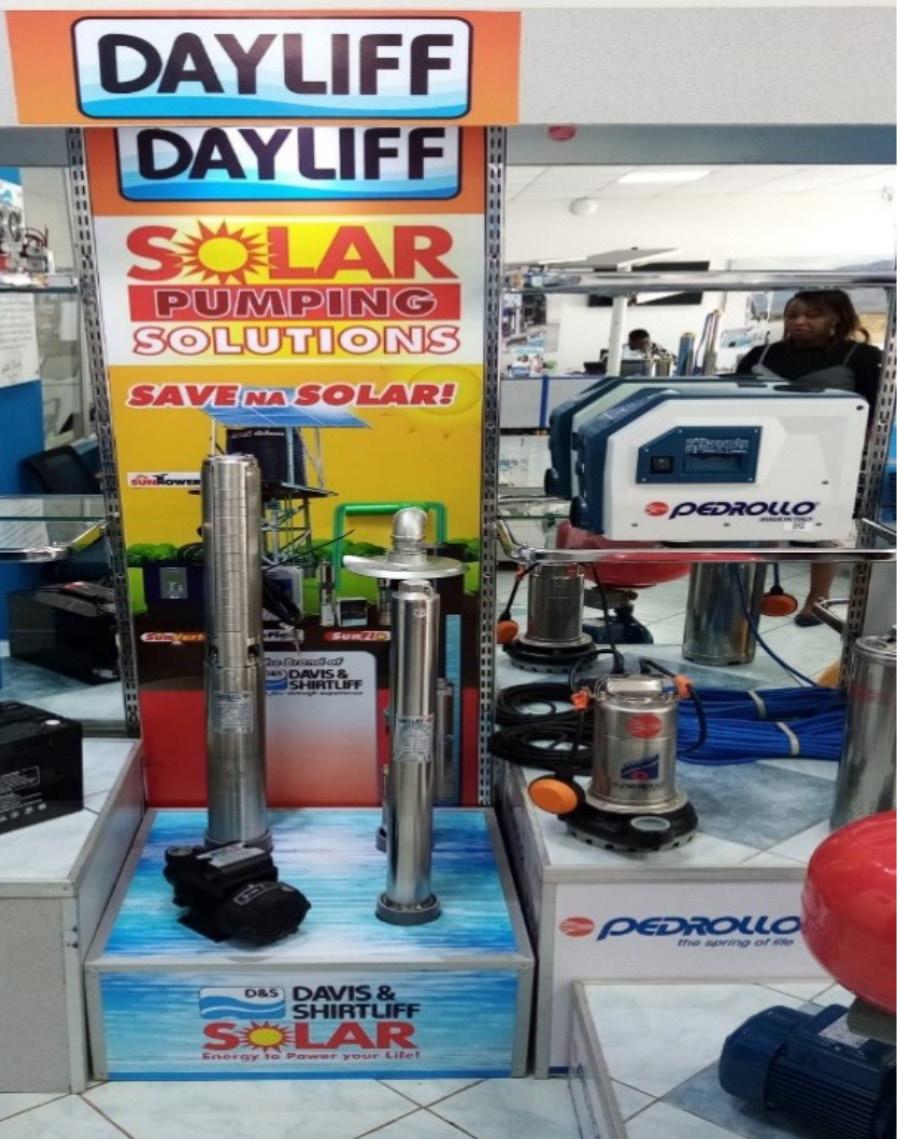
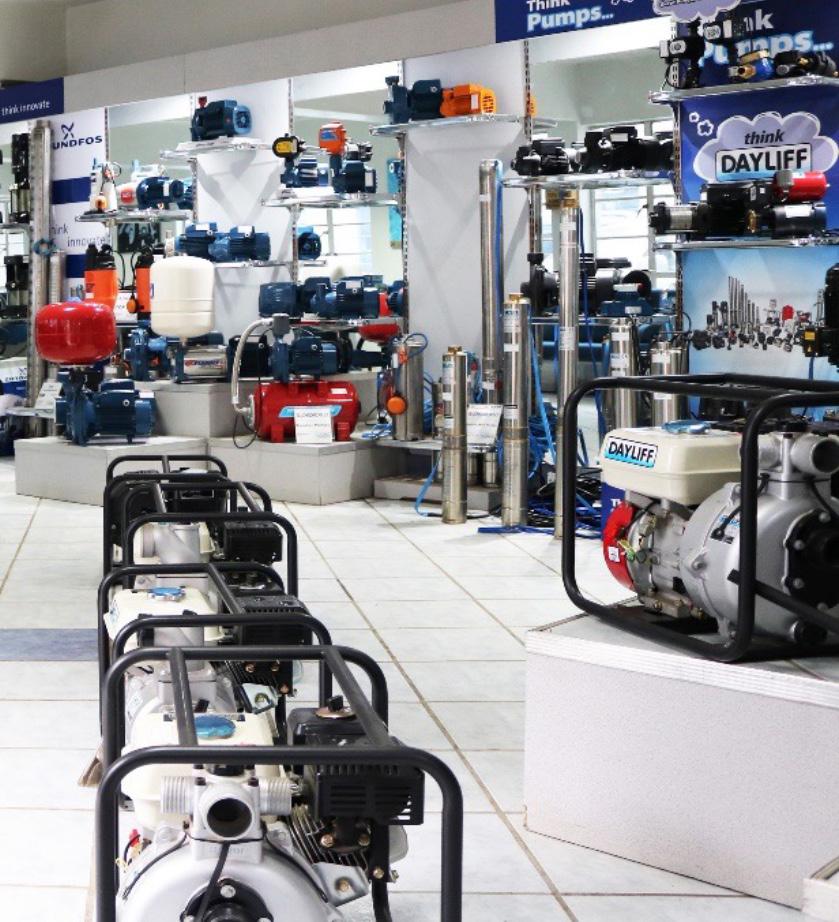
“Our purpose is to improve people’s lives through the provision of water, as well as energy solutions, across Africa. That is what we pursue in everything we do,” Mbugua says.
D&S is committed to playing a major role in the industry, by offering a comprehensive and competitive product range with regional availability and unrivalled technical and service support.
The company’s business activities are focused on seven principal product sectors: water pumps, borehole solutions, water treatment,
INTEGRITY – Sound business practices and dealing with all stakeholders, including suppliers, customers, staff, government, and the community with the utmost integrity.
QUALITY – Everything the company does must reflect the highest standards of quality, including products, customer dealings, systems, premises, staff presentation, and branding. An obsessive focus on quality is one of the most important attributes in building a competitive advantage.
‘ALTIORA PETO’ – A Latin phrase that means, “I seek higher things”. There is never an acceptance of the status quo, and change and improvement must be a continuous process.
swimming pools, generators, solar solutions, and irrigation.
“The solutions we are providing address the basic needs of human beings, so it’s a good industry to be in, especially in Africa where access to both clean drinking water and reliable, environmentally-friendly and healthy energy sources is limited.
“We have a young, growing population in Africa, so issues such as water availability and food production are at the fore. The solutions we provide ensure that people’s needs are taken care of; there’s a lot of potential here, and the industry is making a difference,” Mbugua continues.
Though D&S started out solely as a water solutions provider in 1946, the company today is also a leading regional solar industry player.
Mbugua notes increased competition from new entrants into the industry, and as a market leader, D&S has had to innovate with sustainable solutions such as solar power to stay ahead of the game.
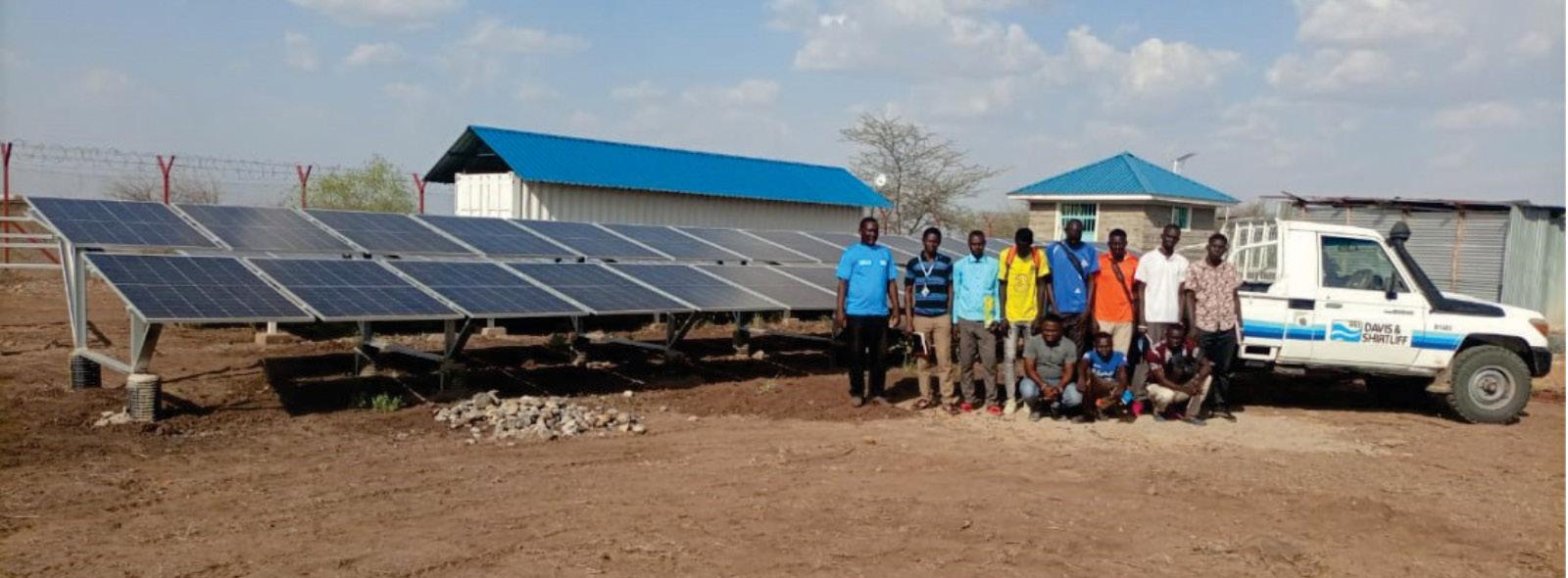
“When you’re in a market like this and there are new entrants, you’ve got to have ways of keeping ahead and expanding your product range and solutions to more sophisticated areas; this helps you to maintain or grow your market share,” he observes.
“Our core value of Altiora Peto, Latin for “I seek higher things”, is a call for continuous improvement. We continuously question the status quo and want to innovate and discover
Water is our most precious natural resource. In addition to its life-giving properties, water plays a critical role in production processes across the vast array of industries that underpin the modern world, from food manufacturing and paper production to drug synthesis and semiconductor fabrication.
Davis & Shirtliff has partnered with DuPont over the years in offering water purification solutions in many African Countries. In Kenya for instance, DuPont worked in collaboration with Davis & Shirtliff on a USAID-supported project to deliver clean and healthy drinking water to the Little Sisters of St Francis (LSOSF) Hospital Training Centre. Over half of the country’s groundwater sources contain fluoride concentrations above recommended levels, causing an estimated twenty million people to suffer from teeth and bone fluorosis; it was therefore unsurprising when water from a borehole initiated by LSOSF contained unsafe levels of the mineral.
The energy-efficient reverse osmosis system uses multiple technologies from DuPont Water Solutions to provide LSOSF with up to 44,000 gallons of purified drinking water each day, which the hospital also shares with local schools and the wider community. The DuPontTM ultrafiltration units used for pre-treatment allow the FilmTecTM reverse osmosis membranes to operate more effectively by reducing the risk of fouling, and the FilmTecTM nanofiltration train further enhances the purification and fluoride removal processes.
Multi-technology water treatment solutions from DuPont Water Solutions are unlocking water possibilities for communities in every corner of the world. Leveraging decades of expertise and innovation, DuPont works in collaboration with other water experts to deliver efficient and sustainable solutions and ensure a clean water future. www.dupont.com/water/
Solar
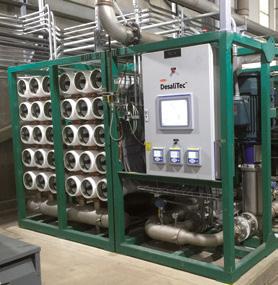


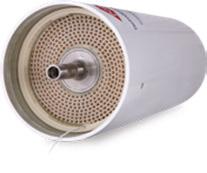
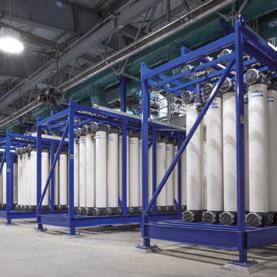


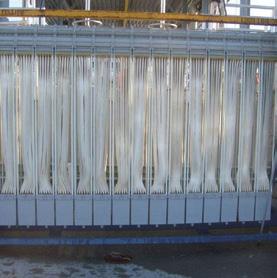
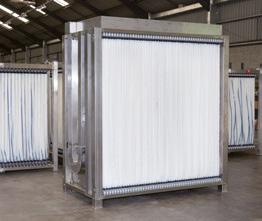

new approaches, so we challenge our people to come up with ideas and be innovative.
“Solar power is key, and is now a fifth of our business in terms of value. It’s an industry we went into 20 years ago and it has been growing exponentially,” adds Mbugua.
D&S’ solar water heating systems, for example, use energy from the sun to heat water for applications such as bathing, showering and hot taps, capitalising on Kenya’s abundance of sunshine for most of the year.
Then there’s solar lighting, one of the most environmentally friendly and cheapest lighting solutions, and solar-powered pumps, now firmly established as the technology of choice for water supply in remote offgrid applications.
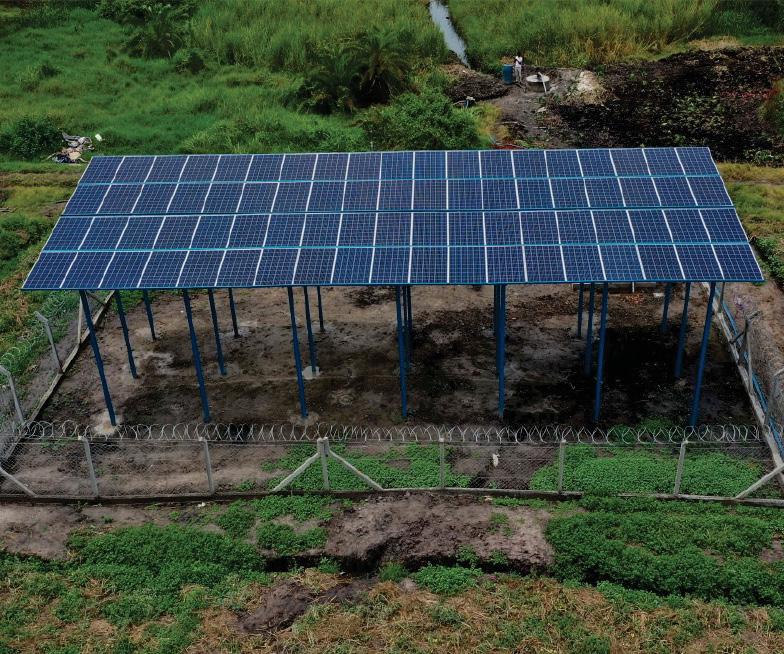
“Solar pumping has developed significantly over the last five to six years. Now you have huge pumps that can go hundreds of metres down, powered by solar. It’s really
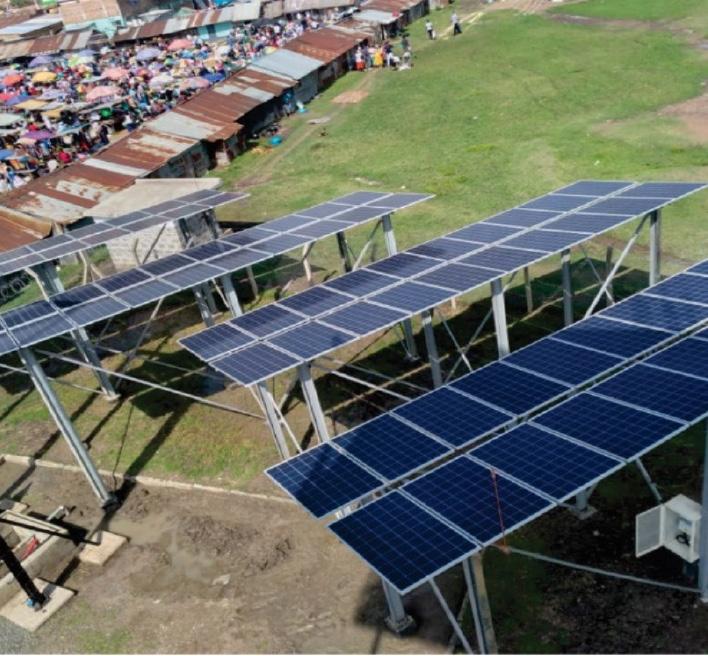
transformed the industry and enabled communities to access water in a sustainable manner,” Mbugua says proudly.
“Now we are seeing a lot of what we call project solarisation – new projects that want to deal with solar rather than grid power and the conversion of previously grid-powered projects to solar power. The capital outlay may be higher, but then the project can be sustainable over a much longer period of time.”
Mbugua expects the solar industry to improve by leaps and bounds in the coming years, and though its growth has come partly at the
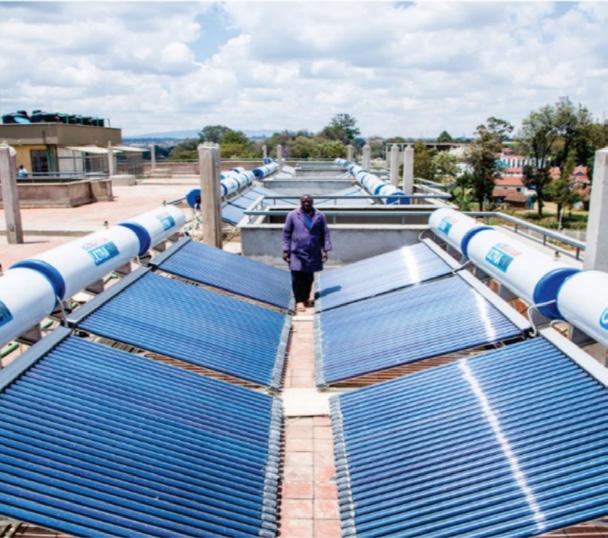
expense of D&S’ generators business, he recognises that solar is an enabler for the company’s compliance with global aspirations for a cleaner environment.
“Solar is going to be increasingly important, as people want to operate their economies without polluting the environment. People in Africa are also beginning to use electric vehicles, and they can use solar power to recharge their batteries.”
D&S’ latest business segment, meanwhile, is irrigation equipment. Water sprinklers, for example, are
Solar Powered Sprinkler Irrigation SystemLwabenge & Mabuye District, Uganda Solar Pumping SystemRodi Market, Homabay, Kenya Solar Water Heater InstallationPanorama Apts, Nairobi, Kenya

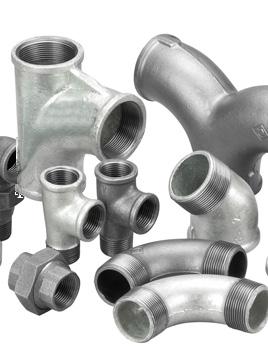


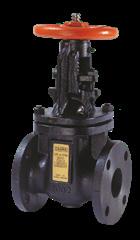



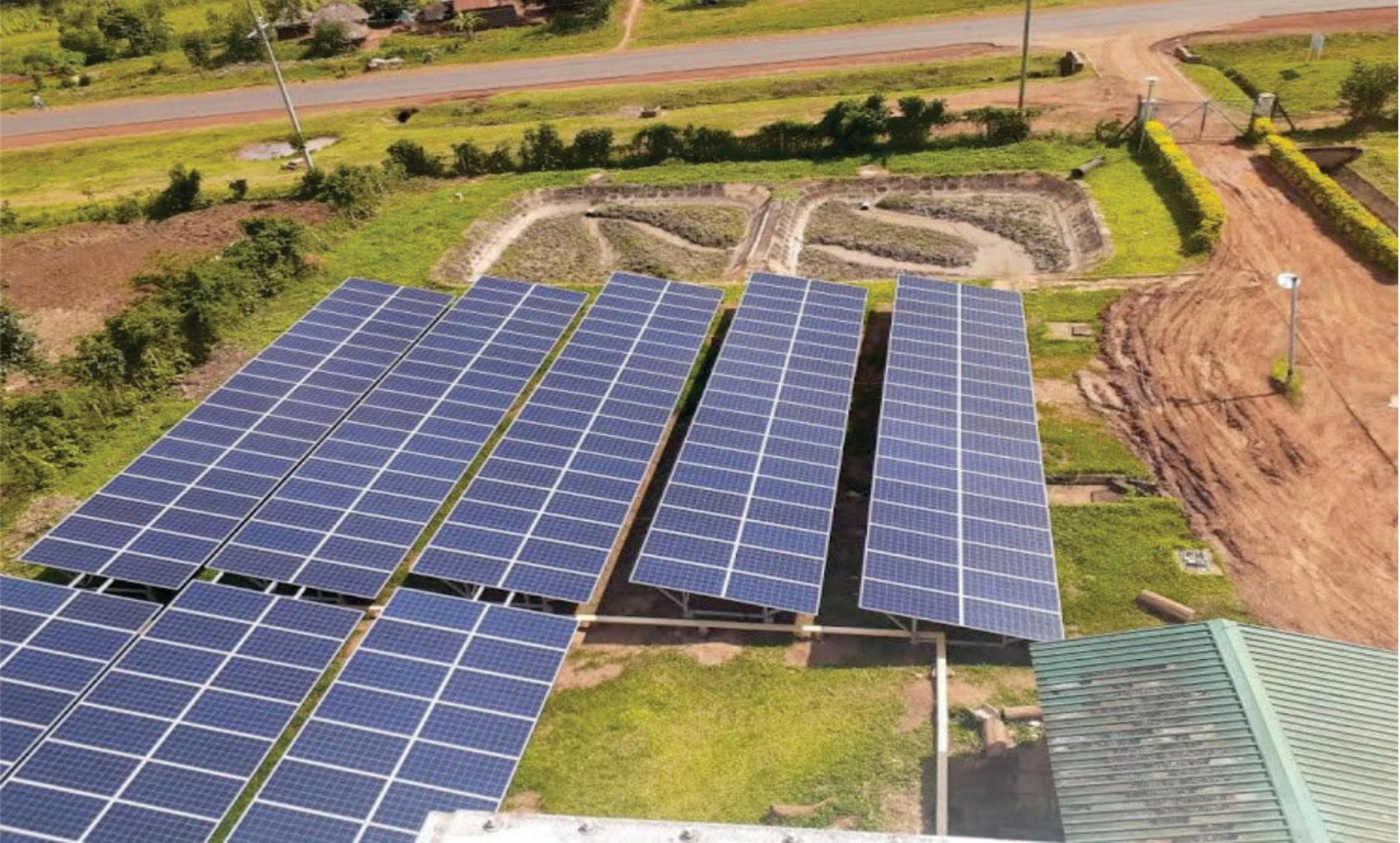
designed to meet varied irrigation requirements in agricultural and landscape applications, whilst drip irrigation fittings are manufactured to high standards to ensure efficient use of water.
Irrigation, together with industrial chemicals, are the new frontiers that D&S is looking at as areas of growth.
“We are looking at various irrigation applications, and we’ve done a few projects in public spaces. We also supply chemicals for water treatment and industrial applications. We’re looking to extend this range and add a
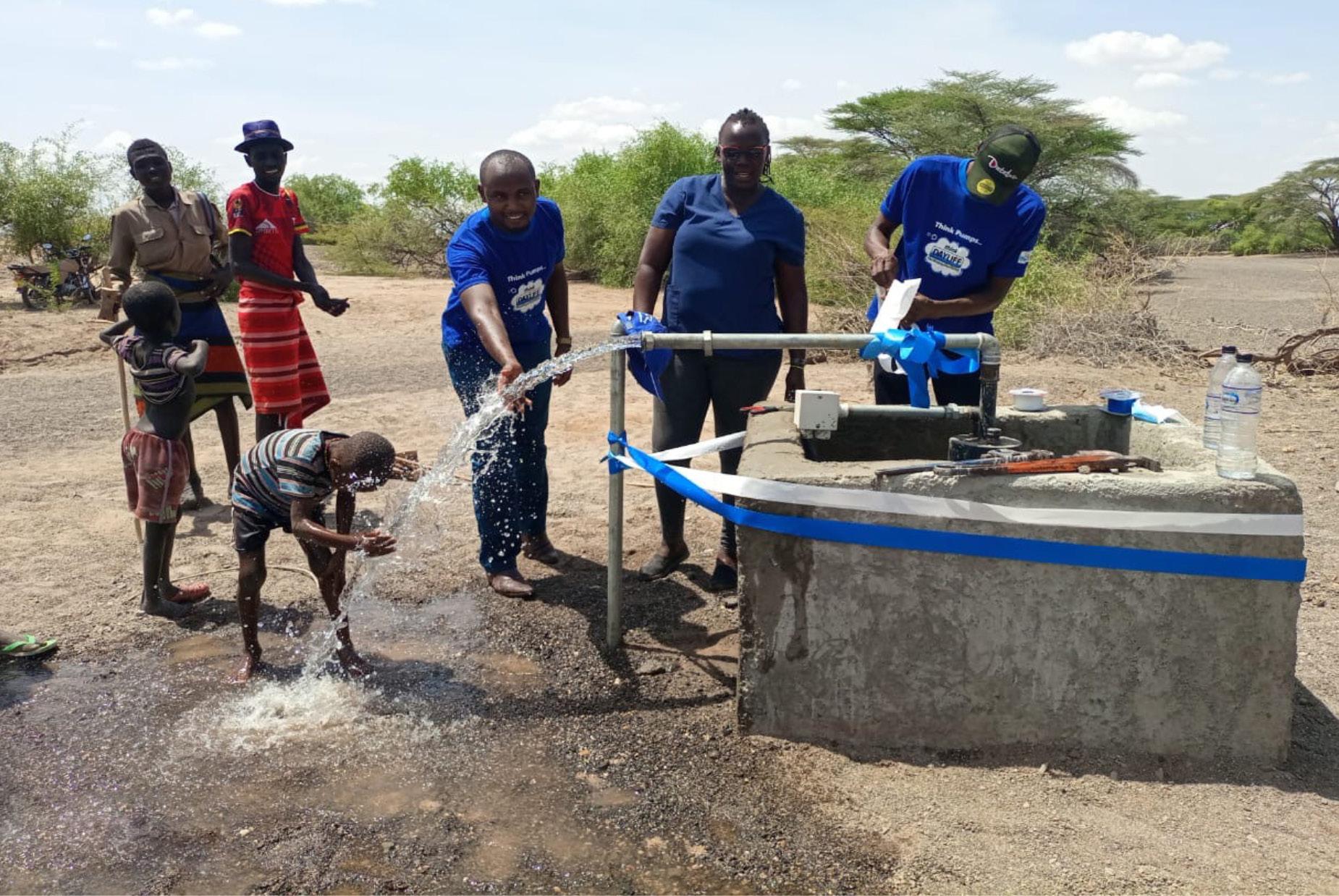
few products,” shares Mbugua.
Likewise, D&S has expanded its network of branches this year, opening another 10 in Kenya where it now has a total of 55 branches.
The D&S network is mainly concentrated in the Eastern Africa region, where it covers Uganda, Tanzania, Zambia, Zimbabwe, Rwanda, the Democratic Republic of the Congo (DRC), Somalia, and South Sudan.
New entities registered in Ghana and Senegal, however, represent D&S’ first foray into Western Africa.
“We’ve been doing business in those markets, so we know that there’s demand for our products in that area. If you look at Africa, you will not find another company that has a similar configuration of offerings, so when we go to such markets we do tend to attract quite some attention,” Mbugua tells us.
“We’re starting off in Ghana and Senegal for the moment, and we are also looking at some other countries in Southern Africa. We are establishing another supply hub in Zambia, which has eight neighbouring countries, to complement our strategically located Eastern and Central African hub in Nairobi.”
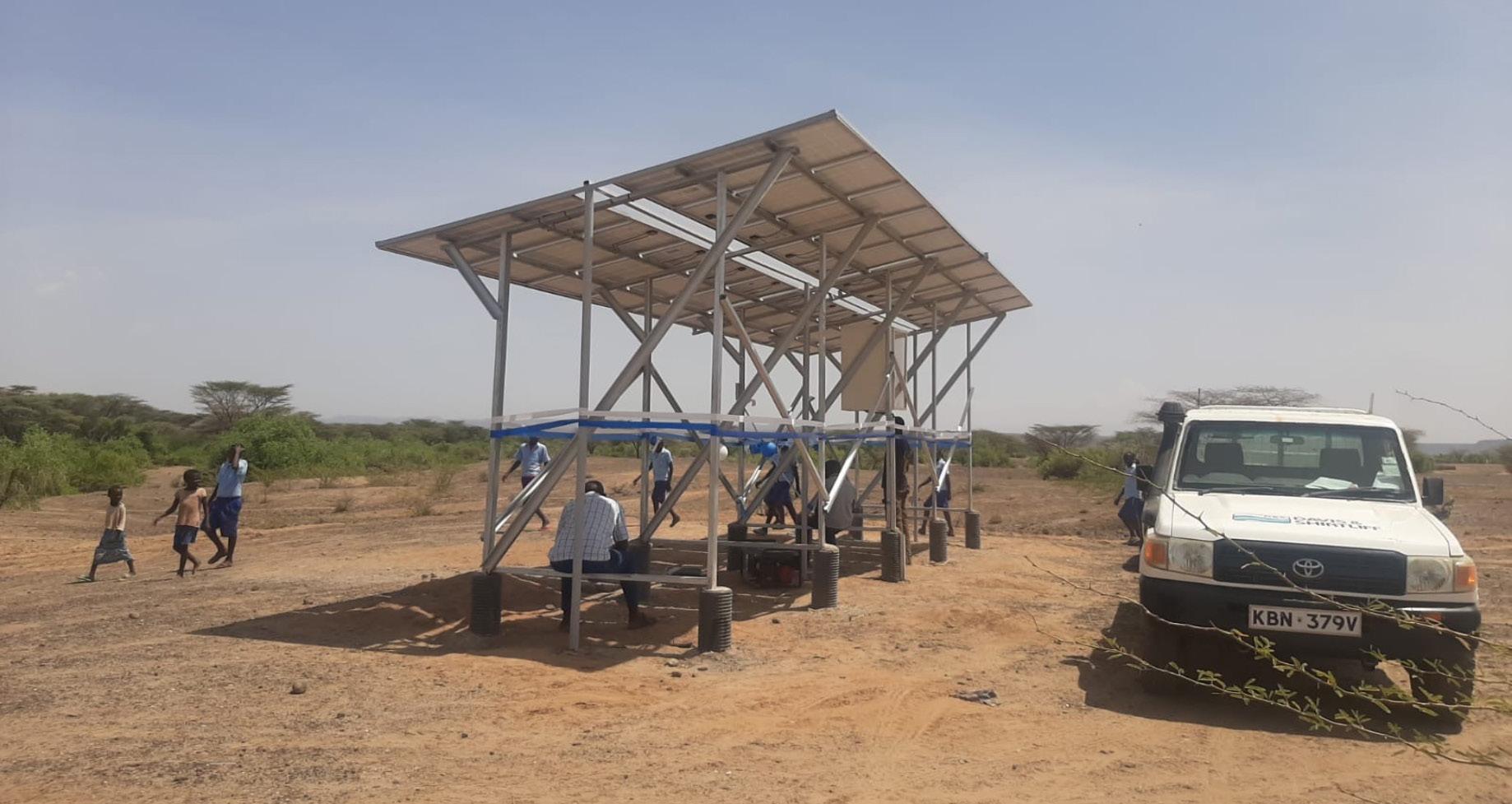
To exploit the full potential of these new and existing markets, D&S recently set up an International Business division.
“There is a lot to be done in countries such as Tanzania, Uganda, Rwanda, and even Zambia. These markets are not as mature as Kenya,
CSR Project - Katilia Girls Secondary School, Turkana County, donated a solar powered pumpwhich contributes the majority of Group revenue, so there is more potential for growth in these countries,” acknowledges Mbugua.
In March 2021, D&S officially inaugurated its impressive new Tatu Distribution Centre, the largest investment ever undertaken by the company that is set to revolutionise its distribution operations.
Located in the expansive, greenfield Tatu City development near Ruiru, some 25 kilometres from central Nairobi, the 10,000 square metre building sits on a five-acre site with room for further development.
As D&S’ distribution business has grown, this significant investment was driven by increasing congestion at its previous warehousing facilities in Nairobi.
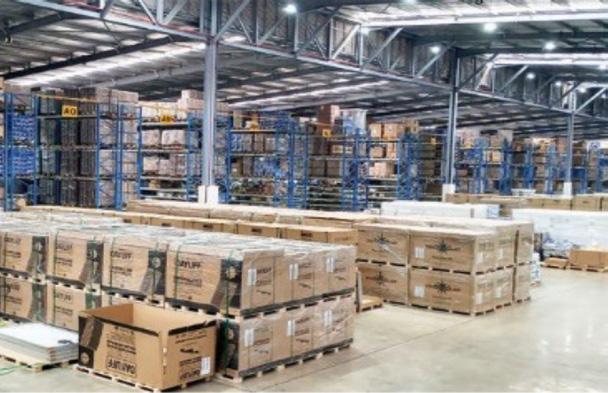
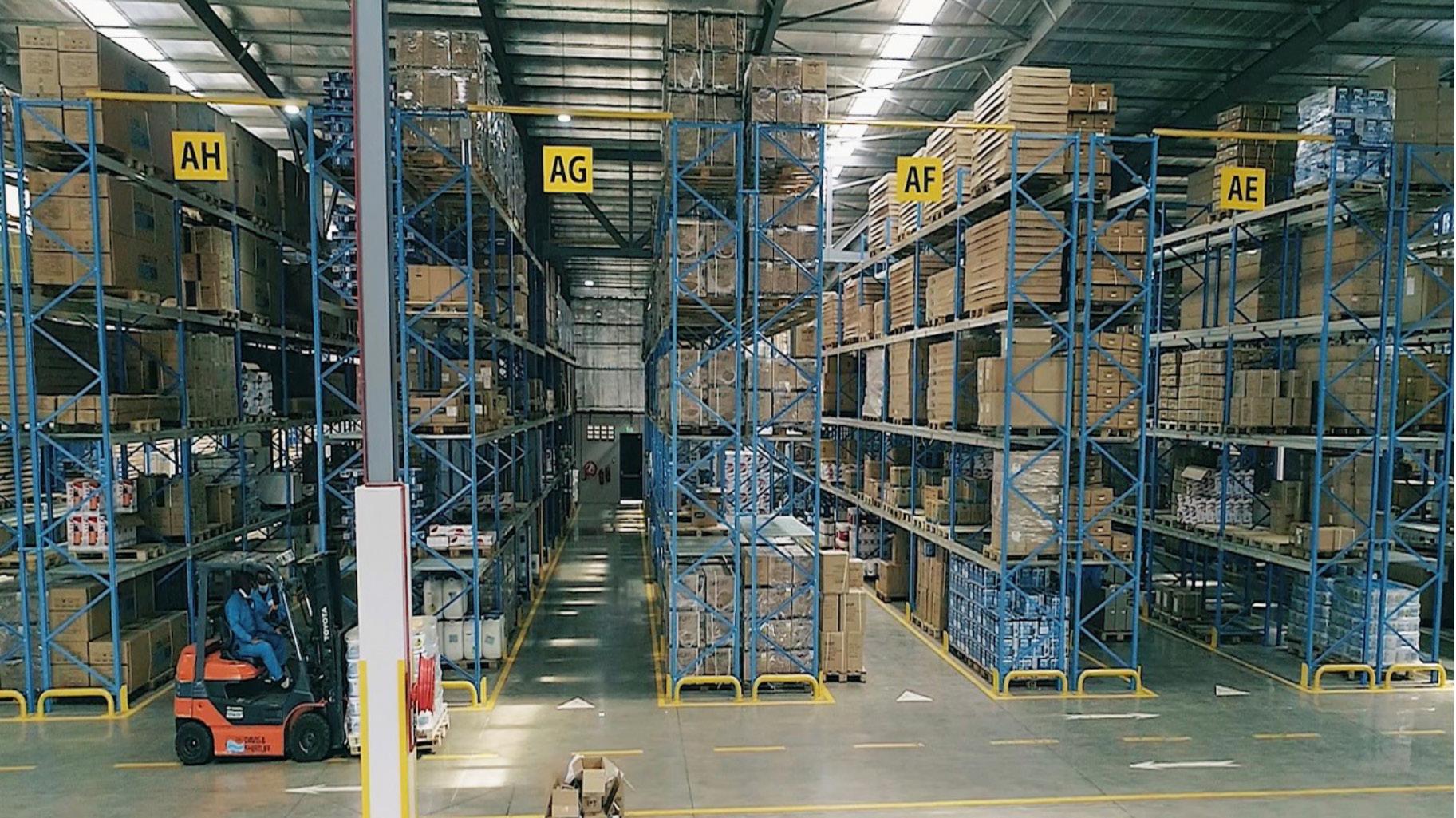
The large warehouse area features widely spaced racks, effective ventilation, six loading bays with dock levellers, and an office block complete with excellent staff facilities.
Efficient logistics and distribution are essential for a regional business such as D&S, and this excellent facility has raised the company’s customer service to a new level.
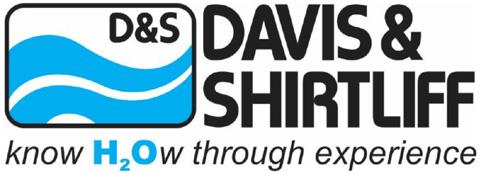
“The Tatu Distribution Centre has really enabled us to improve our customer experience. We handle a large volume of goods and equipment in and out every day, and this facility has helped us to do that more efficiently without needing to hugely increase our costs,” Mbugua acclaims.
“We fitted sophisticated software systems for managing the inventory, and for receiving, stocking and issuing orders, so orders are raised automatically and items are delivered to the logistics and dispatch area in a very efficient manner.
“It has improved our stock taking, stock keeping, and minimised stock losses. It has helped us to double the size of our inventory, putting
us in a different league in terms of availability, and obviously that has helped to maintain our growth,” he informs us.
An Engineering Centre of excellence is also on the cards for D&S, with land procurement underway and design concepts being drawn up.
“This is an area we want to develop, to have a centre for innovation and developing complex solutions. I expect that it will be up and running in the next year or so and will help us to raise our engineering standards. It will enable us to further differentiate the business from the competition and put us at a world-class level.”
In this new era for D&S with Mbugua fresh at the helm, the company is truly pursuing transformation.
Having worked heavily on operational efficiency, as evidenced by the new Tatu Distribution Centre, D&S is now focusing on digital solutions.
“Through digital transformation, we are looking to become a digital company,” Mbugua outlines.
“We have created a digital transformation committee, with the aim of developing the synergies and harmonies needed to become a digital company. We want to do our business online – the purchasing population in 10 to 15 years’ time will be dominated by digital-natives and familiar with online shopping, so we need to transform our digital assets, website, and online shops to meet their expectations.
“Engineering excellence is key, as well as the deepening of new segments we have entered into such as irrigation and industrial chemicals. All these added together with the continuous expansion of our equipment range will eventually help us to reach greatly increased revenue levels.”
Driving an enhanced future for African energy, East African Power is transforming communities and economies through its provision of hydro and solar power plants, alongside impactful social development. CEO, Dan Klinck, tells us more Writer: Ed Budds | Project Manager: Jordan Levey
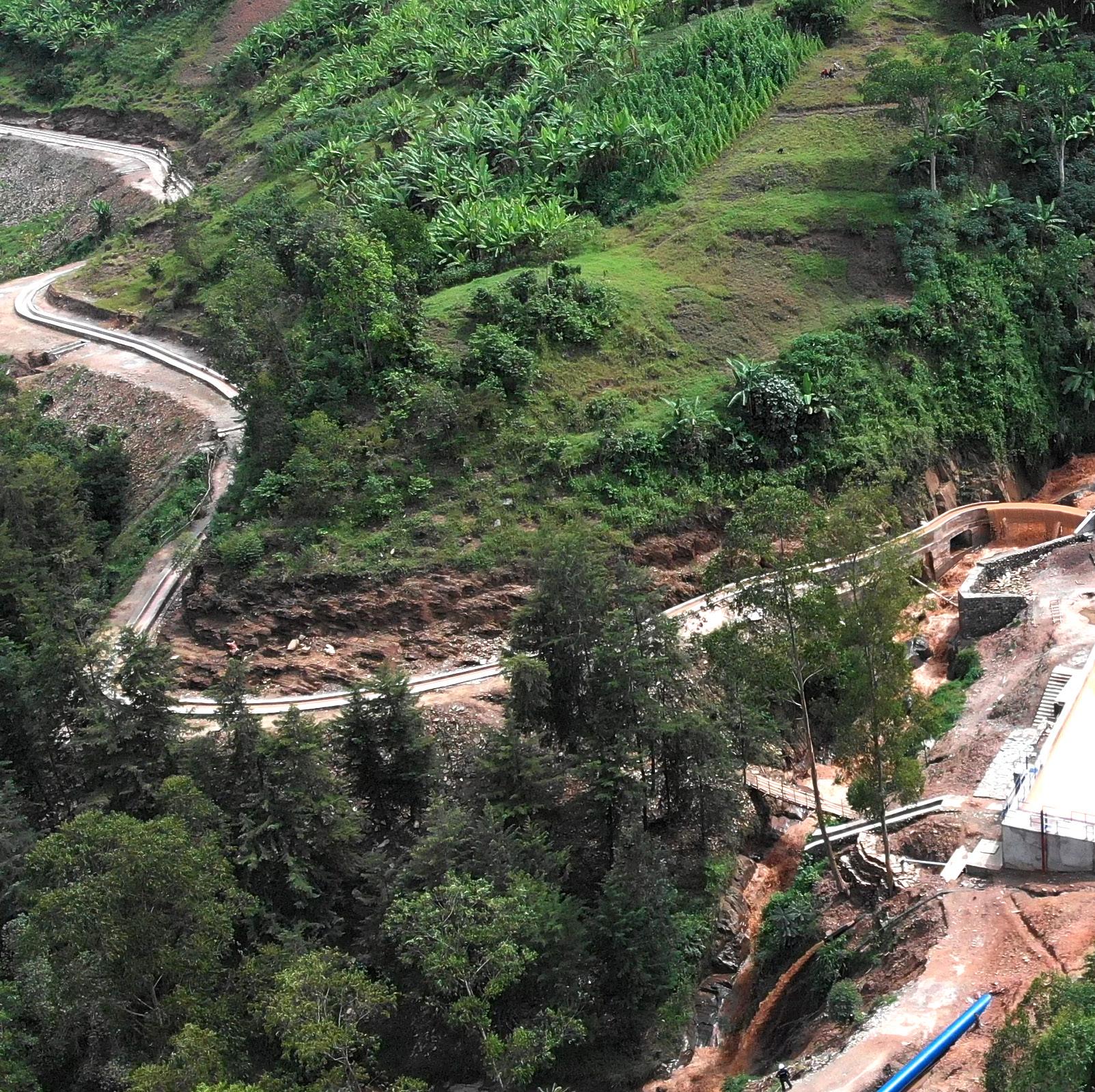
It remains so empowering every time we can make a difference in people’s lives.”
A passionate visionary and highly successful entrepreneur, as the Founder and CEO of East African Power (EAP), Dan Klinck provides the guiding direction for operations and brings a vibrant vitality to the company’s mission in helping to transform lives.
“My background was in finance, so naturally I expected to stay on that trajectory of investment making, but I was always intrigued with the possibilities of what I could do for people who are financially unstable, to help them in some meaningful way,” opens Klinck.
For the past 18 years, Klinck has worked as an entrepreneur and business executive, holding esteemed
leadership positions in a broad range of industries including energy, finance, manufacturing, biotech and construction in a variety of Asian, North American and African marketplaces. This is alongside the foundation of Empowering Villages (EV), a non-profit organisation focused on energy access, environmental sustainability and economic development.
“After spending time in Rwanda, a nation where at the time, only 15 percent of the country had access to power, I began to find that with every single investment opportunity I explored, nothing was viable without power. Without an affordable, reliable power supply, none of these businesses that I was looking into could run effectively,” he adds. It was this moment of enlightenment
that led directly to the formation of EAP.
EAP is an integrated renewable energy development and engineering company, delivering clean, affordable and reliable energy solutions. A long-term, social-impact-oriented Independent Power Producer (IPP), EAP specialises in the development,
design, construction, and operation of hydro and solar power plants in Africa.
As a company that develops projects from the ground up, EAP has the expertise to assist developers, public institutions, and private stakeholders at every stage of development, ranging from pre-development to operation and maintenance. The expert team comprises project managers,

engineers, environmental, finance and legal experts with extended experience in energy development across sub-Saharan Africa.

Klinck believes the energy industry in Africa is one of unrivalled excitement and potential for fulfilment.
“This is an absolutely thrilling industry to be involved in. At times it requires a real need for grit, determination and optimism, as projects can take a long time to come to fruition. However, it is an industry that rewards patience with a great sense of pride at what can be achieved,” he adds.
In 2012, Klinck found a developing hydropower project in Rwanda to
kickstart his entry into the energy industry. Accepting the immense chal lenge, he took over management and commissioning of the project, which offered a tremendous number of jobs and opportunities to the local commu nity. This social enhancement has since become a core philosophy for EAP’s model of sustainable development.
“Seeing what power could do from an infrastructure perspective, really opened my eyes,” he affirms.
EAP must remain flexible to its clients’ needs and the governments it works with. The optimism of its CEO is reflected in the uplifting feel around the business at present as the company has grown steadily to become an established player in the
African industry and aims to continue this exponential growth over the next 10 years.
The main challenges encountered, which EAP constantly battles against, are threefold in this sector. First, EAP is battling with the rising cost of materials and logistics while there’s continue downward pressure on tariffs. This is alongside the significant stumbling block of being able to deliver affordable power, when the cost of capital is so high in riskier frontier markets such as The Democratic Republic of Congo (DRC), Central African Republic or Somalia all while bearing the cost of dealing with challenging and fragmented regulatory environments.
“EAP is proud to be truly catalytic in providing electricity and how that helps in tackling poverty, and powering economies,” Klinck explains.
“We are excited not simply by the provision of power across Africa but by what that power can do for communities. Nothing beats that feeling of being in a remote village somewhere and seeing the lights turning on for the first time.”
A major focus moving forward for EAP is the Bihongora Multipurpose Hydropower Project. This ambitious initiative will combine a hydropower plant with a sustainable agriculture business programme and a local mini-grid with productive use equipment in the heart of the Rubavu District of Rwanda. The 4.2 megawatt (MW) run-of-the-river plant will have a hybrid intake structure that includes irrigation of a women’s agriculture coop, which will grow high value crops and process them locally thanks to EAP’s EMPWR Pod successfully tried and tested during
the Utilities 2.0 pilot with Power for All in Uganda. The project also includes a 50 kilowatt (kW) mini-grid that will supply affordable energy to a MicroIndustrial Park and an EV Centre, which will include a multipurpose community building, a library and learning centre, and an agricultural centre of excellence. The community empowerment and growth aspects are fully realised and will be integrated into the project.
The hydropower plant will produce 25 gigawatt hours (GWh) of electricity annually, which will mitigate 13,600 tonnes of CO2e. Bihongora will also provide 1,100 direct jobs for locals during construction and aims to deliver a large impact on socioeconomic development. For example, the Women’s Agriculture Cooperative Program will create jobs and stimulate women’s economic empowerment. Elsewhere, the mini-grid will provide energy to local micro-businesses, and the community centre will develop social and educational initiatives. The project brings a ground-breaking, inclusive and community-based approach to hydropower planning
and development, aligned with the core beliefs of EAP.
“Bihongora will provide an excess of new jobs in the local area during construction and therefore marks a proud achievement for us in Rwanda,” notes Klinck.
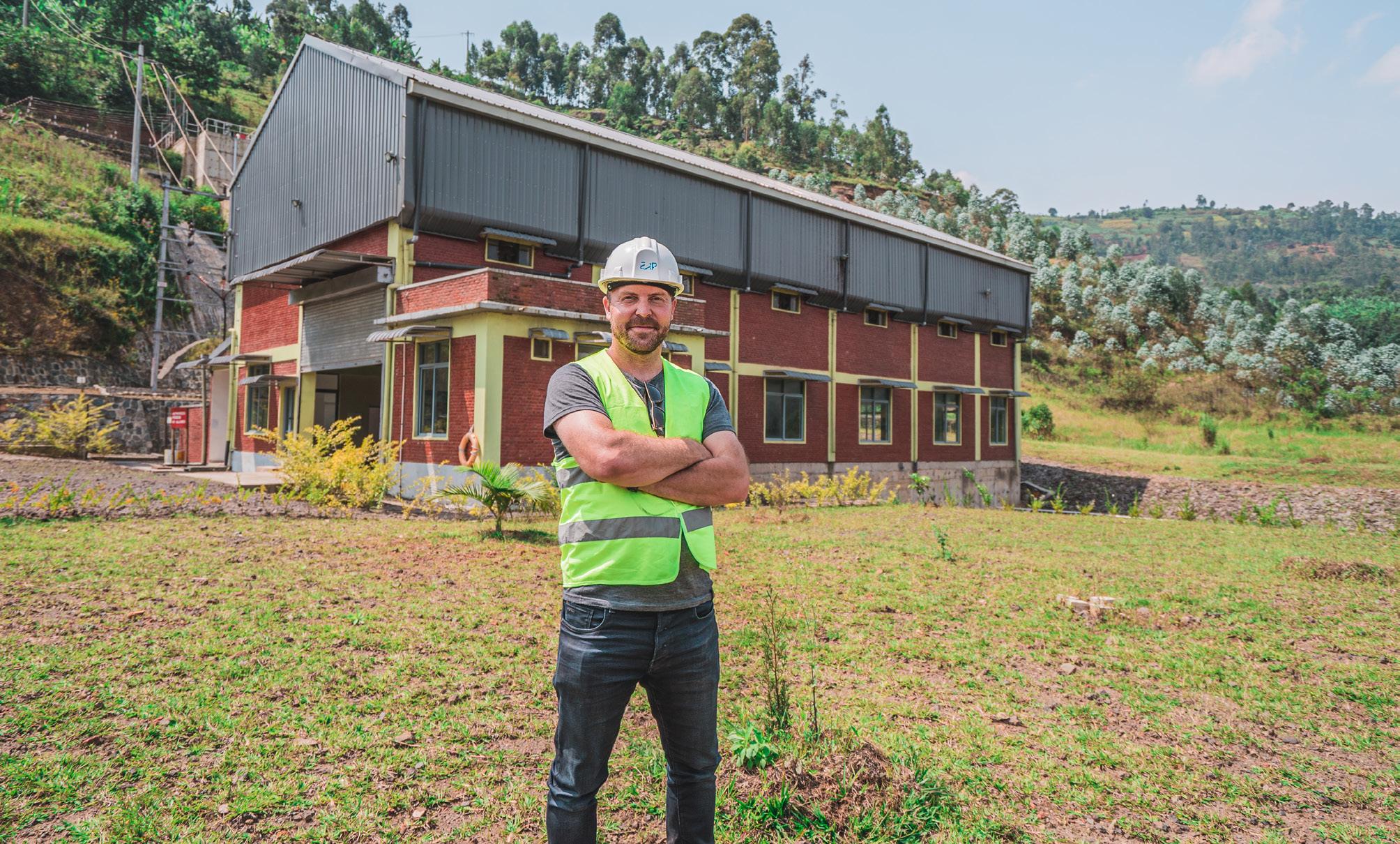
EAP is extremely proud of the crucial role it played in the creation of EV. The company’s corporate social responsibility projects led to the birth of EV in 2020, with the support of EAP’s investors, an opportunity to branch off and create a separate non-profit organisation was then developed. There is an important need for EV as a new organisation, to focus on collaborating with local communities to implement next-generation utilities, incubate strategic enterprises and leverage technology to unlock new opportunities.
“The mission statement of this project is to build value for villages through lasting utilities and profitable enterprises that radiate light and life,” explains Klinck.
Dan Klinck, CEO, East African Power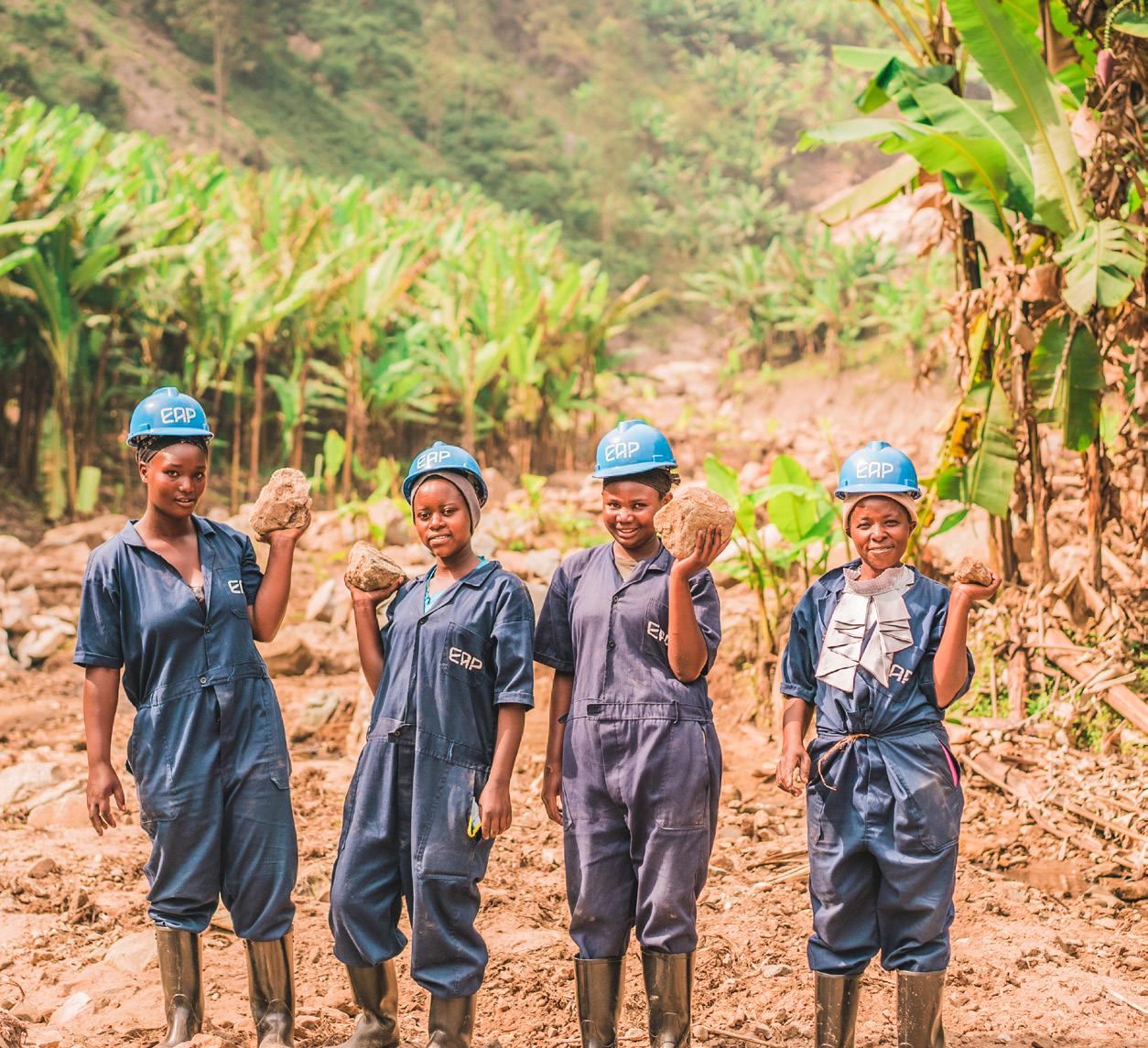

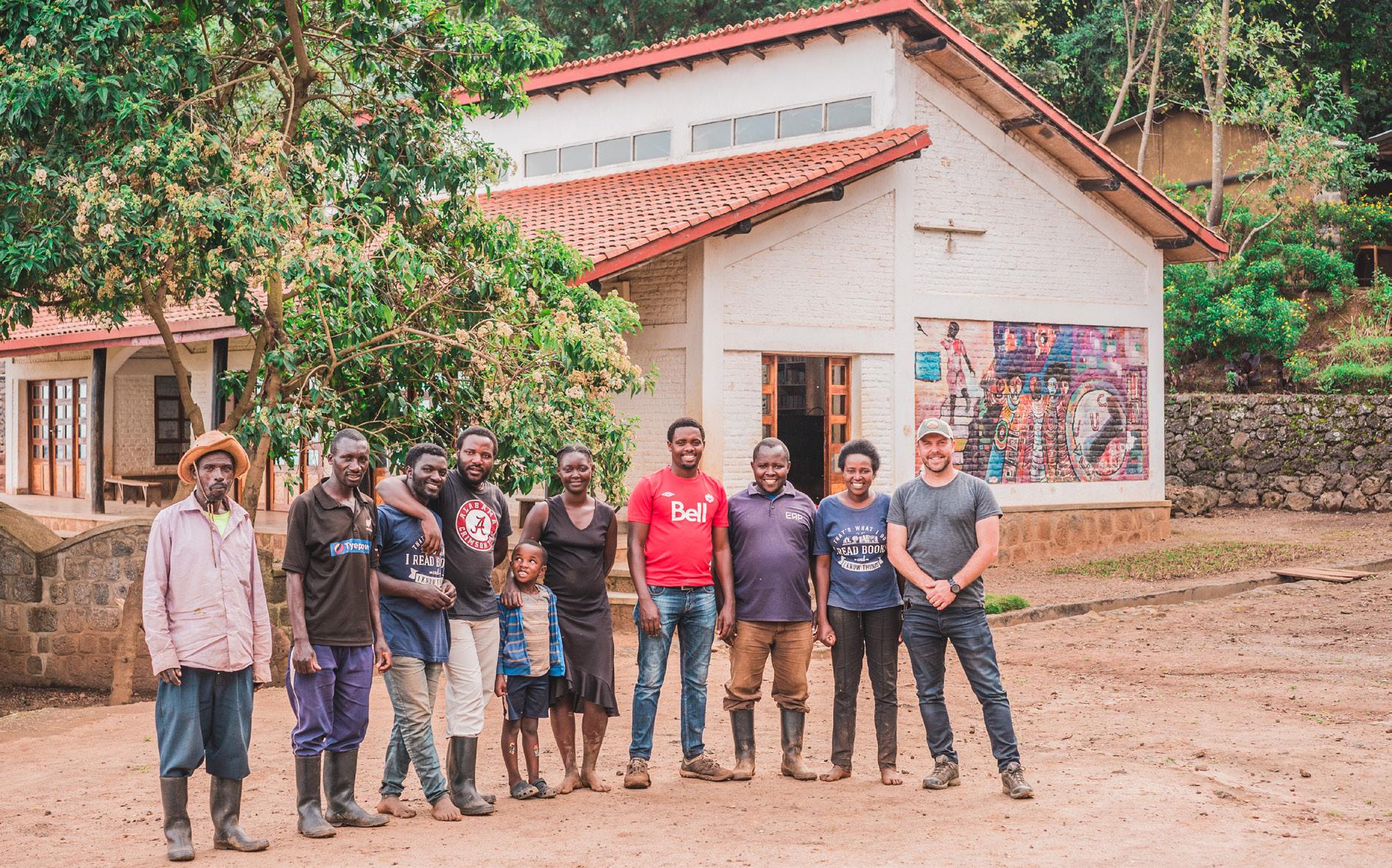
KGM Africa (KGMA) is a renowned Construction / Structural Engineering company that acts as a subsidiary to both KGM Engineering and KGM Europe, accumulating 20+ years of construction experience with a unique approach to costefficient engineering solution with combined specialties specific to structural engineering such as bridge, tower, geostructural engineering and renewable energy.

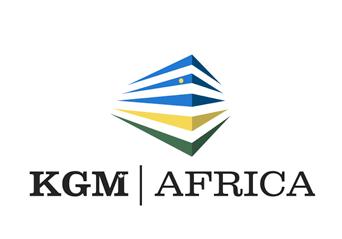
KGM Africa continues to bridge the gap between construction and engineering one design at a time.
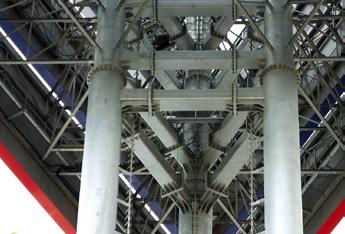

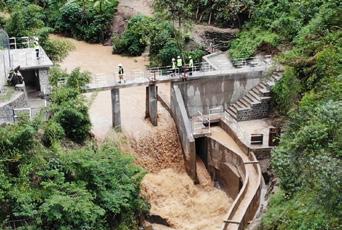

With the help of visionary entrepreneurs such as Klinck, EAP and EV now share a special bond, collaborating on multiple projects to create value and empower villages across Africa. Heading into a bright, power-filled future, every EAP utilityscale project will include an EV project to accelerate access to electricity and develop local enterprise.
Additionally, EV is developing a new model, the EMPWR Hubs, to leverage local access to power and available resources to stimulate the microeconomic environment.
With 100 members of staff involved in the core business, and around 100 more hard working members of EAP involved with subsidiaries and partner businesses, staff retention is of vital importance to the company as it takes time to develop the level of expertise
which is required.
“Our staff are vastly experienced, with some members possessing up to 40 years of industry experience,” states Klinck.
“We encourage all of our staff to continuously seek personal and professional development, and to get involved with community and social programmes such as access to water and electric cook stove start-ups,” he continues.
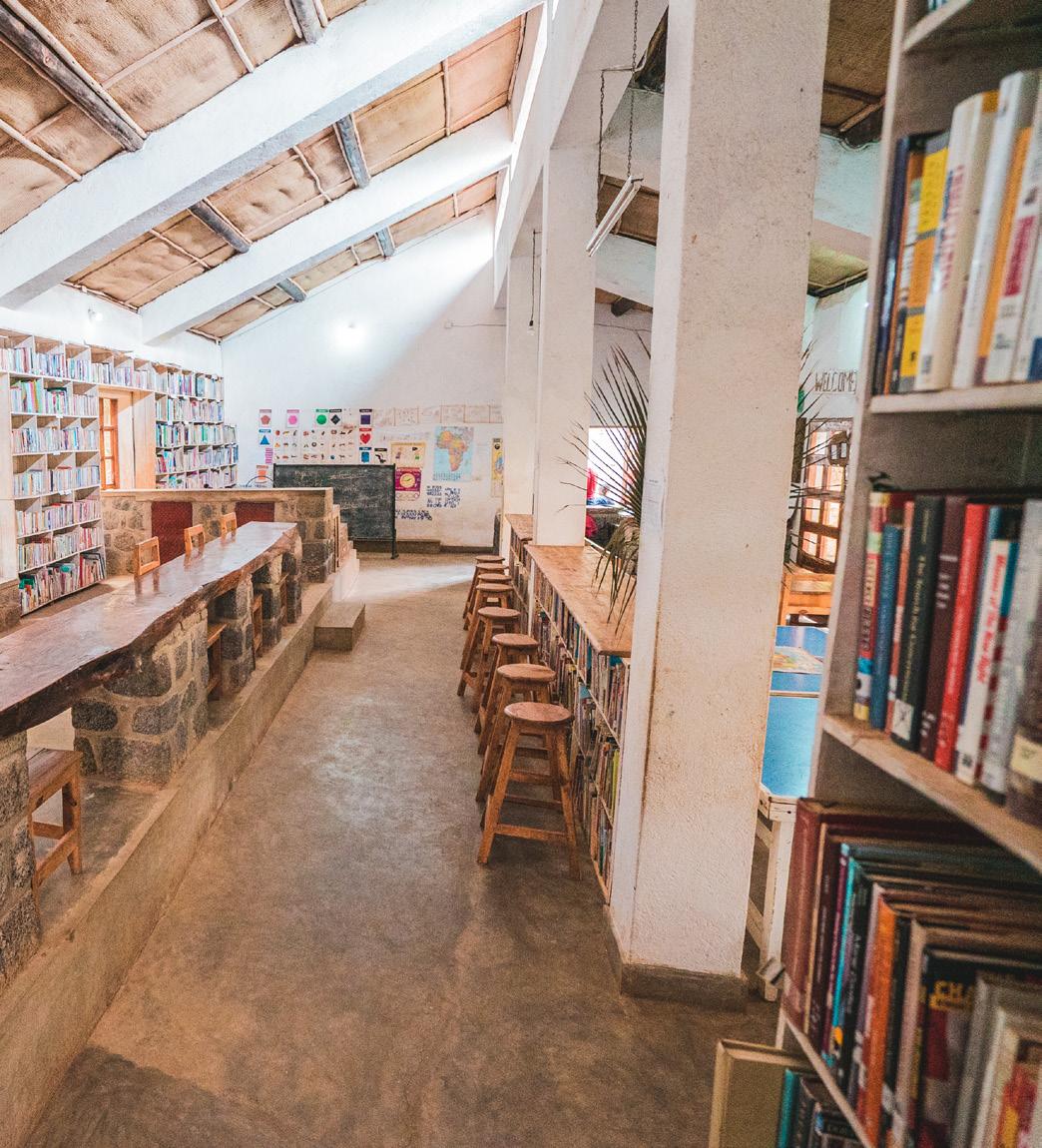
During the COVID-19 pandemic, EAP decided to further retrain and develop staff, even throughout the enforced shutdown of operations. Not a single staff member was dismissed during this chaotic time, and the company instead opted to proactively take advantage of this opportunity for development across every area of the business.
“In 10 years, we’ve realised 10 projects, and we have 50 more in our current pipeline, placing us on a great
trajectory to of achieving 1GW by 2030.”
Now that operations within the industry are back in full swing, the next year for EAP is all about entering the execution phase of all current projects.
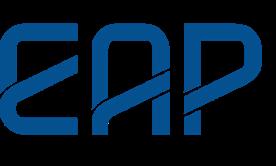
“The next 12 months should see the conversion of our now extensive portfolio into the construction phase of development across all proposed works,” he adds.
“Being able to develop a business which can give back, and has a high social impact, has been truly awesome,” Klinck concludes with contagious enthusiasm.

Agriculture is at the heart of African industry.
The sector is responsible for approximately 44 percent of the continent’s total employment, supporting millions of families and livelihoods in each of Africa’s countries.
In the face of a growing population, agriculture is key to increasing the welfare of Africa both in the sense of helping stave off poverty and hunger, and boosting the economy via trade. It is critical that the sector makes use of available tools and products to help secure agricultural production for the betterment of the continent.

At the centre of maintaining agricultural growth, fertiliser products become critical to the modern-day food chain.
Karel Viviers, Head of Marketing“Since fertilisers are dependent on the global commodity market, the COVID-19 pandemic and the recent conflict in Ukraine have put the industry under severe pressure. Supply chains have been unstable, and pricing has been exceptionally volatile. Despite these challenges, doing business in Africa is investing in the future; it’s the continent with the biggest opportunities for driving high growth, uplifting millions of people and trading in a beautifully diverse environment.
Agriculture, and therefore fertiliser, sits at the heart of this potential prosperity.”
“The agriculture industry has shown strong growth in recent years, indicating a clear need for control over improved crop yield and crop quality among farmers, and a need across government, commercial and small-scale segments,” begins Karel Viviers, Head of Marketing at Meridian Africa.

The Meridian Group of companies specialises in the manufacture and distribution of fertilisers and agricultural commodities across Malawi, Mozambique, Zambia and Zimbabwe. The head office is based in Mauritius, and from there the group facilitates distribution throughout Southeast Africa.
“We supply customers of all sizes, from small-scale farms to commercial farming enterprises, nongovernmental organisations (NGOs) and government growing schemes,”
African agriculture is critical to welfare and growth across the continent. We take a look at the Meridian Group and speak to Karel Viviers, Head of Marketing, about the company supplying fertiliser key to farming success
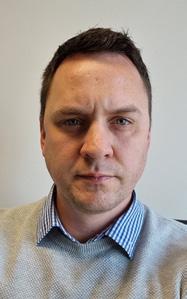
KAREL VIVIERS, HEAD OF MARKETING: “The majority of my career has been in strategic marketing in the multinational fast moving consumer goods (FMCG) space. I believe FMCG is the best learning platform for any marketer due to the complexity, pace and high demands. I’ve built on that by broadening my focus with academic lecturing, business consulting and even an entrepreneurial venture before finding my way to the Meridian Group.
“Fertiliser is an exciting and meaningful industry. Once you get beneath the surface (pun intended), it is fascinating. It has a massive impact in redistributing key nutrients to soils around the world where there is a deficit, thus aiming to balance soil profiles. Considering the planet’s climate change challenge and how much harder developing nations are hit with food security constraints, I realised this was a big and meaningful opportunity to pursue.”
Viviers says. “Our flagship brand of fertiliser is Superfert Fertilizer, the formula for success for farmers. Our offering goes beyond just fertiliser; we provide fertiliser programmes which include agronomy support and retail access to provide a successful harvest.”
Through the Meridian Group’s Farm Services Unit (FSU), farmers enjoy the benefit of soil sampling and agricultural advice and guidance. The company has 120 extension officers known as “Agronauts”, operating in Malawi, with smaller agronomy teams in the other markets. With the latest science and technology, the Meridian Group offers advisory services to small-scale farmers to make improved, data-driven decisions to achieve greater outputs. The company’s agronomists and representatives conduct educational talks and training, as well as farm visits.
By providing the necessary knowledge and support, the Meridian Group’s agronomists are encouraging agricultural transformation across Southeast Africa by augmenting subsistence farming, which in turn helps alleviate poverty and contributes to food security. Soil
science is also key to Meridian Africa’s fertiliser trade, and the company offers a soil testing service which allows for zone-specific solutions, while its team of agronomists handle the farmer training and organise clinics, soil testing, data collection and technical advice across the region.
“Our focus is on enhancing knowledge, sharing skills and creating jobs in the communities we work amongst. Our agronomists offer technical and practical advice to farmers to get the best yield from their crop,” Viviers tells us.
“With just over 3,000 employees in our operations, our mission is to lead the fertiliser industry in Africa, and enable it by maximising access to global commodities that provide local growth and ultimately improve continent-wide food security.”
By the nature of the company’s goal to improve food security, the Meridian Group works closely with businesses, small-scale farmers and local communities.
“We have contributed to government initiatives over the years in our markets and aim to continue
At Cosmocel, our core focus is to support our farmers to increase and ensure their profitability and yield through unlocking the soils true potential.
This is achieved by using world leading green bio-technology and organic processes to increase nutrient availability, increased plant resistance and overall crop and soil health.
We have been in partnership with Meridian subsidiaries over the last five years enhancing the nutritional management of a number of different crops in multiple regions, aligning with a shared core focus of sustainable agriculture.
Farmers World has rolled out Malawi’s largest soil testing programme using Cropnuts’ FarmLab soil testing platform, with over 30,000 smallholder farmers getting access to affordable, site-specific soil health and fertiliser blend recommendations.
Through our partnership, Cropnuts is equipping Malawian farmers with datadriven soil fertility recommendations for efficient and profitable farm management. The recommendations provide balanced liming and fertiliser programmes based on the farmers’ soil nutrient data.
The Cropnuts FarmLab service also offers regional and national soil mapping survey services to provide vital soil fertility information to policymakers, agricultural project managers, and fertiliser industry stakeholders.






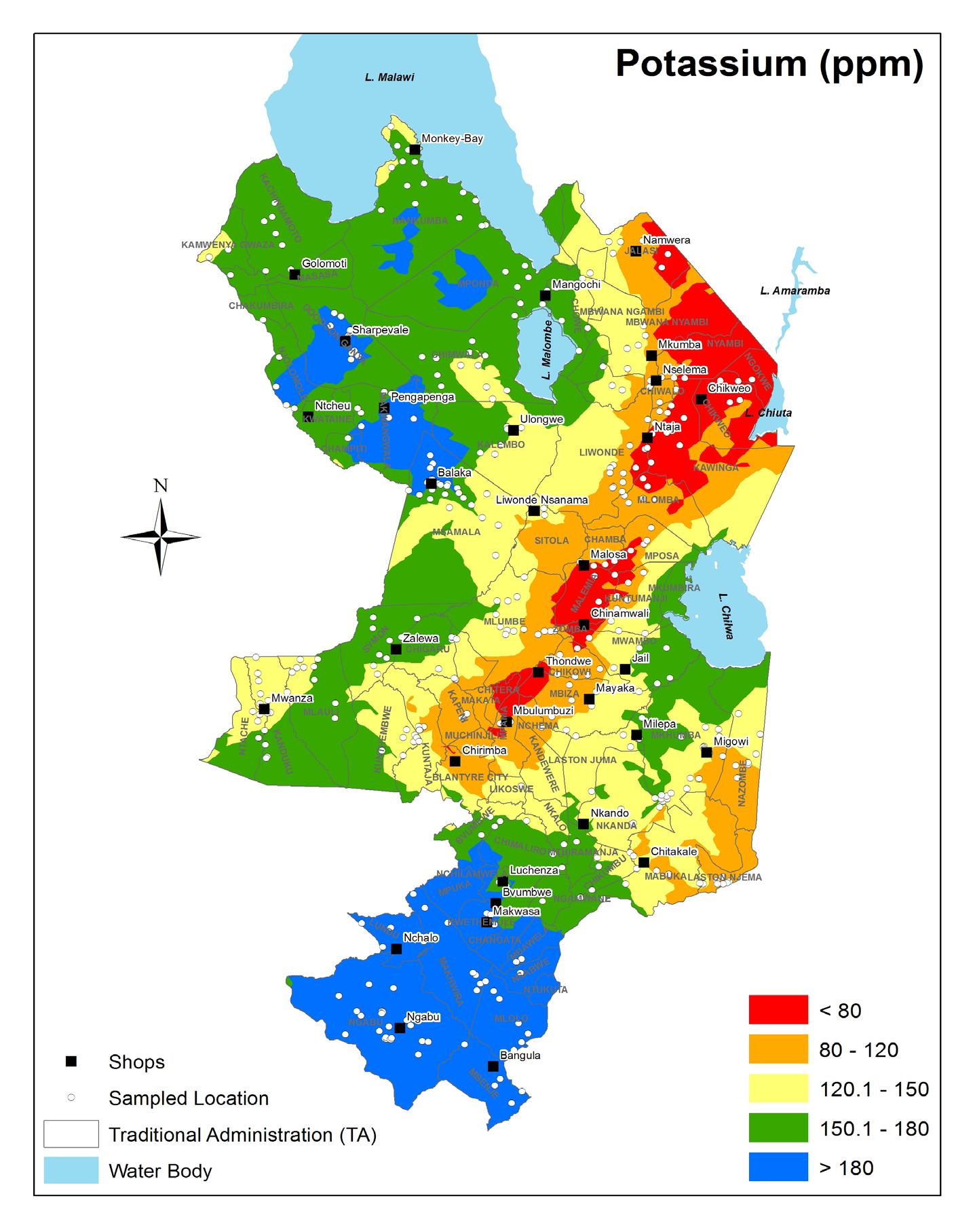


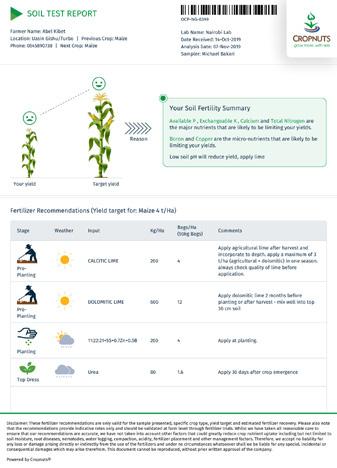
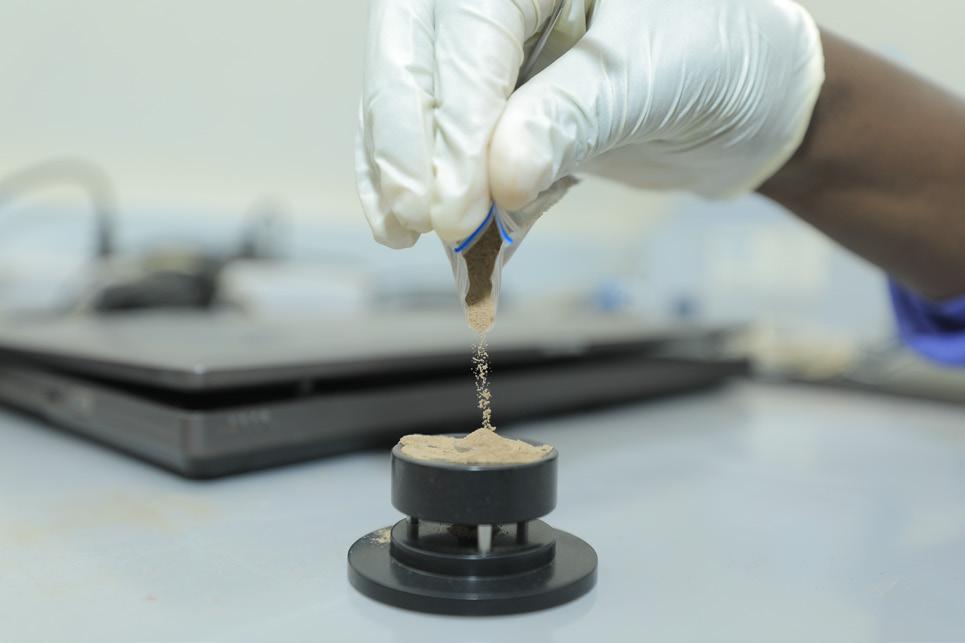



building good relationships that serve the nation’s farming communities,” Viviers explains. “Our goal is to grow our commercial and small-scale farming customer base. We believe this is where most of our future growth and expansion will come from.”
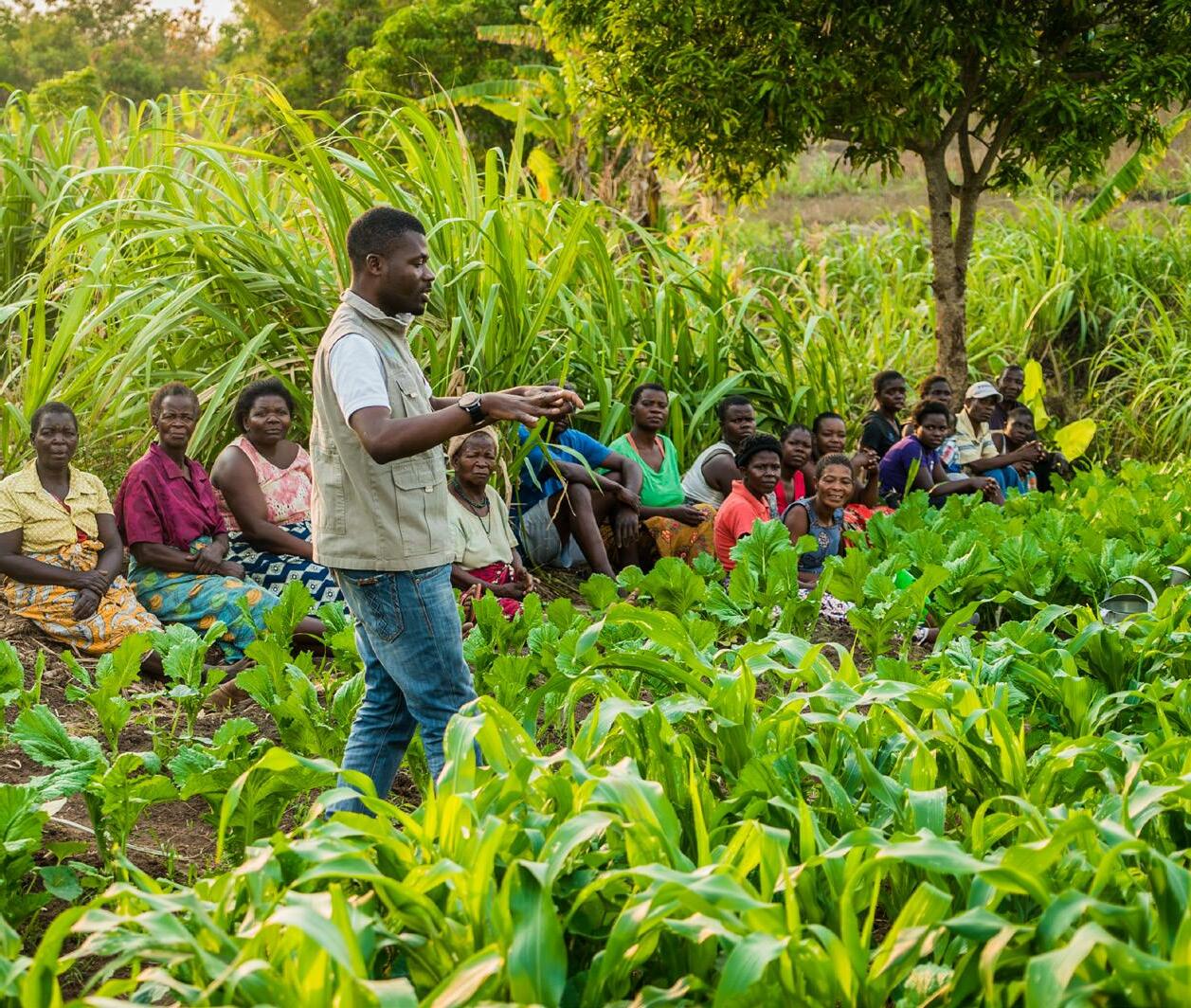
One of the Meridian Group’s key strengths is its in-country blending facilities, allowing its companies to create fertiliser products specifically for the local soil profiles and bespoke needs of the group’s customers.

“Focusing more on both commercial and small-scale farmers will seed numerous pockets of growth across our customer base. This will drive further growth in years to come as we support existing customers and add new ones. Meridian is in its next phase of growth, and this is the catalyst for what lies ahead,” Viviers continues.
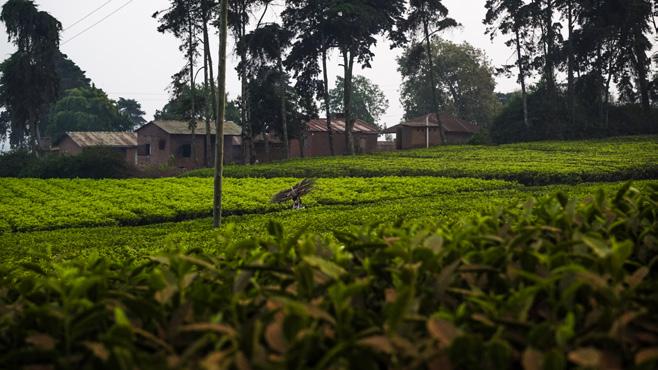

“The retail arm of our business is incredibly complementary. We operate a retail network with a national footprint in Malawi, and we distribute through key third-party retail partners in the other markets. This is a key point of interaction for small-scale farmers where we provide access to fertiliser and farm input products, and the outlets also act as a hub for our value-added FSU. Hence, with a focus on growing customers and refining our retail operations, our marketing efforts in general will be significantly increased going forward. It will be an excellent opportunity to elevate the Meridian Group brand beyond its current reach.”

KAREL VIVIERS, HEAD OF MARKETING: “We are privileged to have a diverse workforce; this positions us well to serve a multitude of business needs more effectively.
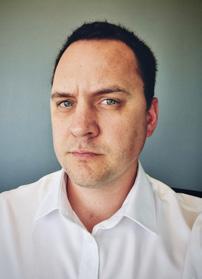
“We have numerous corporate social responsibility (CSR) initiatives that focus on education, social welfare and environmental impact. We aim to extend our business reach in the communities we operate to go beyond just selling products, truly working together towards improved prosperity for this generation and the ones to follow.
“We have also contributed to government initiatives over the years, executing social impact and support programmes with great success. Farming is about people; the success of farmers and their operations is what our success depends on.”
“Due to the volatile nature of the recent trading environment, our aim is to ensure our customer commitments are met and we are able to facilitate a strong harvest across our markets for the balance of 2022,” he says. “We have numerous projects that will take us into 2023/2024 and improve our operations, enhance our sustainability, increase our reach and distribution, and innovate to better anticipate and meet customer needs.
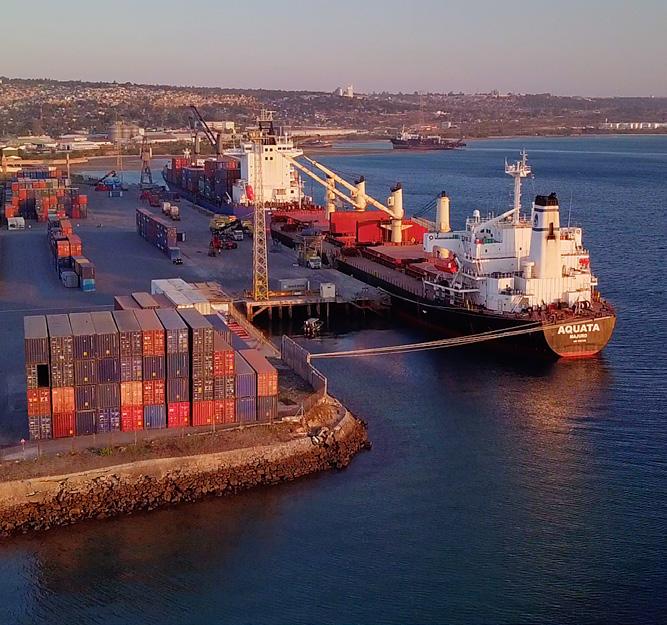
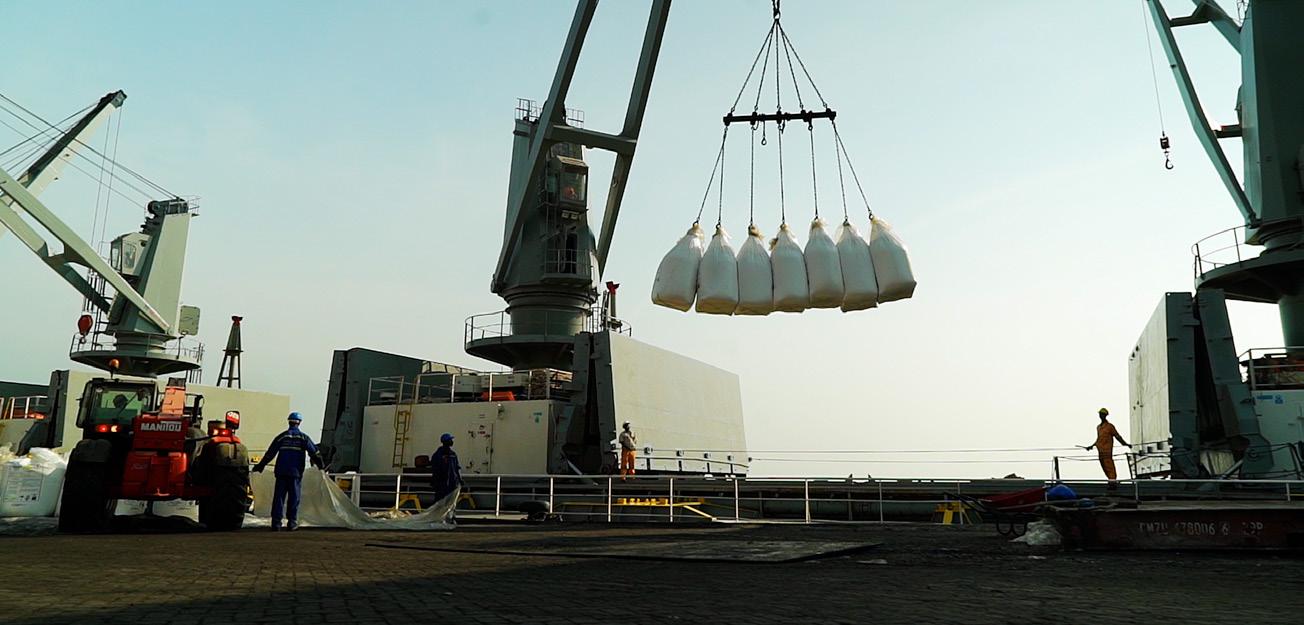
“The Meridian Group’s future focus remains bettering services and practices to improve human welfare and the health of the planet.”
The Meridian Group is eager to expand its operations and grow its market share.
The Meridian Group was recently acquired by the Saudi-Arabian mining giant, Ma’aden, which will play a
key role in its future plans. However, according to Viviers, the group’s immediate focus is ensuring that it is able to meet and grow demand in its current markets to position the company favourably for future growth.

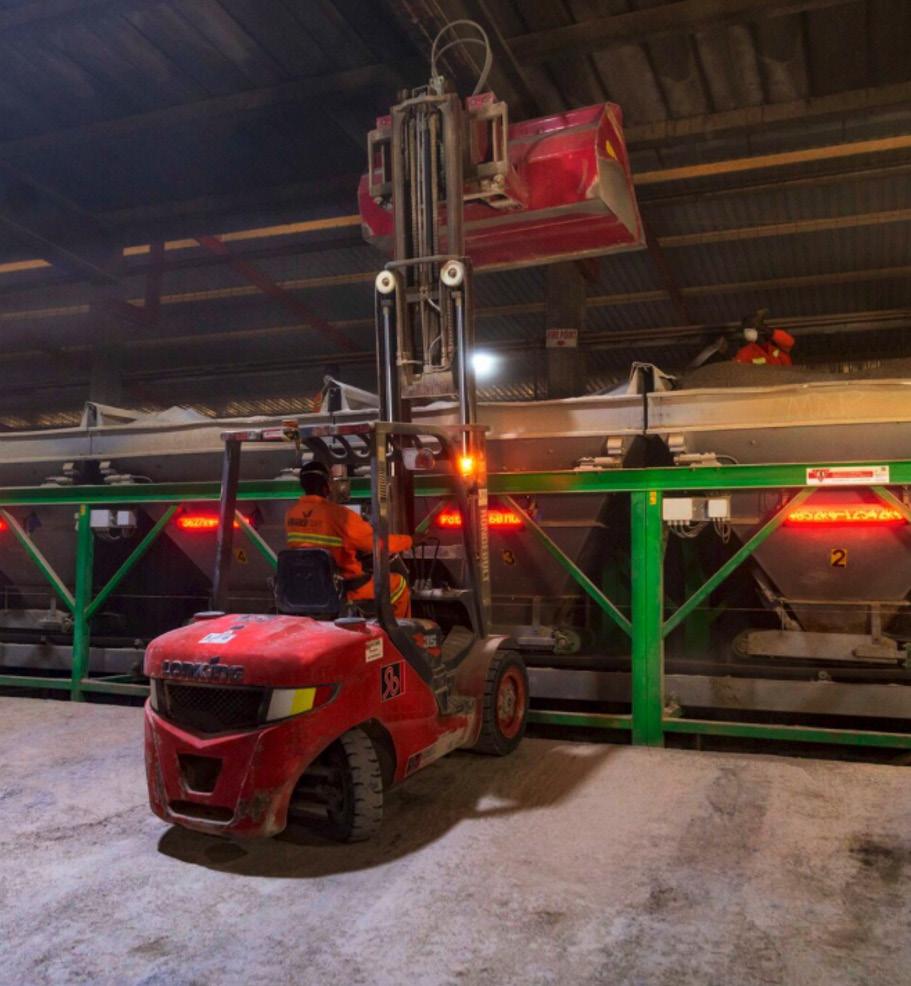
Tel: +230 263 1436 www.meridian.africa
Mobus Properties is a leading business in residential and commercial construction. We speak to Abraham Kofi Sam, Head of Sales and Marketing, about the company’s drive to develop housing projects and help communities across Ghana and Nigeria

Writer: Marcus Kääpä | Project Manager: Vivek Valmiki

The construction sector is paving the way for continental development and growth.
Across Africa, almost 50 percent of all people live in urban areas, and that number is growing fast. To keep up with a booming population, increasing urban living, and the necessity for higher standards, there are key players in the African construction sector delivering housing of all kinds to answer this explosive demand.
“I have seen a lot of change within the construction sector in West Africa,” begins Abraham Kofi Sam, Head of Sales and Marketing at Mobus Properties (Mobus). “There is a lot of residential and commercial development, especially in the prime areas of the capital of Accra (Ghana).
“This is a very positive level of activity, and it helps to expose the country and its economy to new


“Prior to my career, I studied at the University of Ghana and intended to become a lawyer after education.
“My first work opportunity was in the area of sales and marketing for a real estate company, and through this experience, my attention shifted from the path of a lawyer to a permanent role in sales and marketing.
“12 years down the line, I have worked in the real estate, e-commerce and telecoms industries, the most important of which has been real estate, the industry I remain in today!”
At Kimo Home, we believe the spaces we occupy, play a critical part in influencing our thoughts, feelings, and actions.
This is why we are passionate and committed to helping the people of Ghana create (live, work and play) spaces that inspire them to become the fullest expression and greatest version of themselves, so they can become agents of positive transformation, growth & Inspiration to their families, communities & the world.
Everyone deserves to relax, dream and create possibilities in their unique space.
possibilities and potential. Through such developments, Ghana’s economy has been opened up to the rest of the world. In the last three years, there have been a lot of companies springing up, such as those in the automobile industry, providing a lot of opportunities for the construction sector.”
This kind of external establishment and investment is very lucrative for Ghanaian construction. According to Abraham, the past few years have seen automobile giants, including the likes of Nissan, Toyota, and Volkswagen, establish assembling plants in Ghana, spurring growth in the construction sector.
“These developments require accommodation and the services of construction companies, and this is where Mobus comes in,” he tells us. “We have a lot of international markets opening up, and we are
privileged to have also had the African Continental Free Trade Area (AfCFTA) construct its headquarters in Accra; all of these developments introduce residential and commercial construction opportunities.”
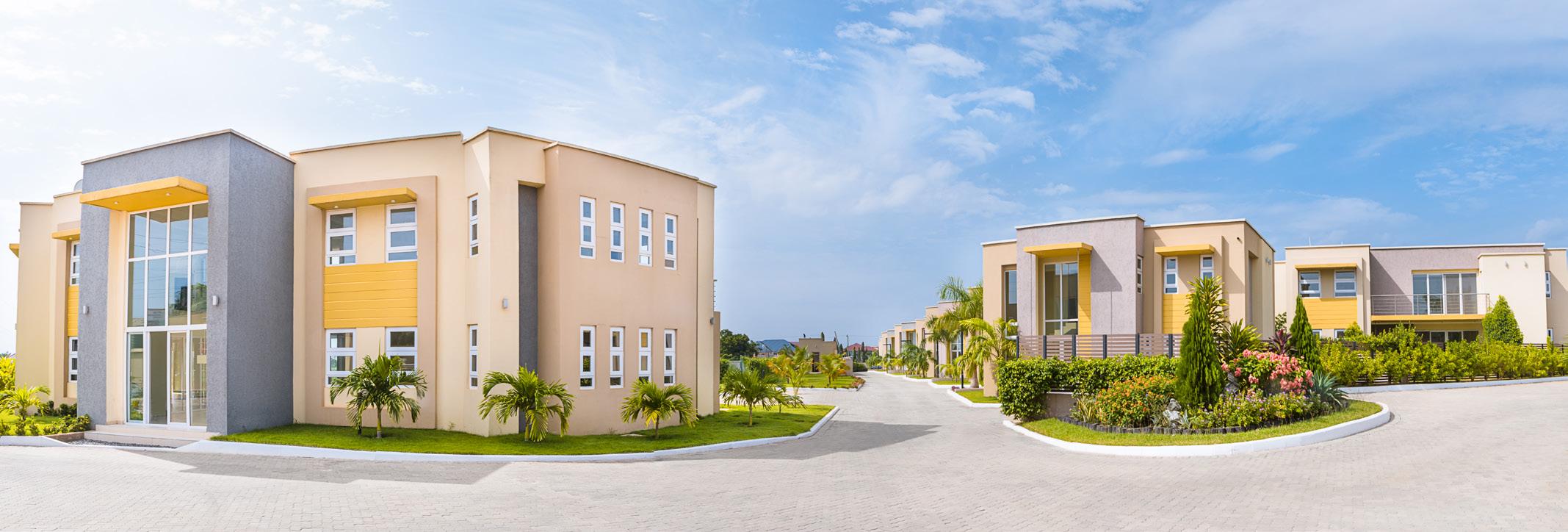
Founded in 2007, Mobus is a proud Ghanaian-owned property development, management and investment company currently celebrating its 15th anniversary. The company guides projects from conception to completion, providing customers with a flawless living experience, and only embarks on solid and viable projects ensuring great returns for its investors and homeowners.
The company is present in both Ghana and Nigeria, with the majority of business focus placed in Accra and
To know more, visit www.kimogroup.com www.kimogroup.com
Nigeria’s capital of Abuja. Within both cities, Mobus concentrates its efforts on prime areas, developing residential apartments and commercial complexes as well as urban office spaces.
“We currently have a total of seven developments - six completed, three underway - in Accra at the moment,” Abraham explains. “One is a commercial project that we are about to launch, while two others are residential projects beginning at the end of this year.
“On top of this, we have completed Park Apartments, a luxury
Phoenix Villas


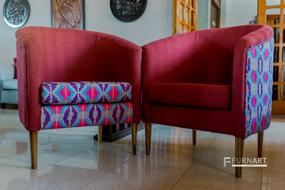

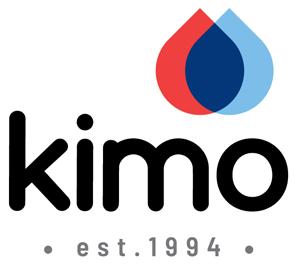

PROPERTY DEVELOPMENT – Mobus develops residential and commercial properties, with the primary aim of adding value to the property all geared towards ensuring the best outcome for all stakeholders.
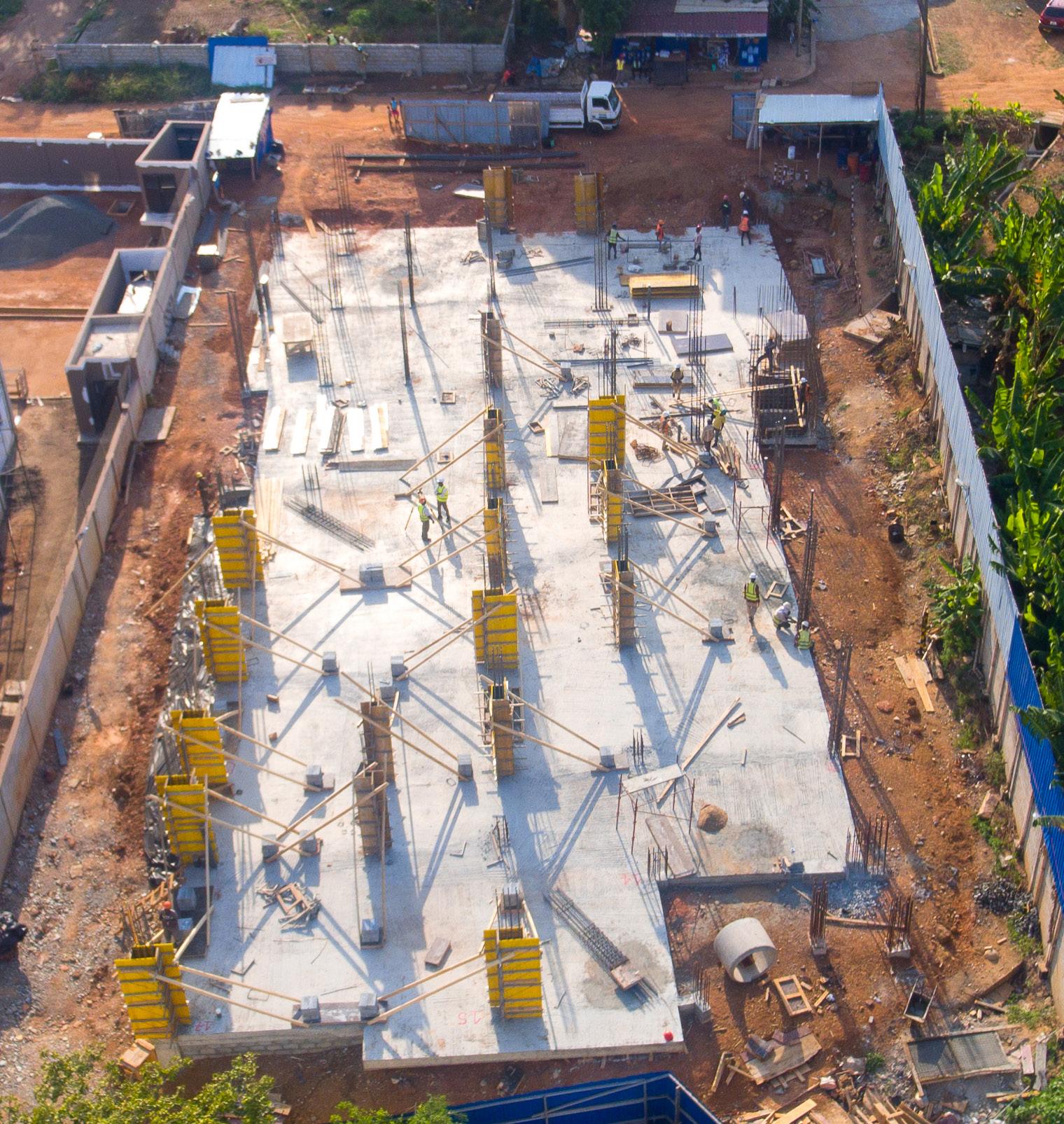
PROPERTY MANAGEMENT – Mobus manages residential and commercial properties, leaving customers to enjoy and focus on the benefits of being a property owner.
INVESTMENT PLANNING - Mobus offers a full range of financial and real estate investment planning services including strategies and solutions that deliver the greatest comfort and returns on customer investments.
REAL ESTATE ADVISORY - Mobus offers tailored, collaborated advisory services for its clients, ranging from strategy advisory to equity and debt advisory based on the client’s unique needs.
MISSION - To deliver a self-sufficient community of like-minded and accomplished individuals, who live in future-ready homes that meet present needs.
VISION - To be the foremost real estate institution in Africa, centred on delivering value to its customers and shareholders, to provide them with a better life.
development made up of 54 units comprising one-, two- and threebedroom apartments. The project is part of Switchback Square, an enclave of high-end serviced apartments by Mobus.”
Abraham believes in the importance of client relations and the creation of strategies that ensure Mobus achieves its goals. With these values and years of experience in real estate marketing, sales and lettings, Abraham leads a team of equally dedicated associates in growing the Mobus brand.
It is the dedication of the Mobus team that brings the high level of quality and professionalism that sits at the core of the company, backed by industry expertise that echoes throughout its many projects.
“In Abuja, we are building one of the biggest housing estates to date,” Abraham says. “We are

also introducing a development called Ricardo Homes, a beautifully conceptualised exclusive neighbourhood of over 2.7 hectares (ha) within the River Park community, along the Airport Road in Abuja.
“The development consists of 88 units of simple and modern four-bedroom terrace duplexes, set in a fast-growing self-sufficient community, offering a safe and wholesome living experience. Ricardo Homes will also include communal CCTV surveillance, high-speed fibre optic internet access, membership for residents to a clubhouse complete with leisure amenities, and an uninterrupted power supply for the entire complex.”
The greater River Park estate itself will comprise 500 units and is designed to be ideal for couples planning to start a family. The complex is made up of semi-detached one- or two-bedroom homes, with an
CEO of Mobus, Kojo Ansah Mensah with Victor Quainoo, Operating Chief Officer Nigeria Early stage of construction of Park Apartmentsadditional option for five-bedroom homes purpose-built for larger families.
In addition, Mobus launched two developments in Abuja separate from Ricardo Homes, which consist of terraces and town homes. Then there is the Richfield Lifestyle Estate in Accra.


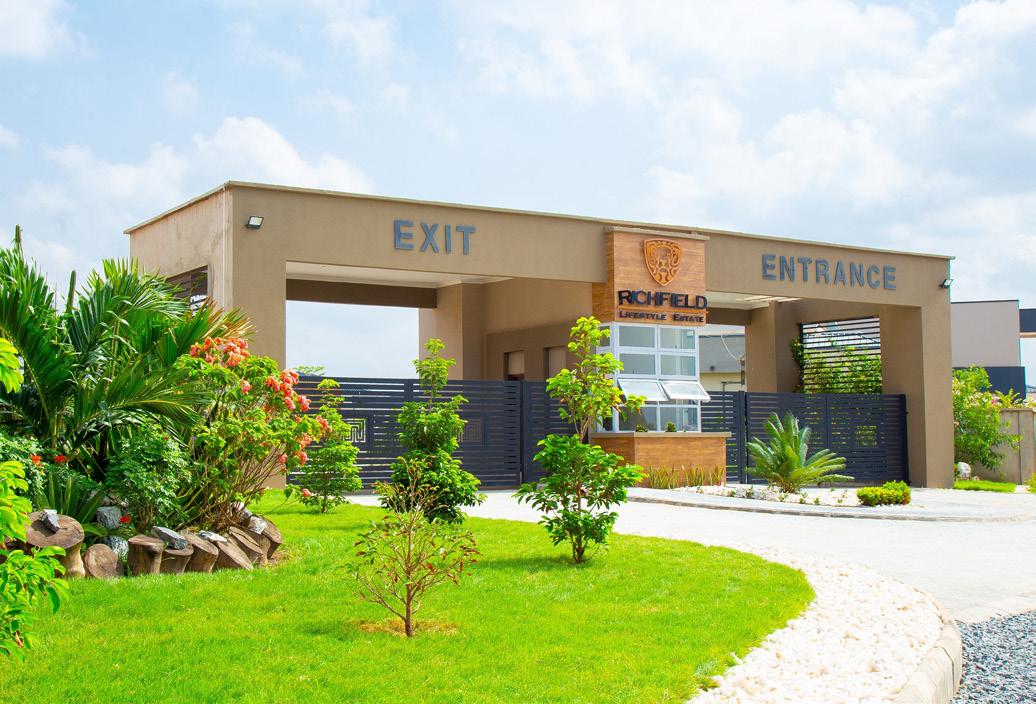
“This project is set close to the prime area of the capital, and is a unique development,” Abraham tells us. “This is because it is made up of luxury apartment complexes and is meeting the demands of a particular market; it is a very successful project with over 120 homes currently built.
“Richfield Lifestyle Estate is a beautiful and serene gated community situated in one of Accra’s fastest growing neighbourhoods, East Legon Hills. The estate was conceived to bridge the gap between affordable and quality living in Accra. While phase one mainly consisted of double
and single storey detached and semidetached homes, phase two sees the inclusion of even more affordable types of home like flats and terraces.
“Presently, we are also working with a company that owns a huge piece of land in order to develop much more, and this venture aims at building around 300 additional homes. These houses are intended for middleincome level families and is a separate focus to the prime apartment complex market.”
Moving forward, Mobus’ primary aim is locked on expansion, with the intention of branching into alternative markets in Ghana, Nigeria and other countries in Africa.
“We have always had one vision at Mobus: to grow fast and grow great,” Abraham says. “We have our developments ready to launch in Accra, and we are also looking at
launching some new developments in Abuja as well.
“In Ghana, we have a great rapport with real estate companies, as well as the government, to seek development opportunities and better housing across the country.”
For Mobus, this is also where the company’s corporate social responsibility (CSR) comes in.

“We ensure that we develop homes that are affordable in order to bridge the housing divide in Ghana and Nigeria,” Abraham concludes. “As part of one of our CSR programmes, we are currently developing schools and a clinic in Assin Kushea in the Central Region.
“A great part of working in this industry is being able to see how our efforts directly help people’s livelihoods, be it in housing, education or otherwise, and through building classrooms we are able to give back to the community for the betterment of people’s future.”
INTERMODAL AFRICA continues to be the biggest annual ports, ship ping and transport logistics exhibition and conference on the African conti nent, now in its 28th successful edition.
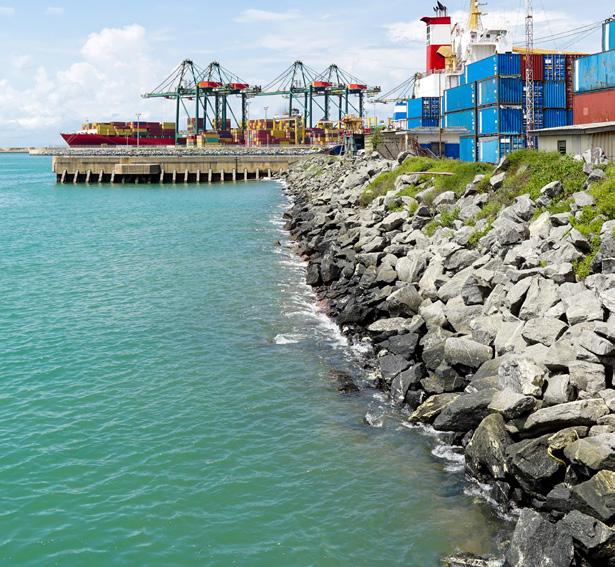
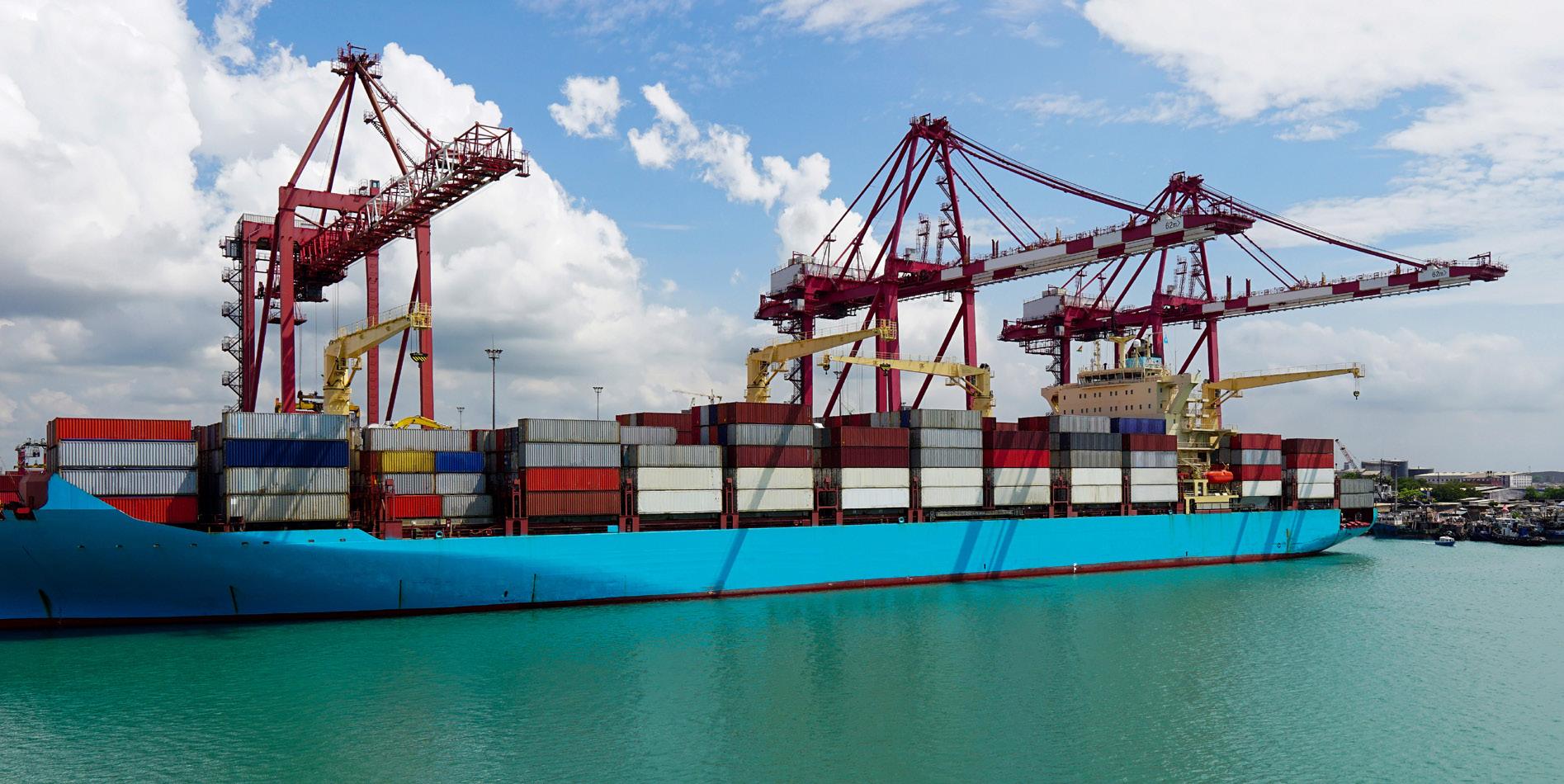
The 28th Intermodal Africa 2022 Exhibition and Conference will take place in Lomé, Togo from Tuesday 22 to Thursday 24 November in a safe and professional environment at the luxurious 5-star Hotel Sarakawa, Lomé, Togo.
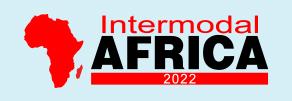
A two day conference programme will feature 30 worldclass transportation and logistics conference speakers addressing topical issues and challenges on global and regional trade and investment,
attended by a gathering of 300 senior government officials, industry principals, academics, senior executive harbour masters, harbour engineers, port engineers, maintenance supervisors and procurement decision makers together with the region’s leading shippers, cargo owners, importers/exporters, shipping lines, freight forwarders, logistics companies, ports, terminal operating companies, railway operators, port equipment and services suppliers from countries throughout Europe, the Middle East and Africa (EMEA).
There will be the commercial opportunity for 40 exhibitors and sponsors to network safely in-person
with the delegates at this major annual international maritime transport exhibition and conference trade event for Africa. Reserve your first choice of exhibition stand on the exhibition floorplan and register your conference delegation.
We look forward to welcoming you to the biggest annual ports, shipping and transport logistics exhibition and conference in Africa, taking place from Tuesday 22 to Thursday 24 November in Lomé, Togo at the luxurious 5-star Hotel Sarakawa, Lomé, Togo.
details





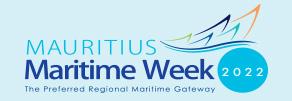
2022 continues to be the biggest maritime transport event for the Indian Ocean Islands, taking place in person on the pristine island of Mauritius from Tuesday 13 to Thursday 15 December at the luxurious 5-star The Ravenala Attitude hotel. This will highlight the country’s unique position as the pre ferred regional maritime gateway for the Indian Ocean region.
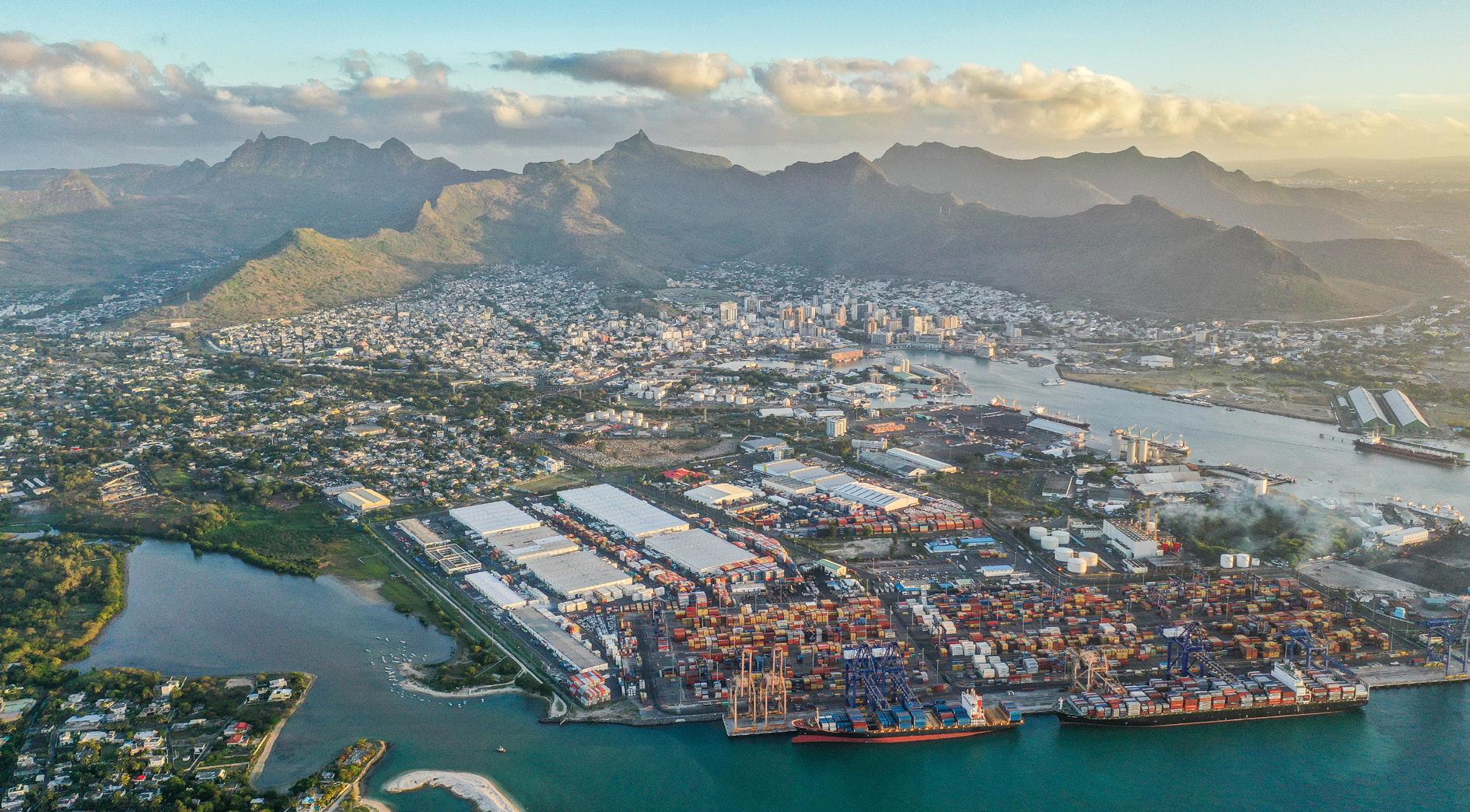
The event will take place in a safe and professional 5-star hotel environment. The event is hosted by Mauritius Ports Authority and fully supported by Cargo Handling Corporation Limited (CHCL).
A two day conference programme will feature 25 world class
conference speakers addressing issues, challenges, solutions and innovations in port operations, shipping, supply chain and logistics strategies which will be attended by a gathering of more than 250 senior government officials, industry principals, academics, senior level executives such as CEOs, General Managers, harbour masters and terminal operators together with the region’s leading maritime consultants, shippers, cargo owners, importers, exporters, shipping lines, freight forwarders, logistic companies, technology providers and service suppliers from countries throughout the Indian Ocean islands. There will be a commercial opportunity for
partners and sponsors to network in person with decision makers at this major annual international maritime transport trade event for the Indian Ocean islands.
Book your place to be part of the biggest maritime transport event on the Indian Ocean island of Mauritius from Tuesday 13 to Thursday 15 December, taking place in the luxurious setting of The Ravenala Attitude Hotel.
For further details please visit here.
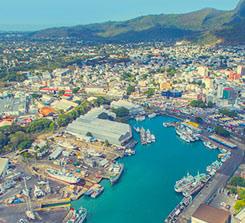


HOSTED BY the Abu Dhabi National Oil Company (ADNOC), ADIPEC is the world’s most influential event for the energy industry.
ADIPEC 2022 will gather policy makers, energy CEOs and energy professionals from across the globe, to spearhead discussions focused on key global energy trends, policy formation, and geopolitical factors.
ADIPEC 2022 will accelerate the energy transition, unlock real value in a decarbonised future, showcase ground-breaking technologies and explore actionable strategies and solutions to the challenges and opportunities created by complex global energy market dynamics.
Taking place a week before COP27, ADIPEC 2022 is the global forum for leaders to reinforce strategies and commitments that will drive the industry towards reducing emissions and meeting net-zero goals.


ADIPEC by the numbers:
• 150,000 energy professionals
• 140,000 gross SQM
• 2,200 exhibiting companies from across the globe
• 12,000 conference delegates
• 1,200+ conference speakers
• 350+ conference sessions
• 54 NOCs, IOCs and IEC’s
• 28 international exhibiting country pavilions
Alongside the exhibition and conferences, ADIPEC 2022 will also host four specialised industry zones that will enable the global energy industry to strengthen existing business partnerships and form new models of cross-sector collaboration to unlock and maximise value across businesses and drive future growth. These zones include:
The Offshore & Marine Zone is one of the world’s foremost meeting places for the marine transport and logistics sector to understand the latest developments in technology,
meet new buyers and develop new business opportunities with NOCs, IOCs, and IECs, service companies, EPC contractors, subsea engineering, supply chain companies and the full energy value chain. For more information, visit https://www.adipec. com/offshore-marine/
The dedicated digitalisation exhibition at ADIPEC 2022 will continue to be a global showcase of the technological solutions that can help the energy industry unlock untapped value and opportunities as digitalisation becomes more deeply integrated into all aspects of operations. For more information, visit https://www.adipec. com/digitalisation-zone/
The ADIPEC Smart Manufacturing Zone will continue to provide a unique platform for the manufacturing industry to gain insights into the energy transition and identify the challenges and opportunities for manufacturing in the drive for a net-zero carbon economy. For more information, visit https://www.adipec. com/smart-manufacturing/
The newly launched Decarbonisation Zone will provide the platform for the global energy ecosystem to navigate the decarbonisation pathway. It will provide the opportunity for participants to discuss key lowcarbon technologies and the role the oil and gas sector plays in creating a foundation for the transition away from fossil fuels to cleaner energy. For more information, visit https://www. adipec.com/decarbonisation-zone/
Be a part of the conversation and shape the future of the oil, gas, and energy industry at ADIPEC 2022.
Register to attend: adipec.com/visreg


If you could change one thing about your industry, what would it be?

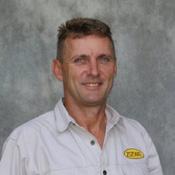
“I would like to see the barrier to entry of the mining industry lowered in South Africa, and consequently make the market more accessible to various role players. South Africa consists of several attractive investment opportunities, and we need to do our bit to capitalise on the traction that we are experiencing worldwide.”

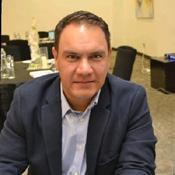
Co-Founder and Executive Director, inqaba bioteq
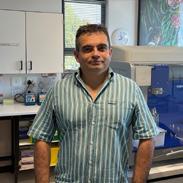

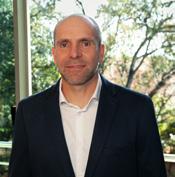
“Our technology is still too expensive for broad-based application in Africa, and also worldwide. In some way, it would be nice to see these technologies reach a cost level that allows greater access to the population.”
Luis da Silva CEO, Healthbridge
“Moving forward, the industry needs to put the patient at the centre of all considerations, whilst also balancing cost and quality of course. Right now, there are too many misaligned incentives amongst stakeholders to make this possible.”
“As the world evolves around us, hunger and malnutrition remain major concerns, especially in sub-Saharan Africa. Chicken meat and eggs are the best source of quality protein and are desperately needed by the many millions of people who live in poverty. International organisations and governments need to promote poultry farmers and eggs as the cheapest source of protein, and ideal carriers for enriching human diets that provide essential vitamins and minerals to improve nutrition.”
Head of Marketing, Meridian Africa
“Improved sustainability practices. It’s easy to dismiss sustainability and shift the responsibility to other industry players, or to get caught in the standard seasonal planting-to-harvesting cycles that end up putting sustainability on the far horizon as a nice-to-have rather than an absolutely essential part of any business operation in our industry.
“We all need to take responsibility for our role in ensuring we drive sustainability in all that we do. This collective stewardship is the only way forward and no-one can afford to not participate and contribute.”
Are you a CEO/Director interested in telling your story? Contact Africa Outlook now!
To round off each issue, we ask our contributing business leaders for their views on the same question

